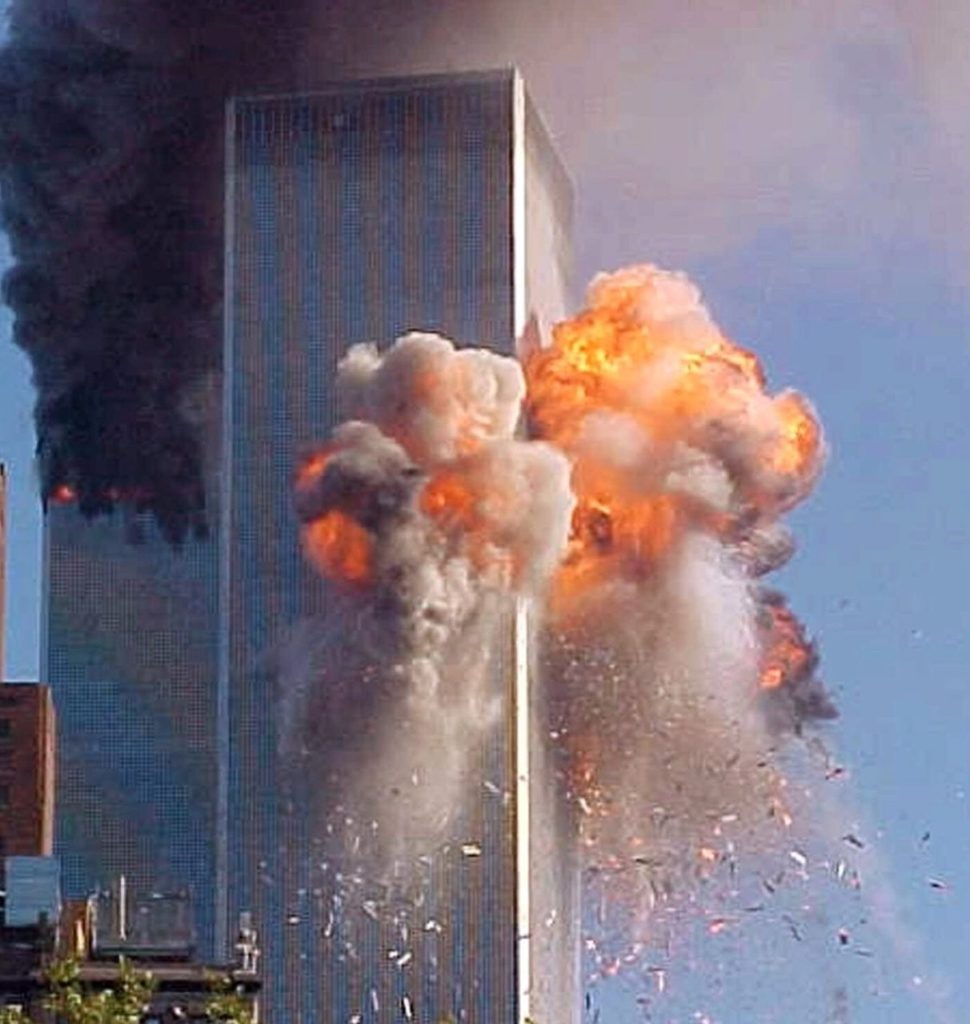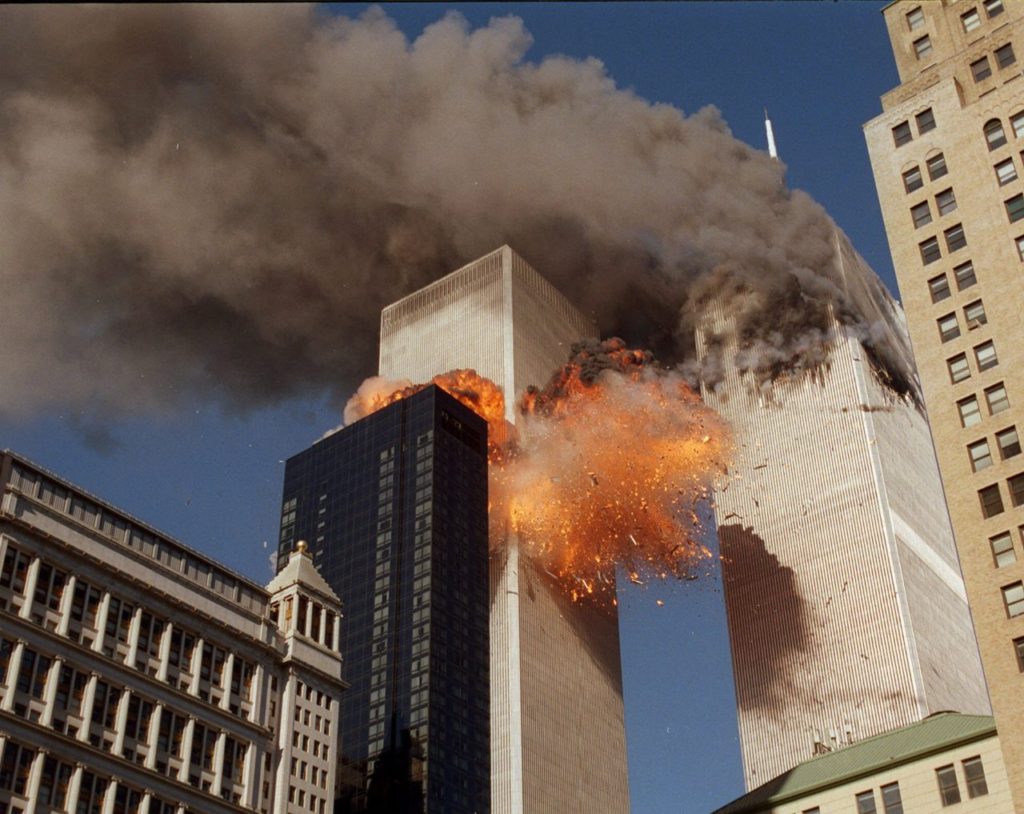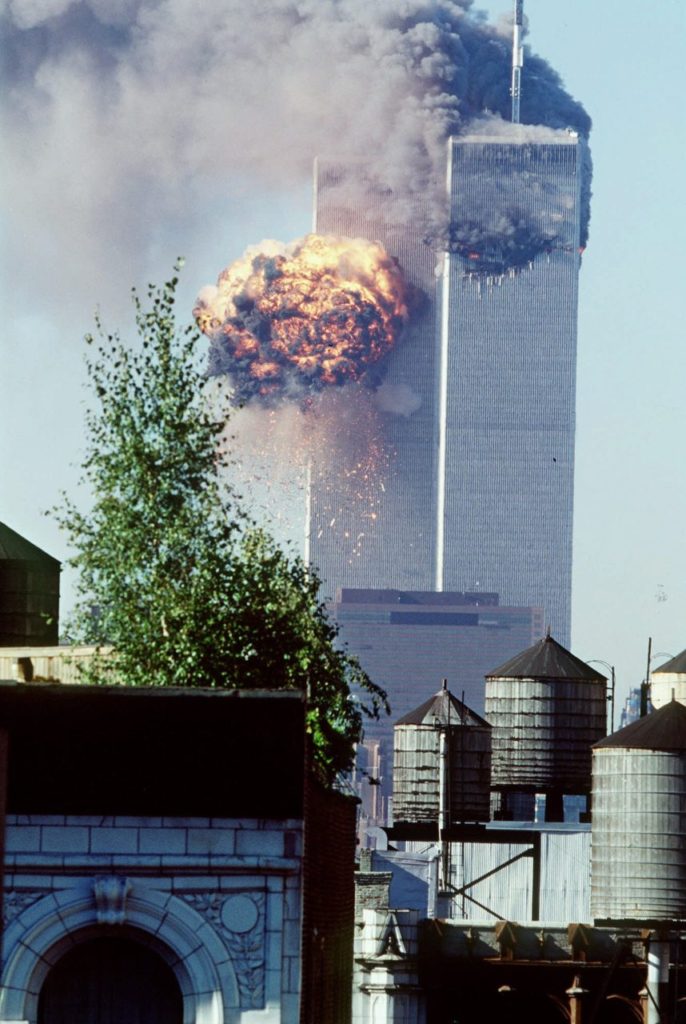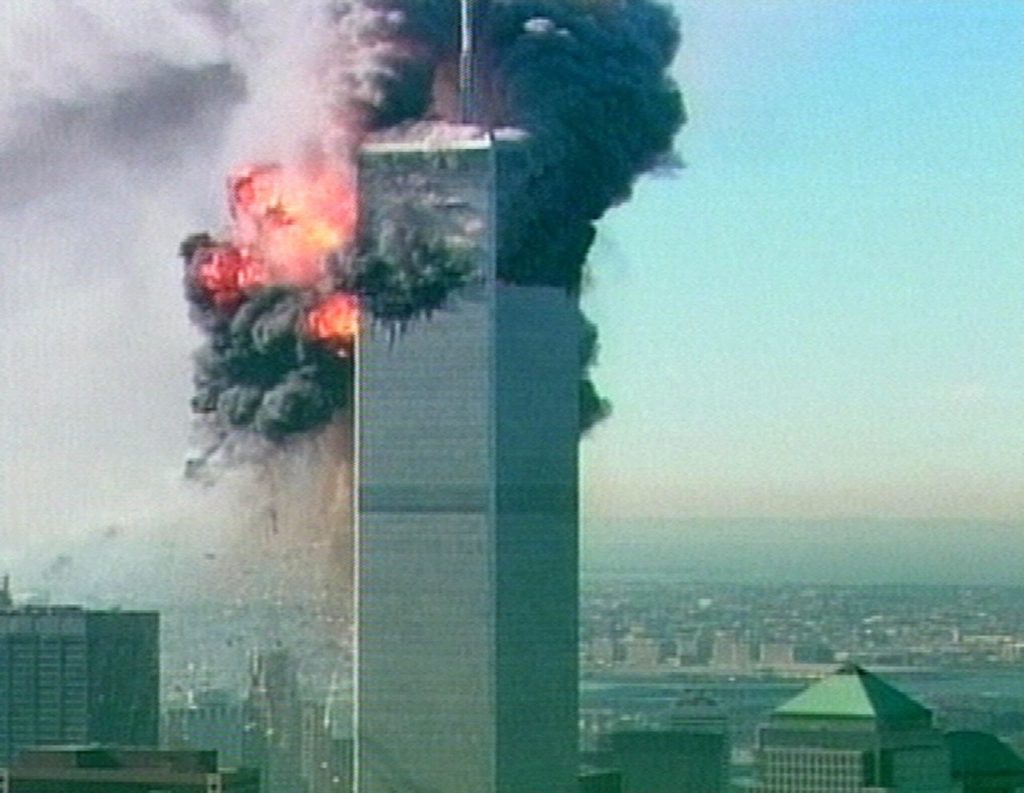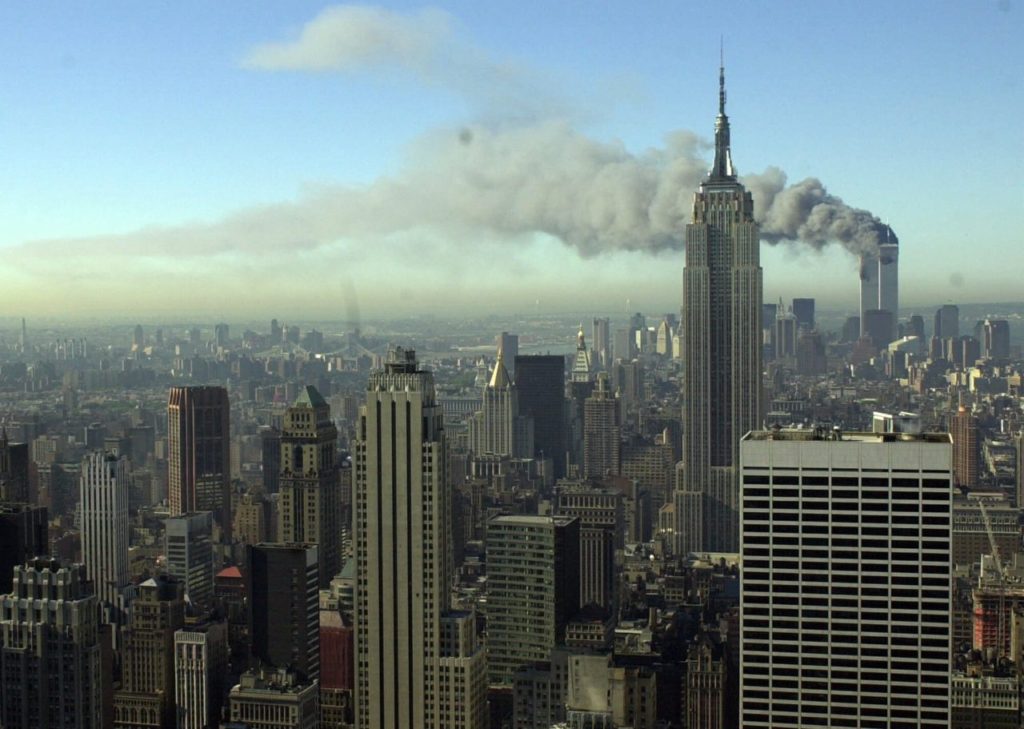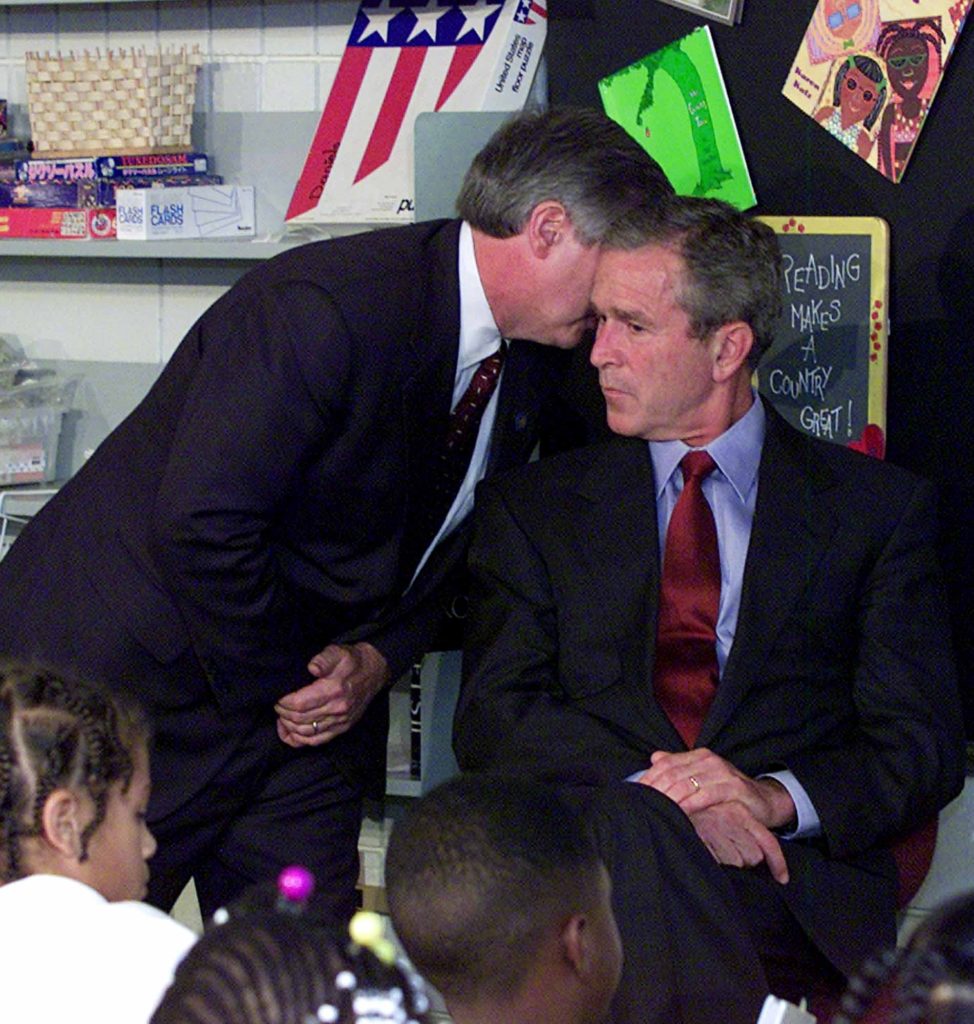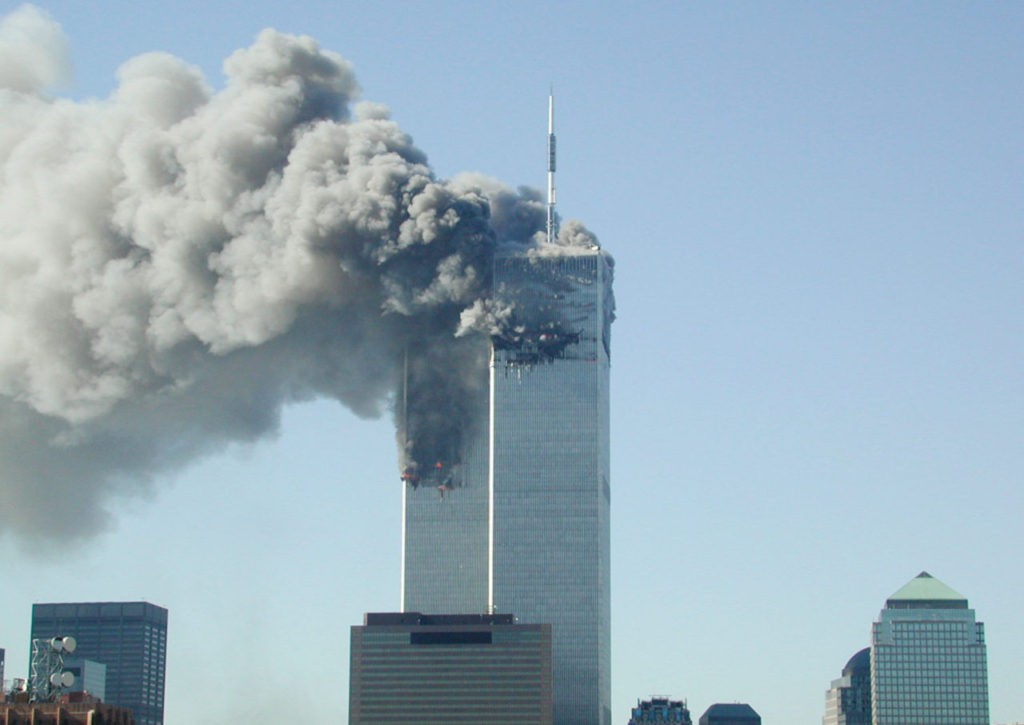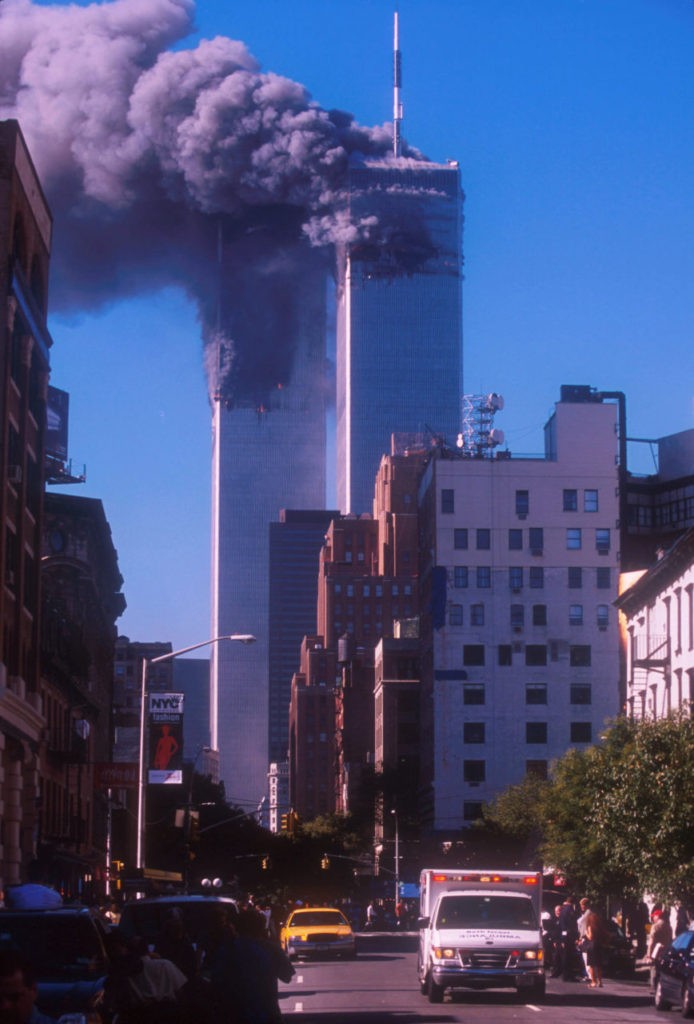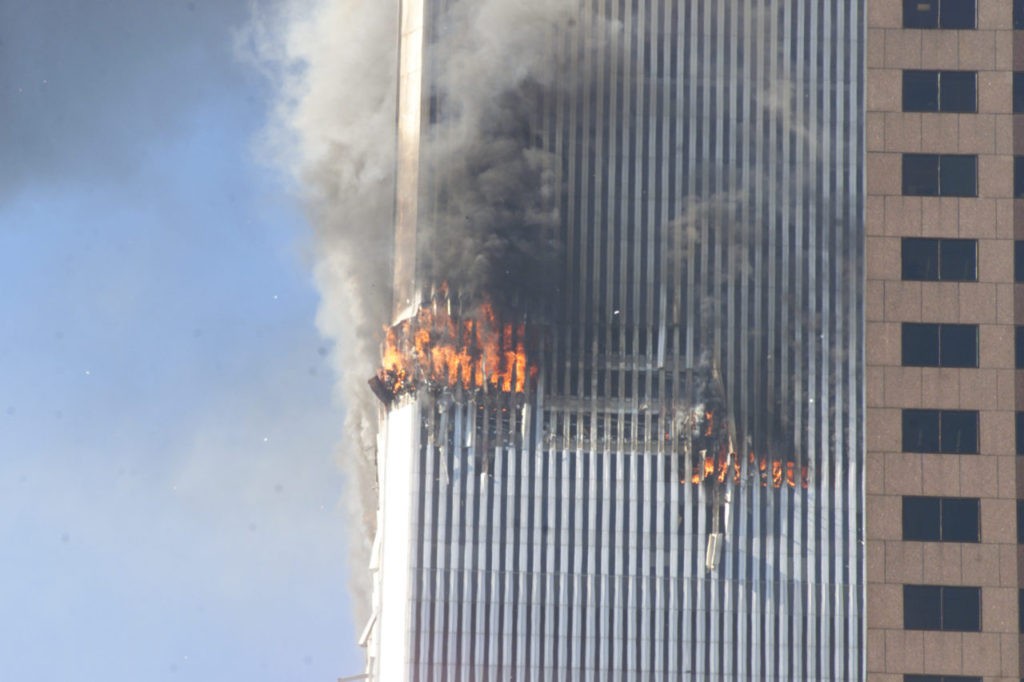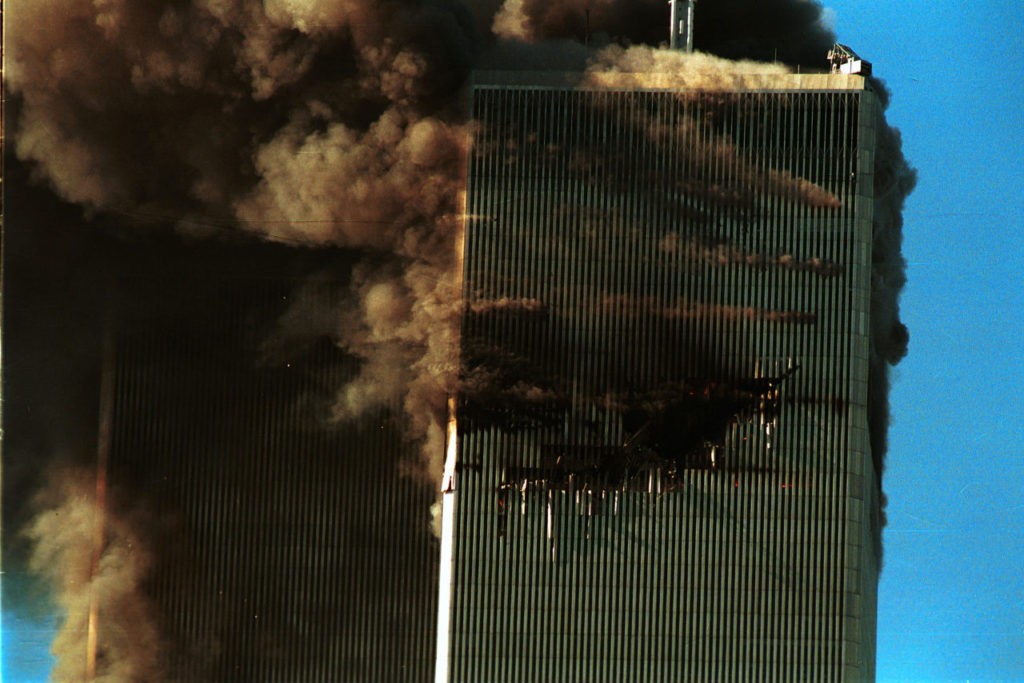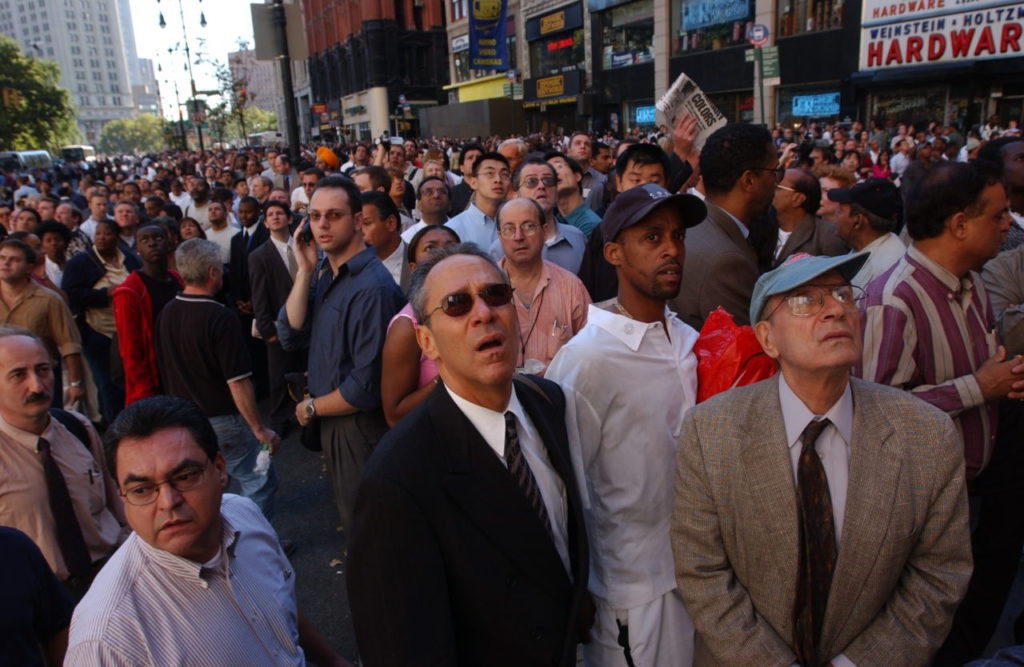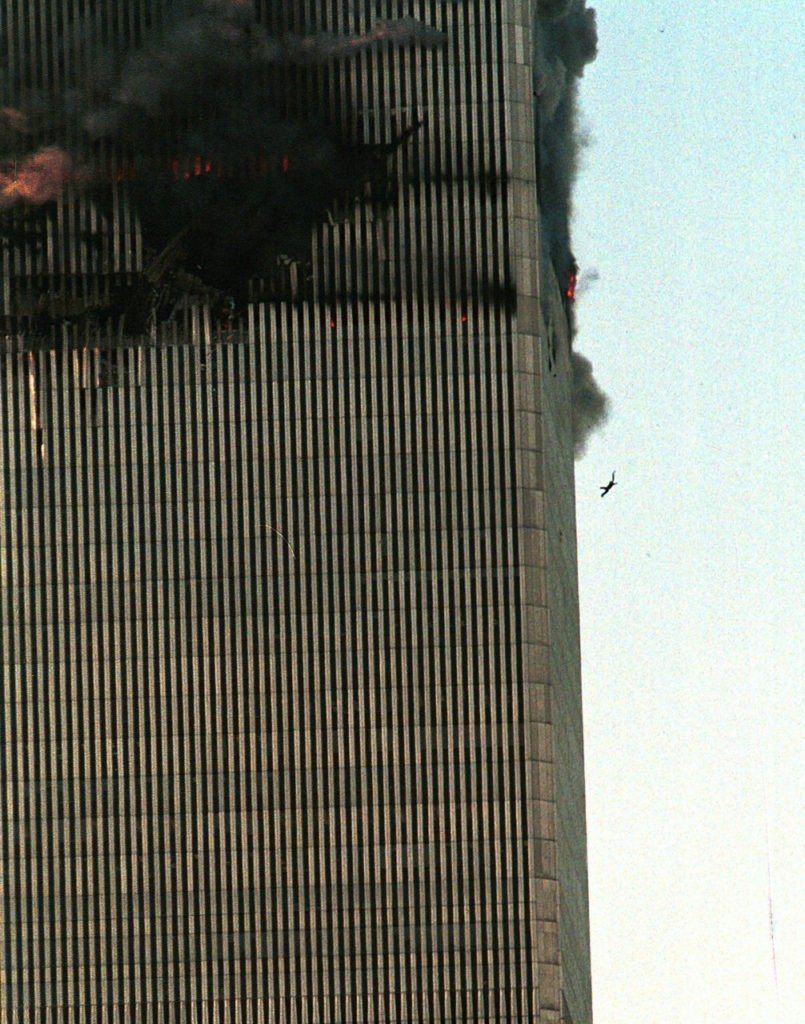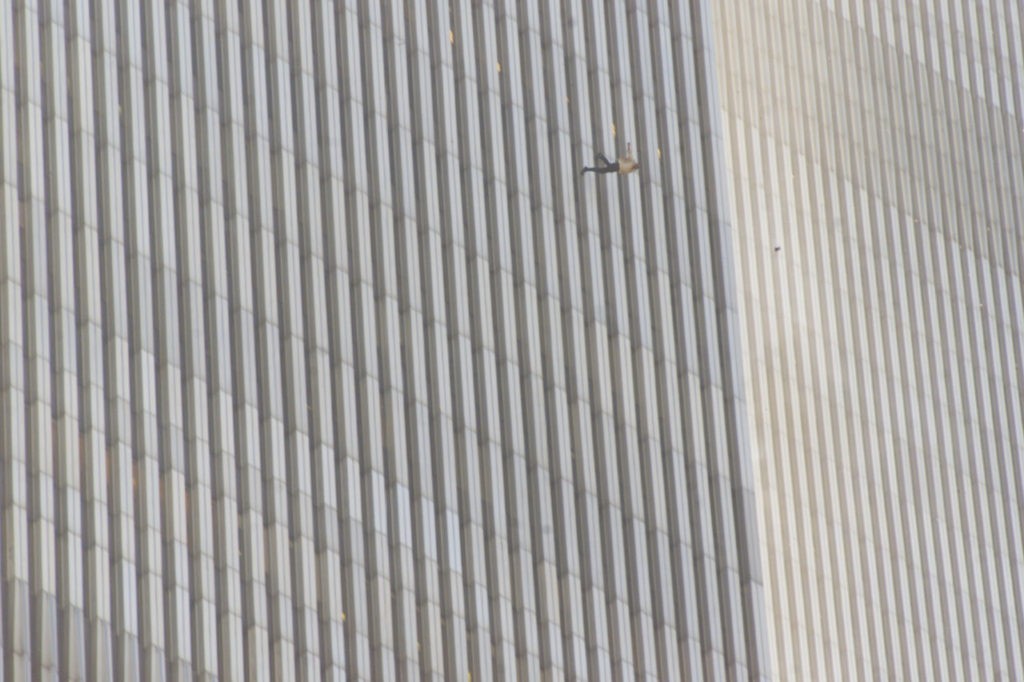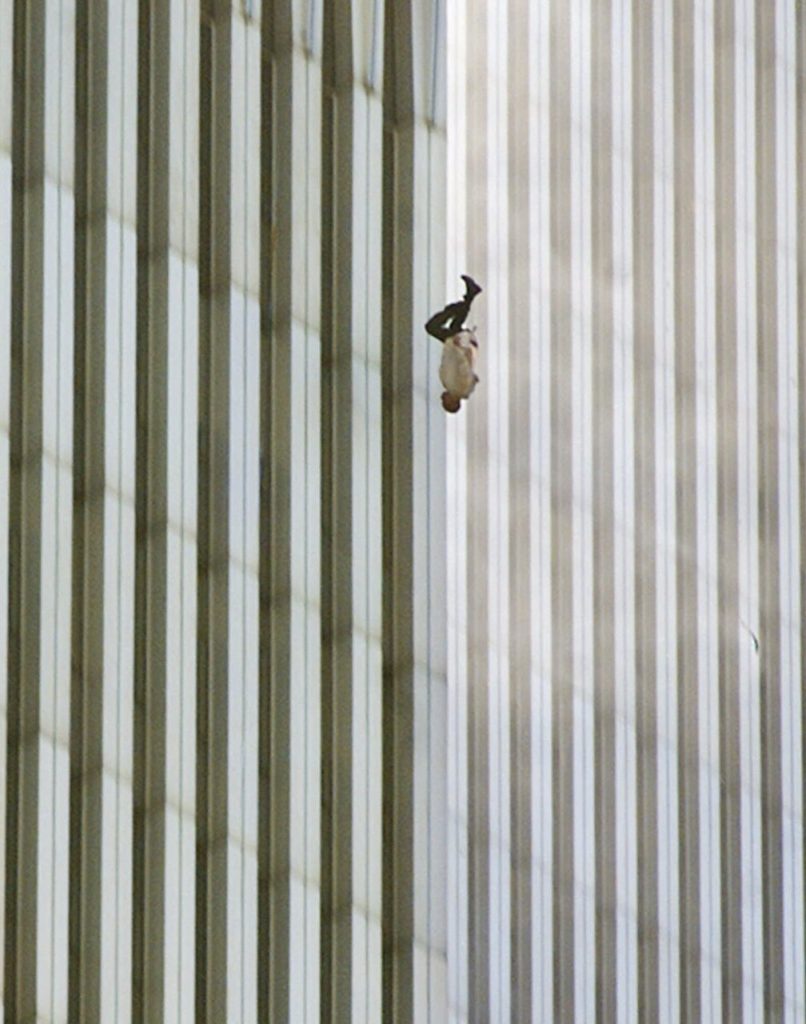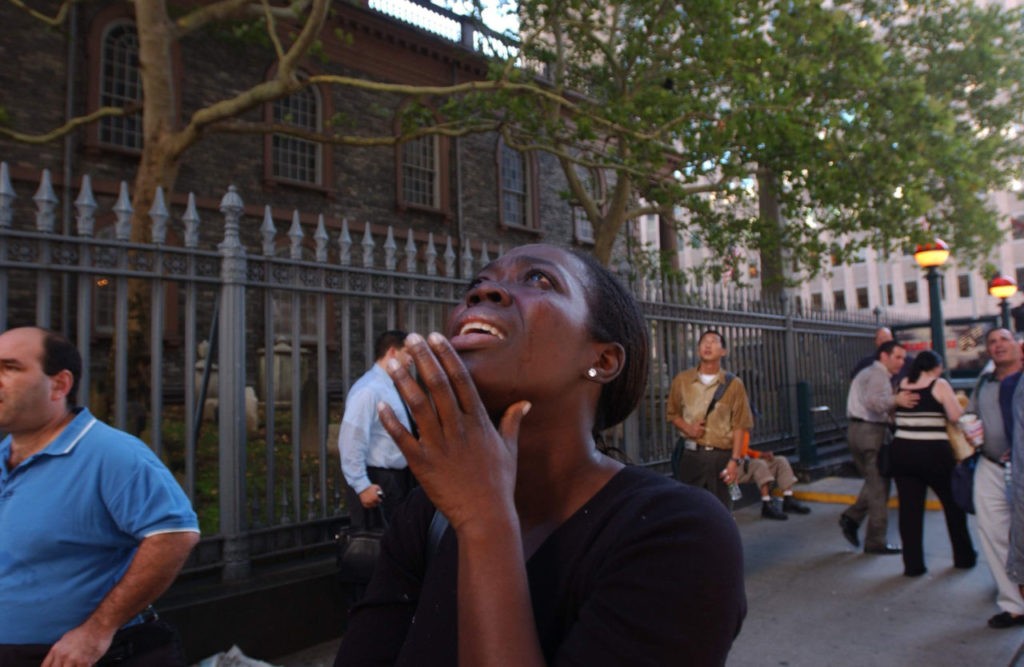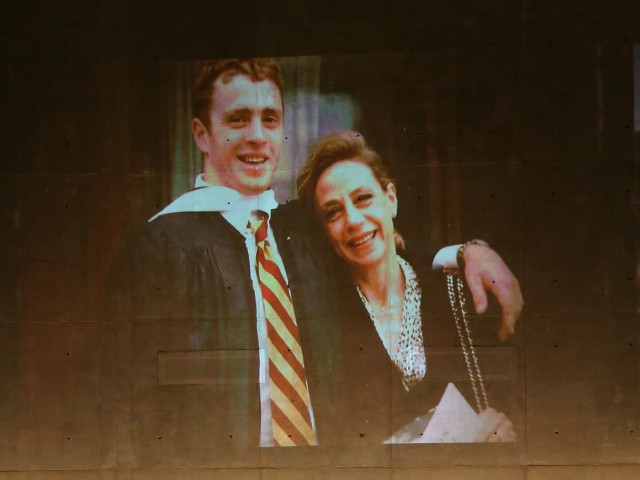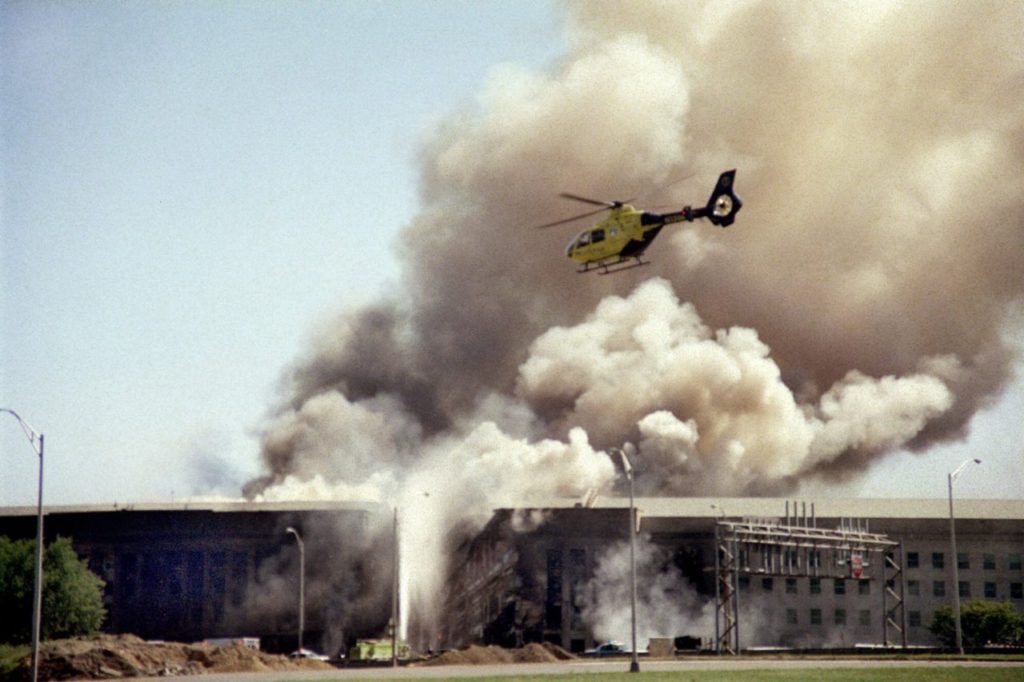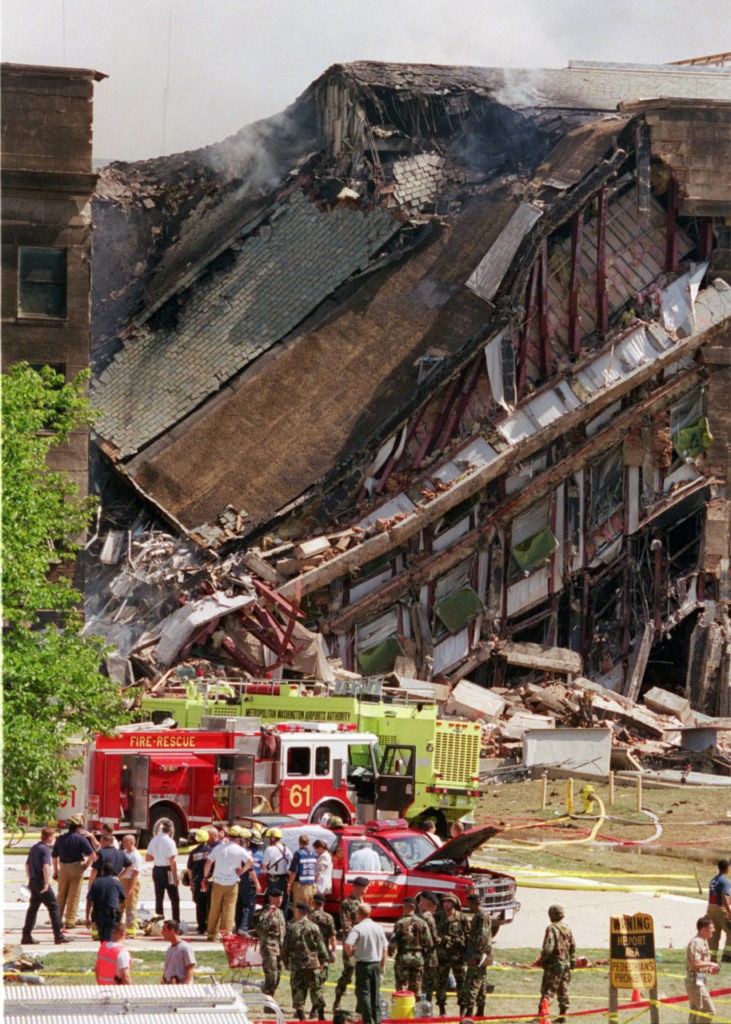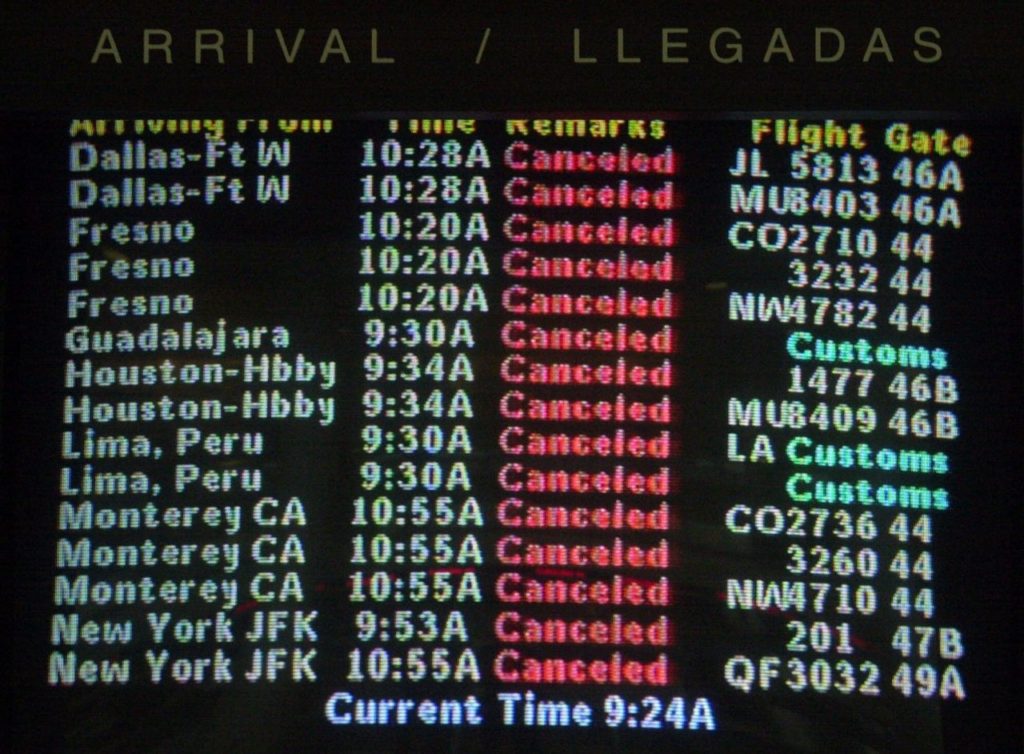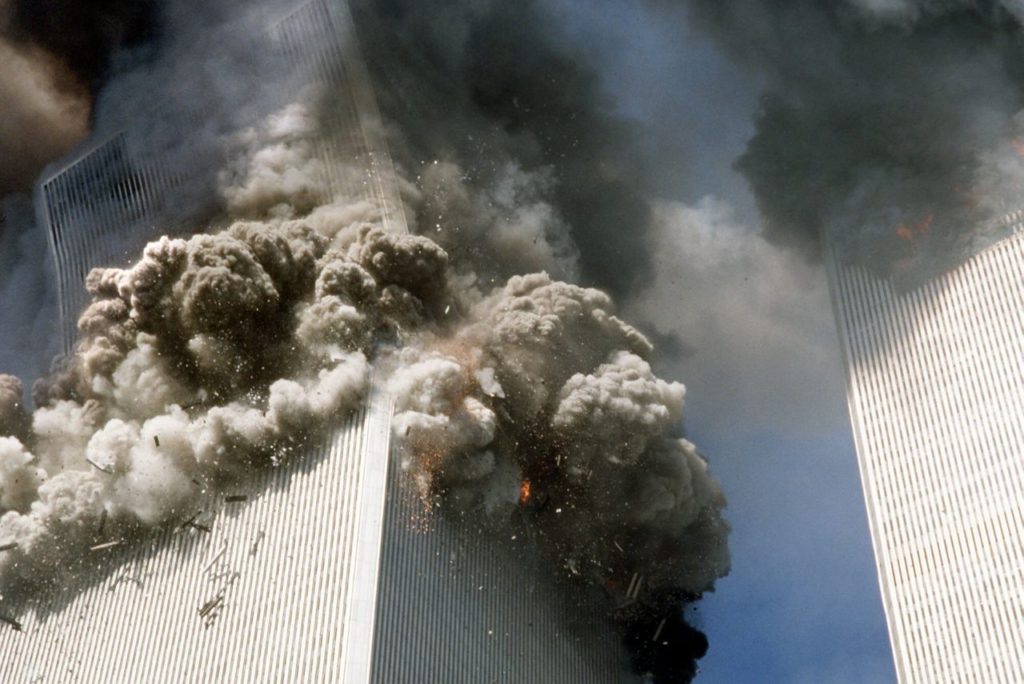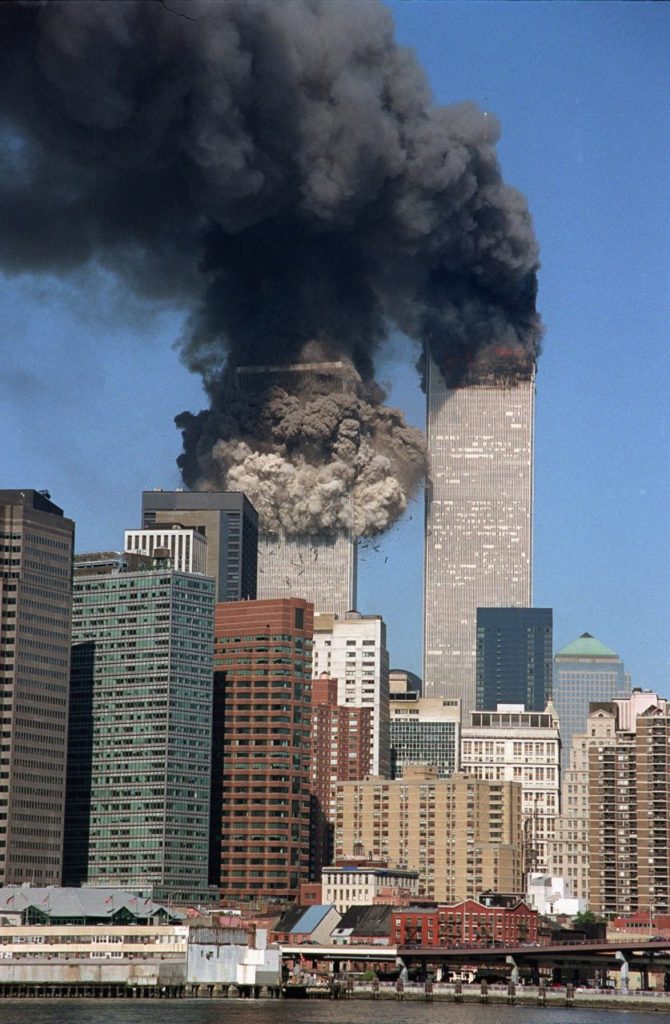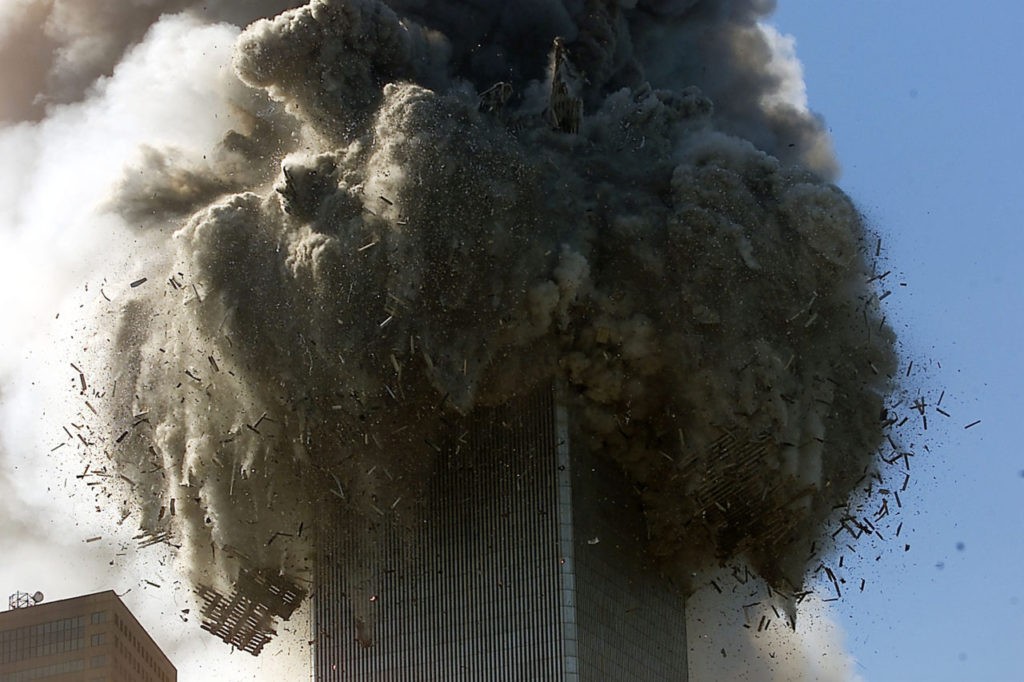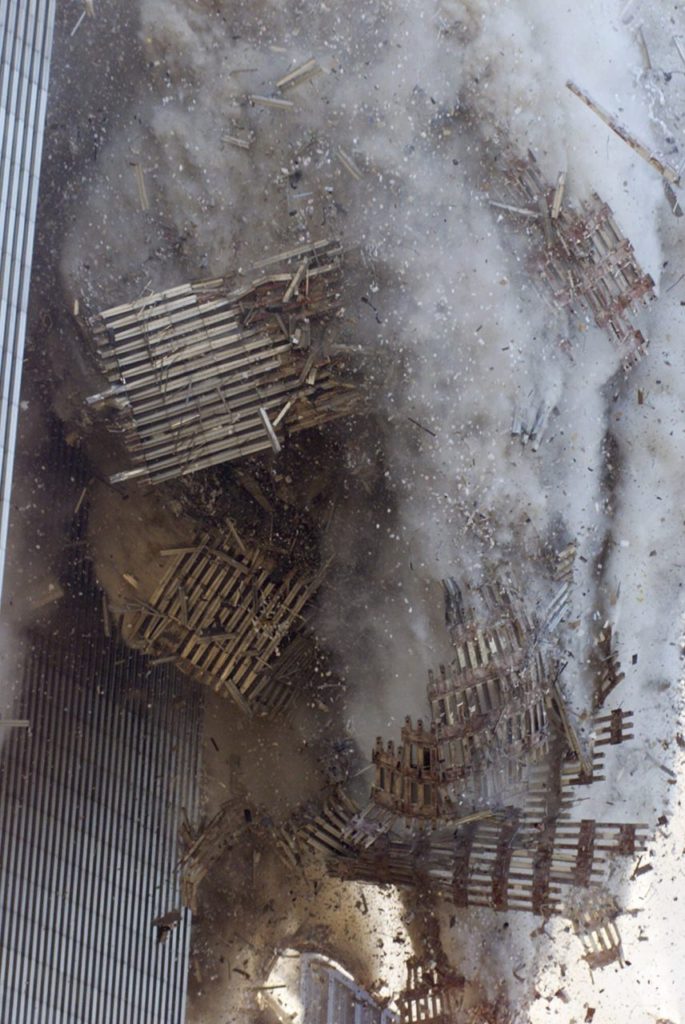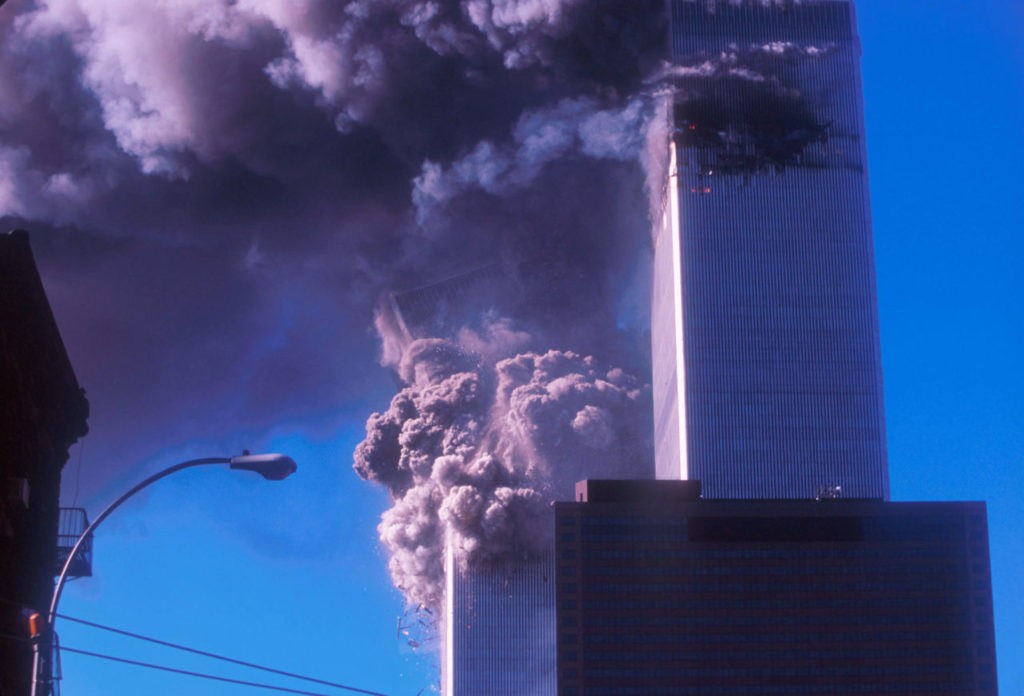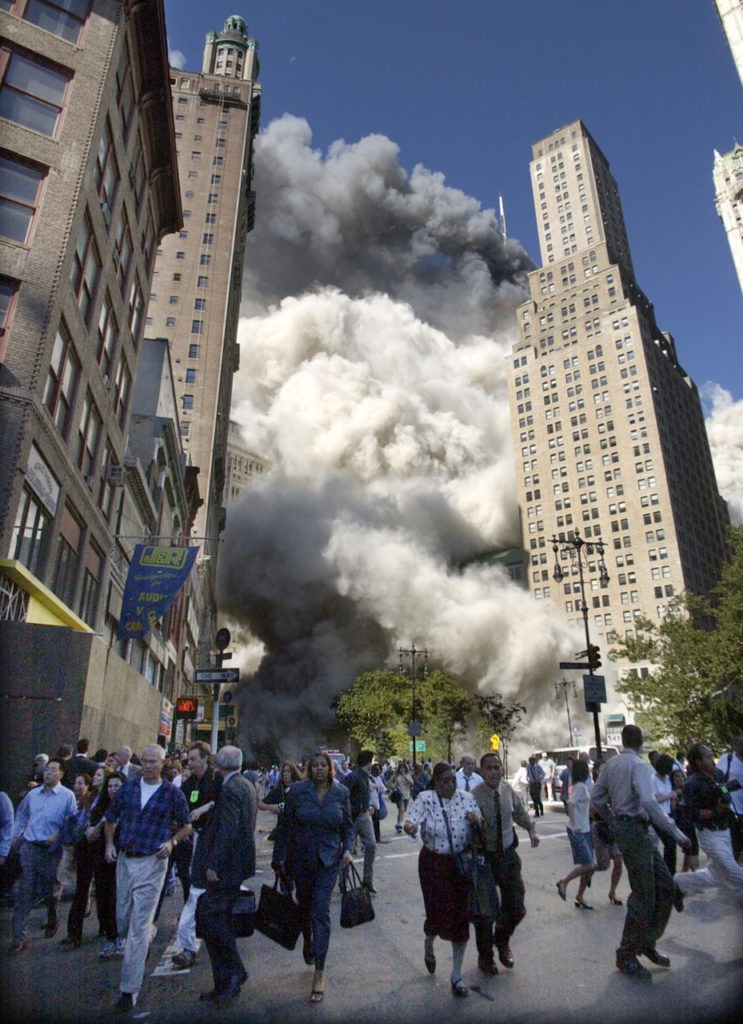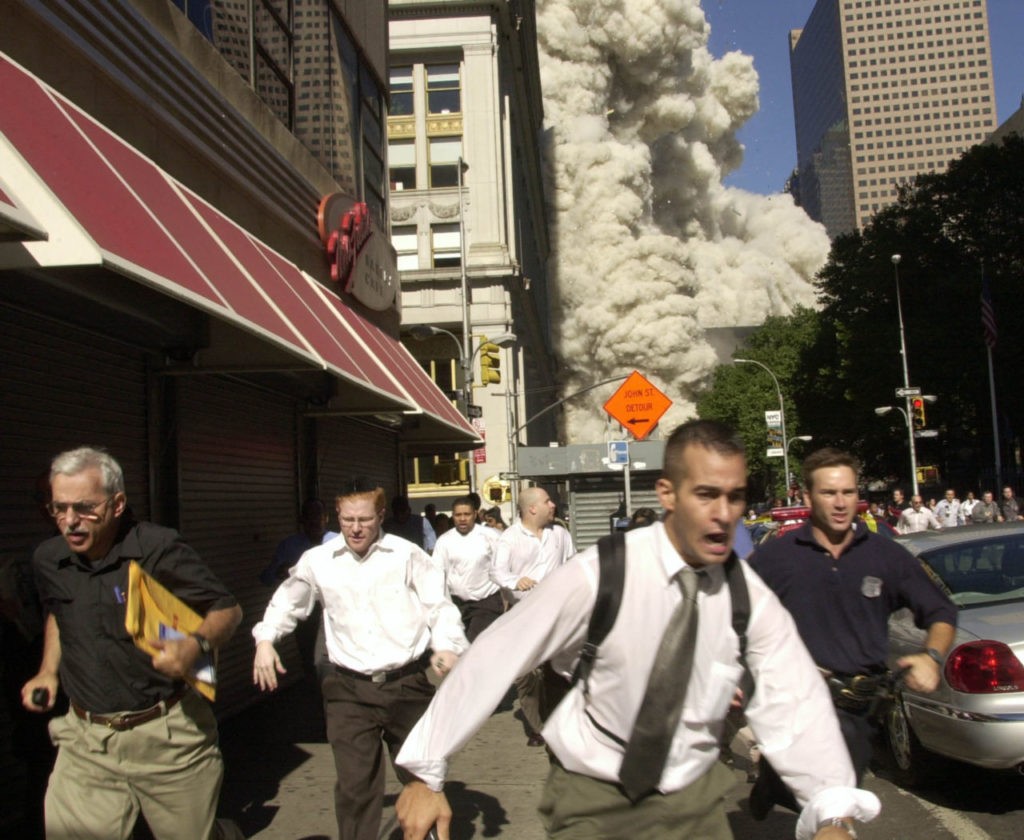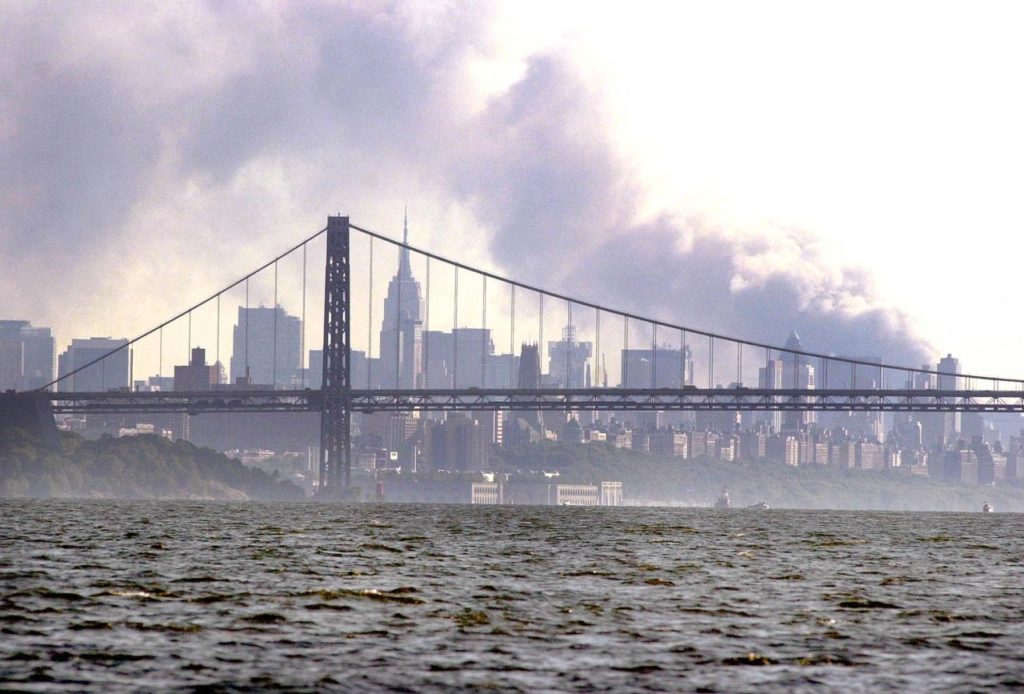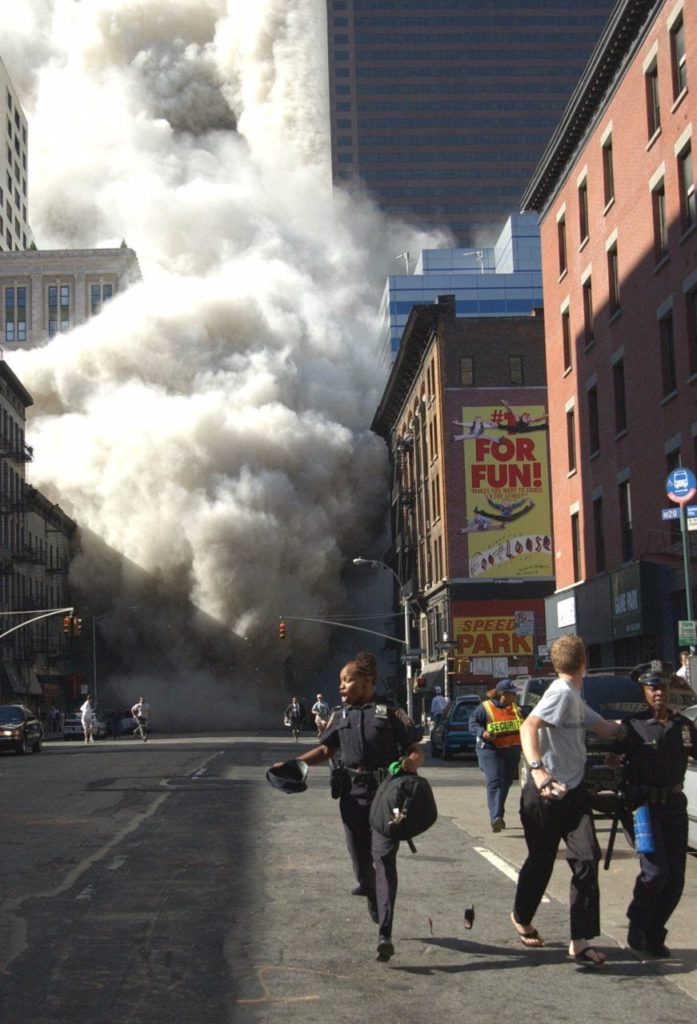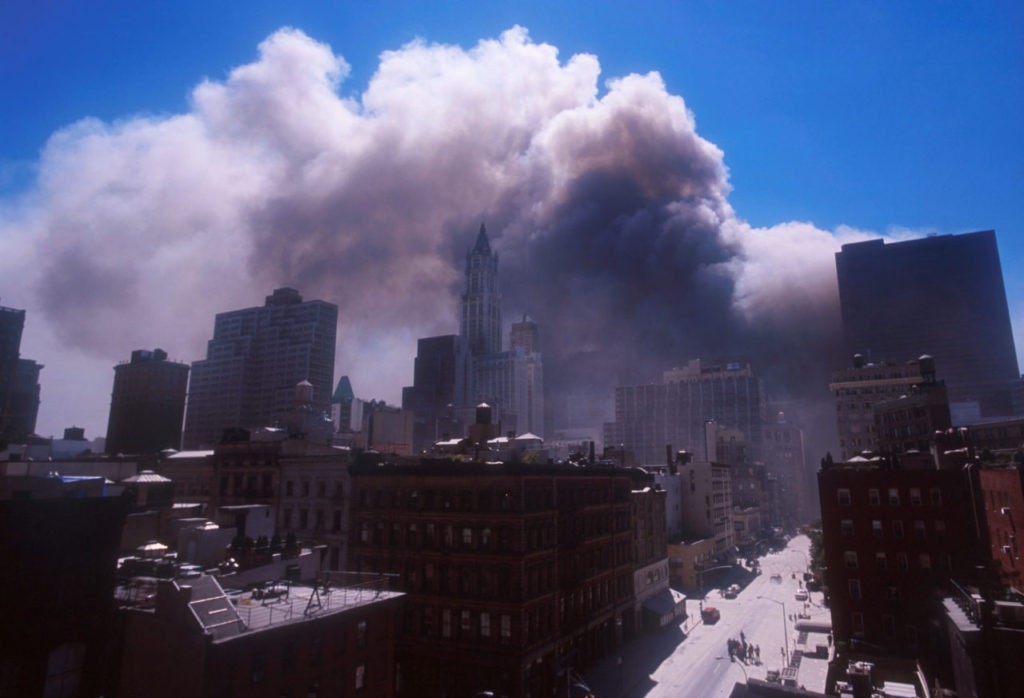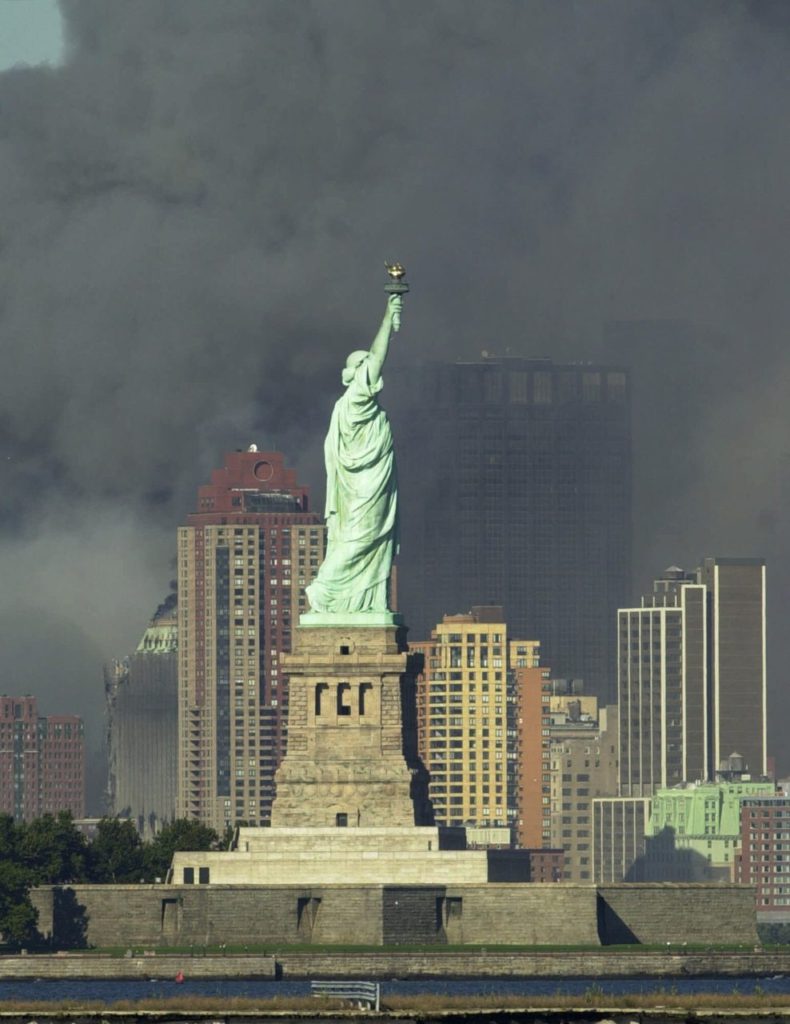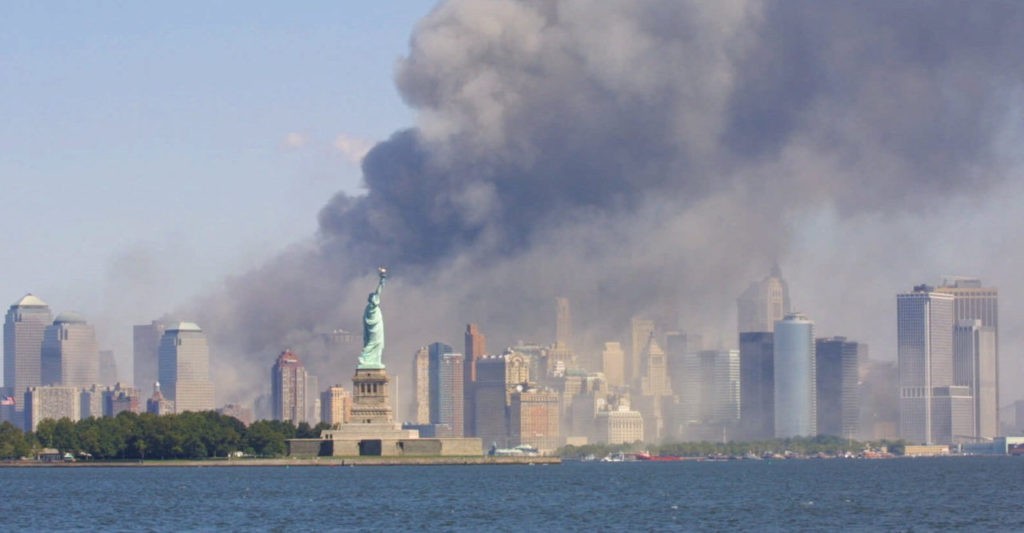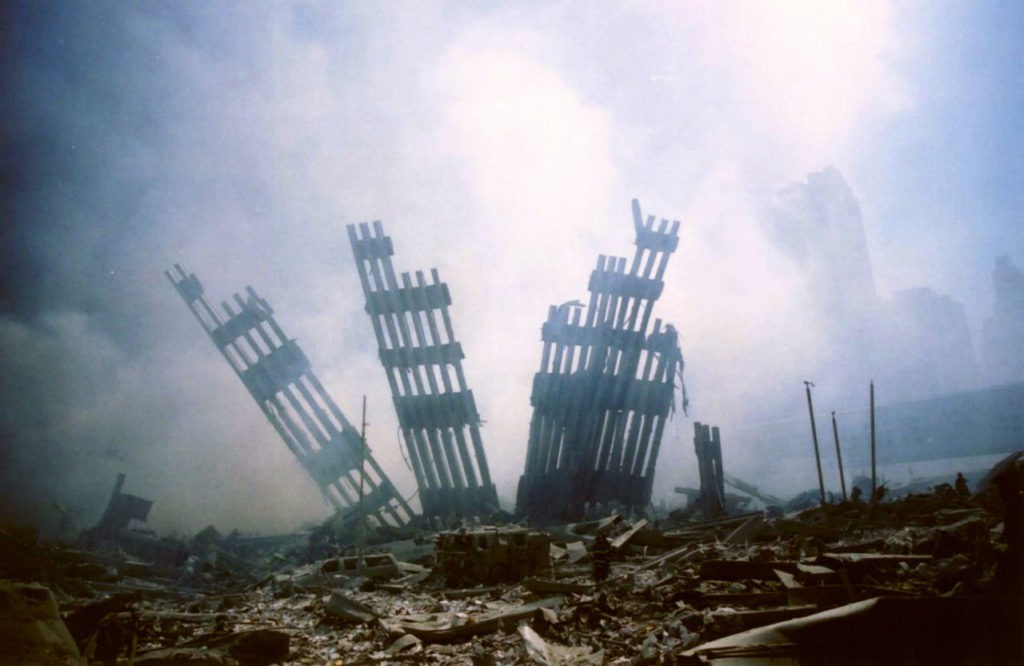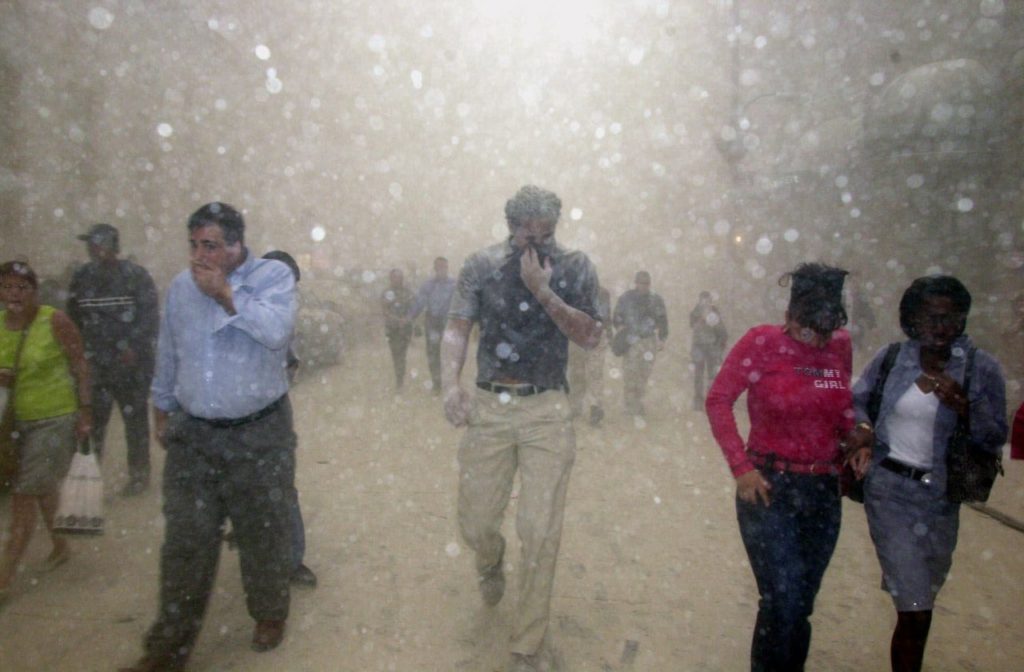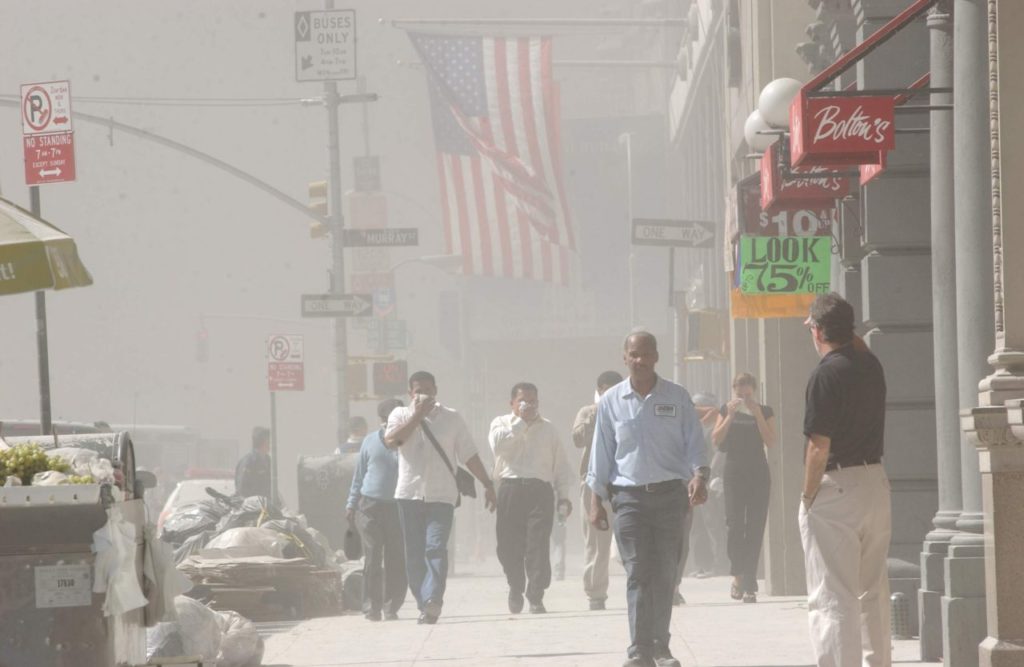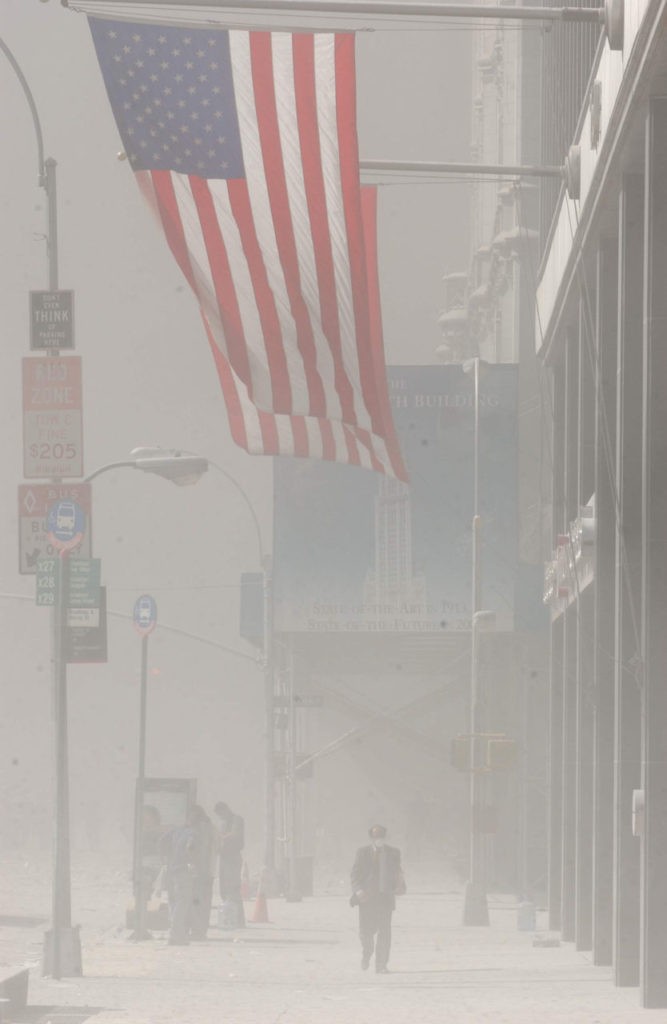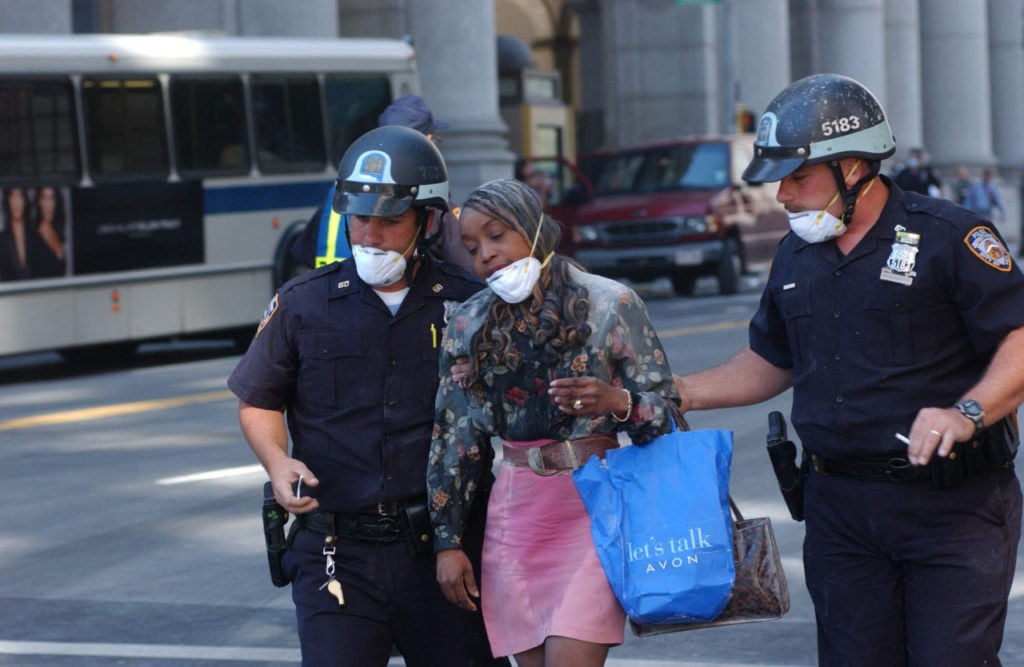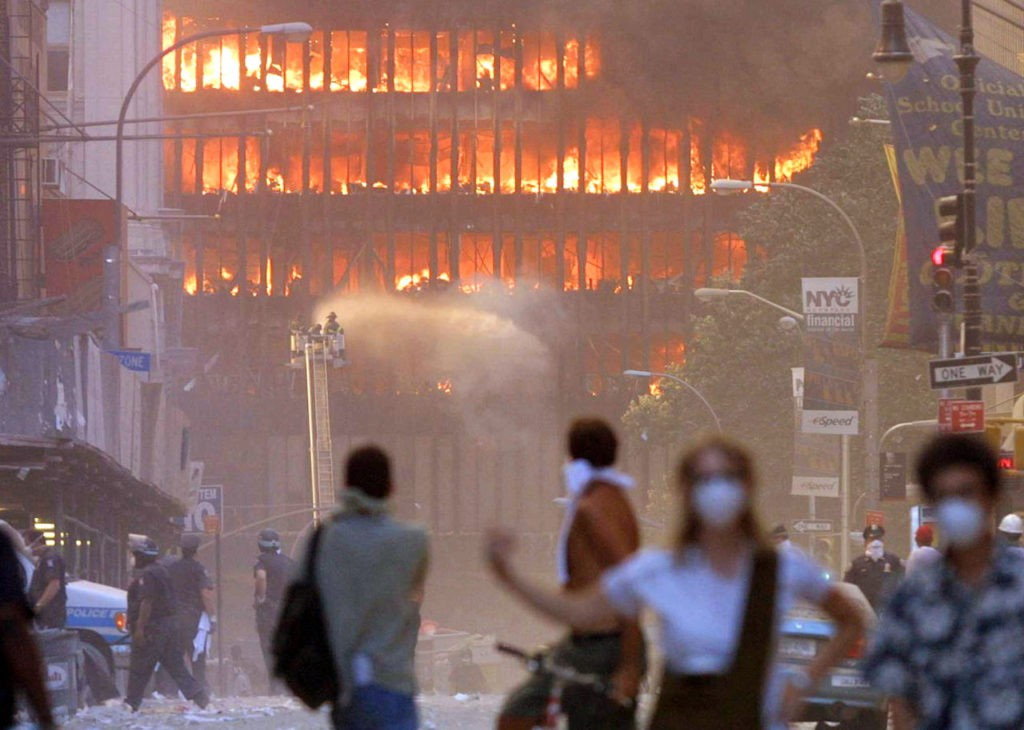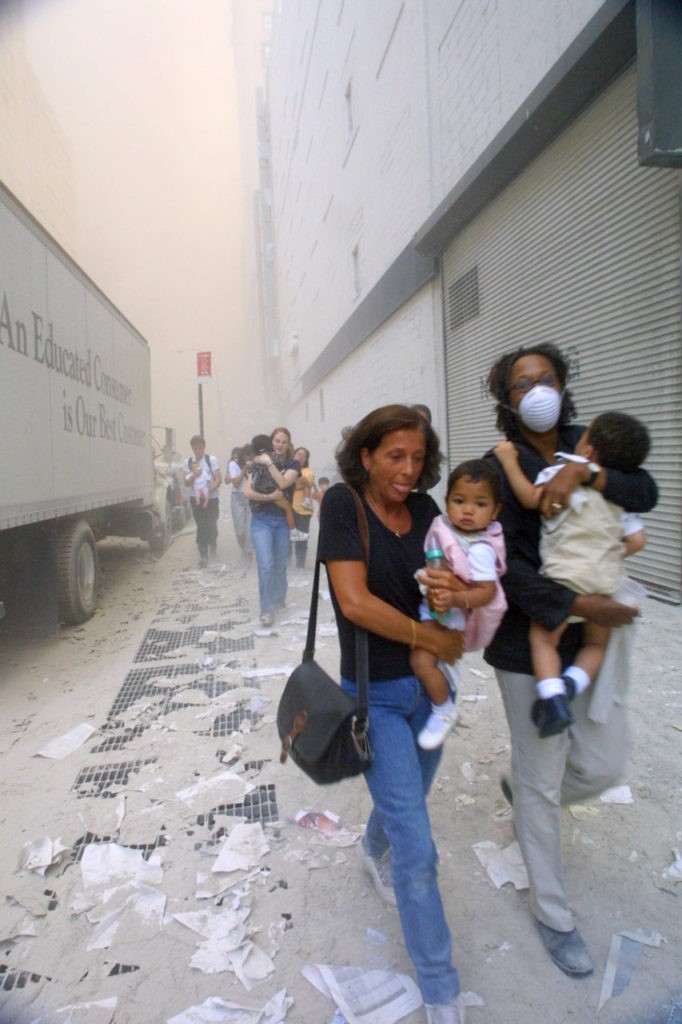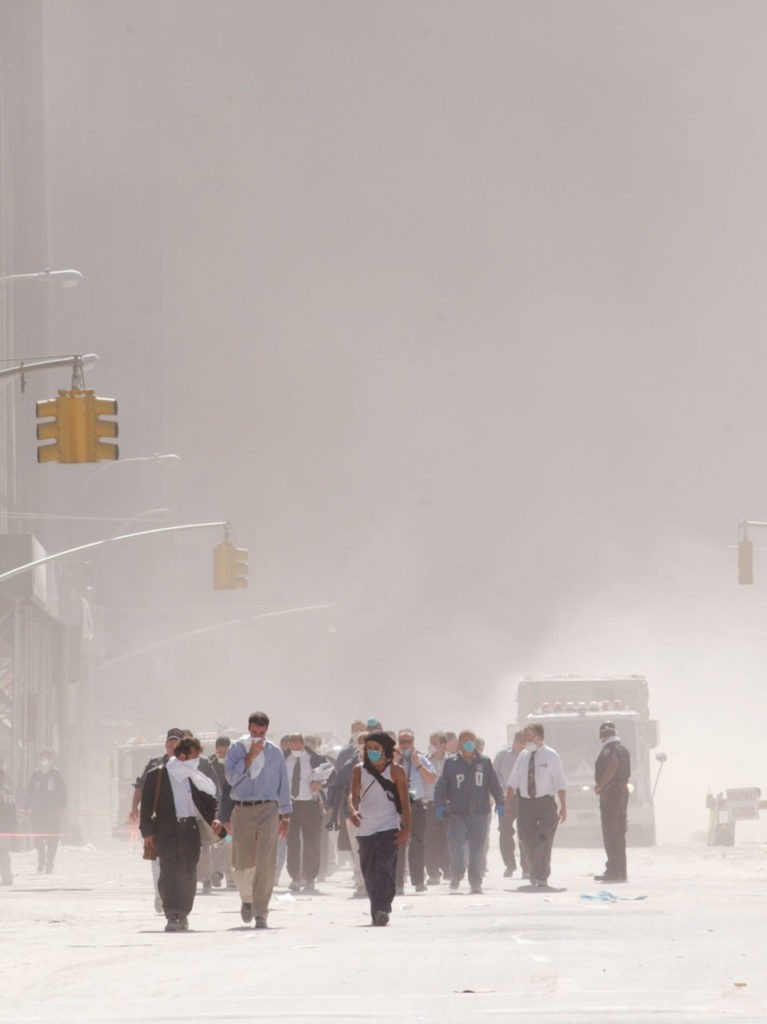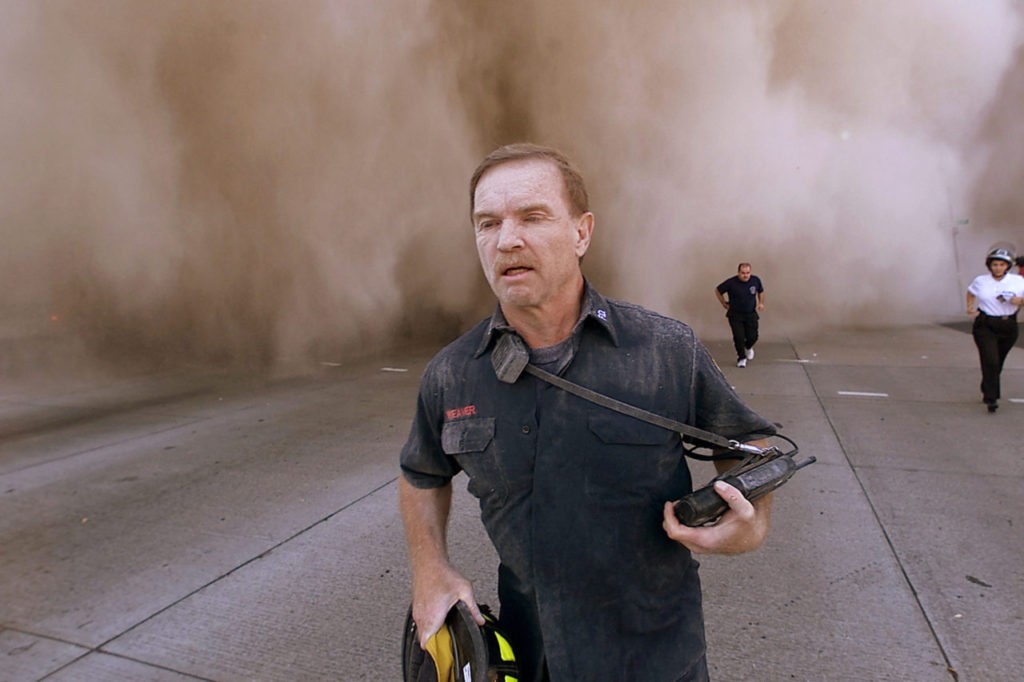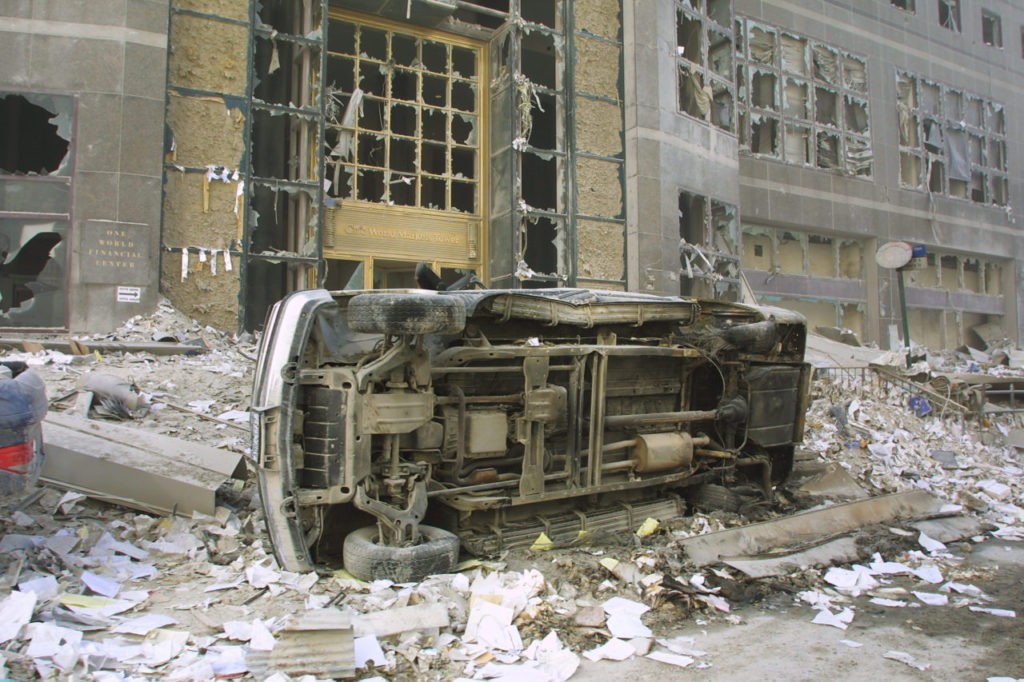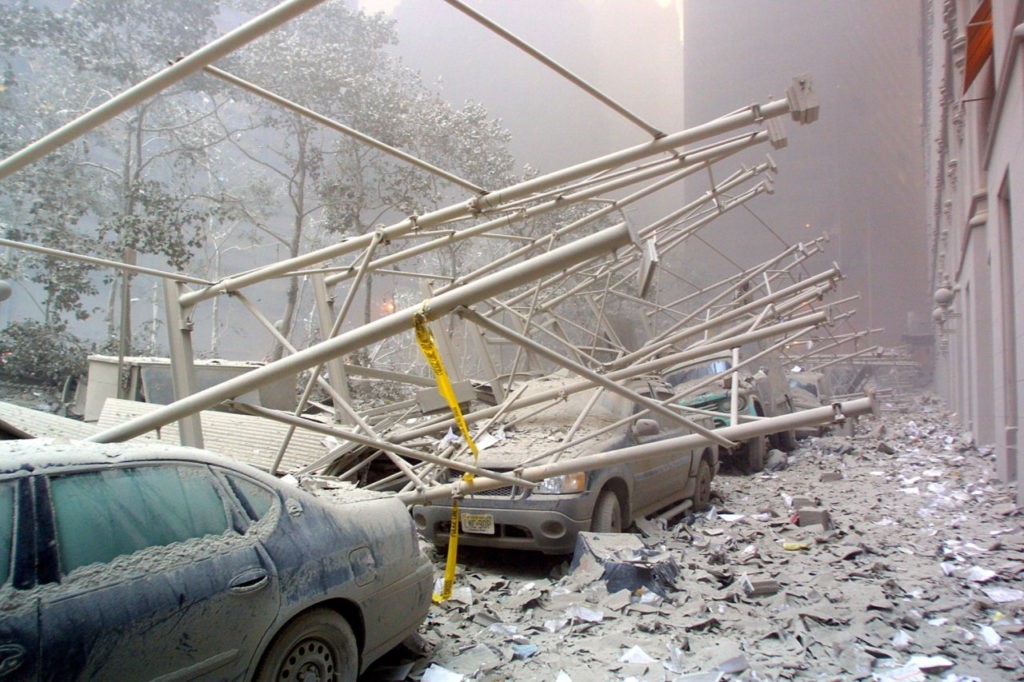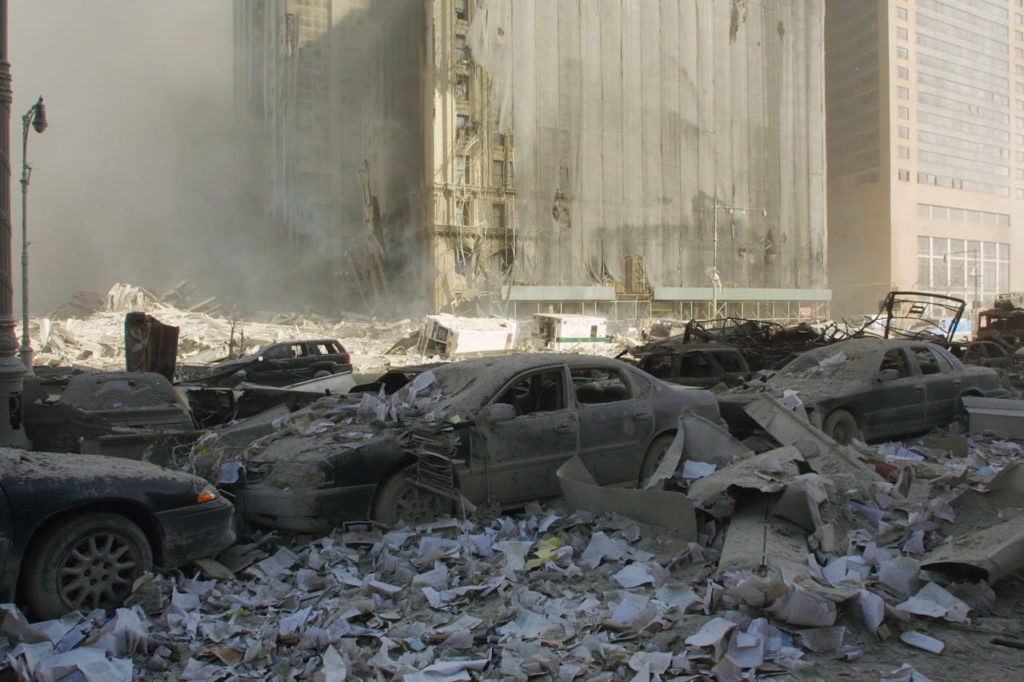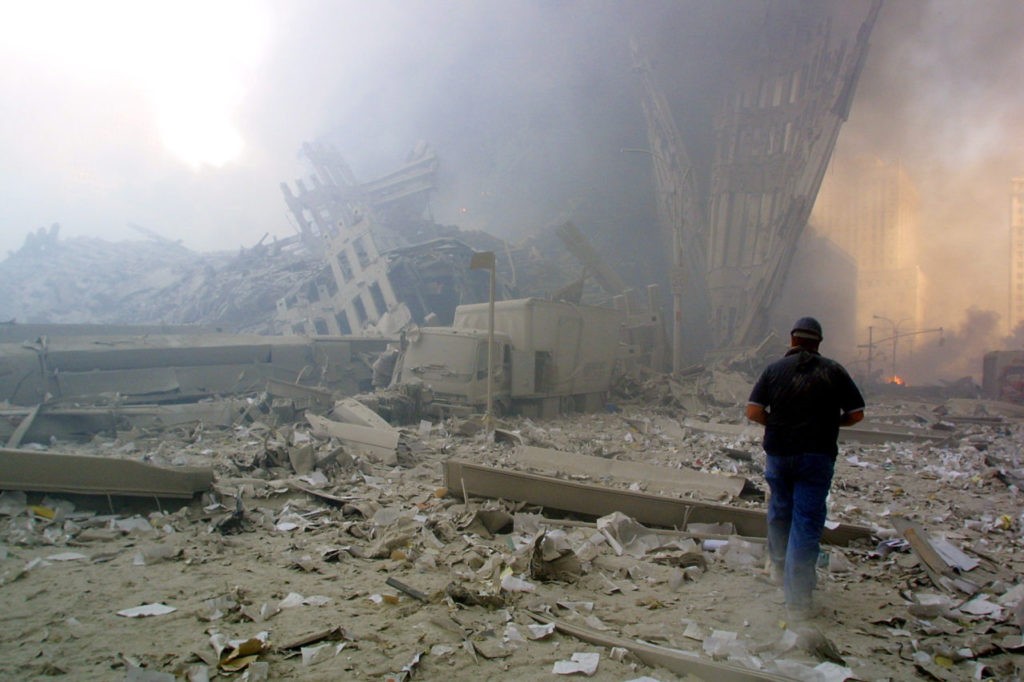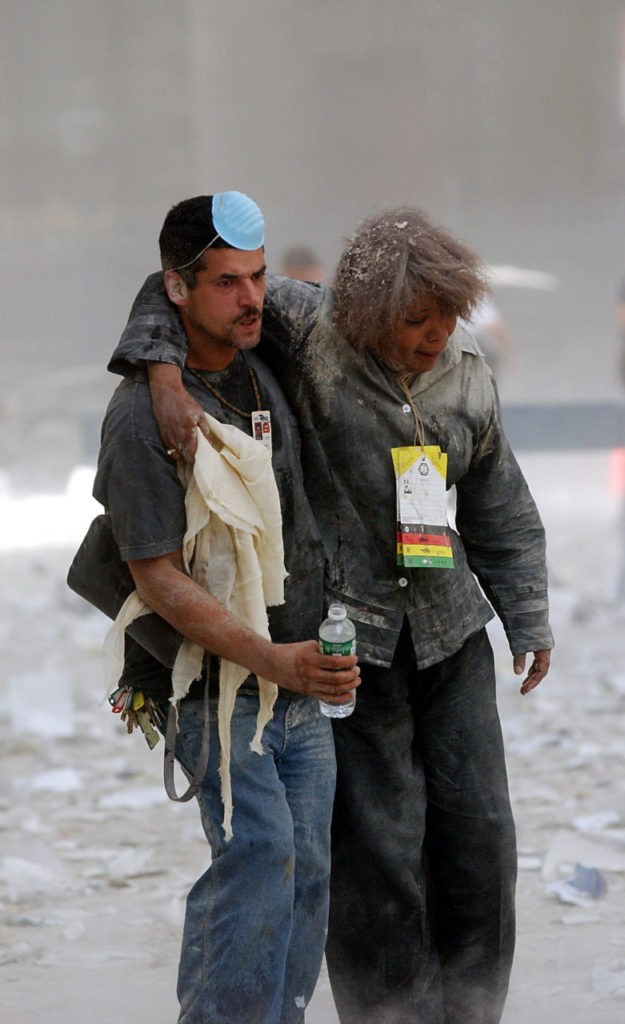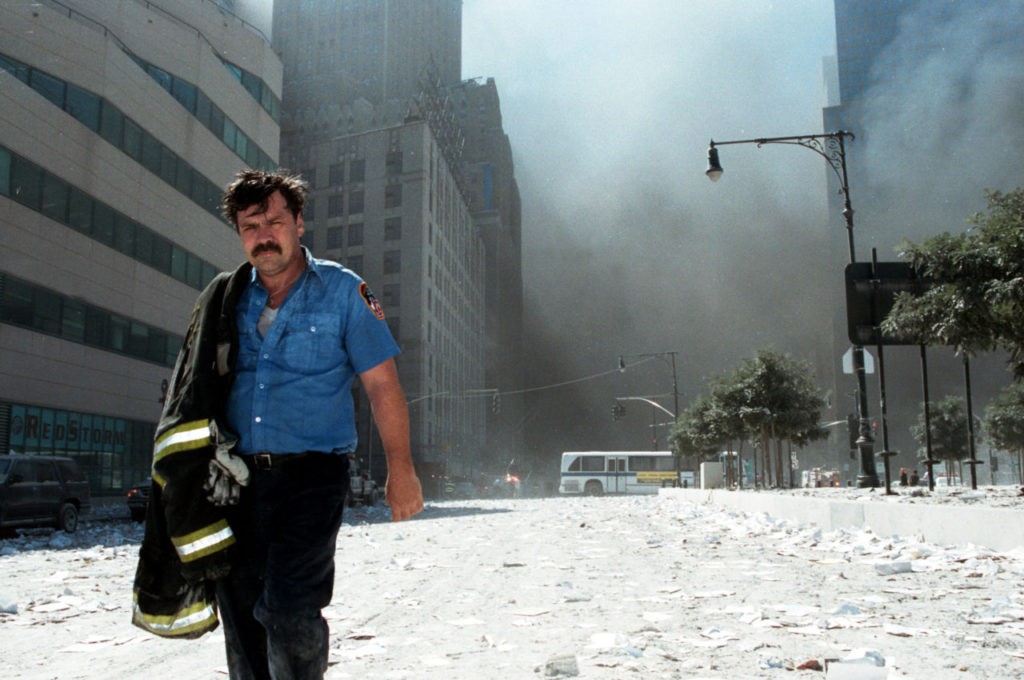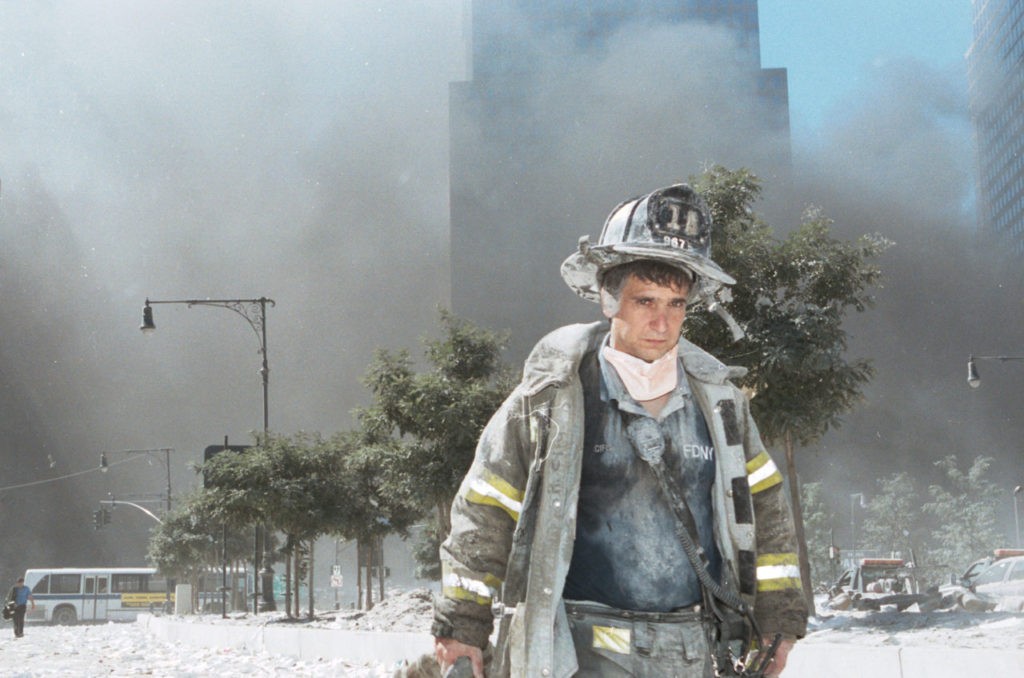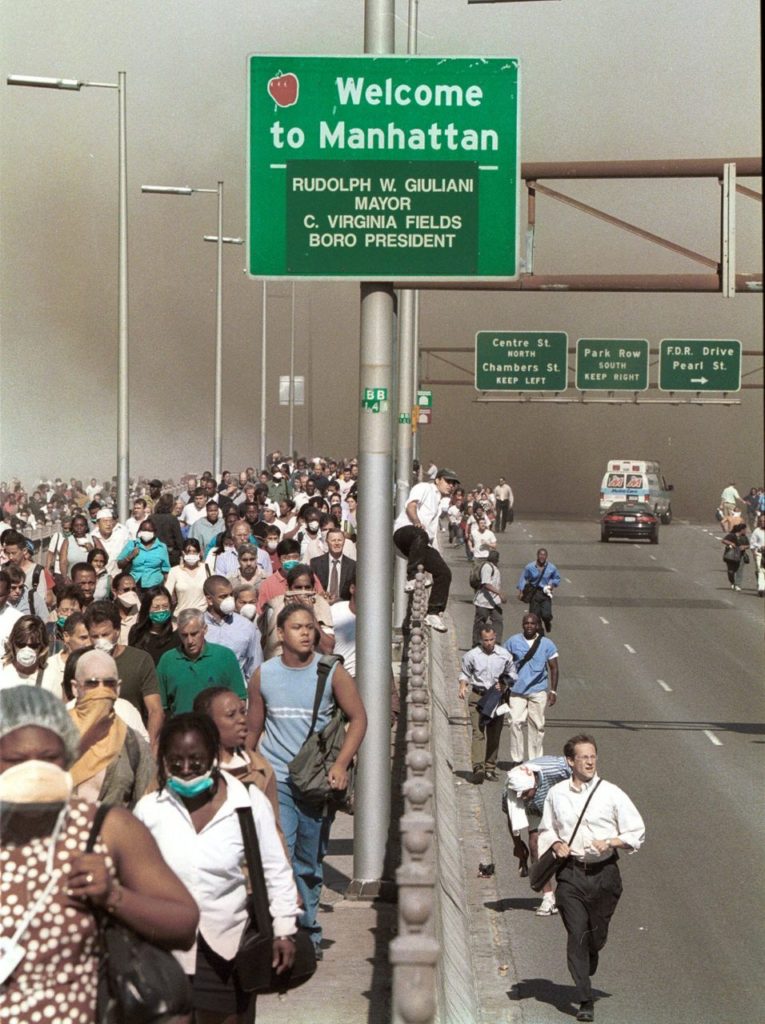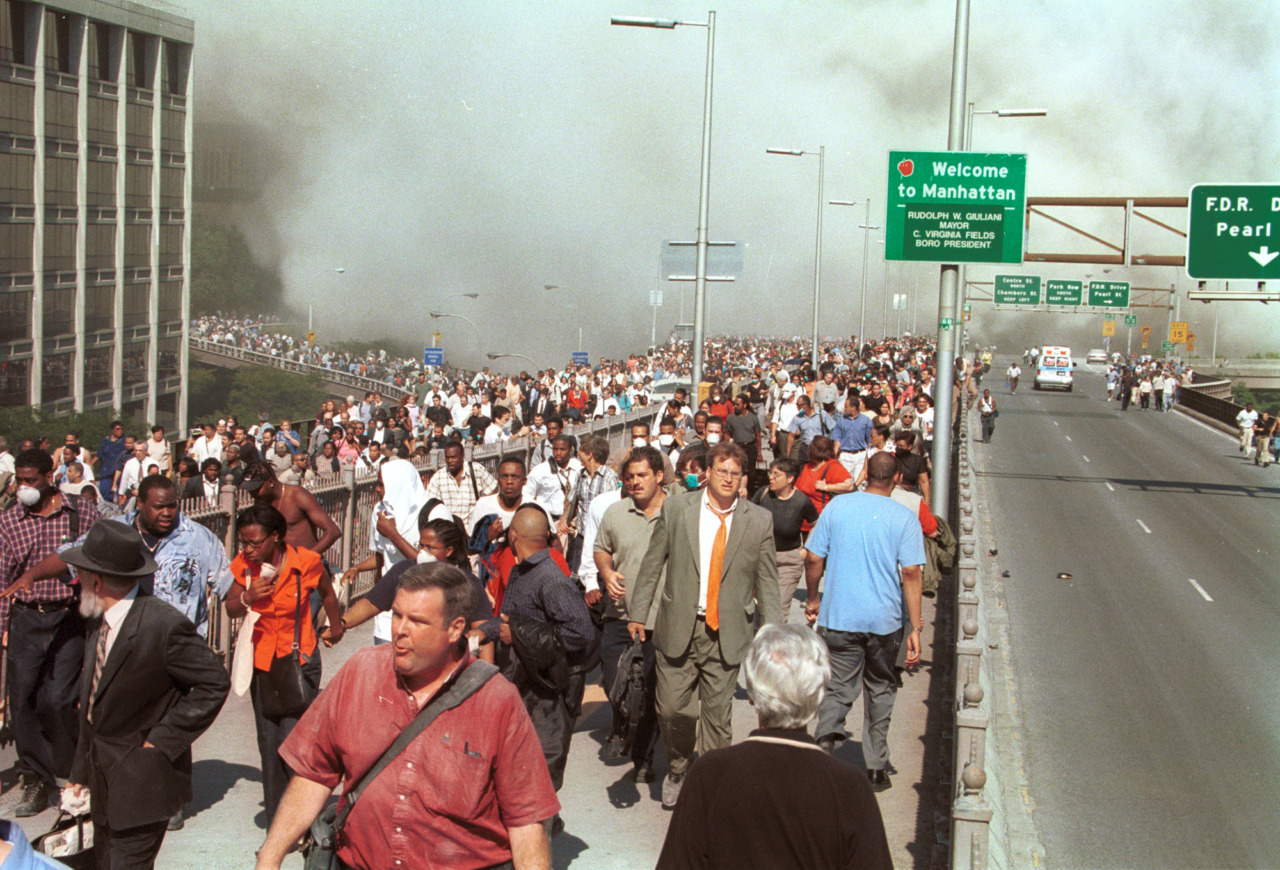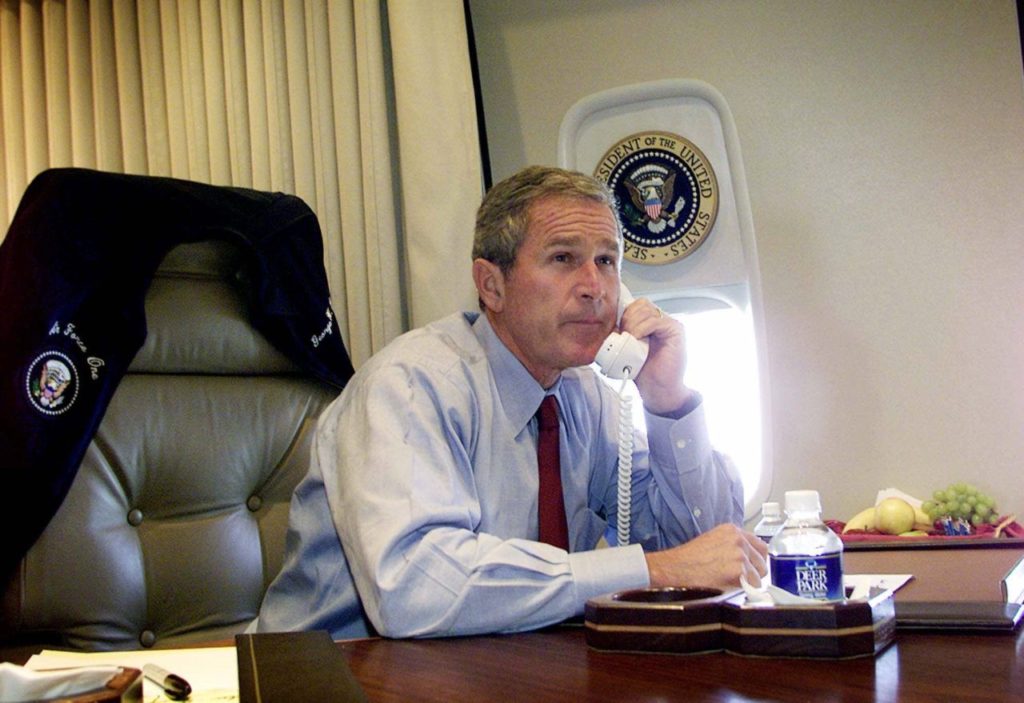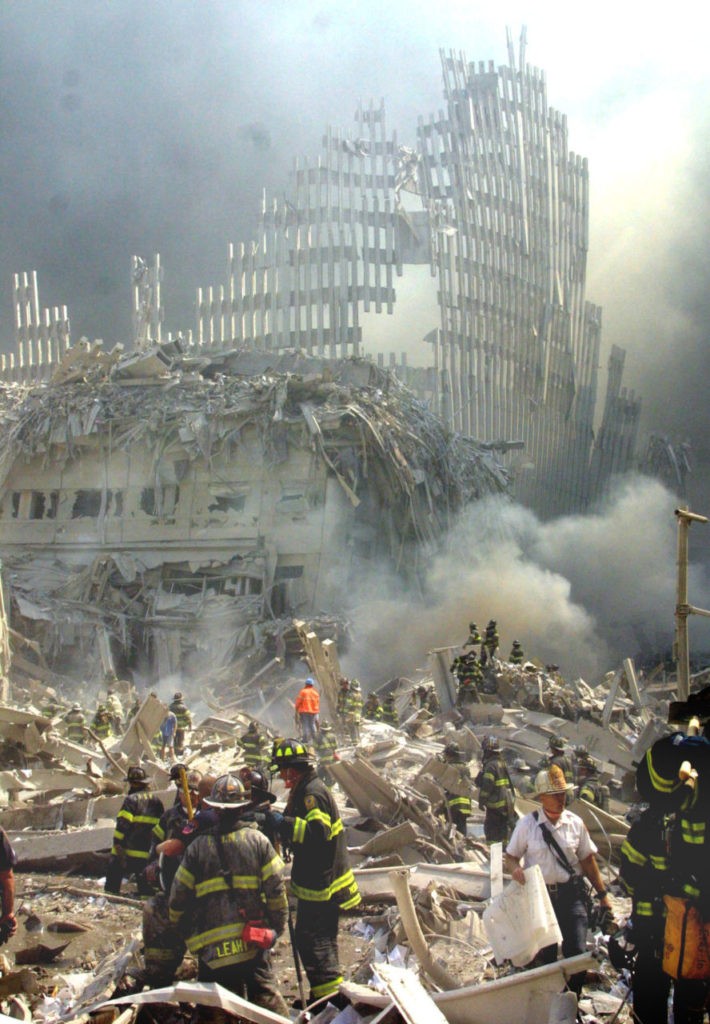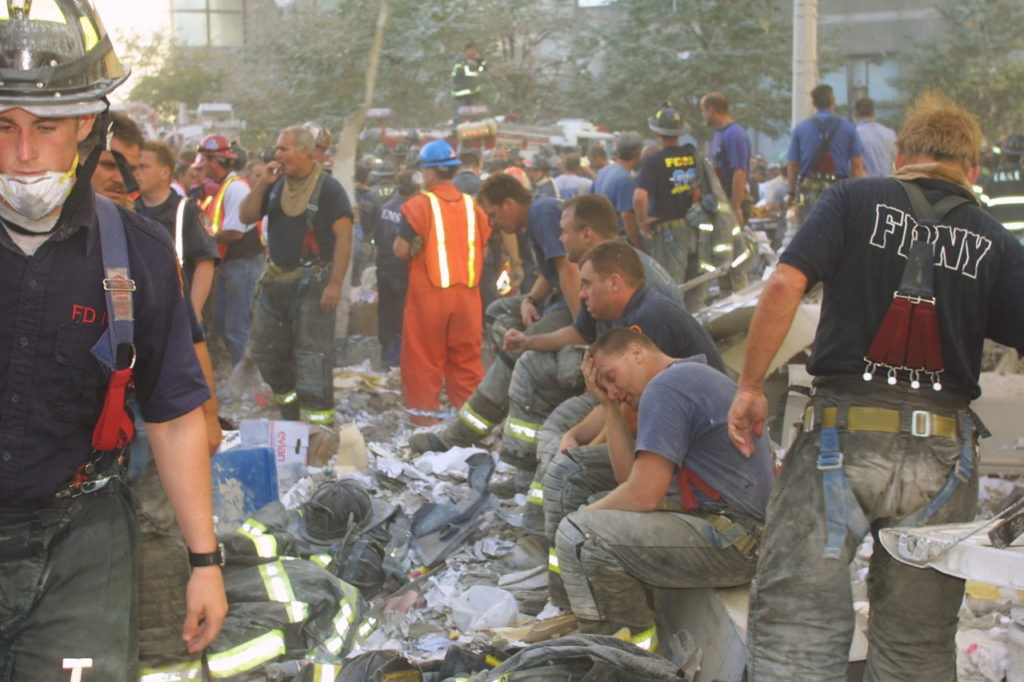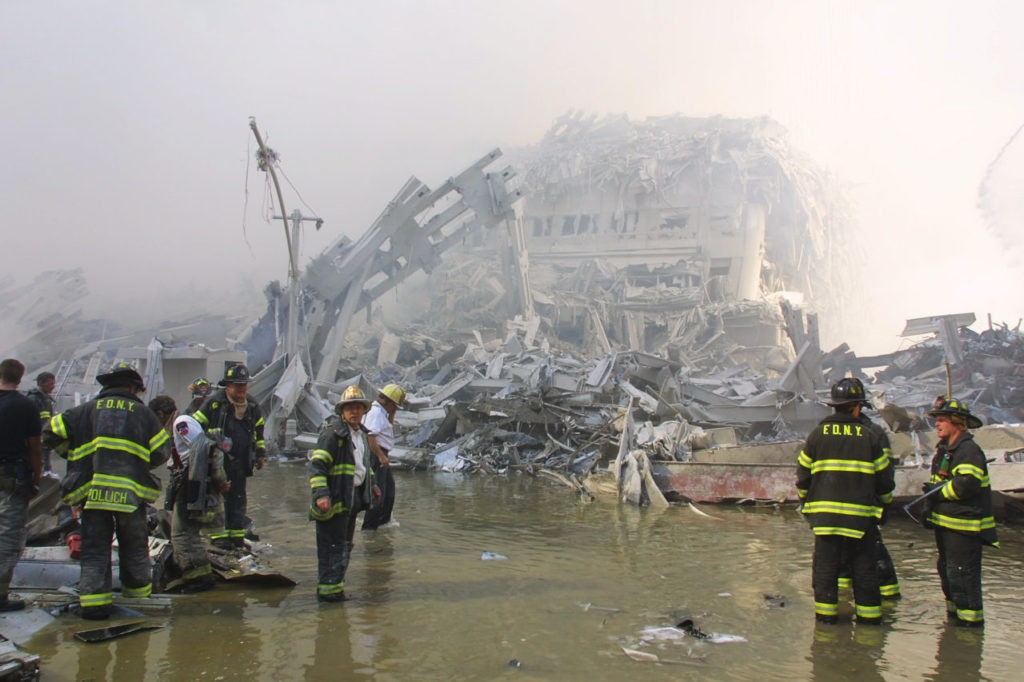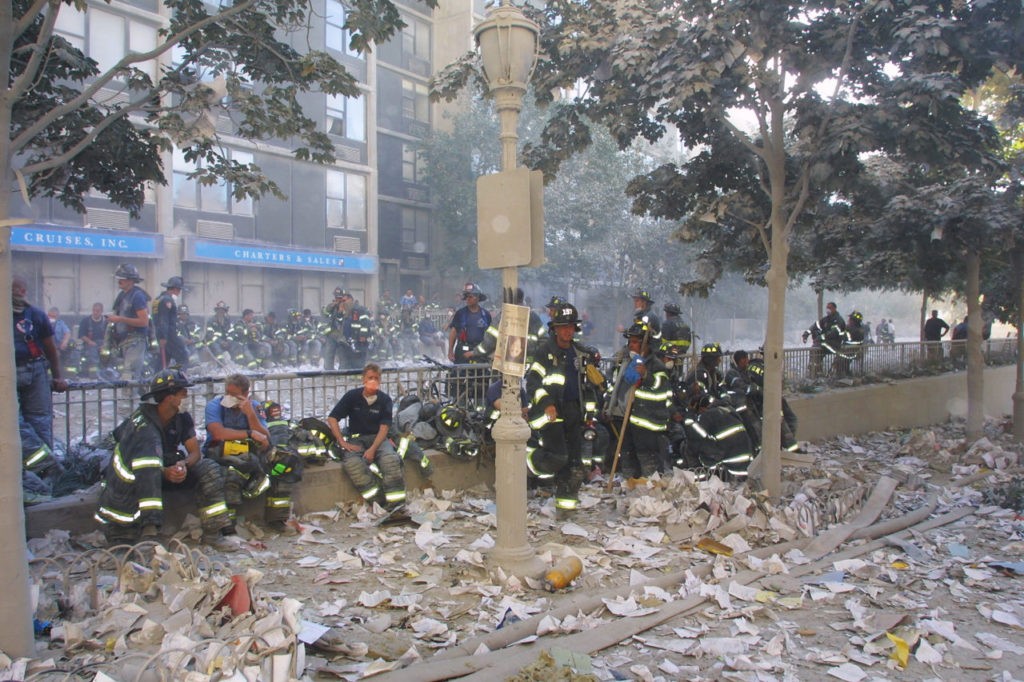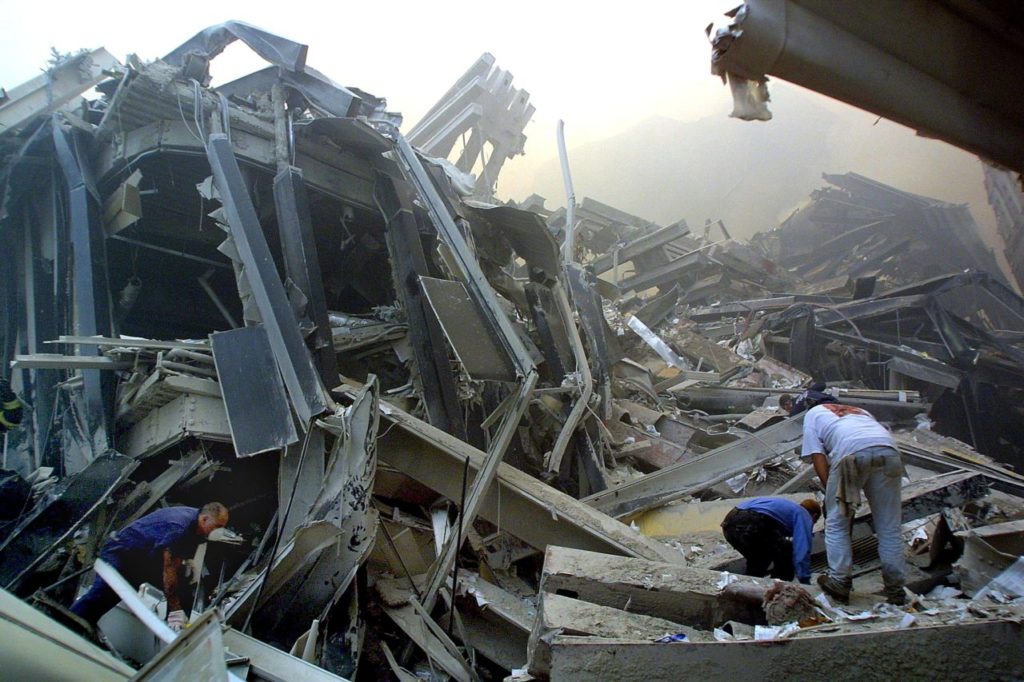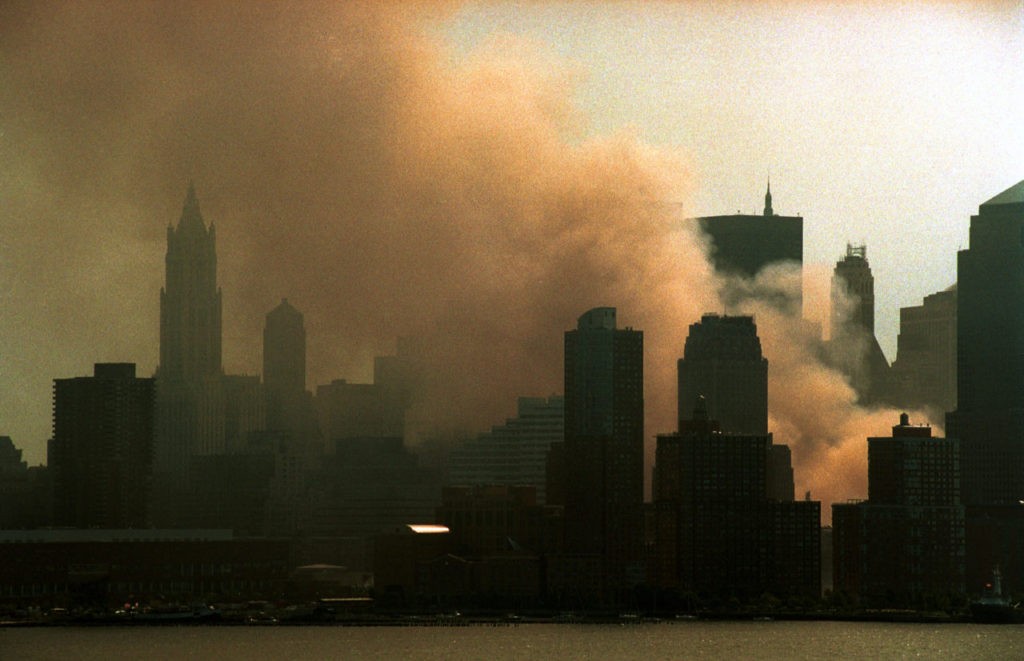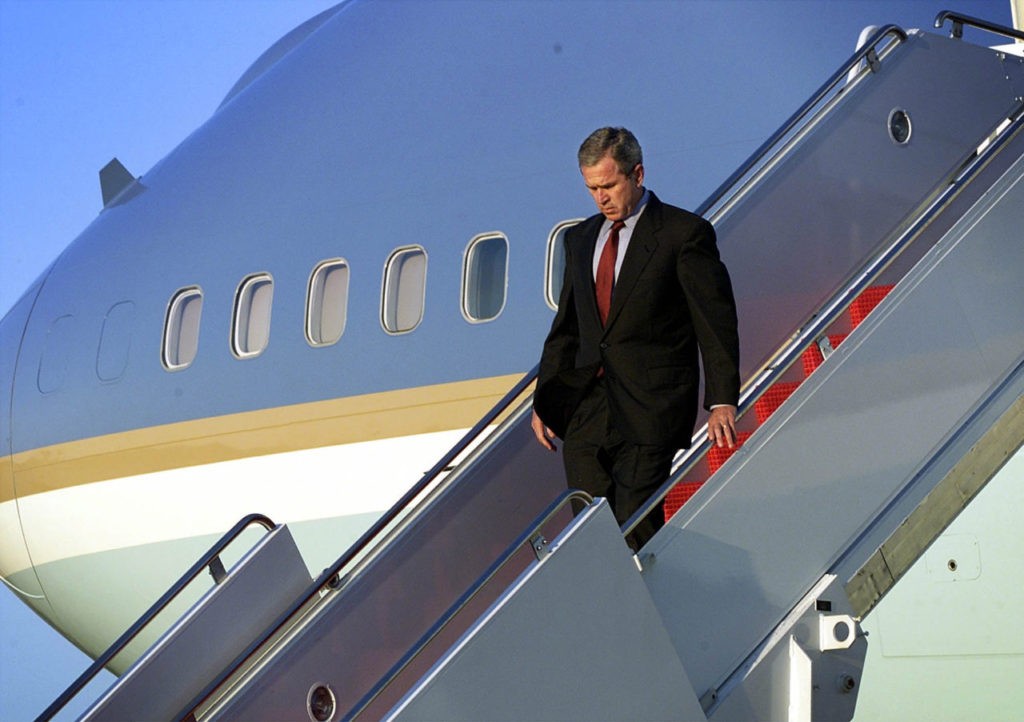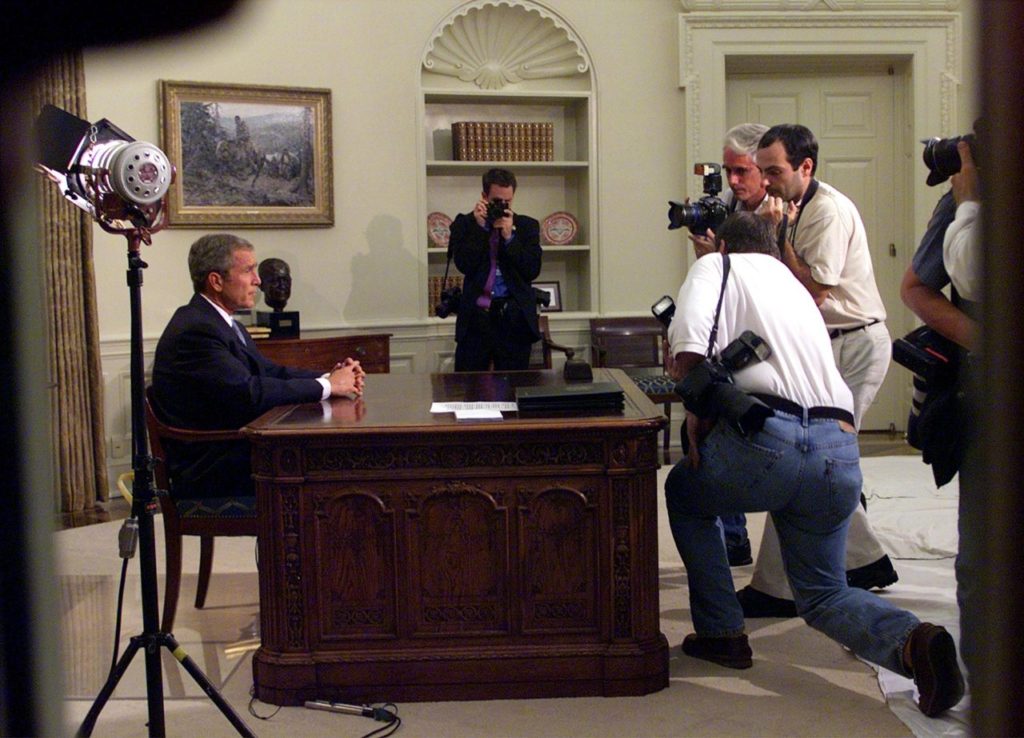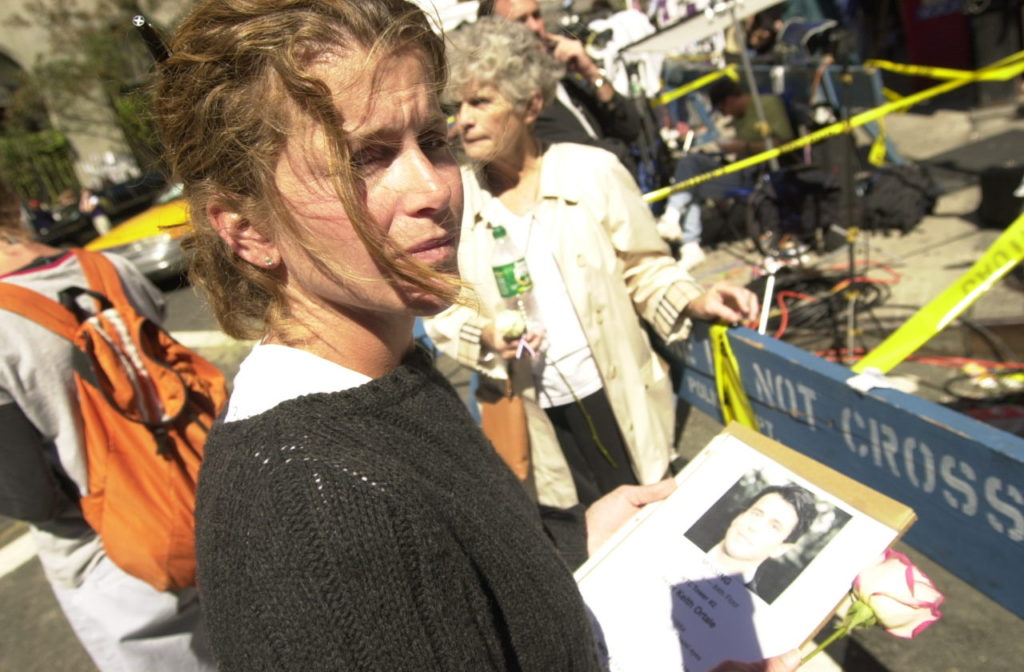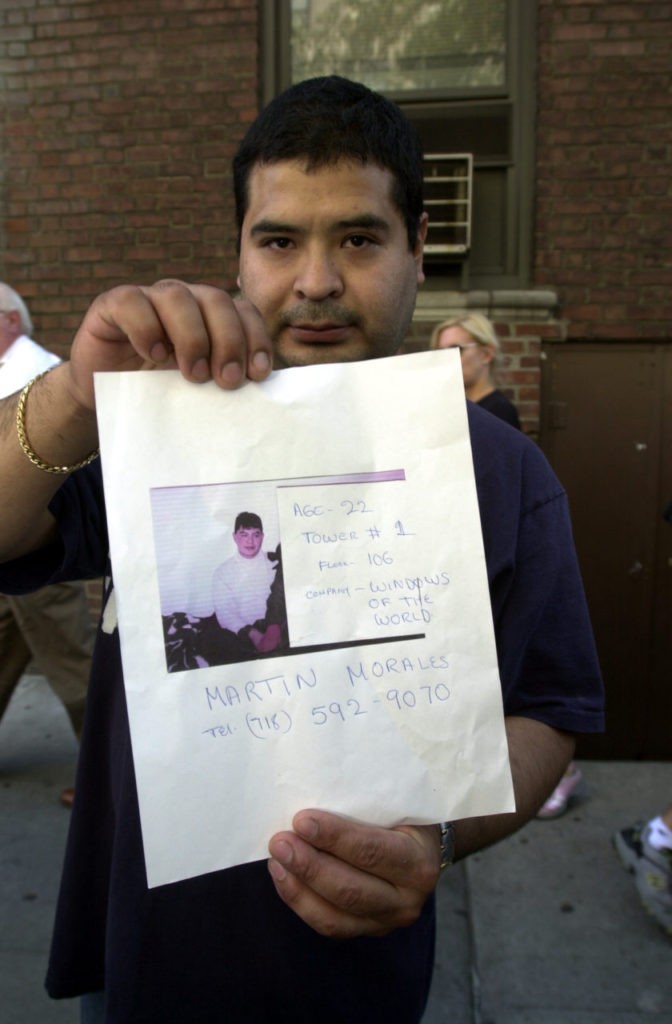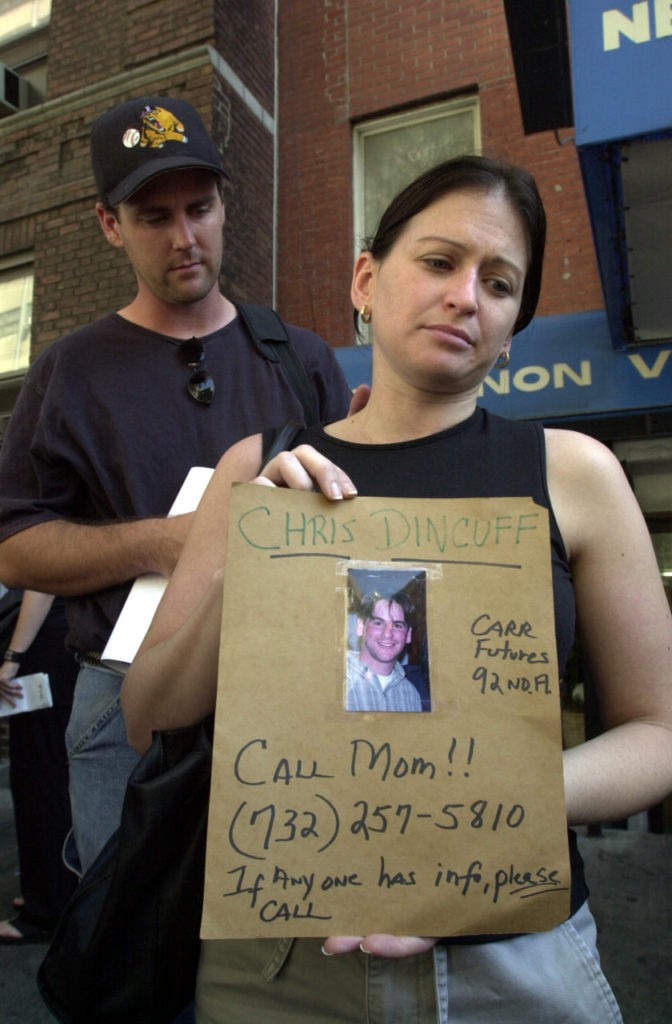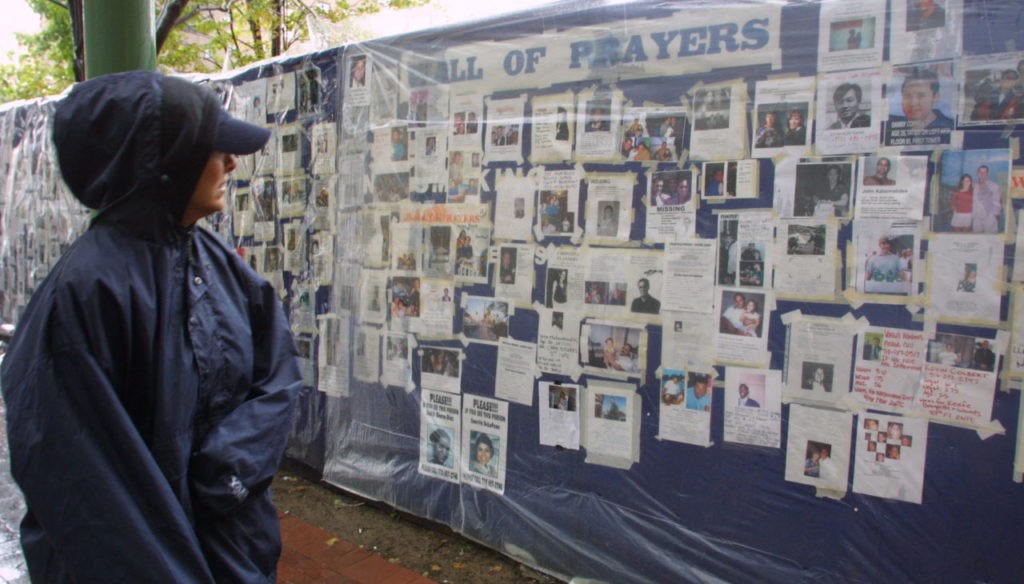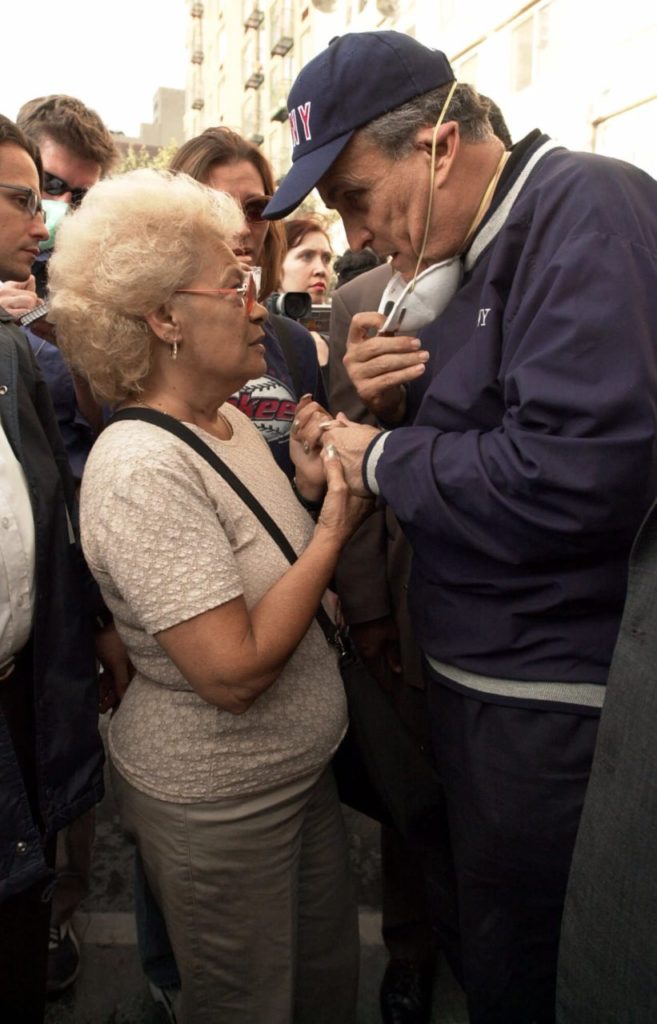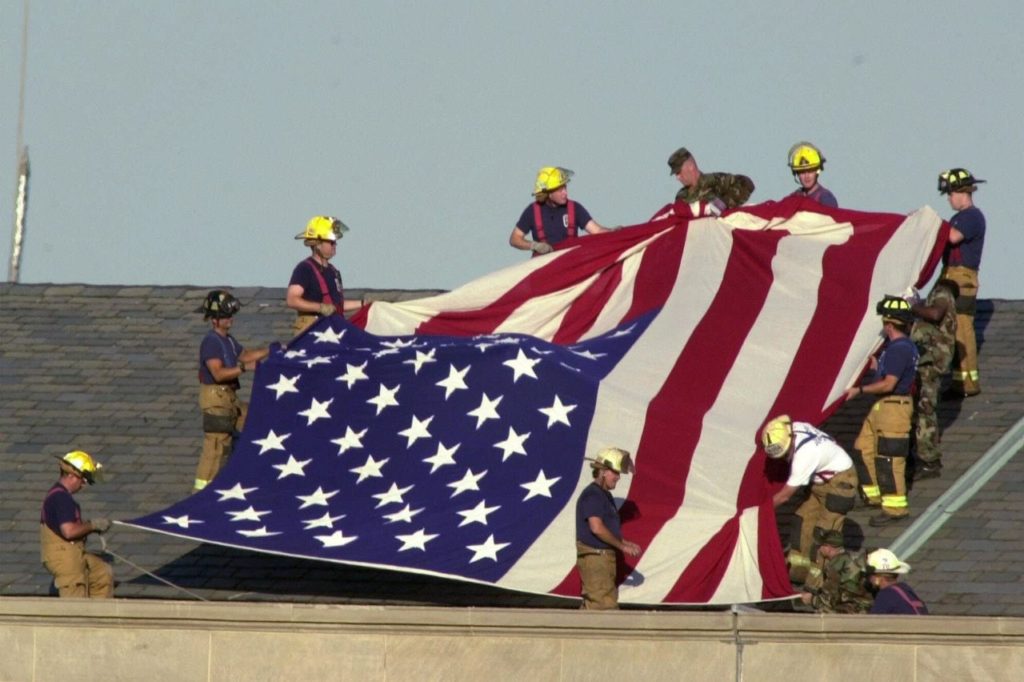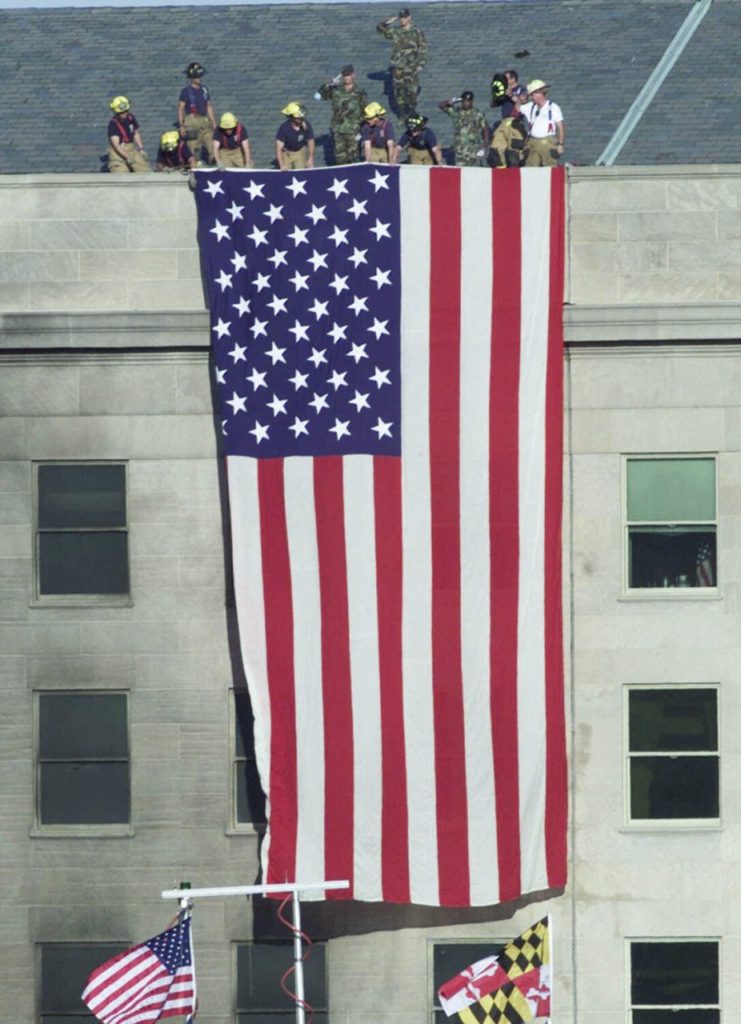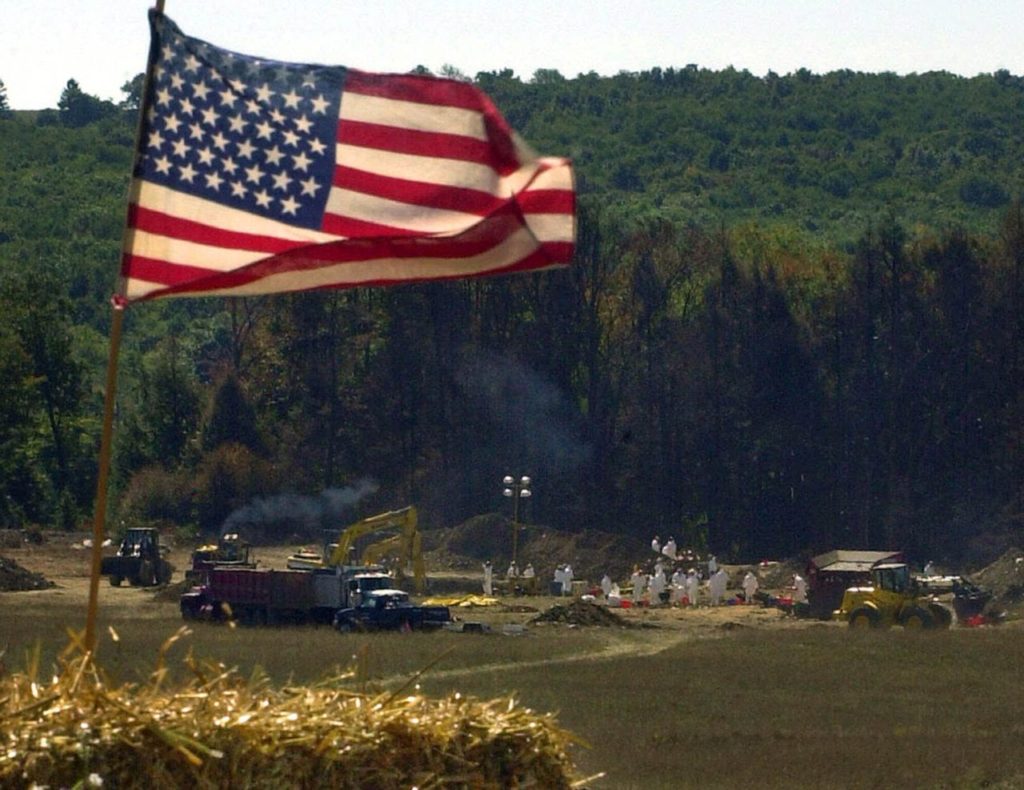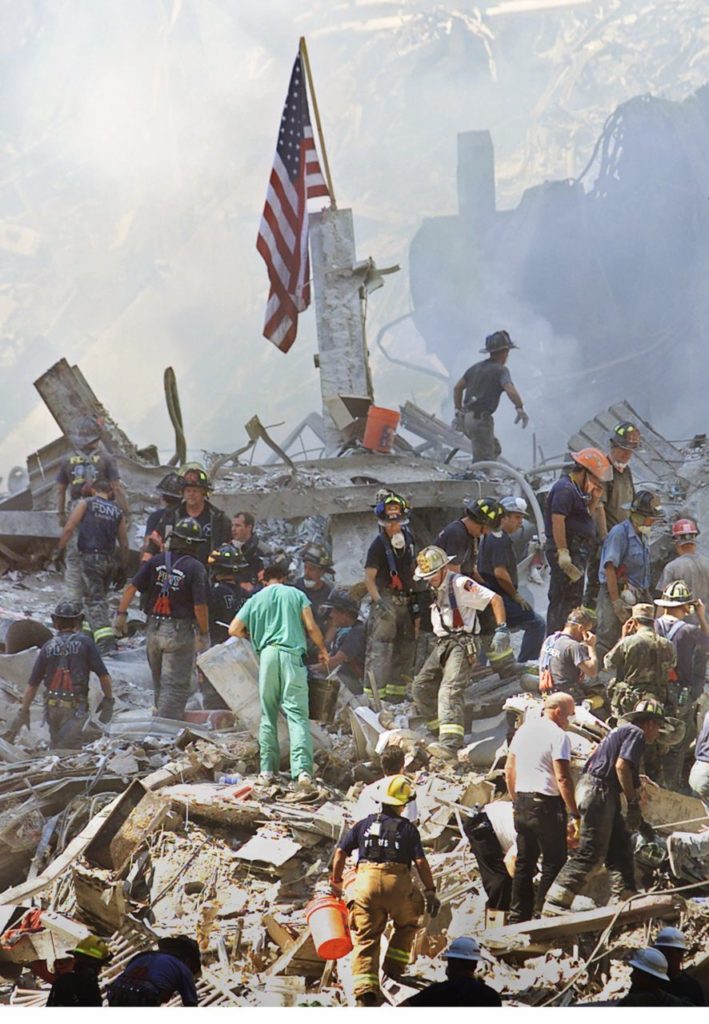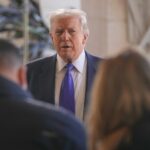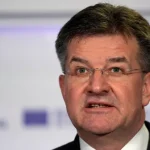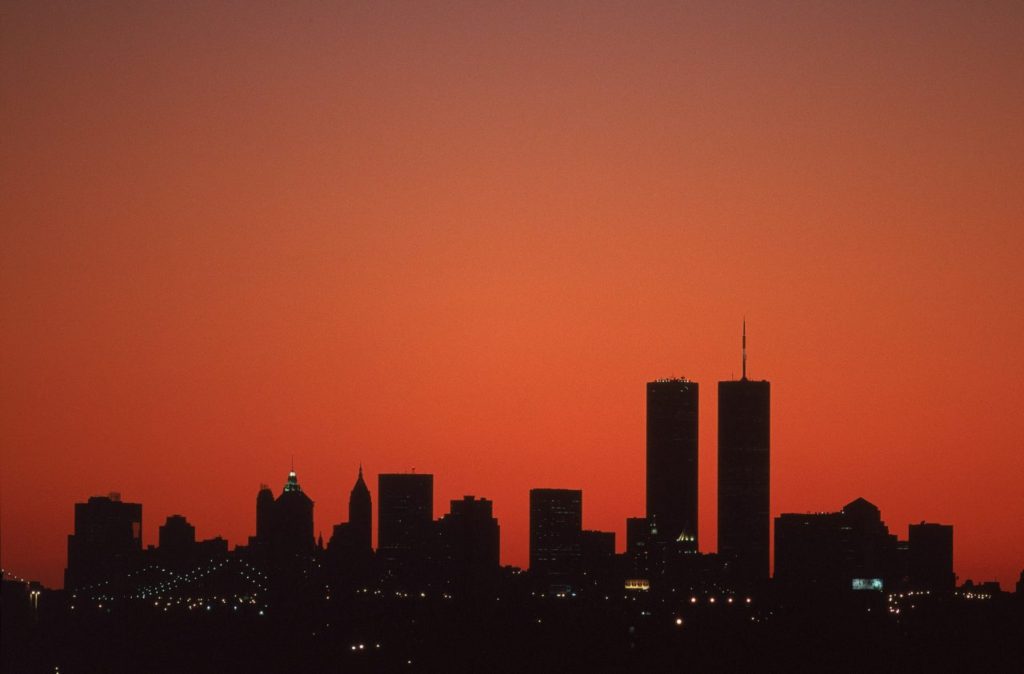
The whole world experienced the attacks of September 11, 2001, in real time. Videos, photos, and audio captured the horror inflicted by Islamic terrorists and the heroism displayed by ordinary Americans forced onto the frontlines of a sudden new war.
In 2021, to mark the twentieth anniversary of 9/11 and to ensure that future generations never forget, Breitbart News assembled the following visual chronicle of the day that changed the world forever and the two decades of war that followed it.
***
From the time of its opening in 1973 to that fatal day in September 2001, the Twin Towers of the World Trade Center dominated the skyline of Lower Manhattan’s Financial District, as seen in the following photograph taken just six days before the Towers fell.
Designed by Detroit architect Minoru Yamasaki, the Twin Towers were famously disparaged by the New York Times’ architectural critic Ada Louise Huxtable, who offered this eerie and unintentionally prescient prediction in 1966: “The trade center towers could be the start of a new skyscraper age or the biggest tombstones in the world.”
Those words were long forgotten on that bright September morning before death rained down from cloudless skies.
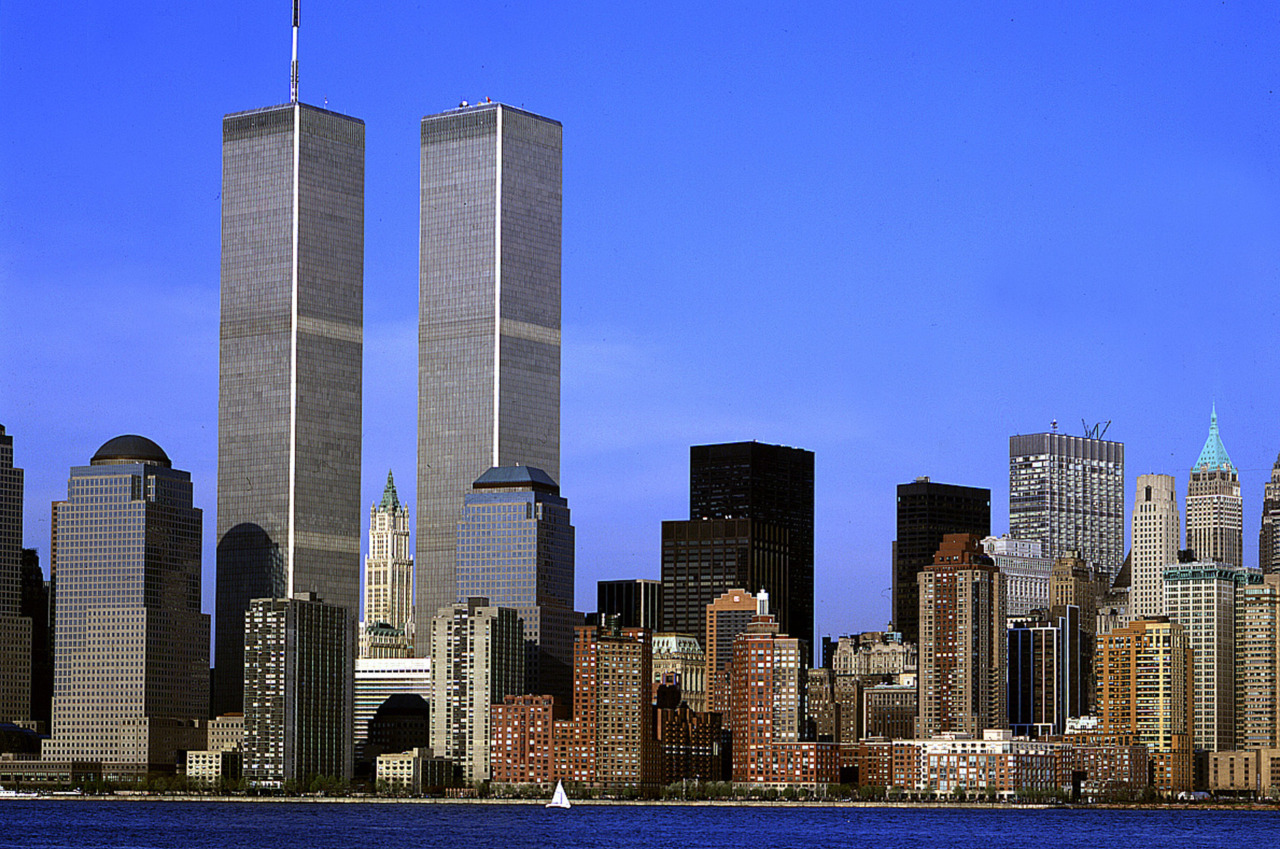
A view from the Hudson River of Lower Manhattan’s Financial District, including the World Trade Center’s Twin Towers. (Getty Images)
Betty Ong, 45, a flight attendant aboard American Airlines Flight 11, was the first person to notify authorities that a plane had been hijacked and that two of her colleagues and a first class passenger had been stabbed.
Ong and her fellow flight attendant Madeline Amy Sweeney, 35, stayed on the phone with authorities until the very end, both calmly providing crucial information that confirmed the identities of the Islamic hijackers.
Sweeney reported the events right up to the moment of impact. Her harrowing last words were, “We are flying very, very low. We are flying way too low. Oh my God, we are flying way too low.”
Among her last words, Ong reportedly said over and over again, “Pray for us. Pray for us.”
[embedded content]
The audio of Ong’s call to the American Airlines emergency number was included in a montage released by the Transportation Security Administration (TSA) in 2018.
[embedded content]
The following video captured the moment of impact when the hijackers flew American Airlines Flight 11 into the World Trade Center’s North Tower (1 WTC) at 8:46 a.m.
[embedded content]
The first images of the burning North Tower flashed across television screens.
The following video shows the first five minutes of cable news coverage.
[embedded content]
Four minutes after the first plane hit the World Trade Center, Christopher Hanley, 35, called 911 from the 106th floor of the North Tower, where he was attending a conference at the restaurant Windows on the World that morning.
This is the audio of his 911 call:
[embedded content]
The world then watched in horror as hijackers flew a second plane, United Airlines Flight 175, into the South Tower of the World Trade Center (2 WTC) at 9:03 a.m.
The second plane removed any doubt that this was a terror attack, not pilot error. America was indeed at war.
This video shows the ABC News coverage the moment the second plane struck:
[embedded content]
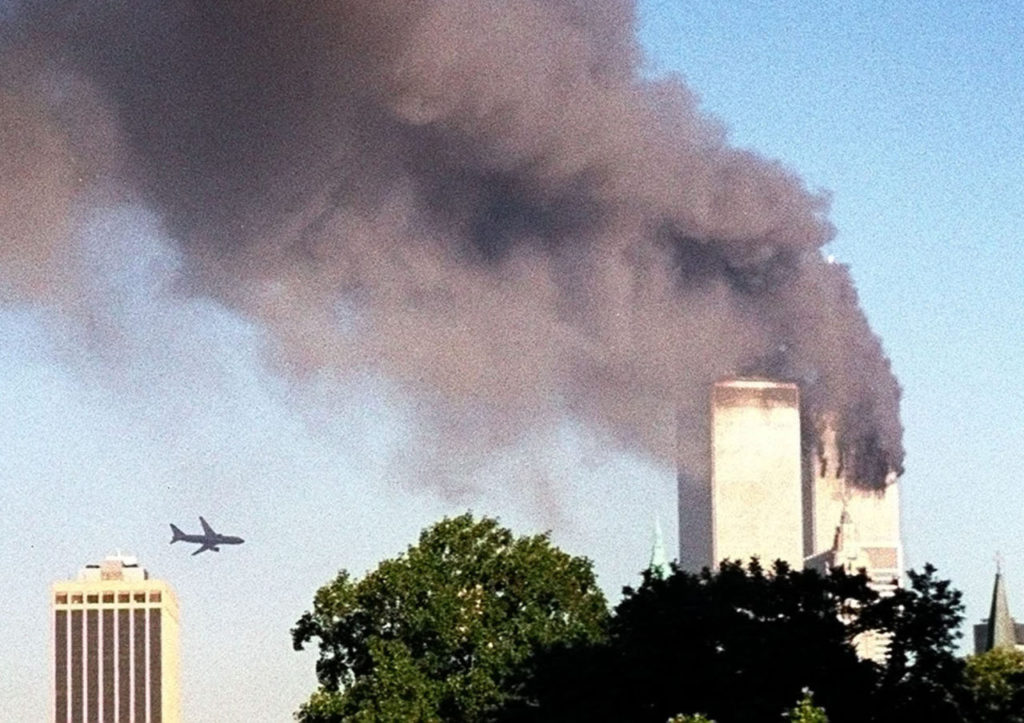
United Airlines Flight 175 flew low over Manhattan on a direct path for the World Trade Center. (AP Photo/ William Kratzke)
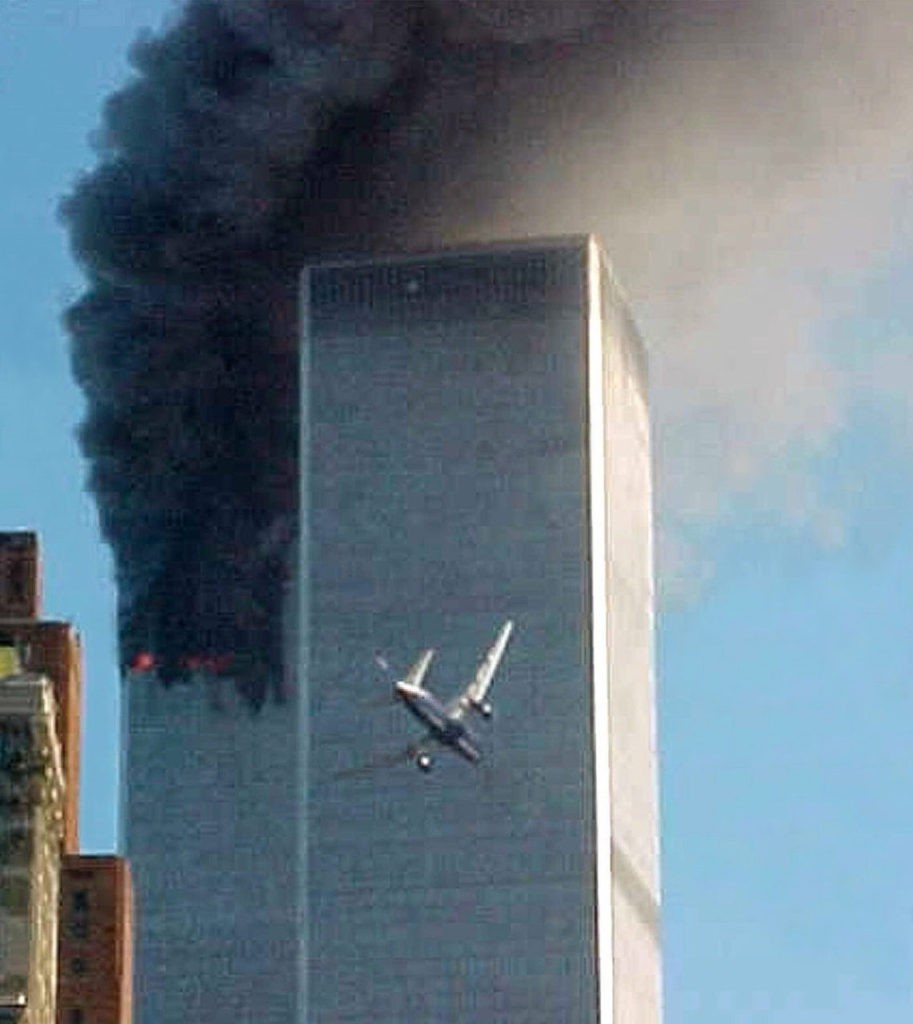
Islamic hijackers aboard United Airlines Flight 175 crashed into the South Tower of the World Trade Center (2 WTC) at 9:03 a.m. (AP Photo/Carmen Taylor/File)
President George W. Bush was visiting an elementary school in Sarasota, Florida, that morning.
He was informed about the attacks when his chief of staff, Andy Card, whispered in his ear: “A second plane has hit the second tower. America is under attack.”
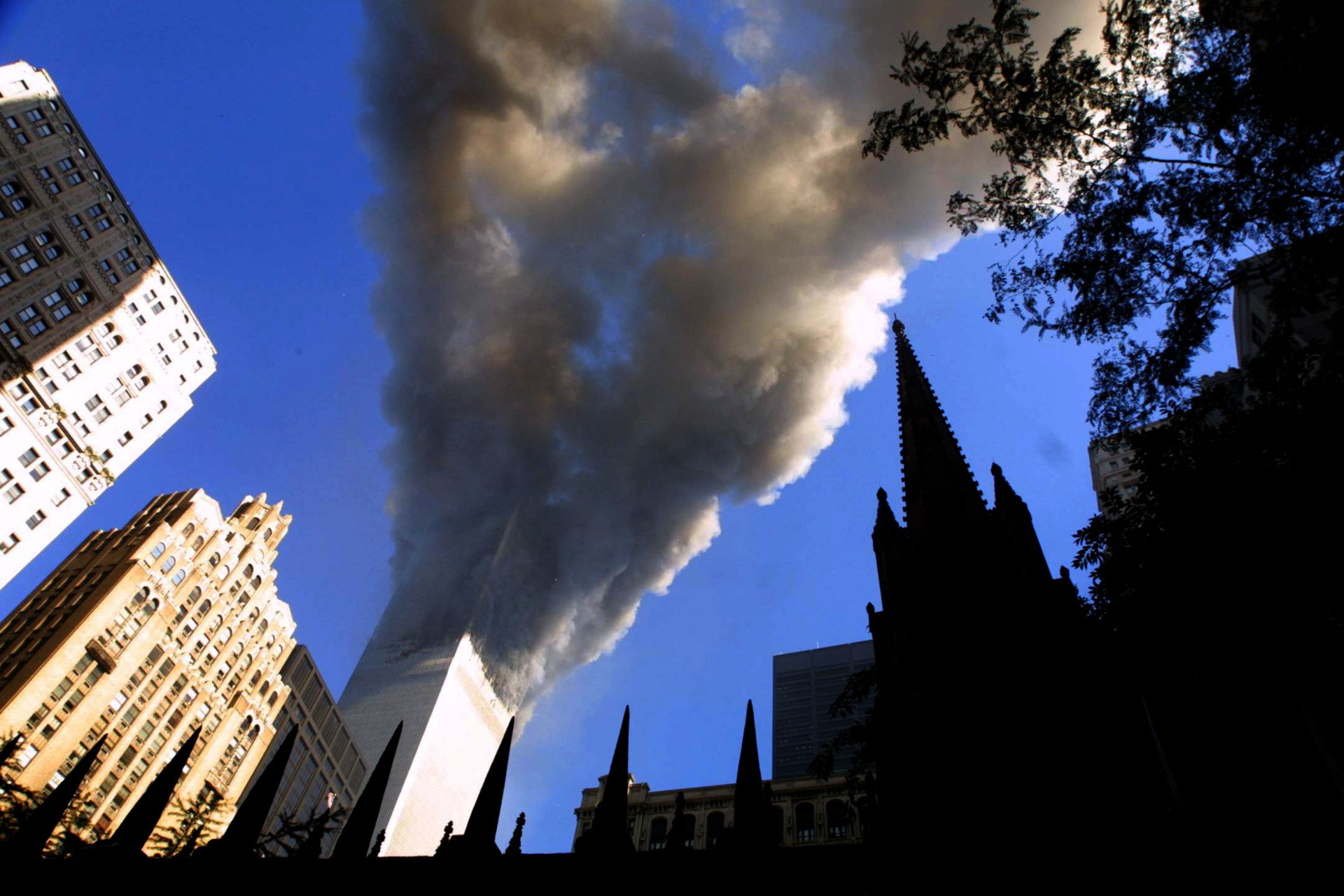
(Mario Tama/Getty Images)
On the streets below, New Yorkers watched in shock at the smoke billowing from the towers and the desperate people inside who were hanging from the windows or leaping to their deaths to escape the fire.
Some were seen making the Sign of the Cross before they jumped.
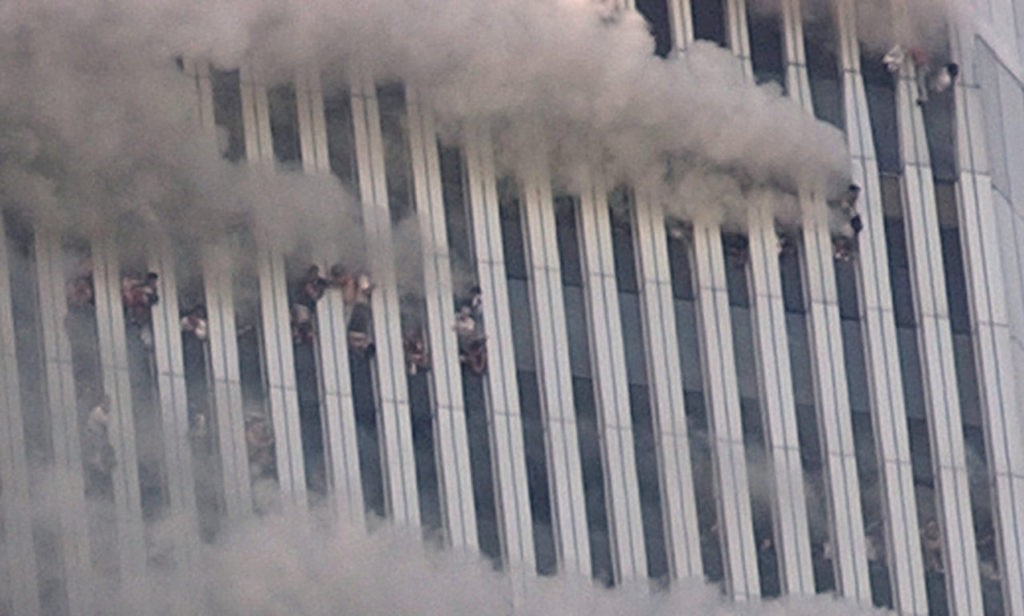
People hang out of broken windows of the North Tower of the World Trade Center. (AP Photo/Amy Sancetta)
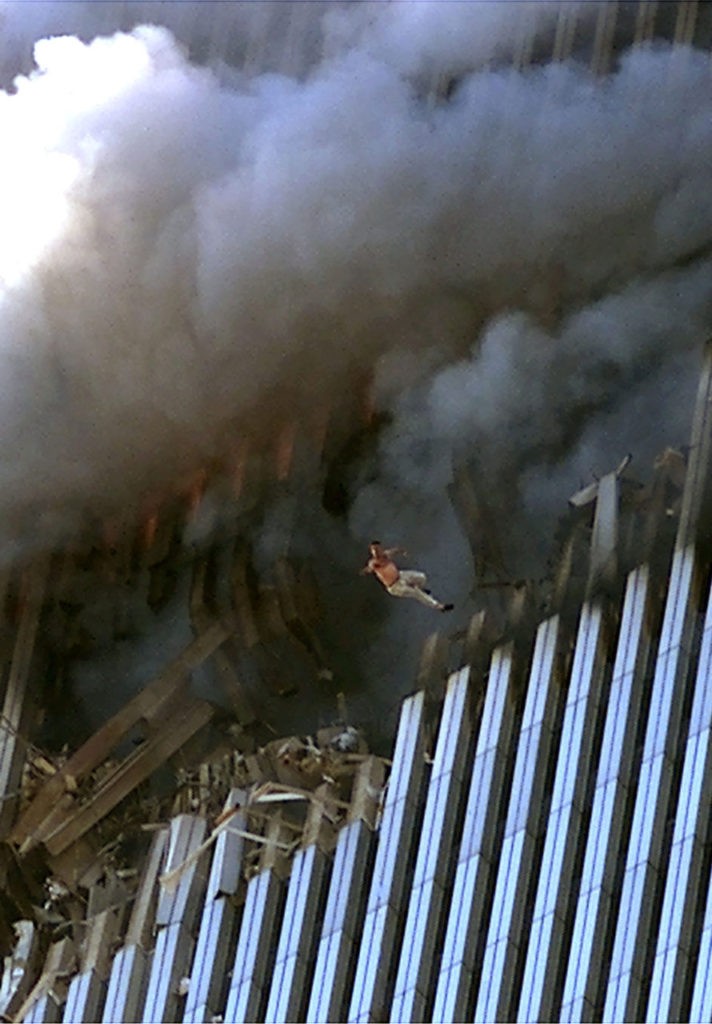
A man leaps to his death from Tower One of the World Trade Center. (Jose Jimenez/Primera Hora/Getty Images)
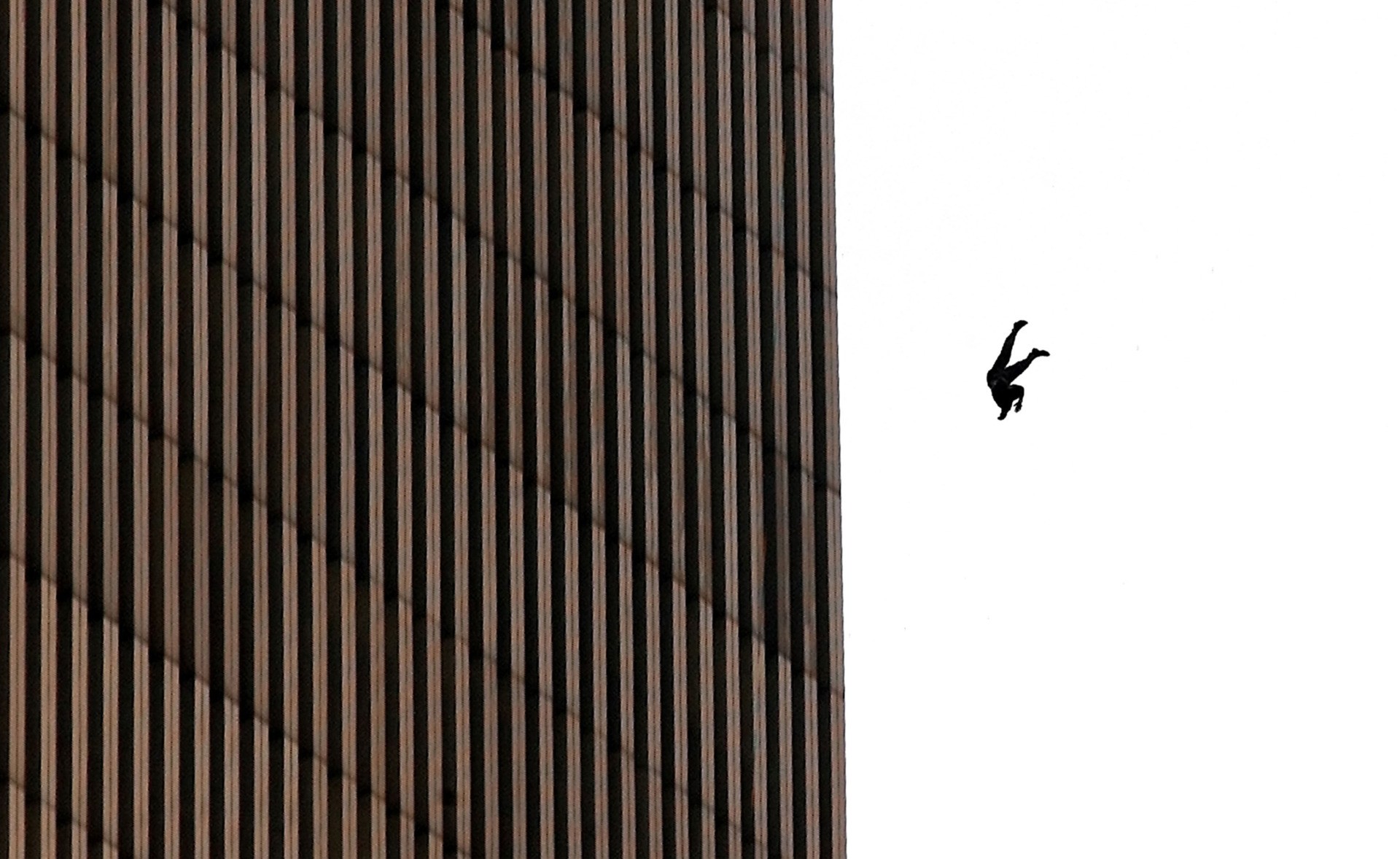
(Jose Jimenez/Primera Hora/Getty Images)
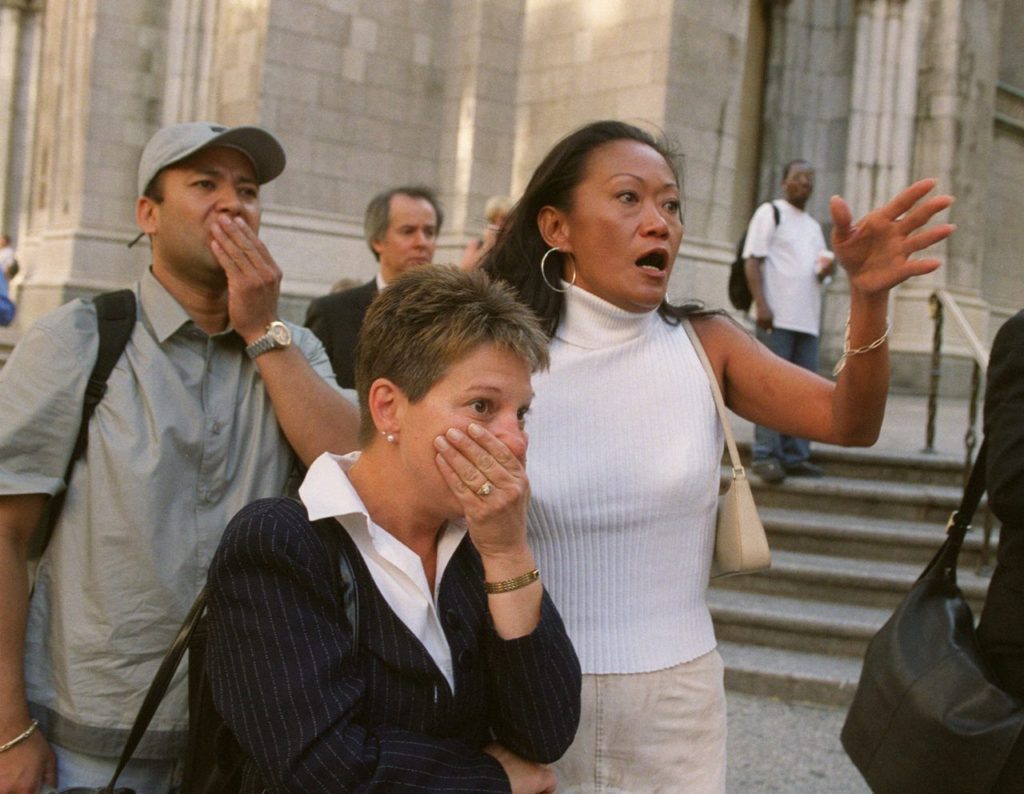
People in front of New York’s St. Patrick’s Cathedral react with horror as they look down Fifth Ave. towards the World Trade Center towers. (AP Photo/Marty Lederhandler)
The controversy surrounding the publication of the image below of a man falling from the North Tower and the subsequent quest to identify him inspired a 2006 documentary called 9/11: The Falling Man.
Inside the burning towers, there were many stories of extraordinary heroism. Perhaps the most famous example of selfless courage that day was the story of 24-year-old Welles Crowther, who died in the South Tower while helping others get to safety. He is credited with saving 12 lives on 9/11. The strangers he rescued knew him simply as “the man in the red bandana” because he had covered his face with a red bandana to protect himself from the smoke.
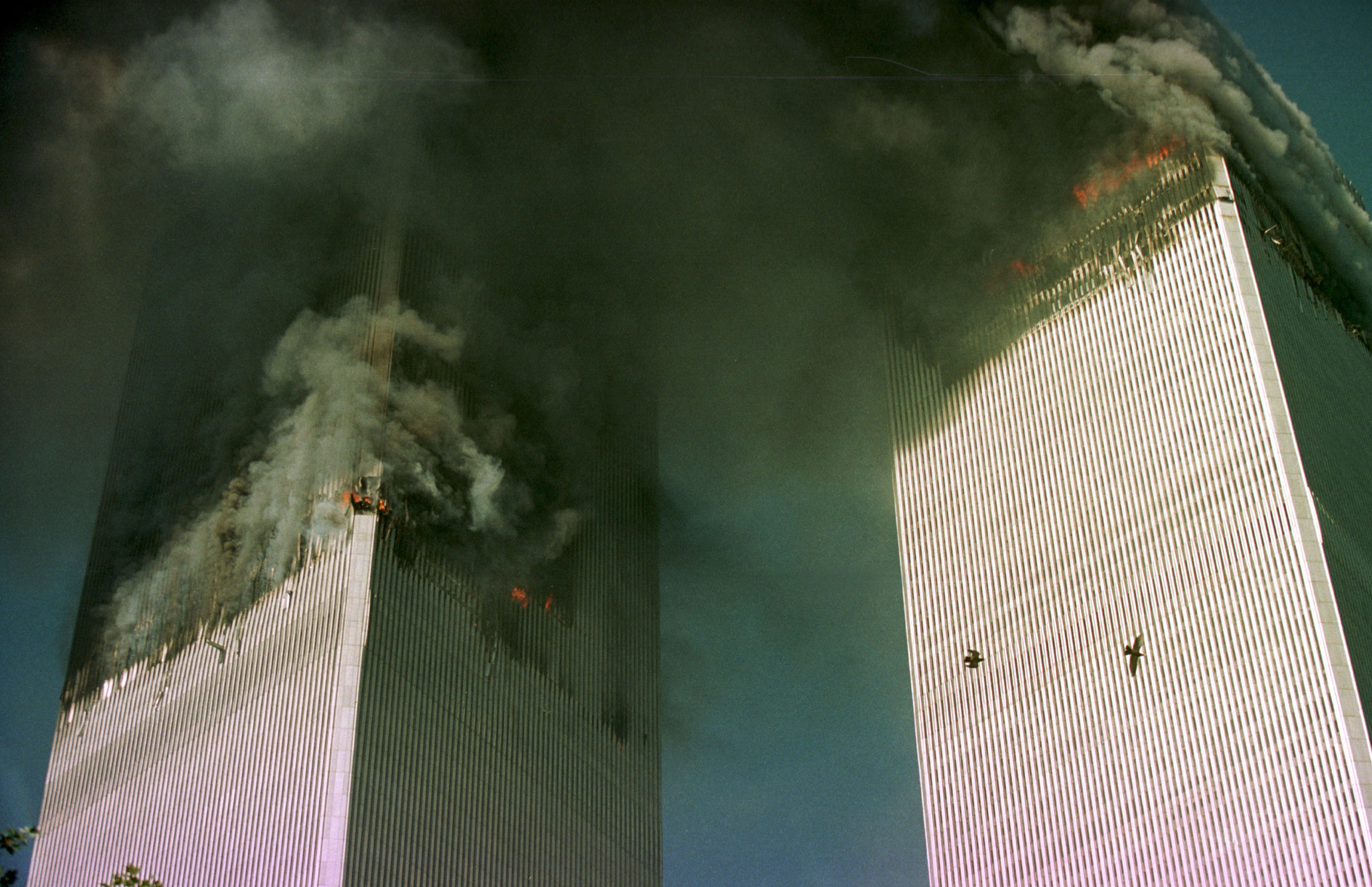
The World Trade Center is engulfed in flames just before the south tower collapsed on September 11, 2001. (Thomas Nilsson/ Getty Images)
At 9:37 a.m., the Islamic hijackers on board American Airlines Flight 77 crashed it into the Pentagon.
The war had now reached the nation’s capital.
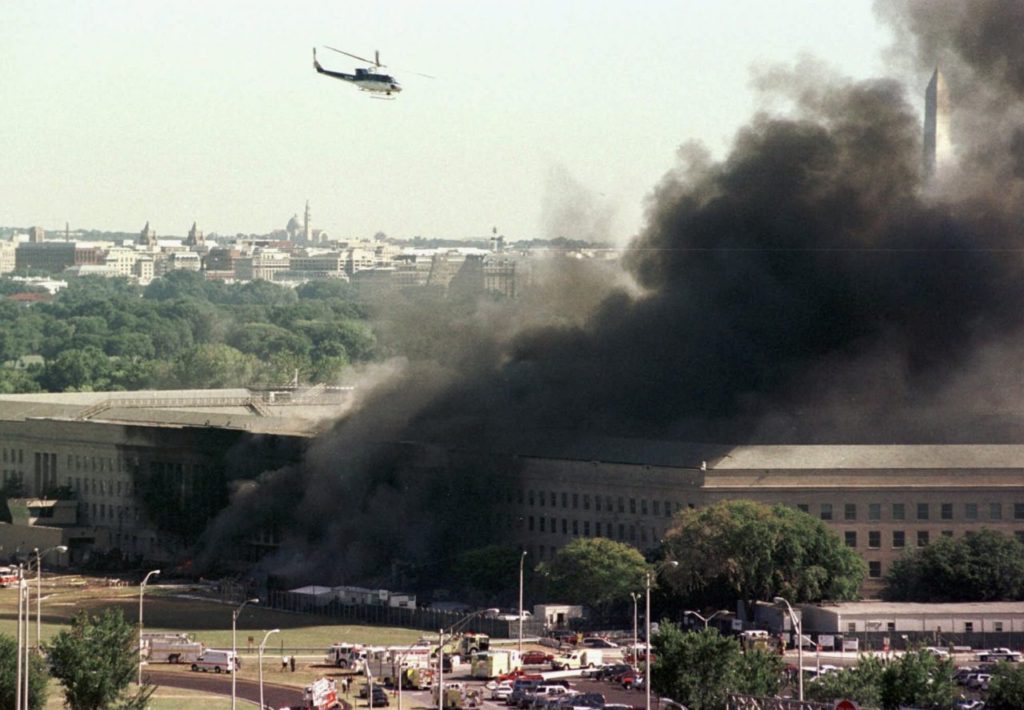
A helicopter flies over the burning Pentagon. The Washington Monument can be seen at right, through the smoke. The White House roof is visible in the trees on the left. (AP Photo/Tom Horan)
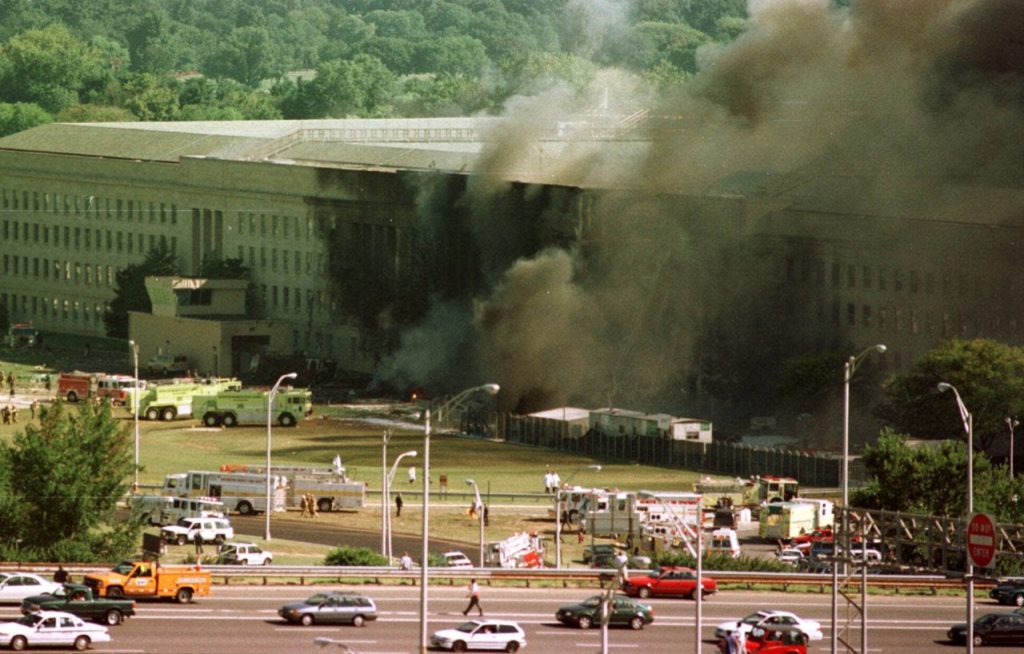
Vehicles are seen traveling on Interstate 395, leaving Washington, in front of the Pentagon. (AP Photo/Tom Horan)
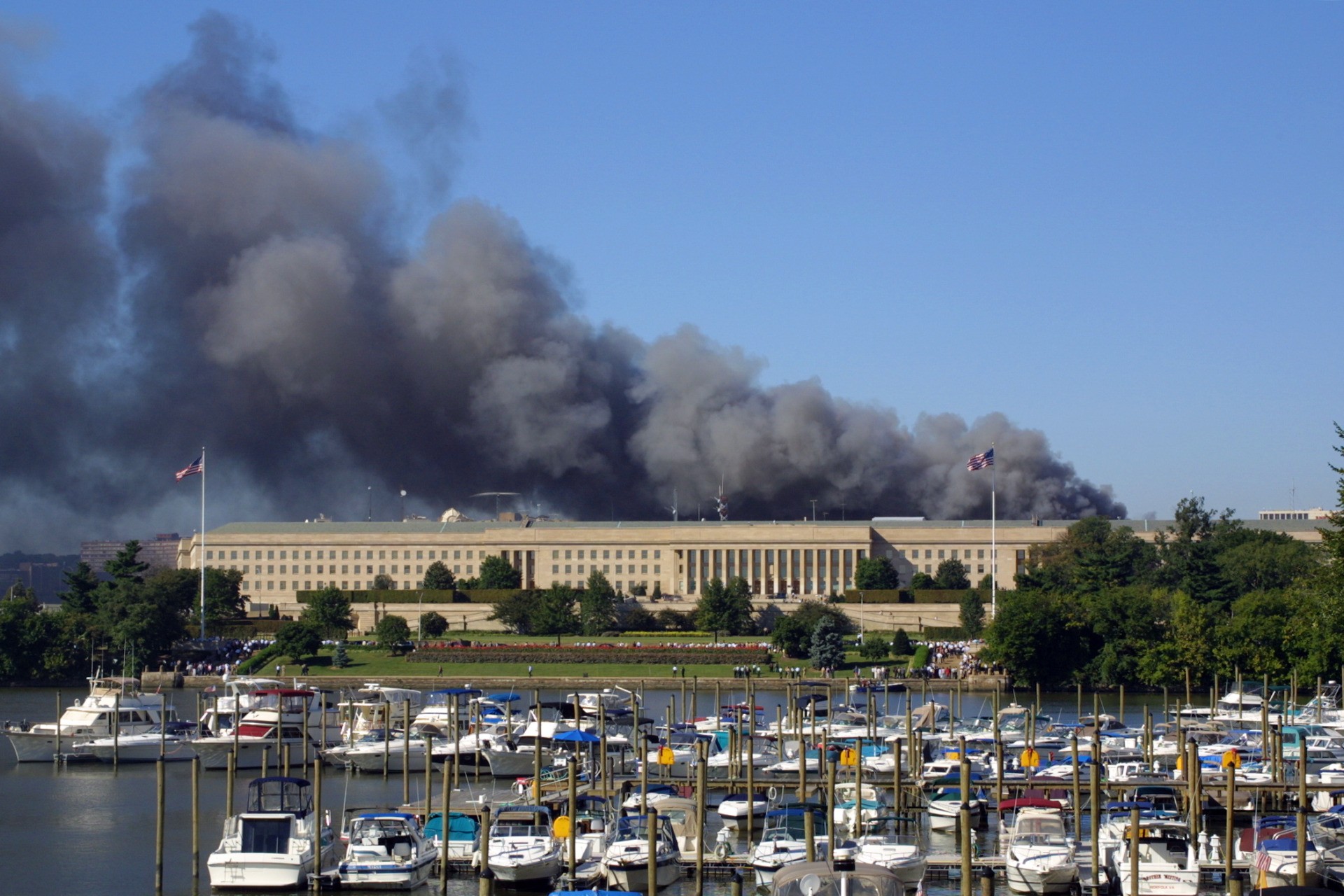
(Frank S. Folwell-USA TODAY)
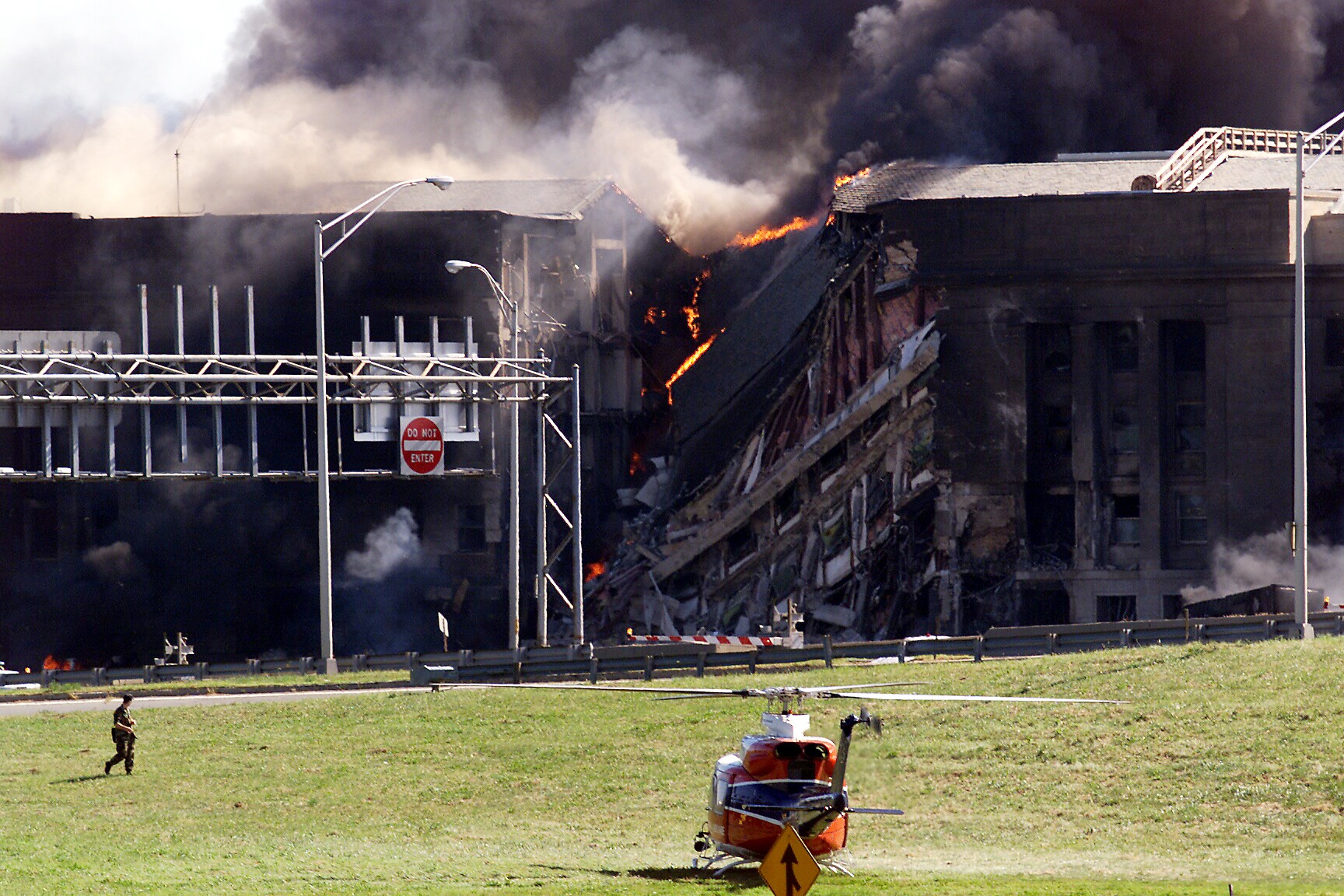
(H. Darr Beiser-USA TODAY)
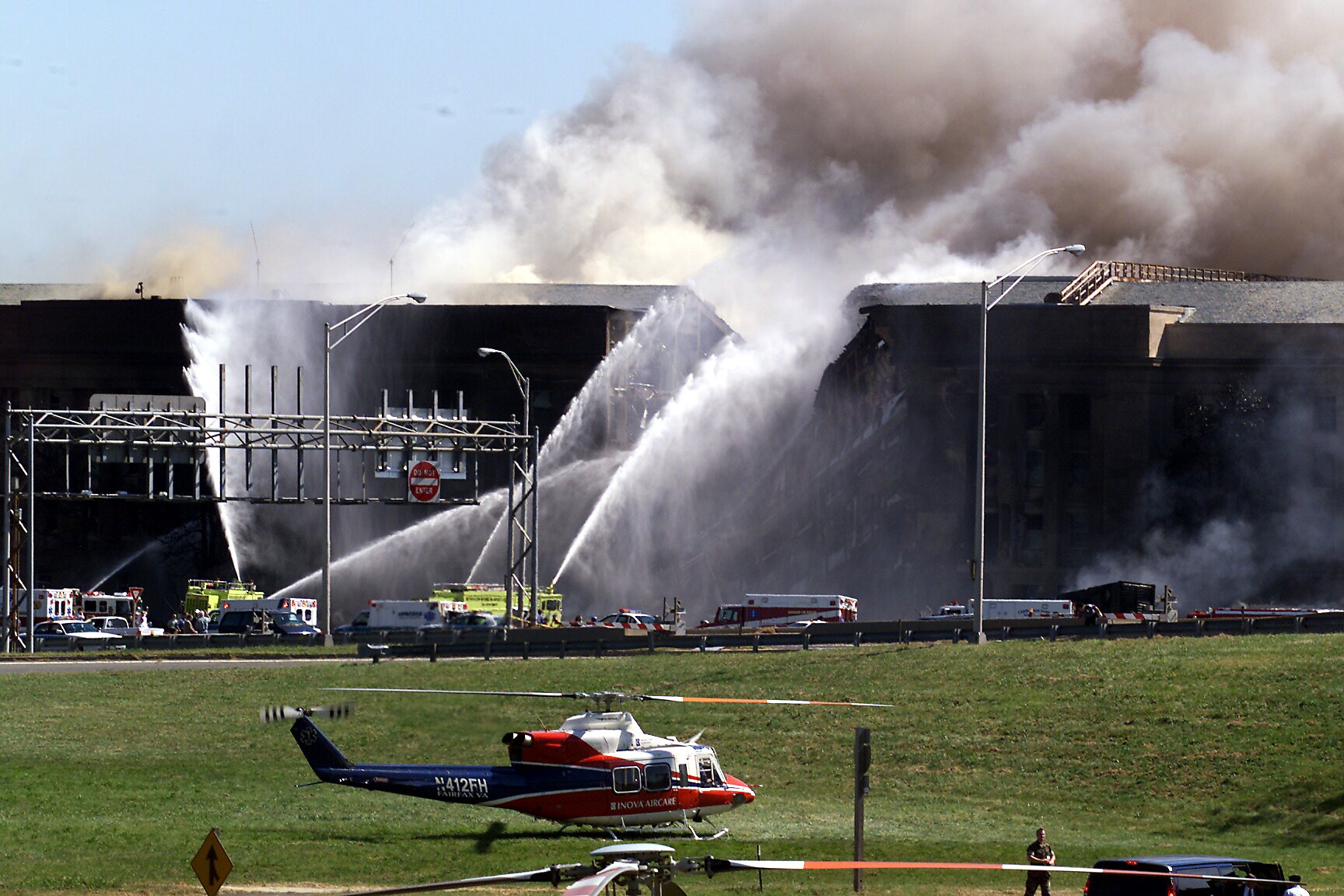
(H. Darr Beiser-USA TODAY)
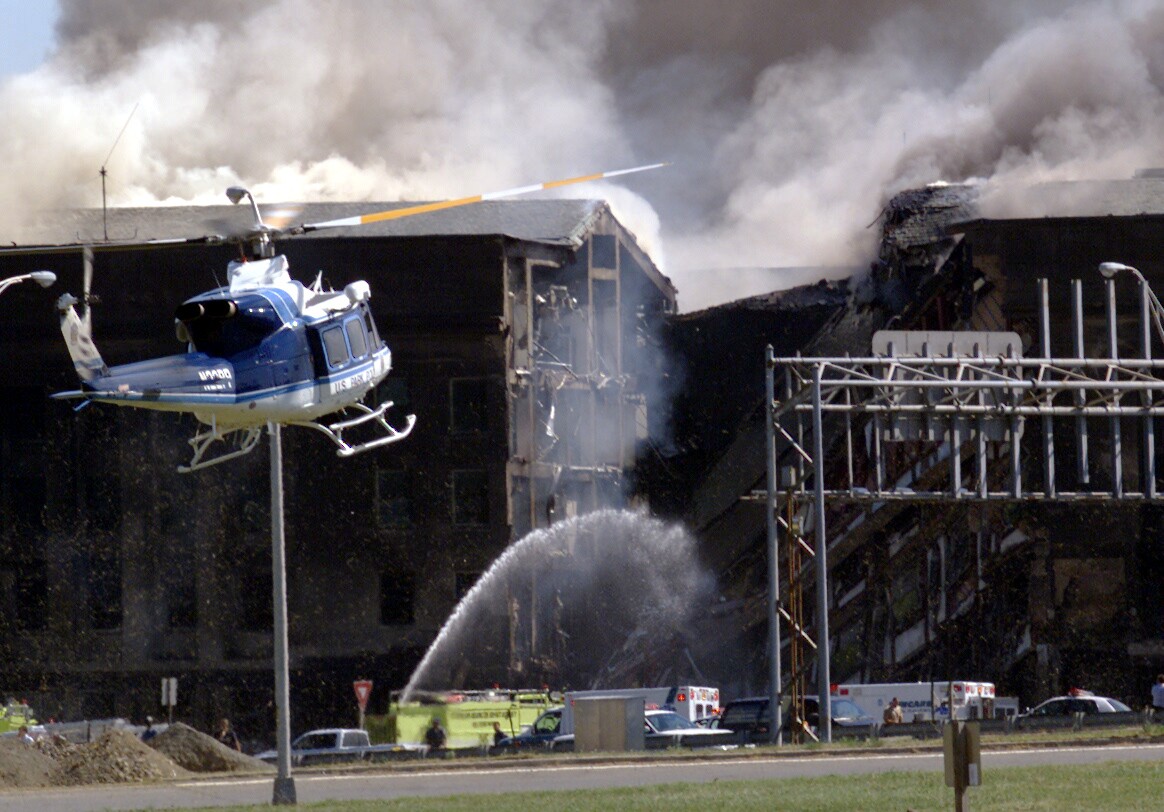
(H. Darr Beiser-USA TODAY)
At 9:45 a.m., the FAA shut down the United States airspace for the first time in history. No civilian flights were allowed to take off, and all aircraft in the air were ordered to land immediately at the nearest airport.
In the photograph below, a screen at the American Airlines terminal at Los Angeles International Airport showed that all flights had been canceled.
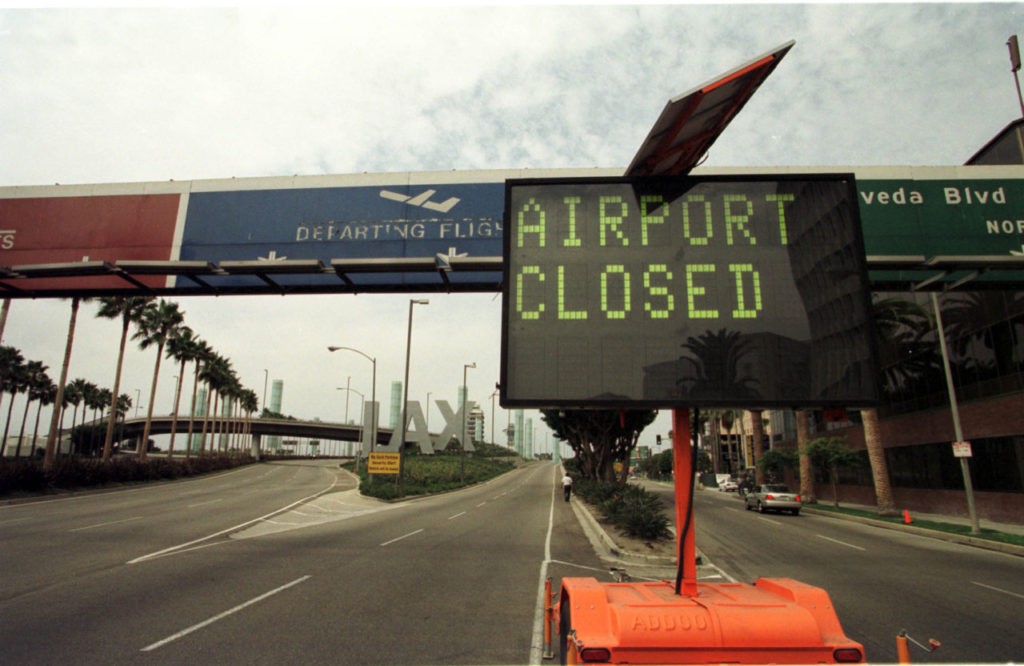
A board at the Los Angeles Airport announced the closing of the airport. (GERARD BURKHART/AFP/Getty Images)
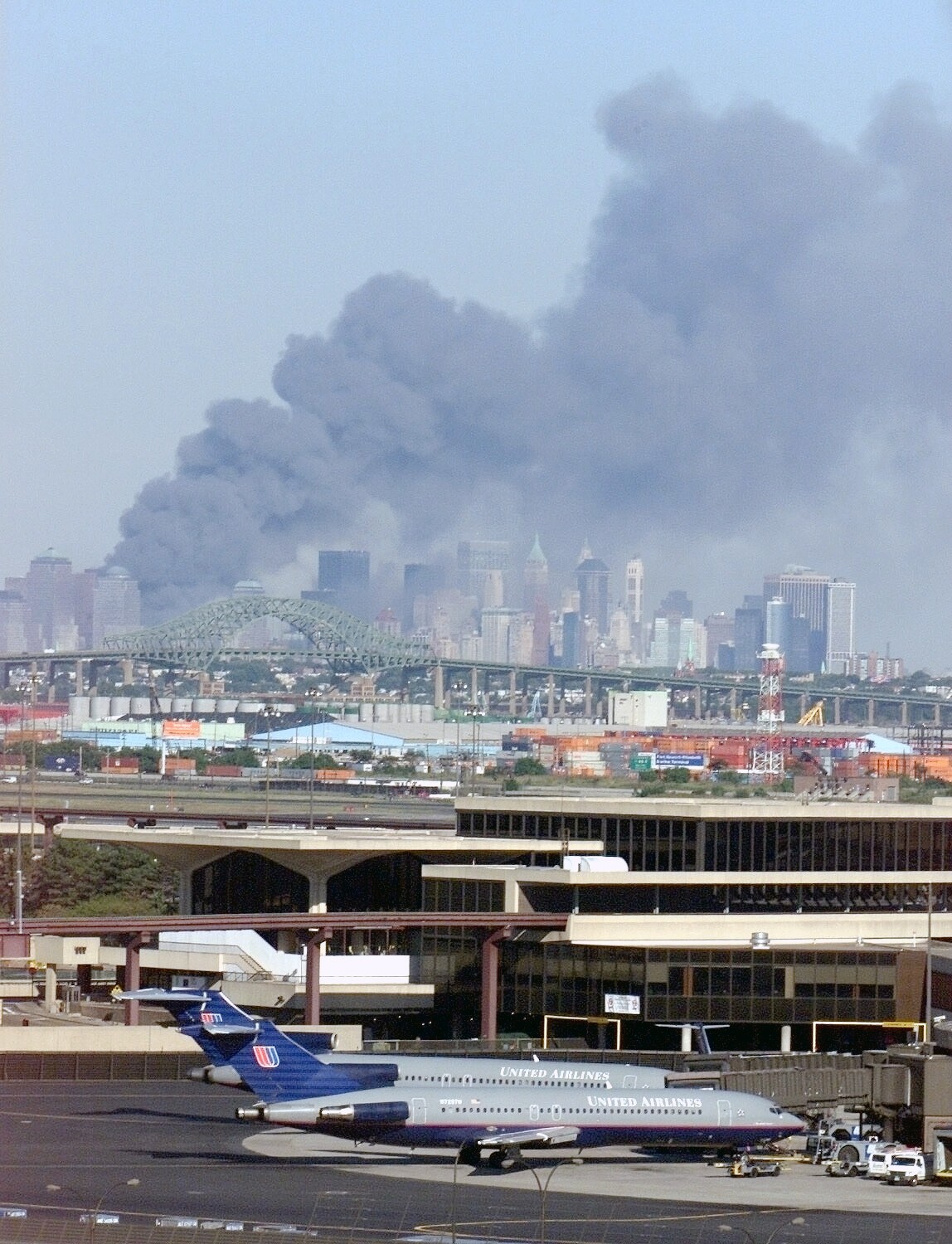
Planes were grounded at Newark International Airport after the FAA shutdown the U.S. airspace. The smoke from World Trade Center is visible in the background. (Eileen Blass-USA TODAY)
At 9:58 a.m., the South Tower of the World Trade Center began to collapse.
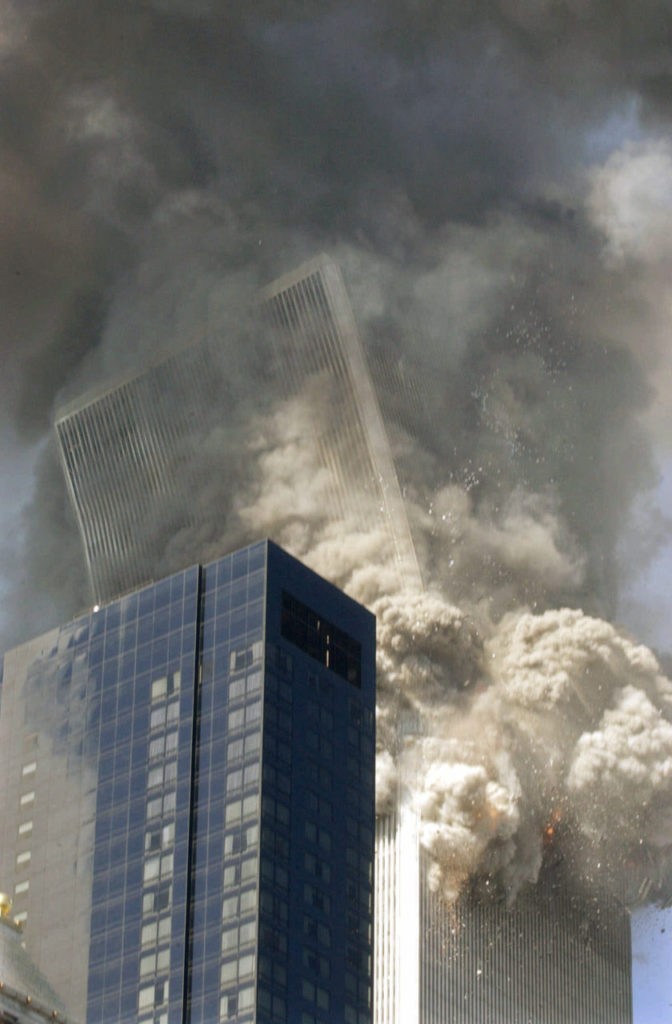
The Millenium Hilton hotel is seen in the foreground of this photo showing the South Tower collapsing. (AP Photo/Amy Sancetta)
At 10:03 a.m., United Airlines Flight 93 crashed into a field in Shanksville, Pennsylvania.
Were it not for the heroism of the passengers onboard who stormed the cockpit, the Islamic hijackers would have crashed the plane into either the U.S. Capitol dome or the White House.
These passengers included Tom Burnett, 38; Mark Bingham, 31; Jeremy Glick, 31; and Todd Beamer, 32.
Beamer recited the Lord’s Prayer and the 23rd Psalm with a telephone operator, which prompted others on the plane to say the words with him. He then turned to his fellow passengers and said, “Are you ready? Okay. Let’s roll.”
And they charged the cockpit to stop the hijackers, saving countless lives that would have been lost had the plane hit its intended target.
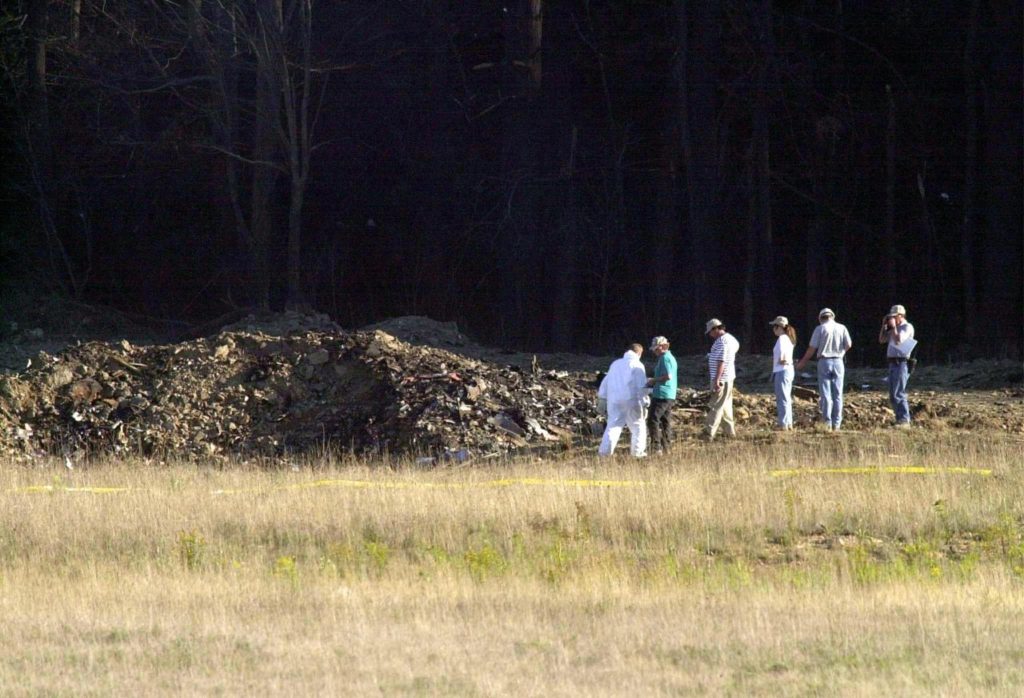
Officials examine the crater at the crash site where United Airlines Flight 93 crashed into a field in Shanksville, Pennsylvania. (DAVID MAXWELL/AFP/Getty Images)
At 10:28 a.m., the North Tower of the World Trade Center collapsed, sending thousands of survivors fleeing from the smoke and debris engulfing Lower Manhattan in the wake of its destruction.
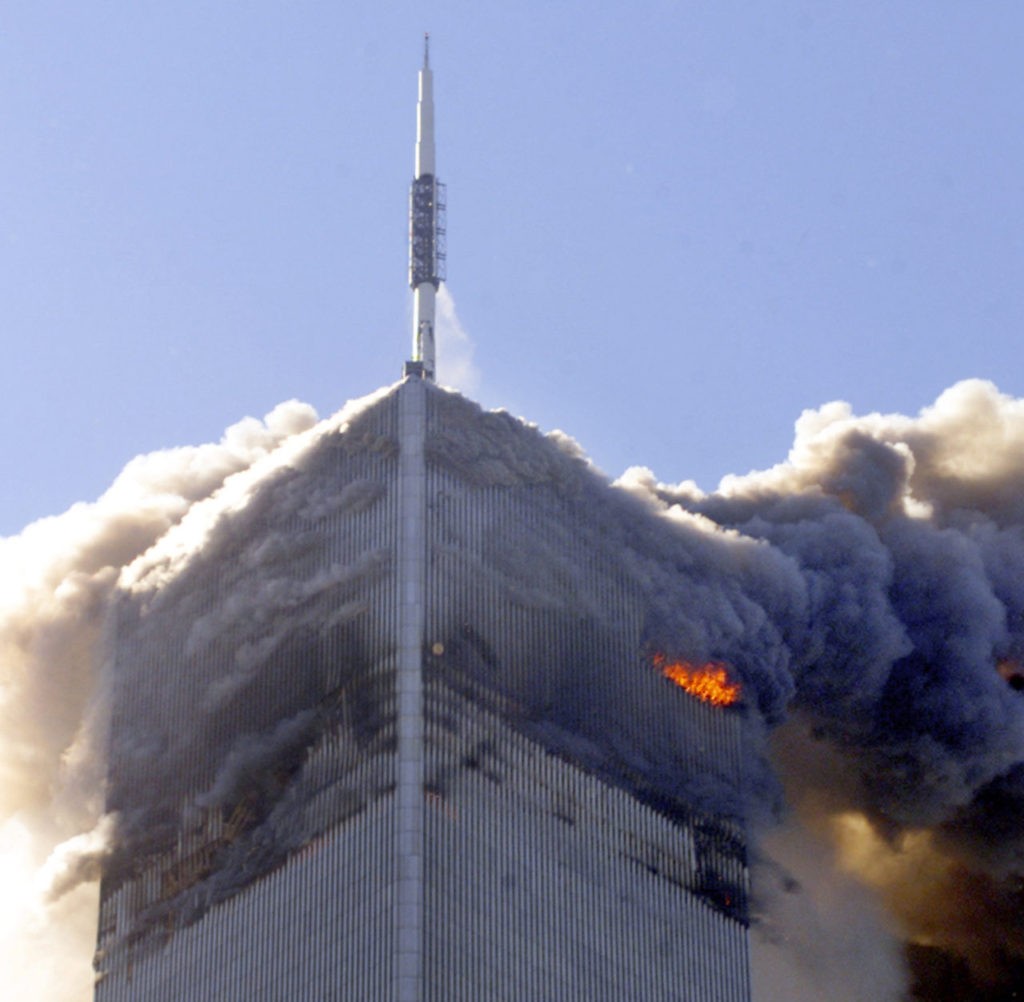
The North Tower of the World Trade Center 30 seconds before its collapse at 10:28 a.m. (AP Photo/Richard Drew)
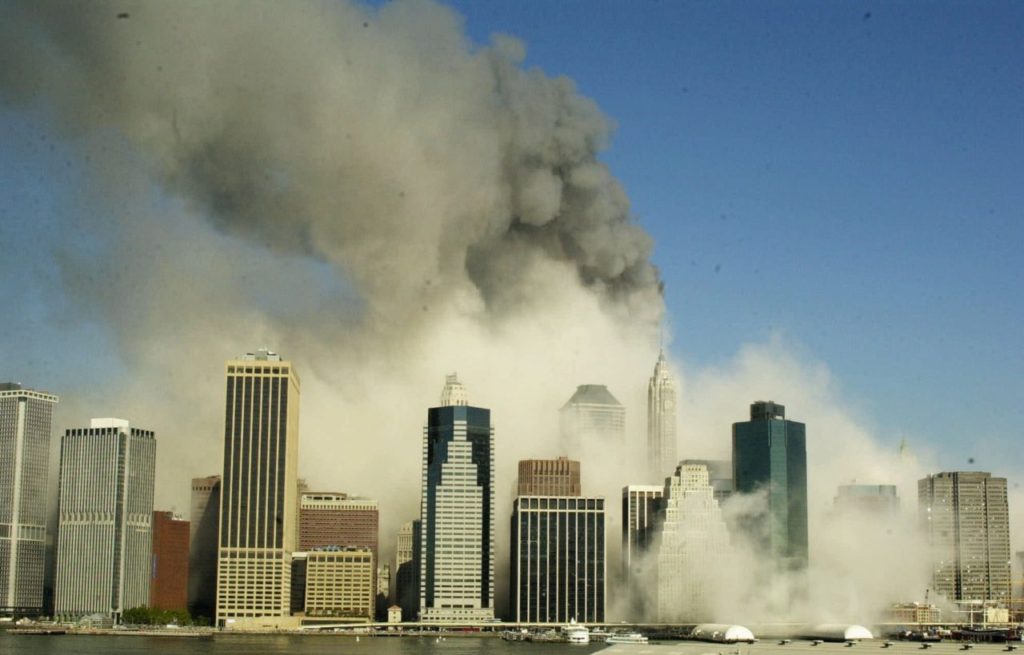
This is a view of the Manhattan skyline from Brooklyn after the World Trade Center towers collapsed. (AP Photo/Kathy Willens)
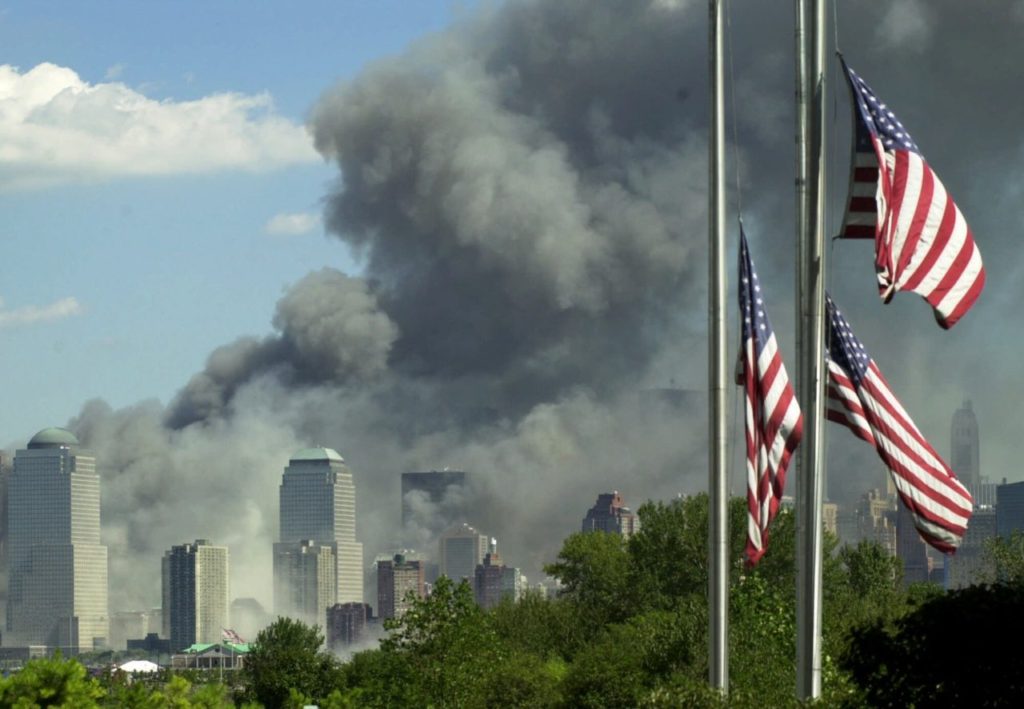
Flags flew at half-staff at the Liberty Science Center in Jersey City, New Jersey, as a large cloud of smoke billowed from the fire at the World Trade Center. (AP Photo/Daniel Hulshizer)
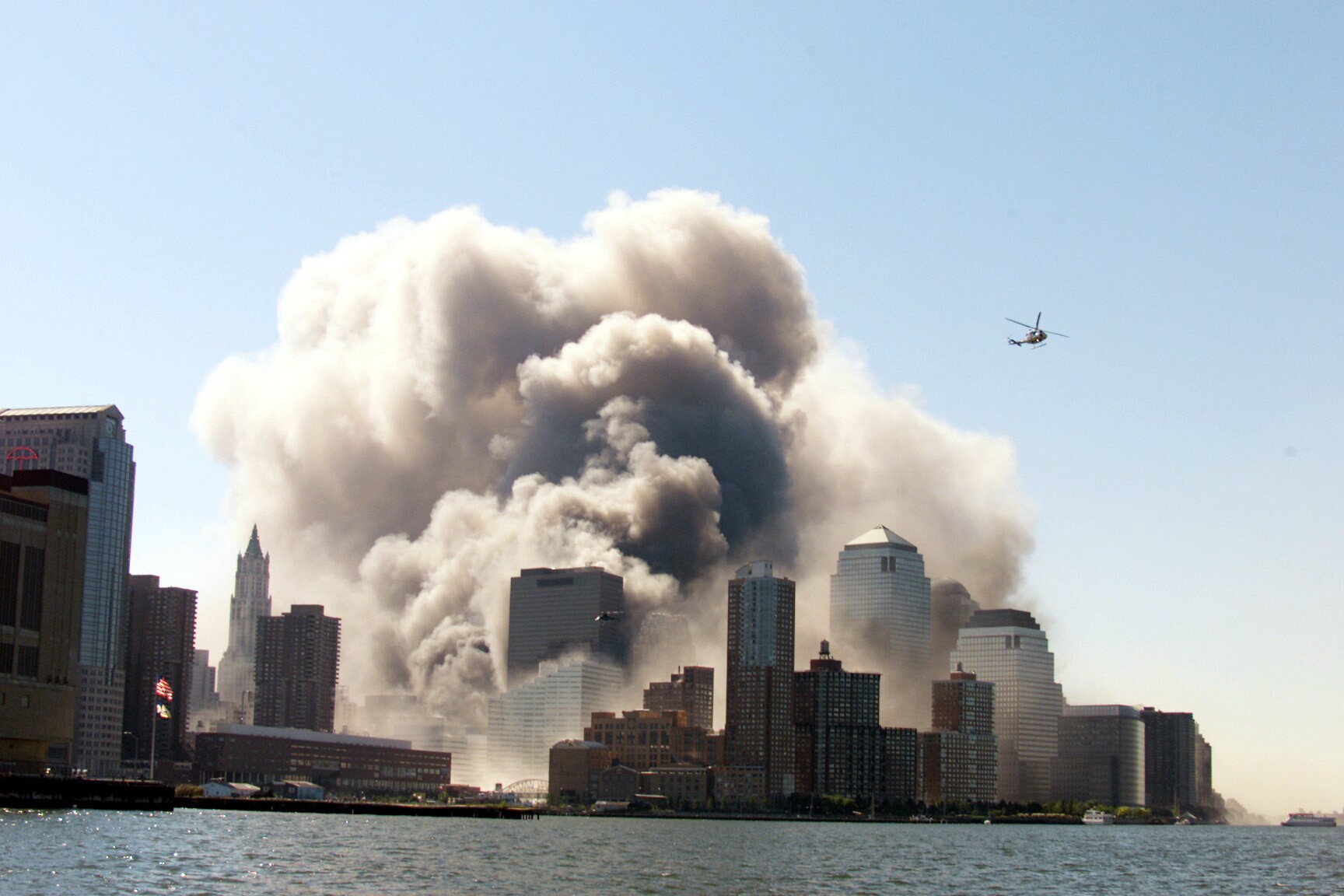
(Robert Deutsch-USA TODAY.)
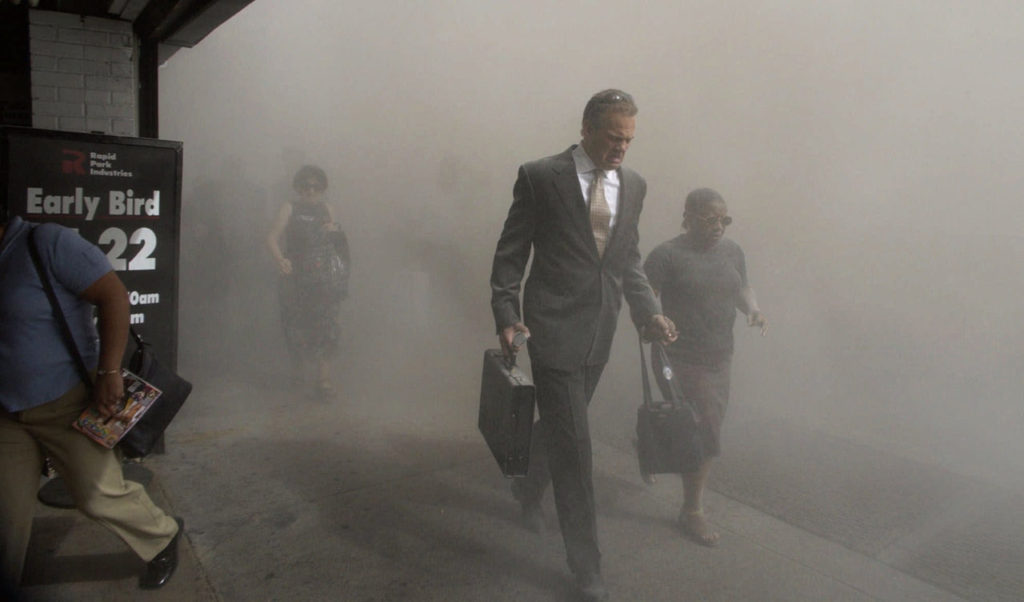
Pedestrians on Beekman St. flee the area of the collapsed World Trade Center. (AP Photo/Amy Sancetta,FILE)
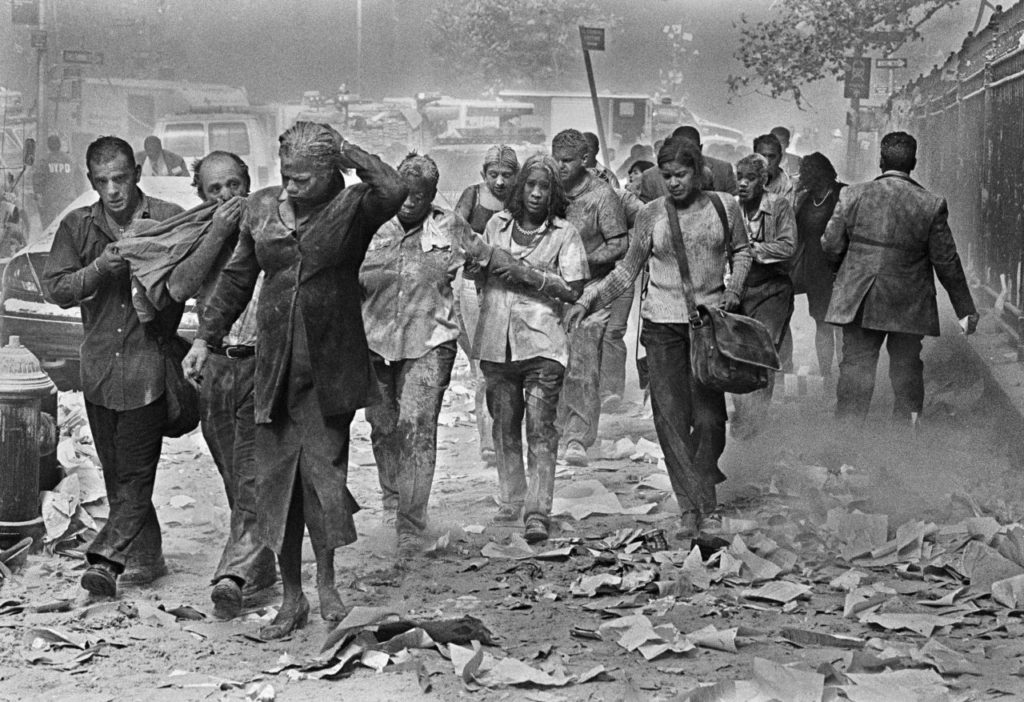
Survivors make their way through smoke, dust, and debris on Fulton St., about a block from the collapsed towers. (AP Photo/Gulnara Samoilova)
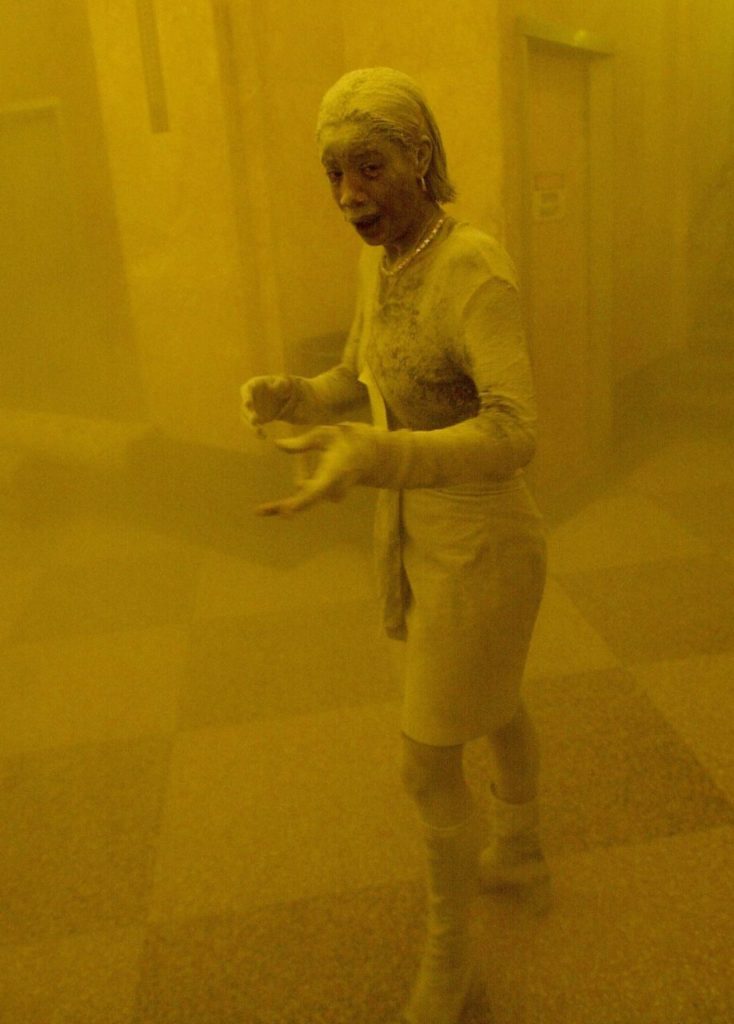
Marcy Borders is covered in dust as she takes refuge in an office building after one of the World Trade Center towers collapsed. Borders was caught outside on the street as the cloud of smoke and dust enveloped the area. (STAN HONDA/AFP/Getty Images)
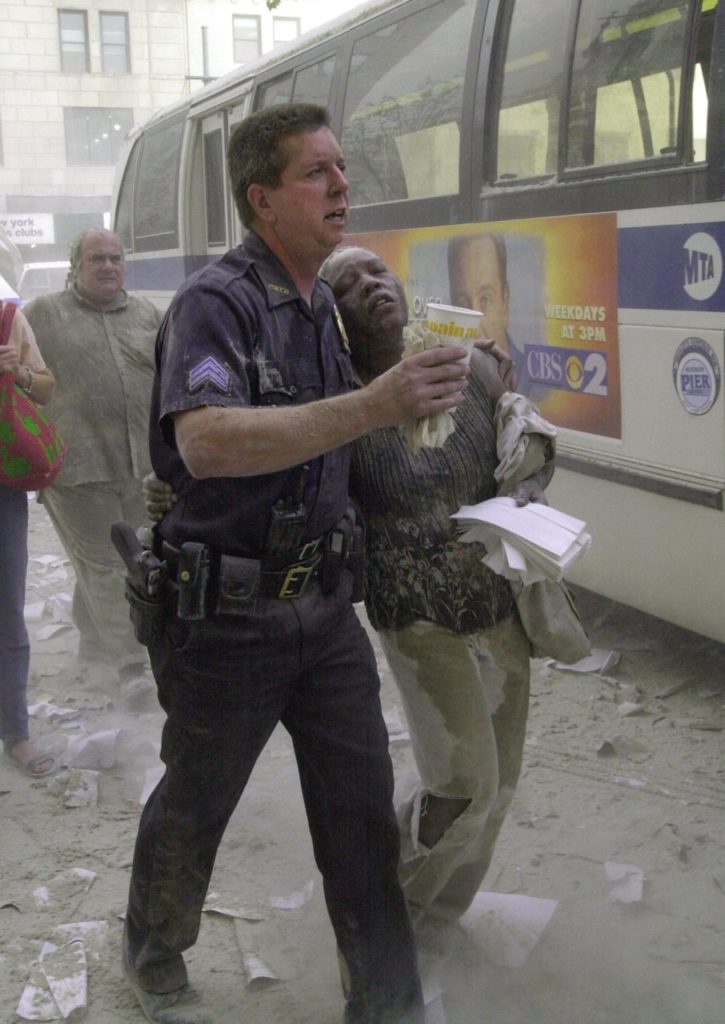
A police officer helps a woman to a bus after she fled the area near the World Trade Center towers. (STAN HONDA/AFP/Getty Images)
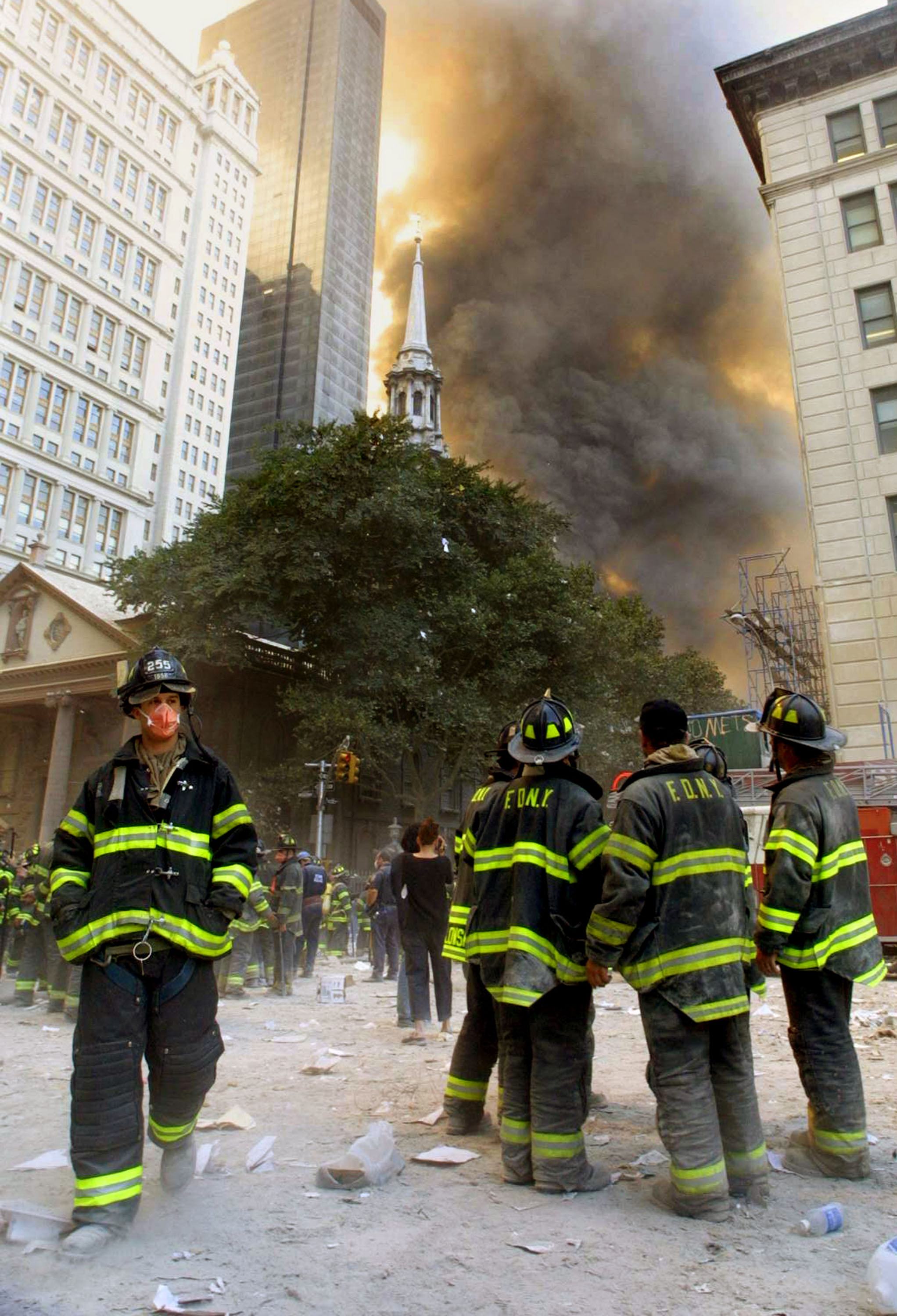
(Mario Tama/Getty Images)
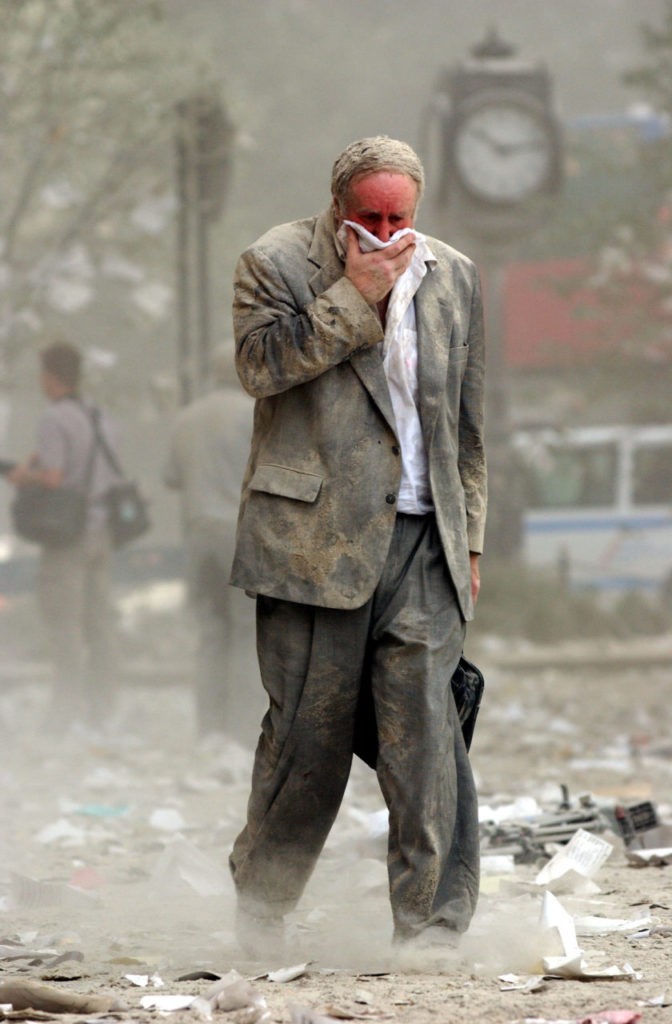
Edward Fine covers his mouth as he walked through the debris after the collapse of one of the World Trade Center Towers. Fine was on the 78th floor of 1 World Trade Center when it was hit. (STAN HONDA/AFP/Getty Images)
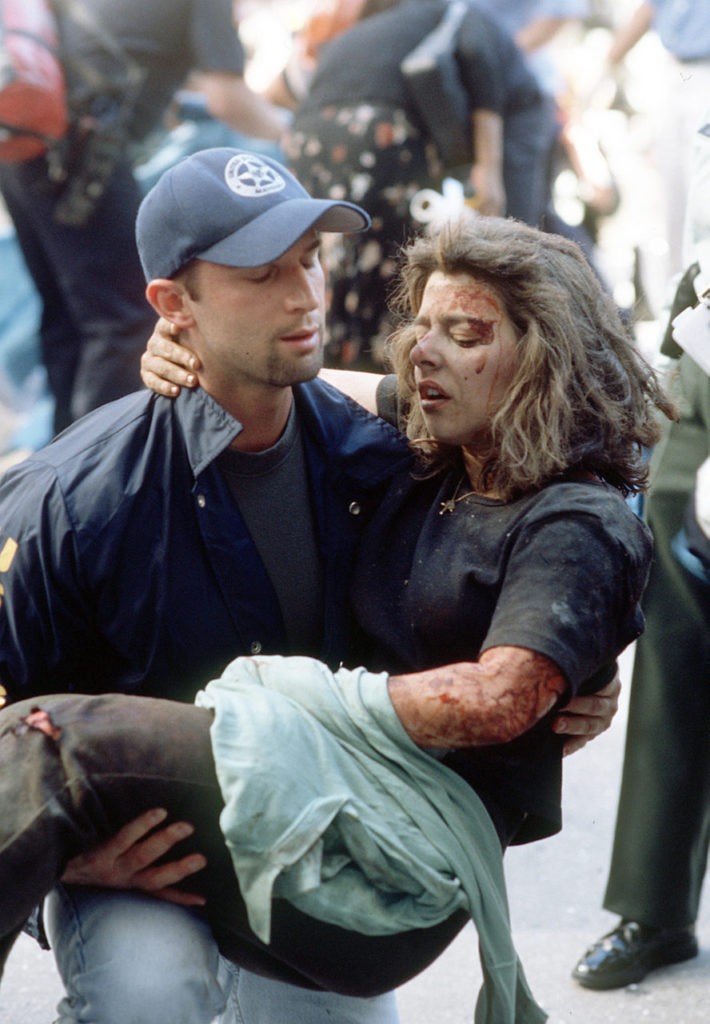
Deputy U.S. marshal Dominic Guadagnoli helps a women after she was injured in the attack on the World Trade Center. (AP Photo/Gulnara Samoilova)
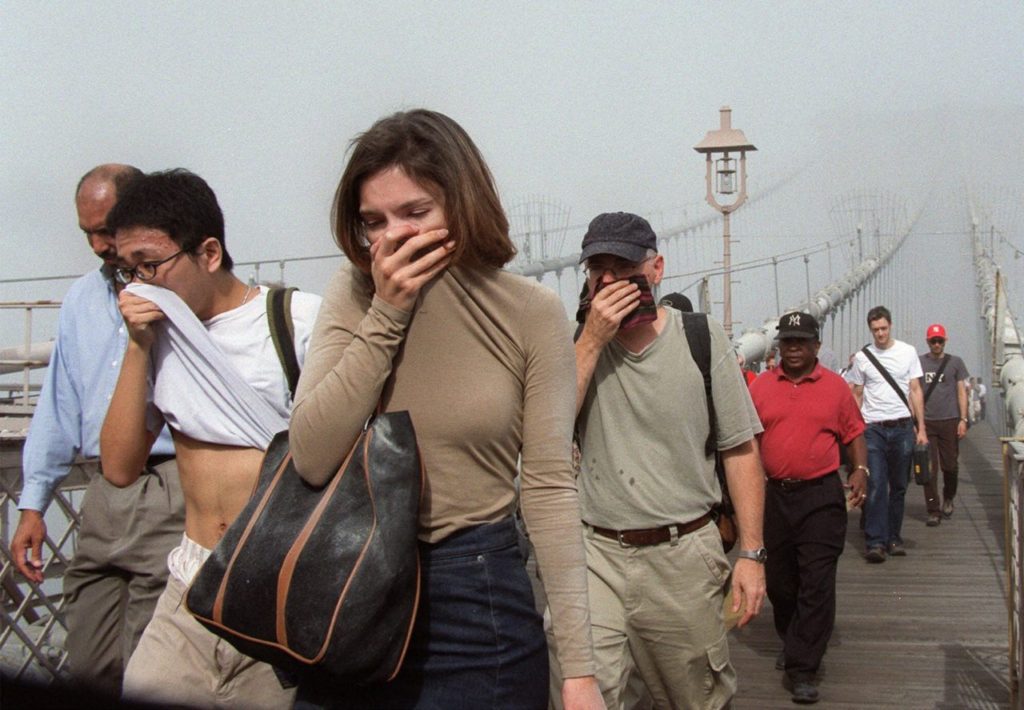
New Yorkers cover their faces as they move across the Brooklyn Bridge out of the smoke and dust in Manhattan. (AP Photo/Daniel Shanken)
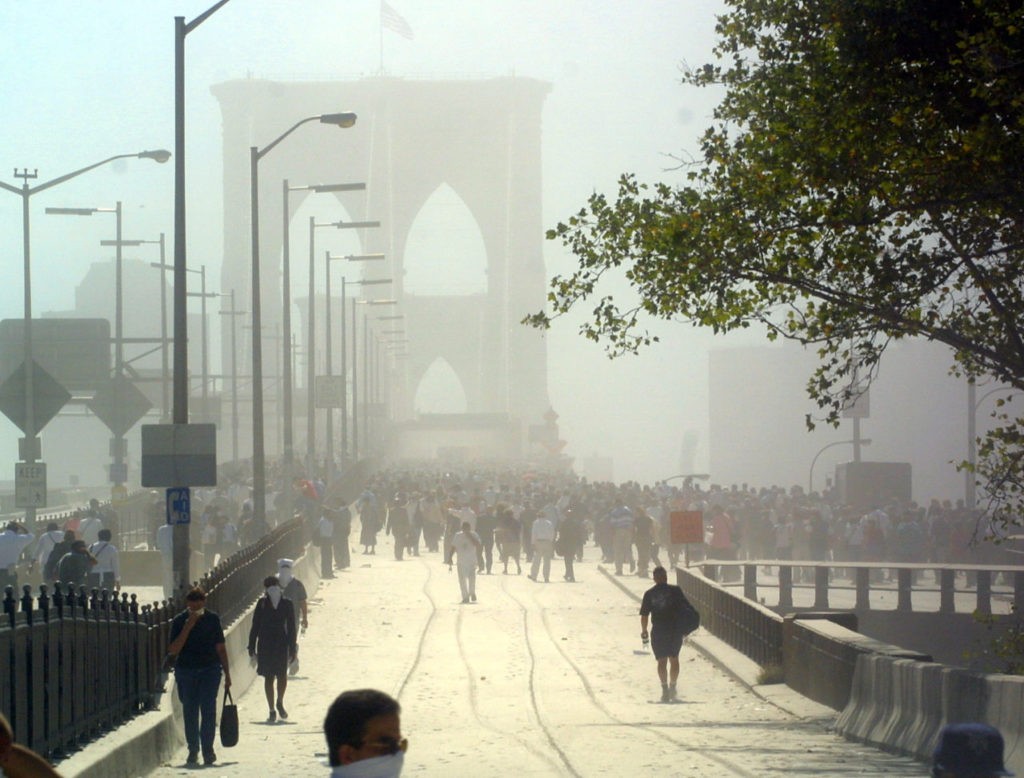
Pedestrians cross the Brooklyn Bridge, fleeing Manhattan after the collapse of the South Tower. (DOUG KANTER/AFP/Getty Images)
In the nation’s capital, traffic was gridlocked as the city shutdown and U.S. government workers were sent home following the terror attacks in New York and at the Pentagon.
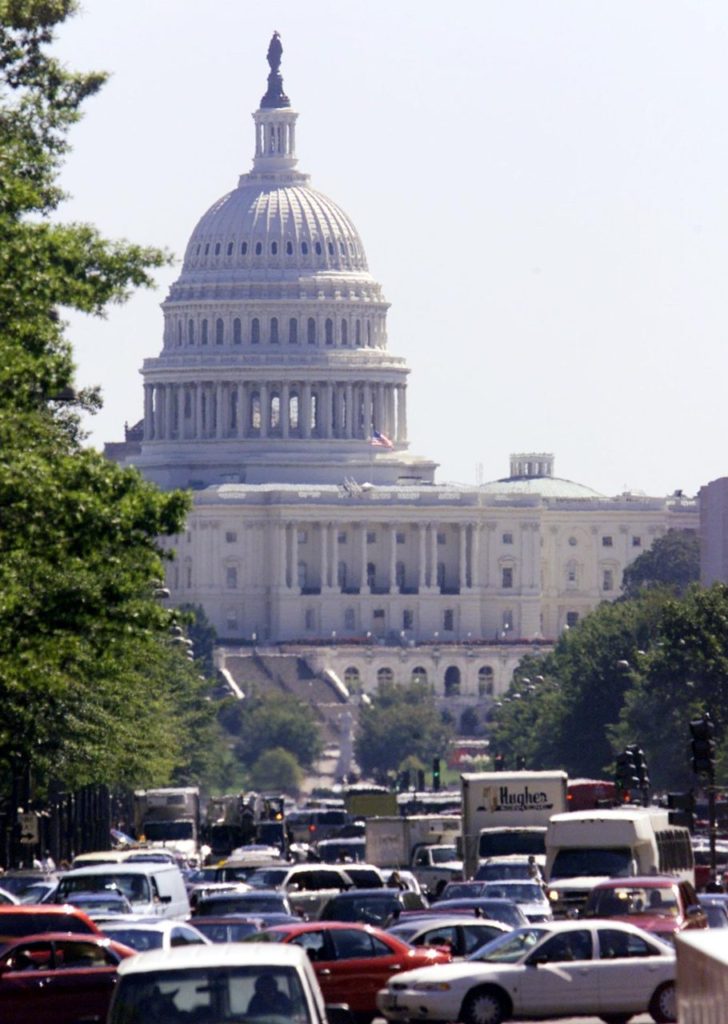
Gridlocked traffic in Washington, DC, after the city is shutdown following the attacks. (TIM SLOAN/AFP/Getty Images)
President George W. Bush, aboard Air Force One and escorted by F-16 fighter jets, watched the news coverage and spoke by phone with New York City Mayor Rudy Giuliani and New York Gov. George Pataki.
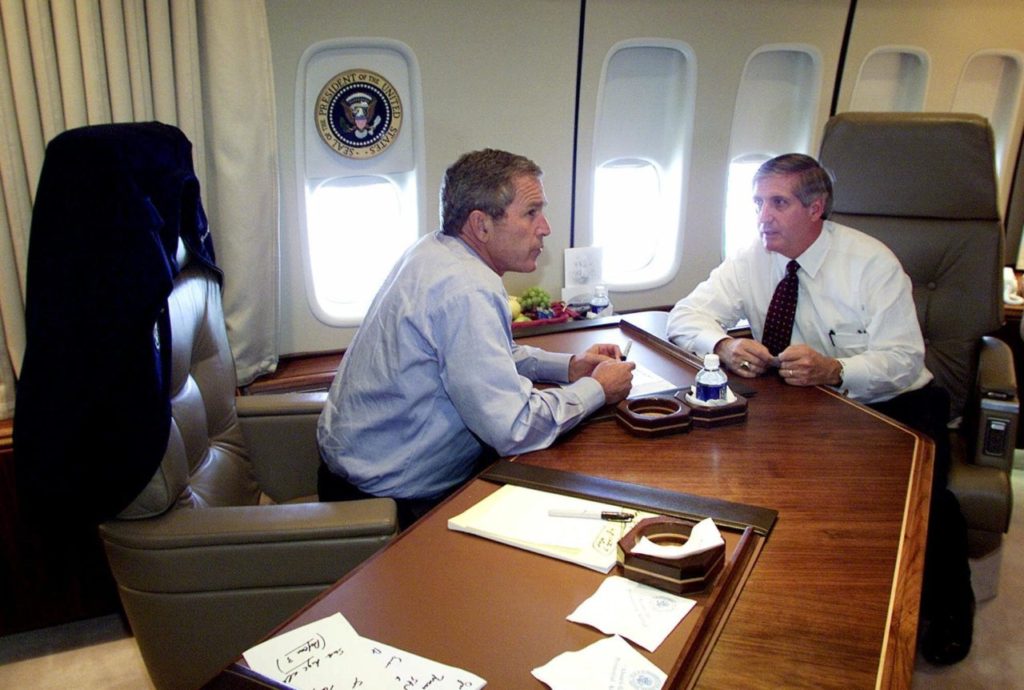
President Bush talks with his Chief of Staff Andrew Card aboard Air Force One during a flight to Offutt Air Force Base in Omaha, Nebraska. (AP Photo/Doug Mills)
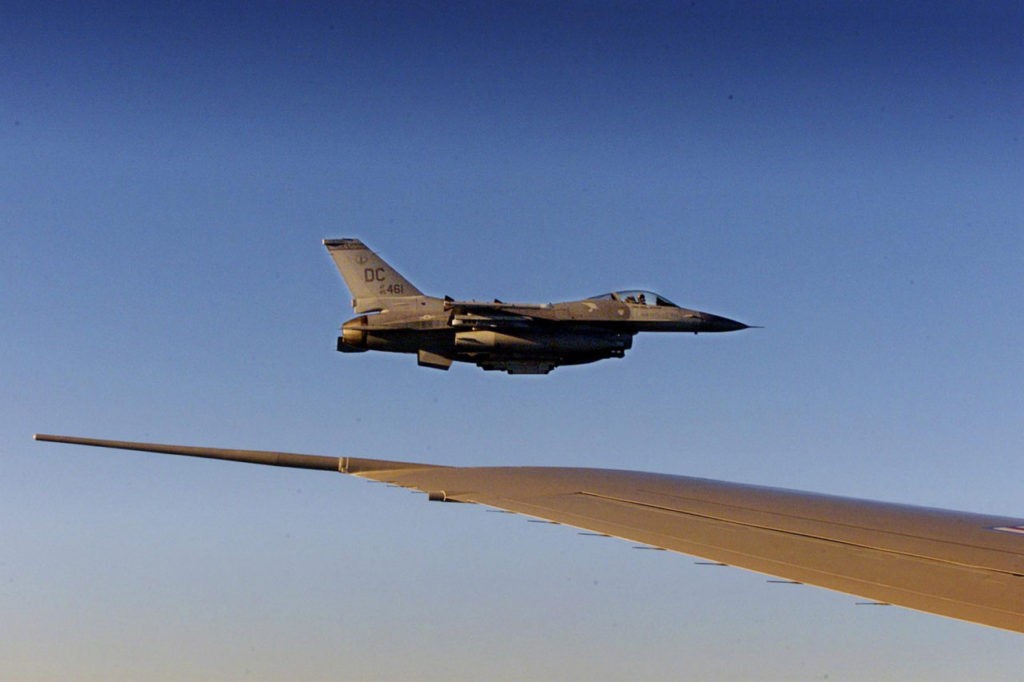
An F-16 fighter flies just off the wing of Air Force One on a flight back to Washington, DC. (DOUG MILLS/AFP/Getty Images)
Reports of the attack filled the front pages of the world’s newspapers.
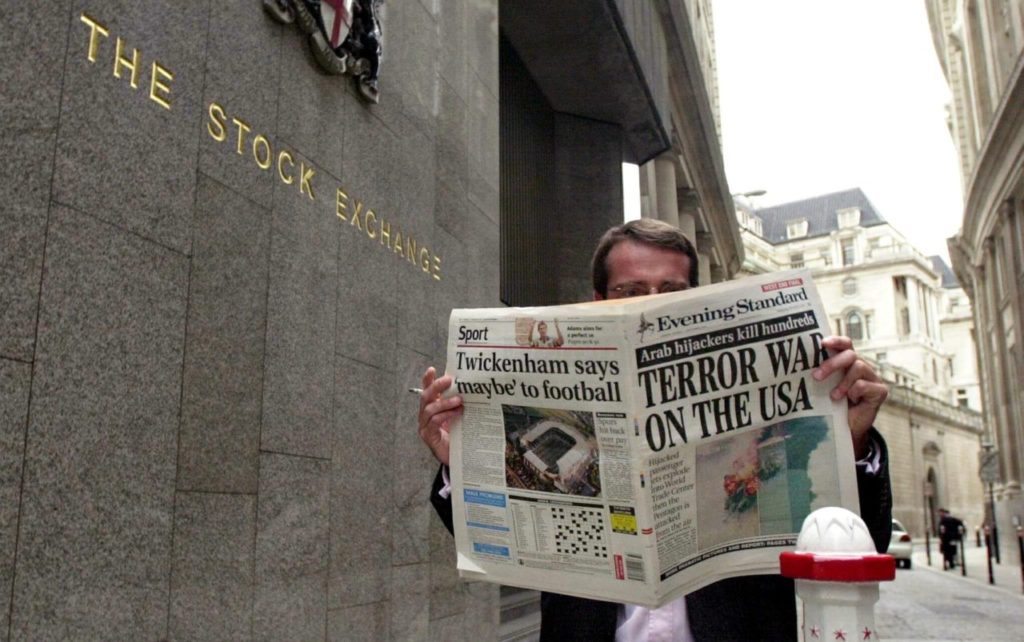
A trader outside the London Stock Exchange reads the evening paper with “Terror war on USA” on the front page. (NICOLAS ASFOURI/AFP/Getty Images)
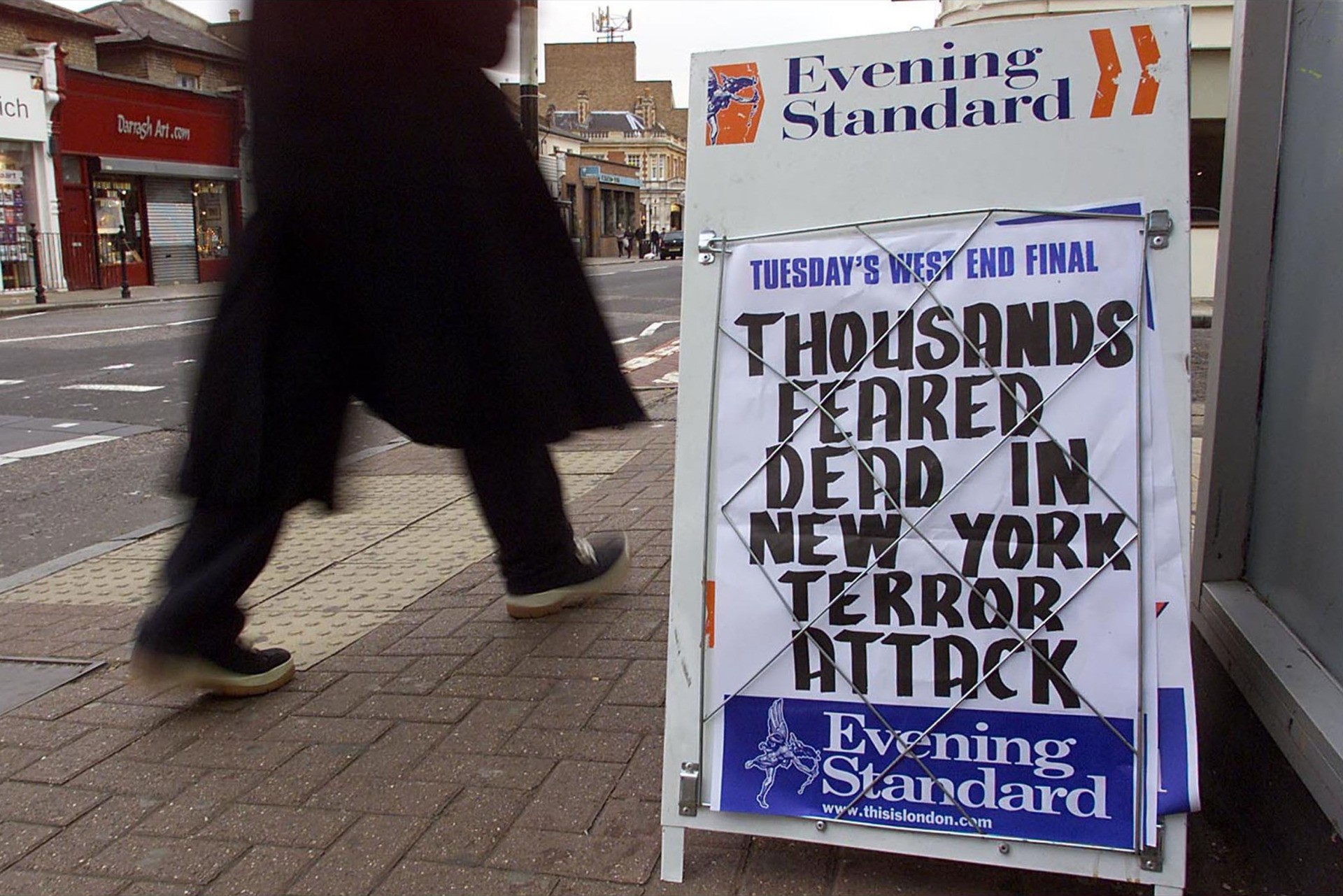
An evening newspaper billboard in London reports on the attacks. (Graham Barclay/BWP Media/Getty Images)
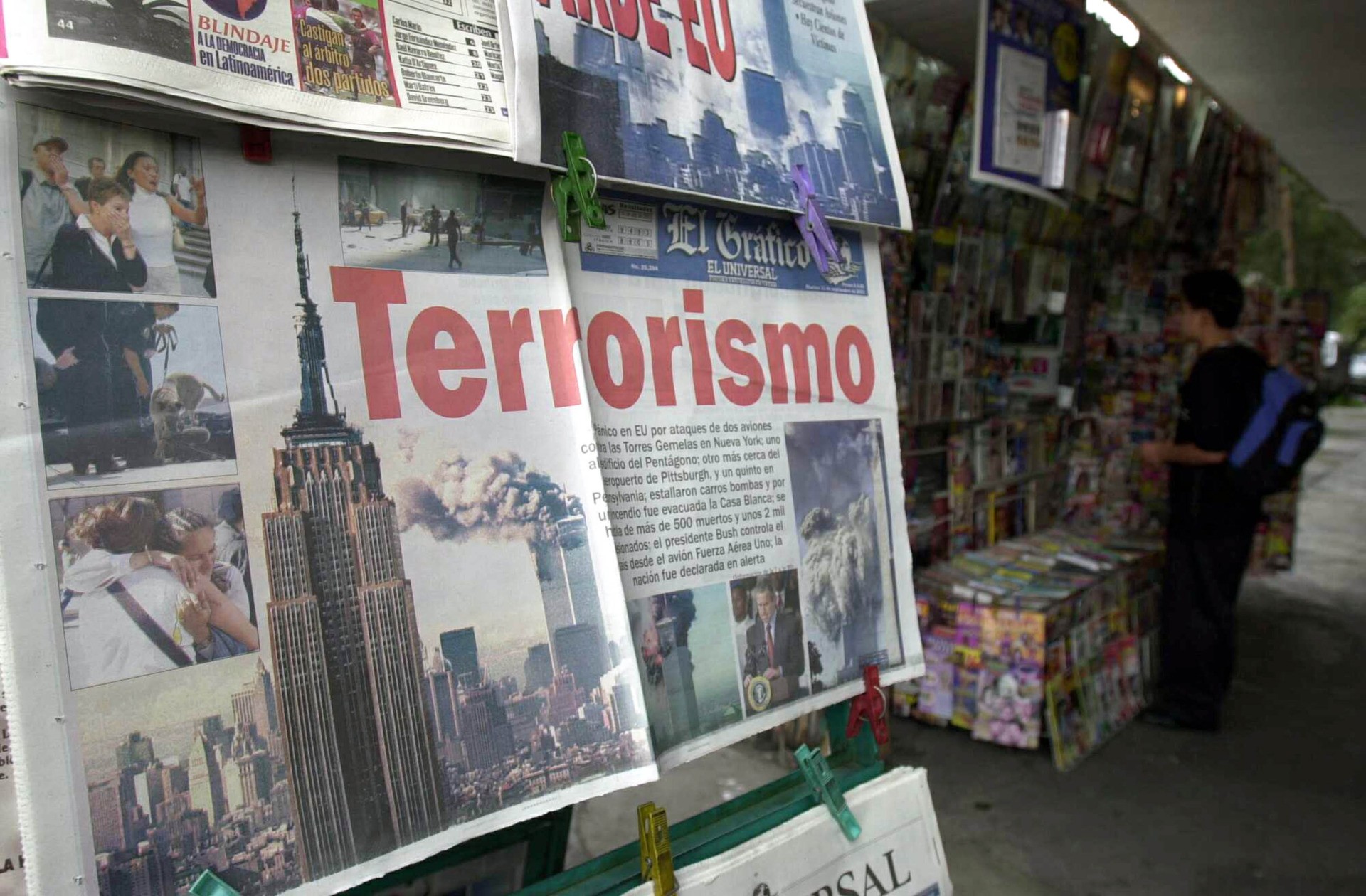
Mexican newspapers report the attacks with the simple headline “terrorism” on September 11, 2001, in Mexico City. (Susana Gonzalez/Getty Images)
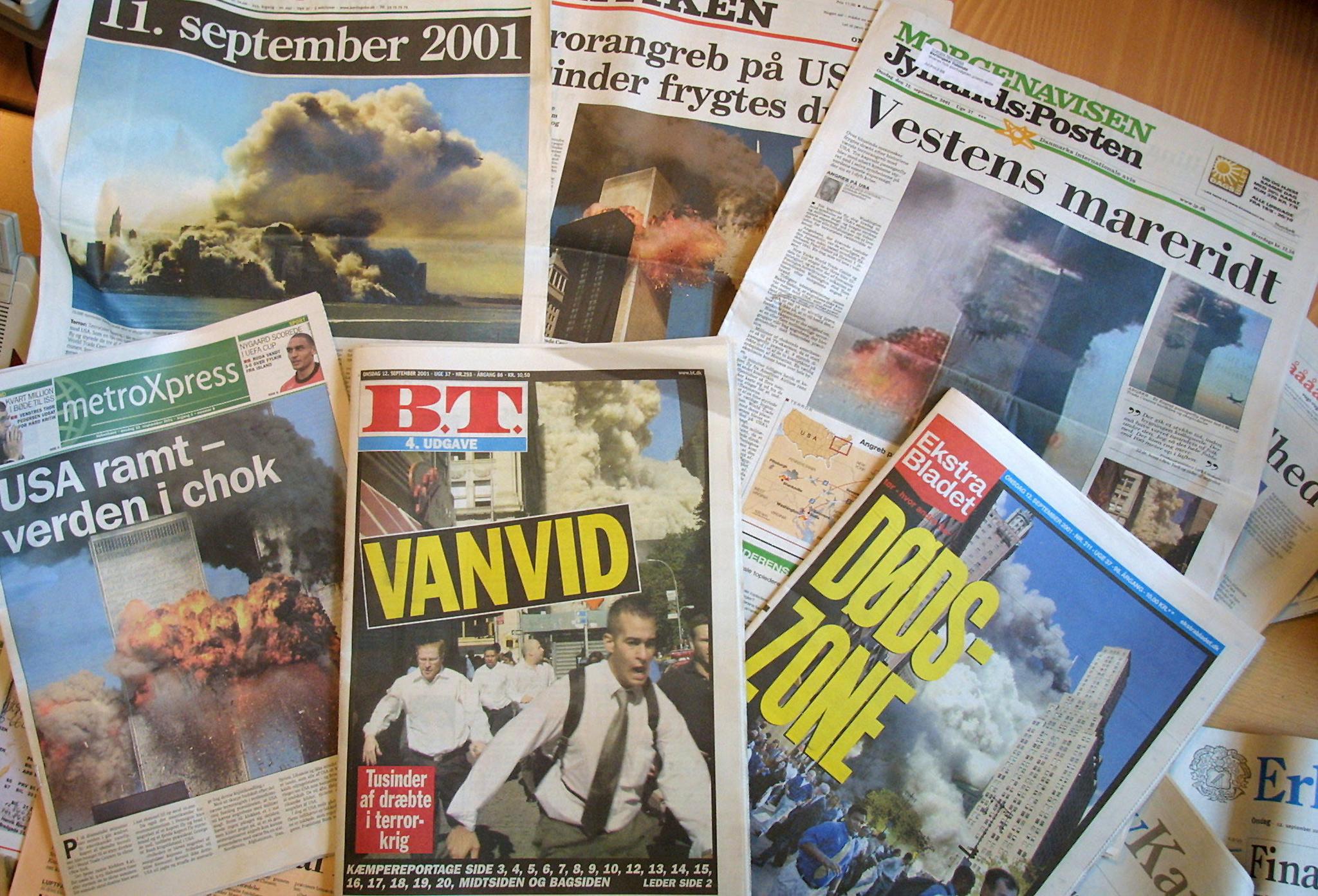
The front pages of six major Danish newspapers on September 12, 2001. Headlines read: “the 11th of September 2001” written on black background, “Terrorist attack on the USA, thousands feared killed,” “The Nightmare of the western world” and “USA hit .. the world in Shock,” “Madness,” and “Death zone ” (JENS NOERGAARD LARSEN/SCANPIX DENMARK/AFP via Getty Images)
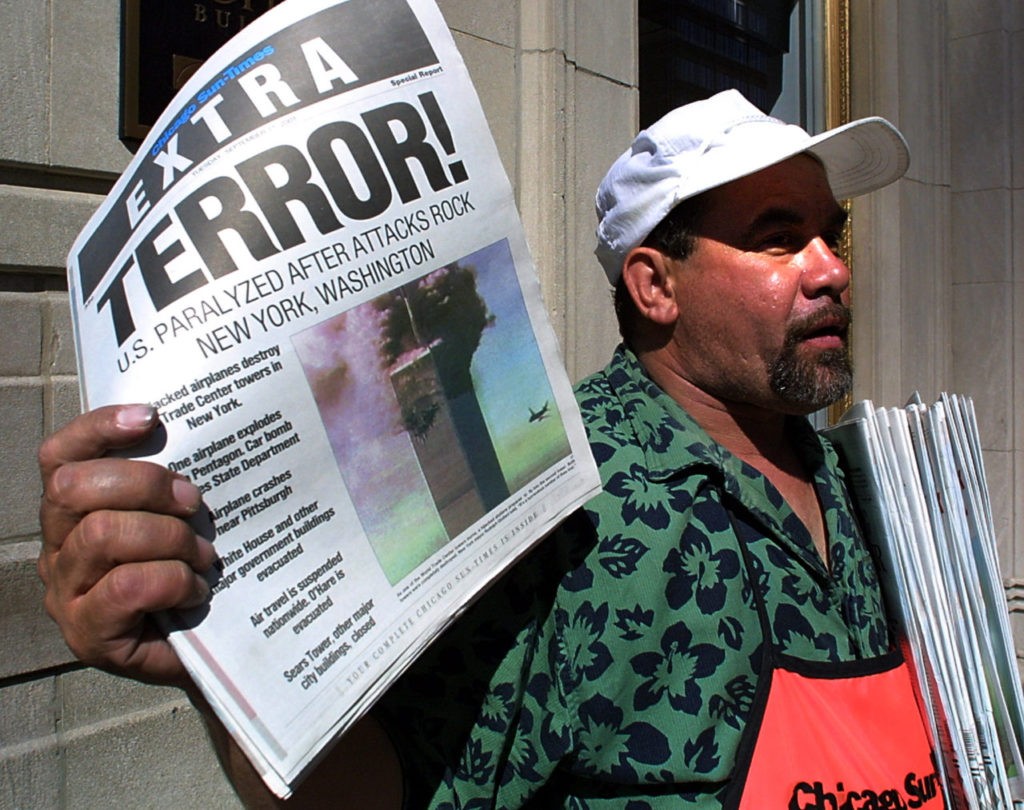
Newspaper vendor Carlos Mercado sells the “Extra” edition of the Chicago Sun-Times. (SCOTT OLSON/AFP/Getty Images)
As the debris settled, New York’s first responders began to search for survivors in the ruins of the World Trade Center.
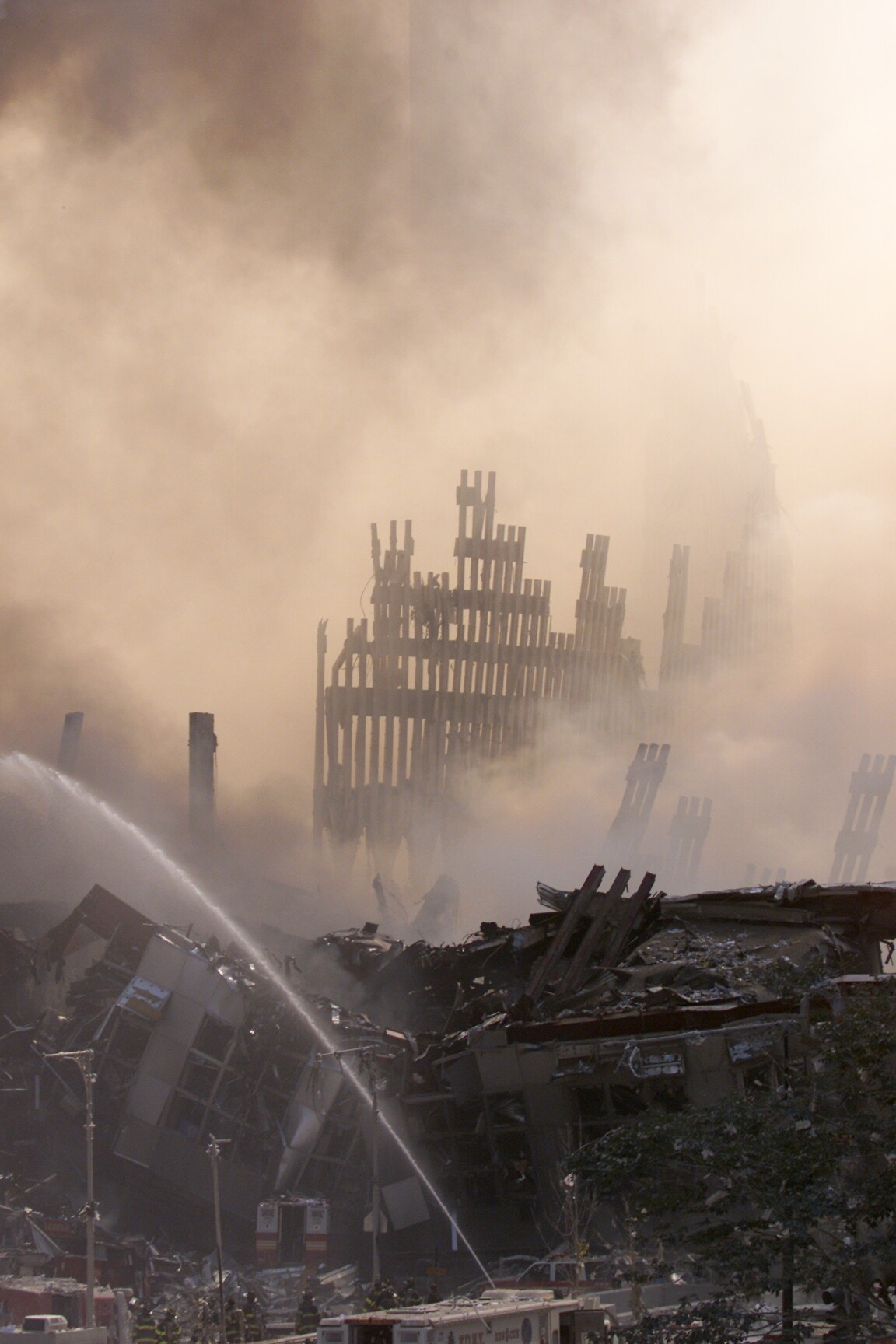
(Robert Deutsch-USA TODAY)
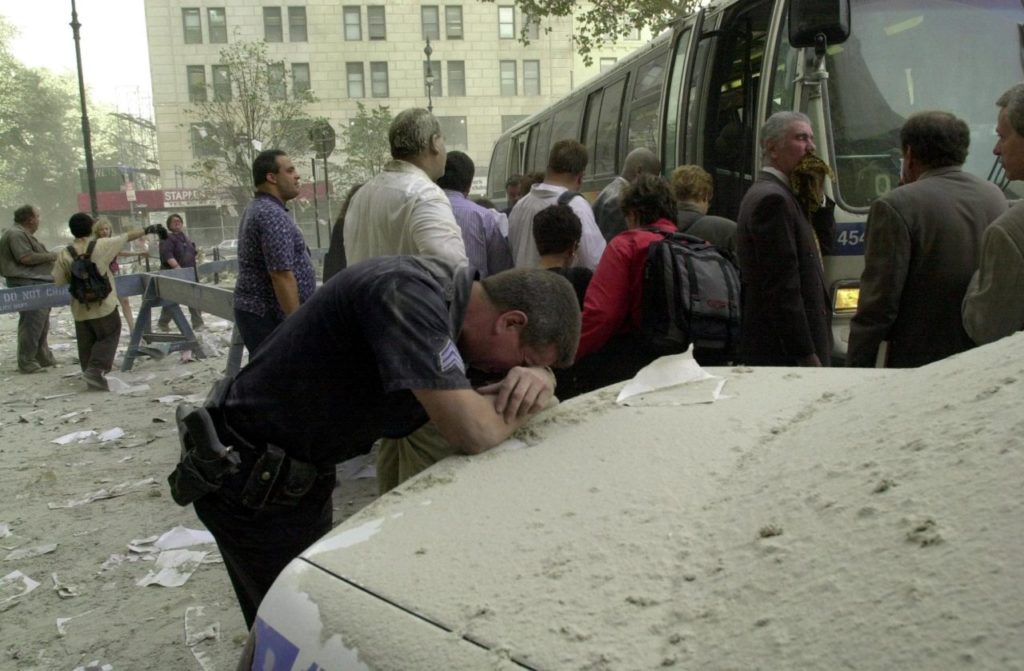
An exhausted police officer rests on a car covered in dust near the World Trade Center. (STAN HONDA/AFP/Getty Images)
As evening descended on New York City, thick smoke clouded the skies over Lower Manhattan, billowing from the ruins where the World Trade Center once stood.
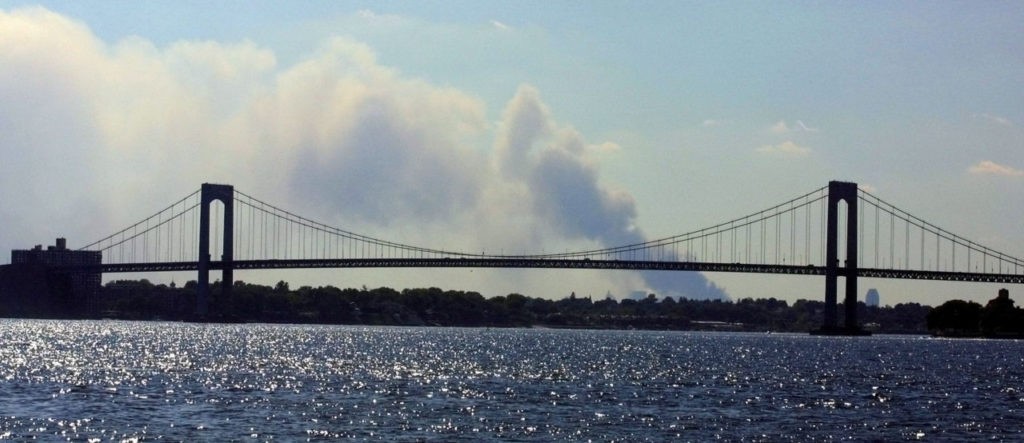
Late afternoon, smoke rises in the distance before the Long Island and the Throgs Neck Bridge between the Bronx and Queens following the destruction of the Twin Towers. (MATT CAMPBELL/AFP/Getty Images)
That evening, Americans across the nation gathered to pray.
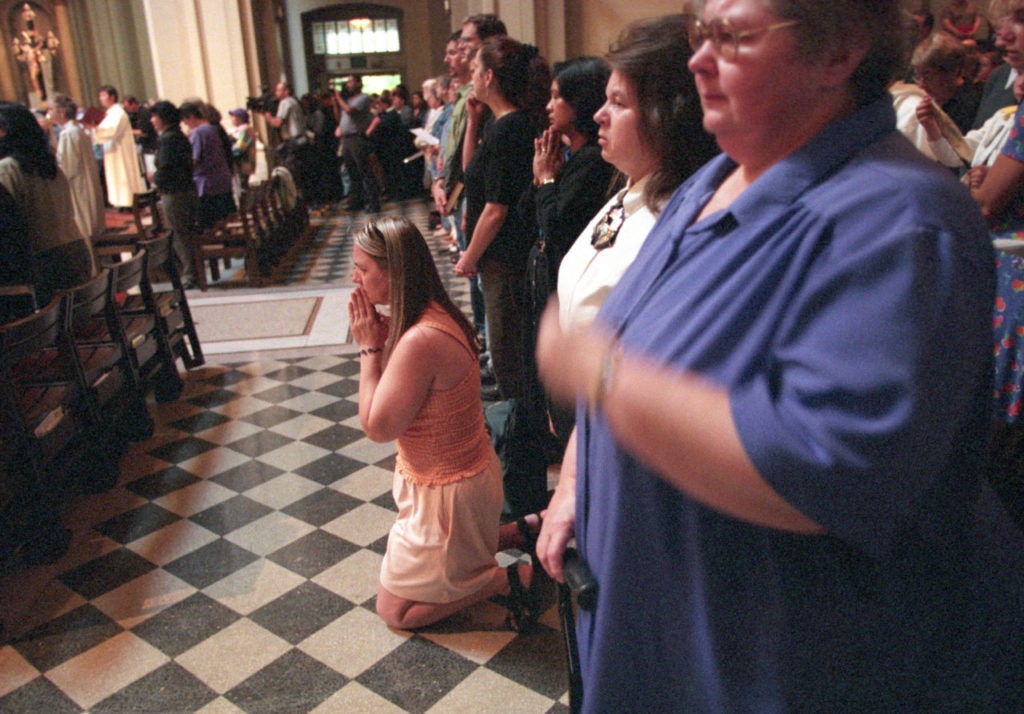
Patricia Petrowitz falls to her knees in prayer in Seattle’s St. James Cathedral during a prayer service on September 11, 2001. The Cathedral was filled to standing room only. (Tim Matsui/Getty Images)
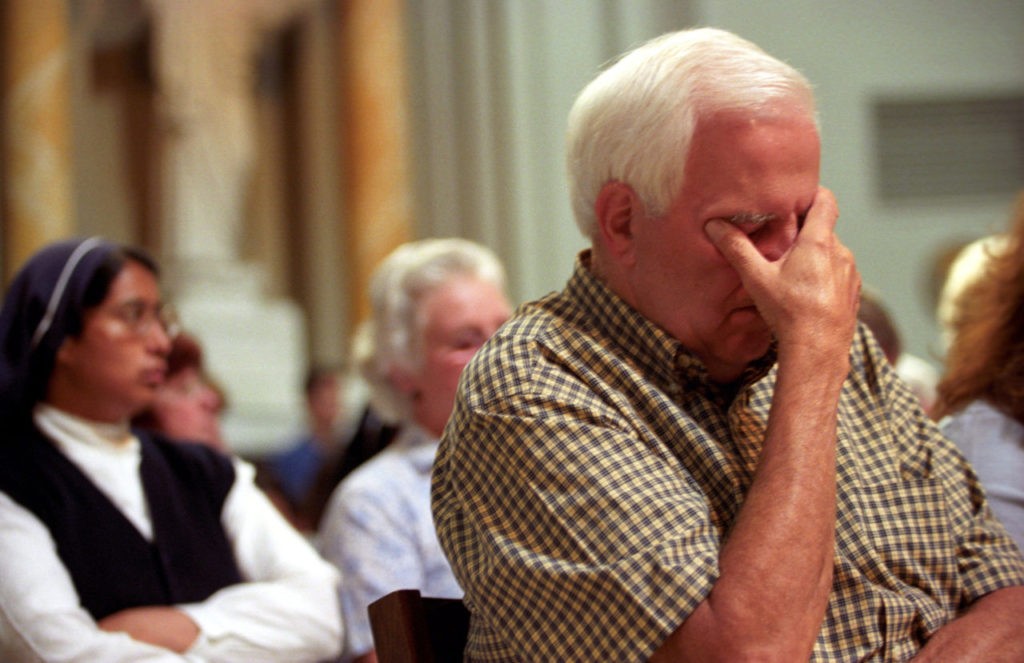
Kellog Metcalf closes his eyes during the prayer service in Seattle’s St. James Cathedral. (Tim Matsui/Getty Images)
Republicans and Democrats stood shoulder to shoulder on the steps of the U.S. Capitol in a show of national unity.
They sang “God Bless America.”
[embedded content]
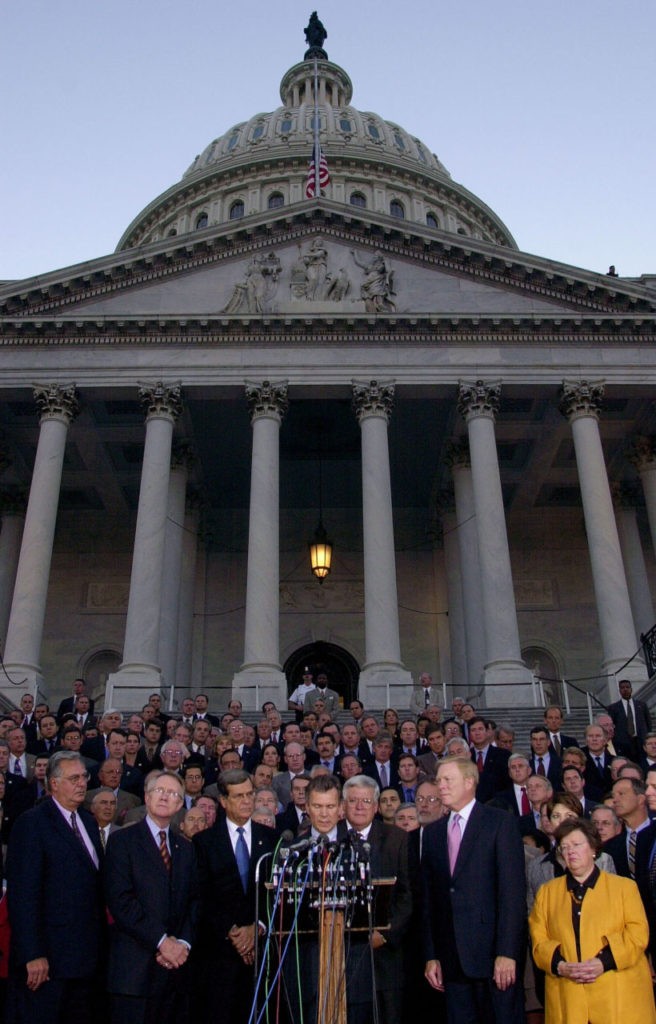
From front left: Rep. Dick Armey (R-TX), Sen. Harry Reid (D-NV), Sen. Trent Lott (R-MS), Sen. Tom Daschle (D-SD), House Speaker Dennis Hastert (R-IL), Rep. Richard Gephardt (D-MO), Sen. Barbara Mikulski (D-MD), and other Congressional members address the public on the evening of September 11, 2001. (AP Photo/Kenneth Lambert)
President Bush landed at Andrews Air Force Base in Maryland late in the afternoon and prepared to address the nation.
In his address from the Oval Office, President Bush said, “Today, our nation saw evil — the very worst of human nature. And we responded with the best of America.”
[embedded content]
As the nation prayed, the search for survivors continued.
Across the nation, volunteers donated blood to help New York. Sadly, it would soon become apparent that the donations were largely unnecessary because there were so few survivors rescued from the collapsed towers.
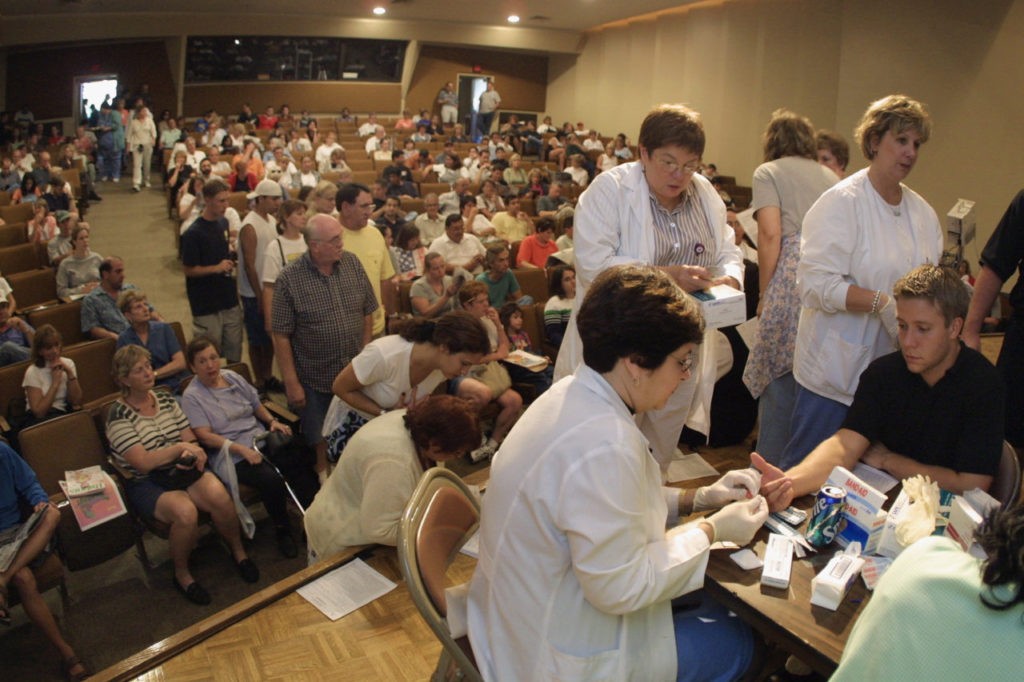
Volunteers donate blood at Lutheran General Hospital in Park Ridge, Illinois, to help victims of the World Trade Center attack. (Tim Boyle/Getty Images)
In the days that followed, people returned to Ground Zero with photographs of their missing loved ones, searching for any news of their whereabouts.
Thousands of missing person flyers were posted around Ground Zero.
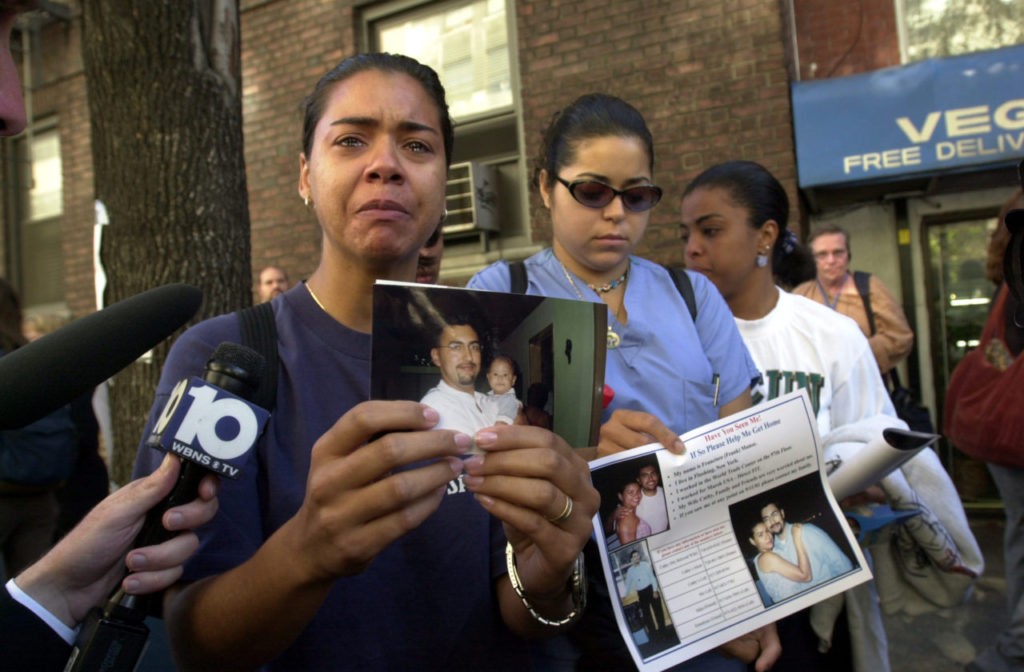
A woman holds up a picture of a missing loved one who was last seen at the World Trade Center. (AP Photo/Kathy Willens)
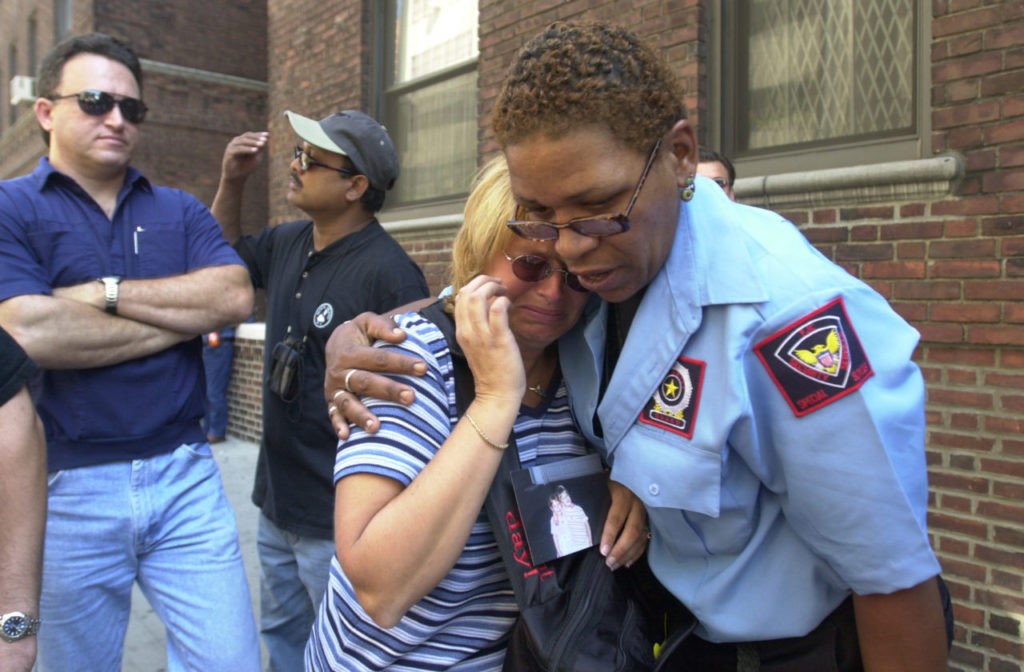
A woman is comforted as she holds a picture of her missing loved one who was last seen at the World Trade Center. (AP Photo/Kathy Willens)
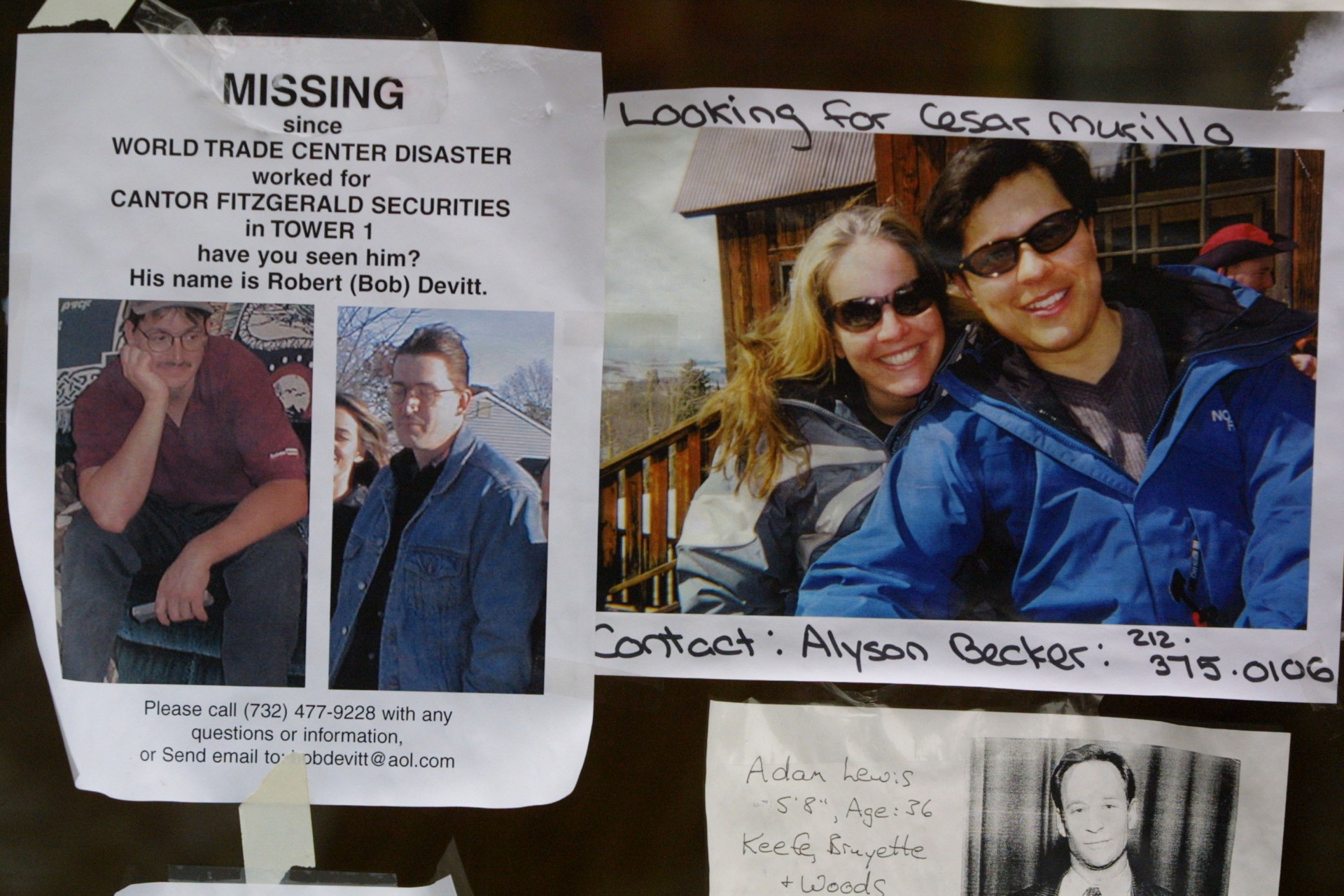
(Joe Raedle/Getty Images)
Many Americans came to see New York City Mayor Rudy Giuliani as “America’s mayor” in recognition of his steady leadership in the days following the attacks.
In the photograph below, Giuliani consoled Anita Deblase whose son, James, 44, was missing at the site of the World Trade Center. James Deblase was among the 658 employees of Cantor Fitzgerald who died on 9/11.
On September 12, military and first responders unfurled a large American flag on the roof of the Pentagon over the crash site.
In Shanksville, Pennsylvania, a makeshift altar was assembled near the crash site of United Airlines Flight 93.
A flag was raised over the rubble at Ground Zero.
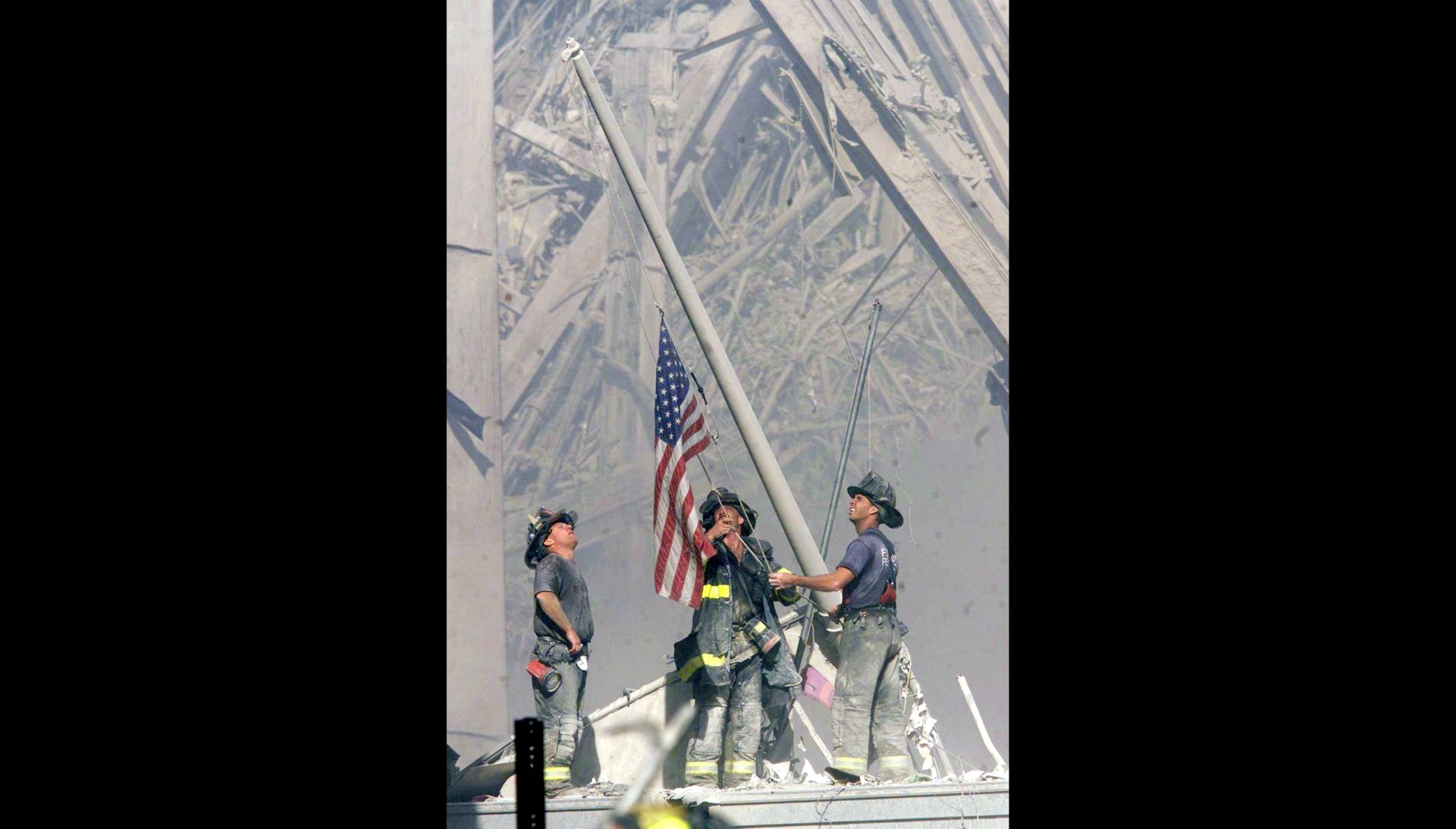
(Thomas E. Franklin/The Record via USA TODAY NETWORK)
And the nation prayed.
President Bush issued a proclamation calling for a National Day of Prayer and Remembrance on Friday, September 14, 2001.
“I ask that the people of the United States and places of worship mark this National Day of Prayer and Remembrance with noontime memorial services, the ringing of bells at that hour, and evening candlelight remembrance vigils.”
That Friday afternoon, President Bush visited the first responders and rescue workers at Ground Zero and delivered an impromptu speech that captured the sentiment of the country:
[embedded content]
Around the nation, Americans of all faiths gathered to pray and mourn at memorial services and evening vigils.
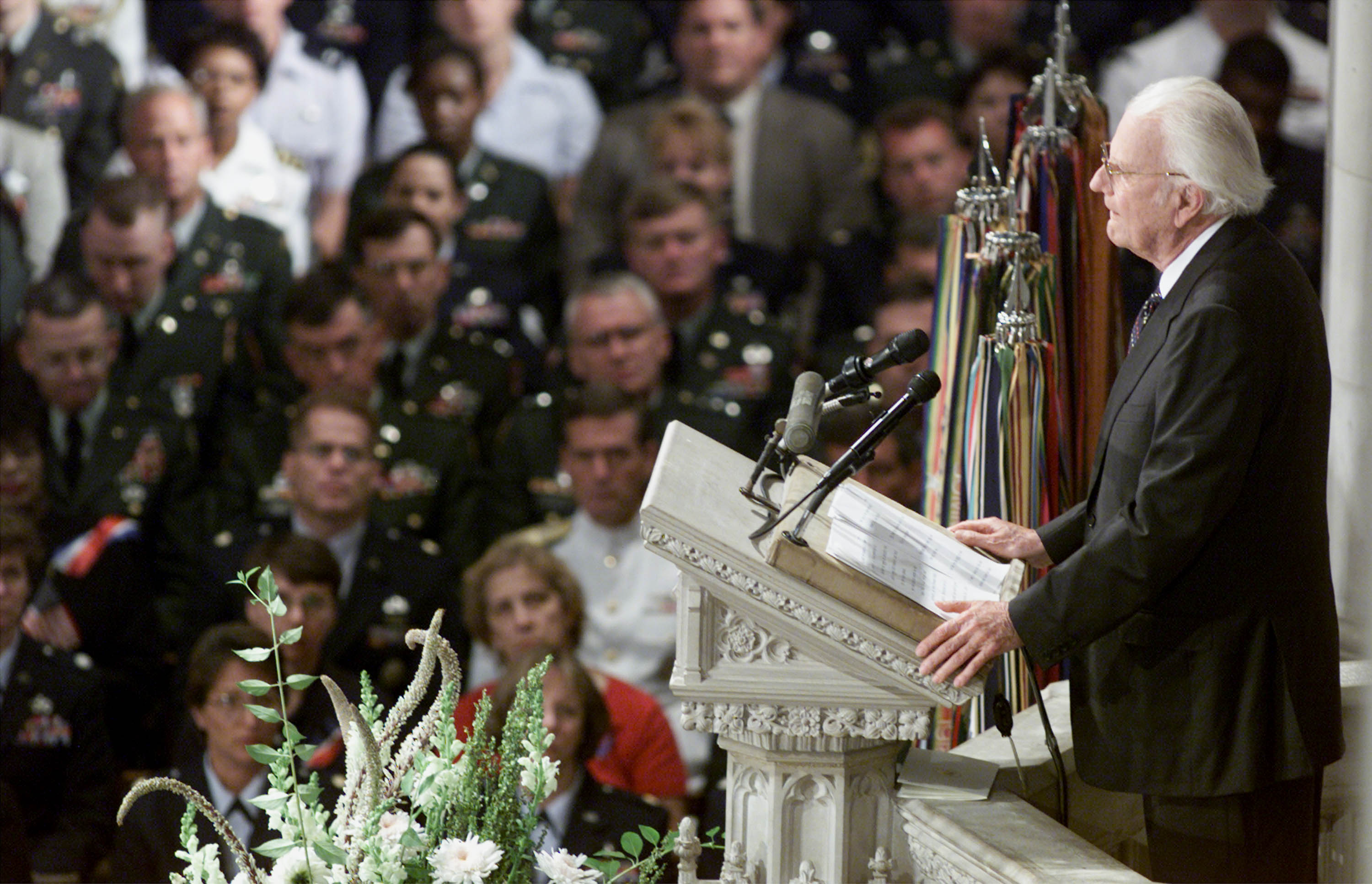
Rev. Billy Graham delivers the sermon during the National Day of Prayer and Remembrance at the National Cathedral in Washington, DC, on September 14, 2001. (Mark Wilson/Getty Images)
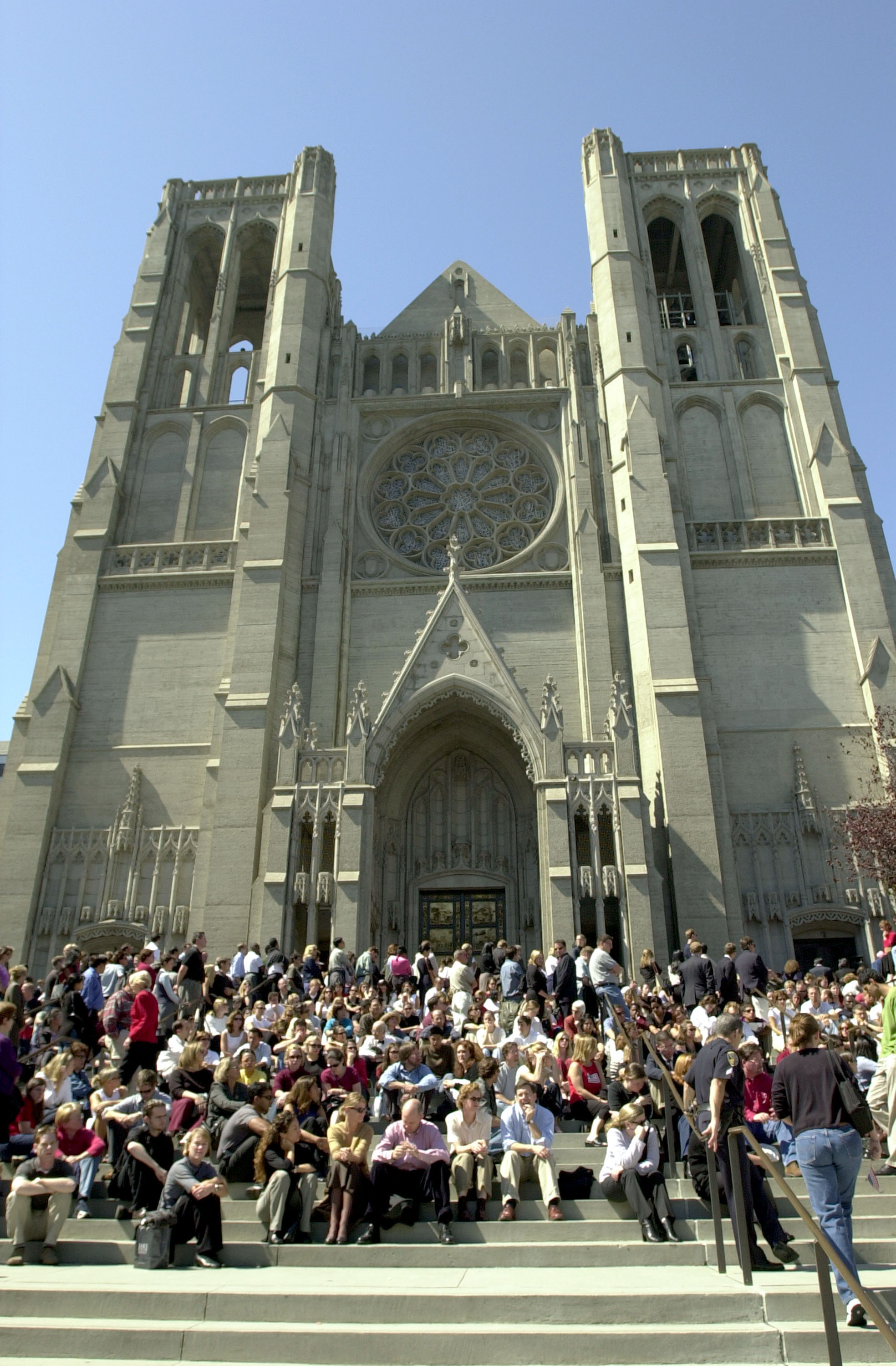
A crowd of nearly 6,000 people gather on the steps of Grace Cathedral in San Francisco, CA, for a prayer service on September 14, 2001. (Justin Sullivan/Getty Images)
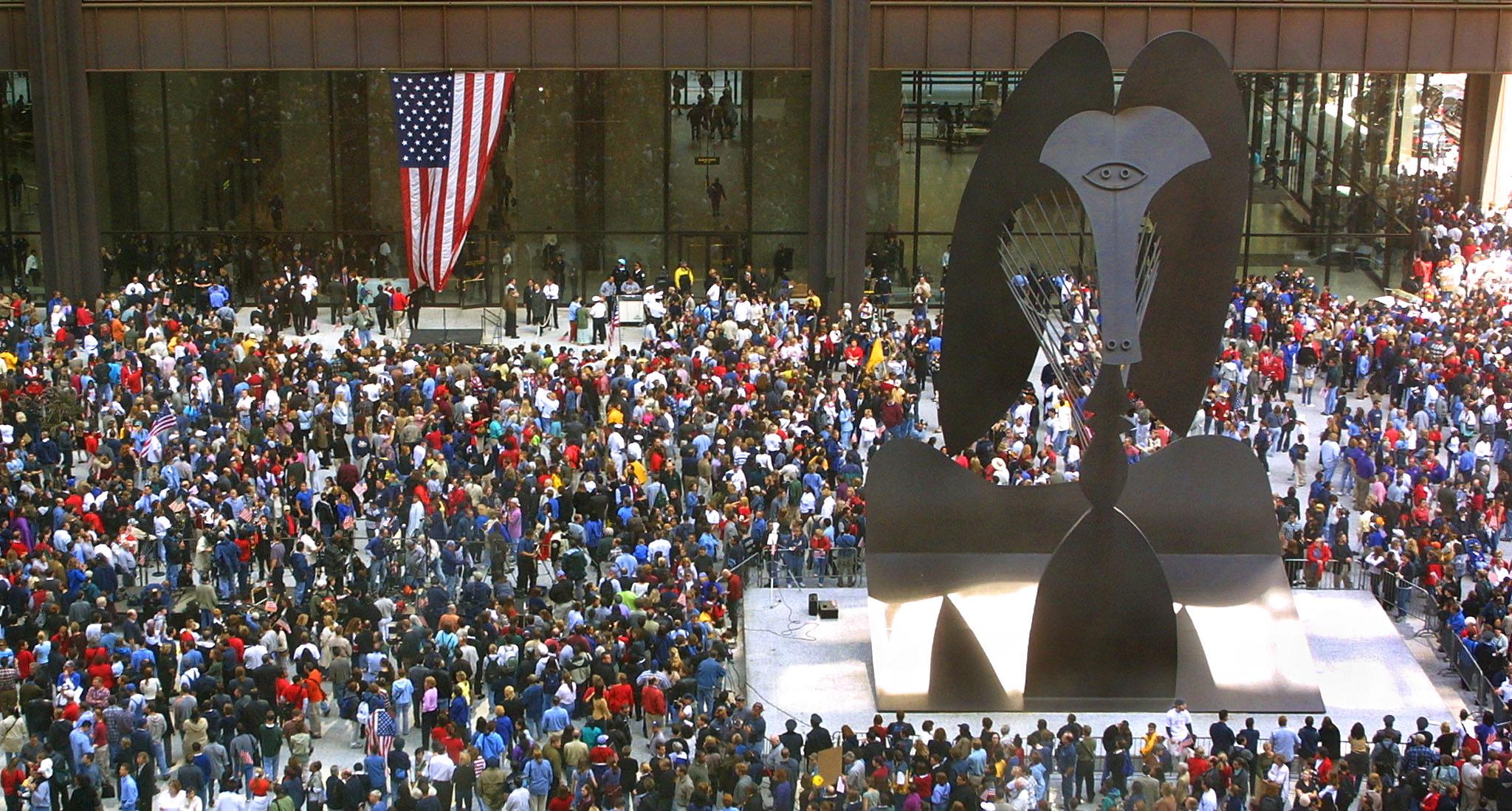
Several thousand people gather in the Daley Center Plaza in downtown Chicago for the memorial service on September 14, 2001 (SCOTT OLSON/AFP via Getty Images)
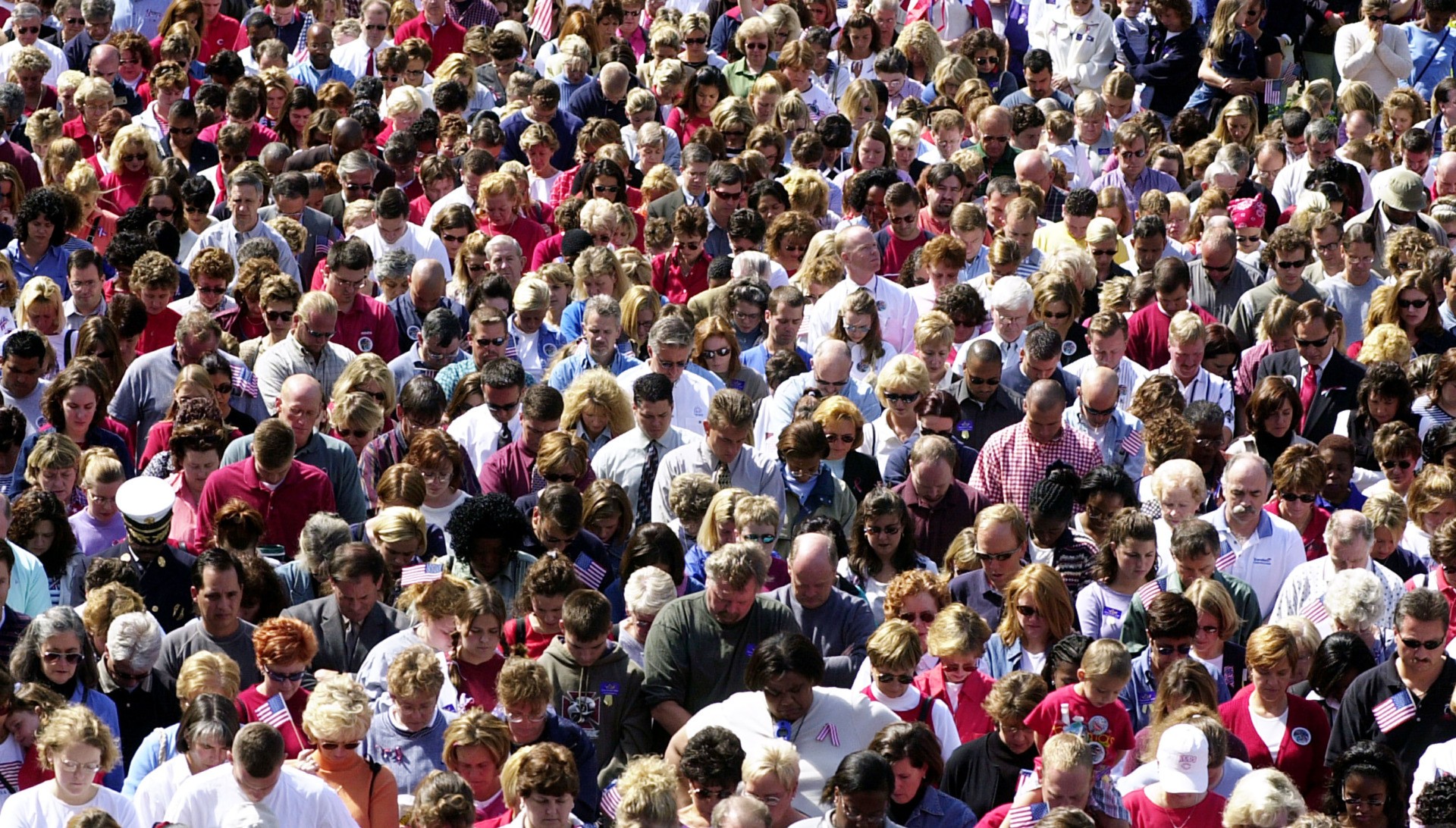
Thousands of people gather for a prayer service on Fountain Square in Cincinnati, OH, on September 14, 2001. (Mike Simons/Getty Images)
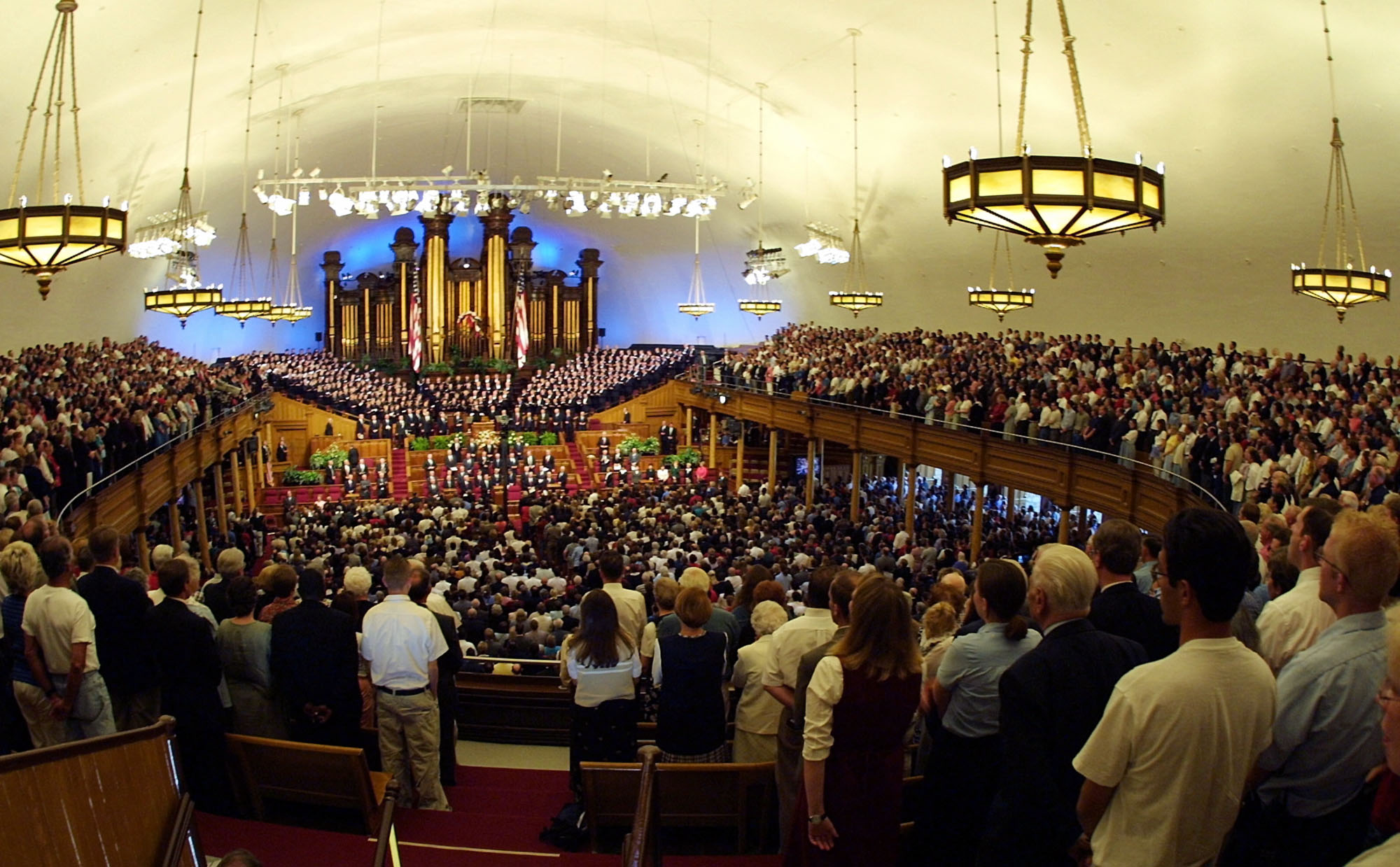
More than 5,000 people attend a prayer service on Temple Square in Salt Lake City, Utah, on September, 14, 2001. (GEORGE FREY/AFP via Getty Images)
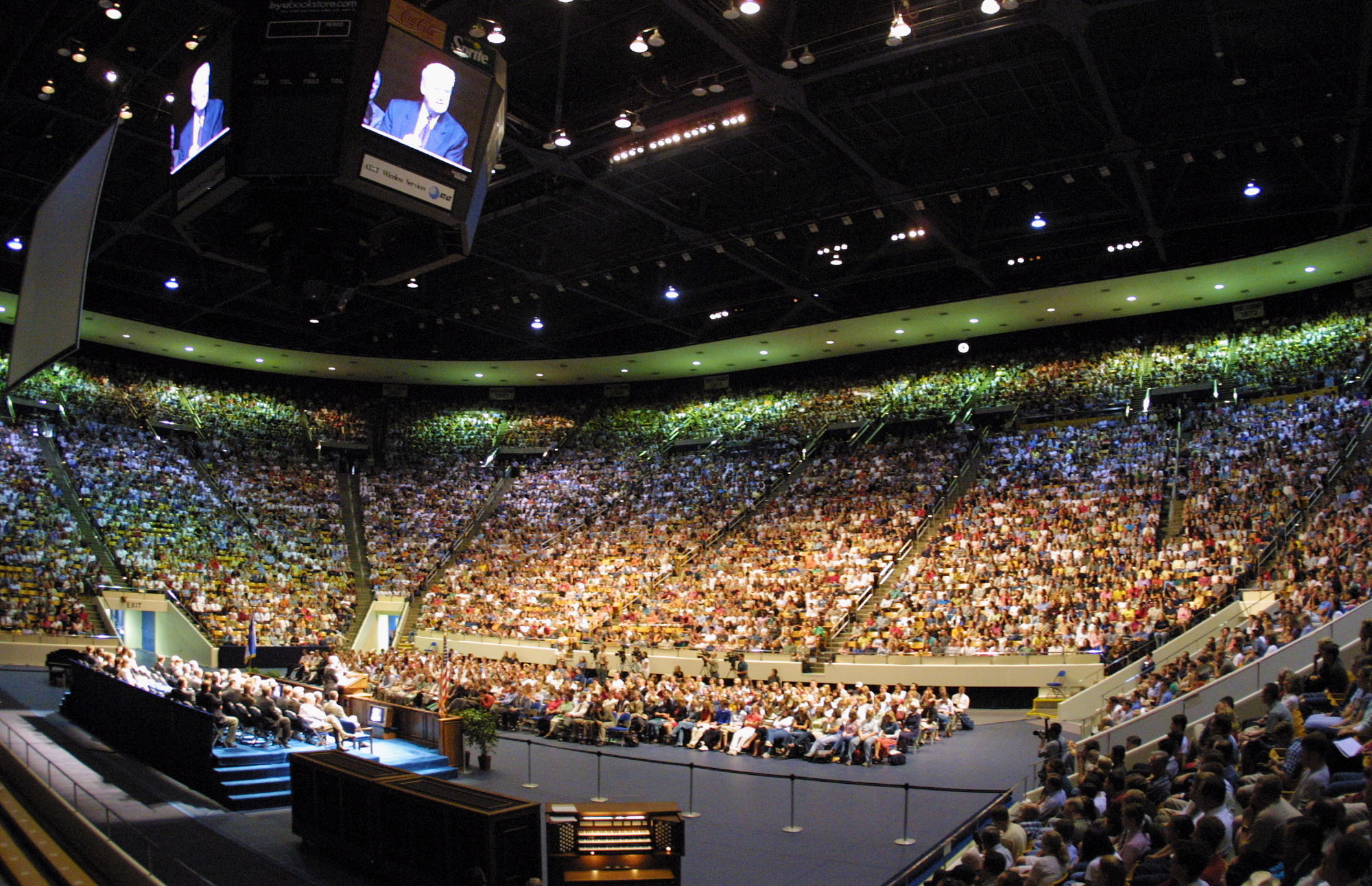
More than 15,000 students and faculty attend a prayer service at Brigham Young University in Provo, Utah, on September 14, 2001. (GEORGE FREY/AFP via Getty Images)
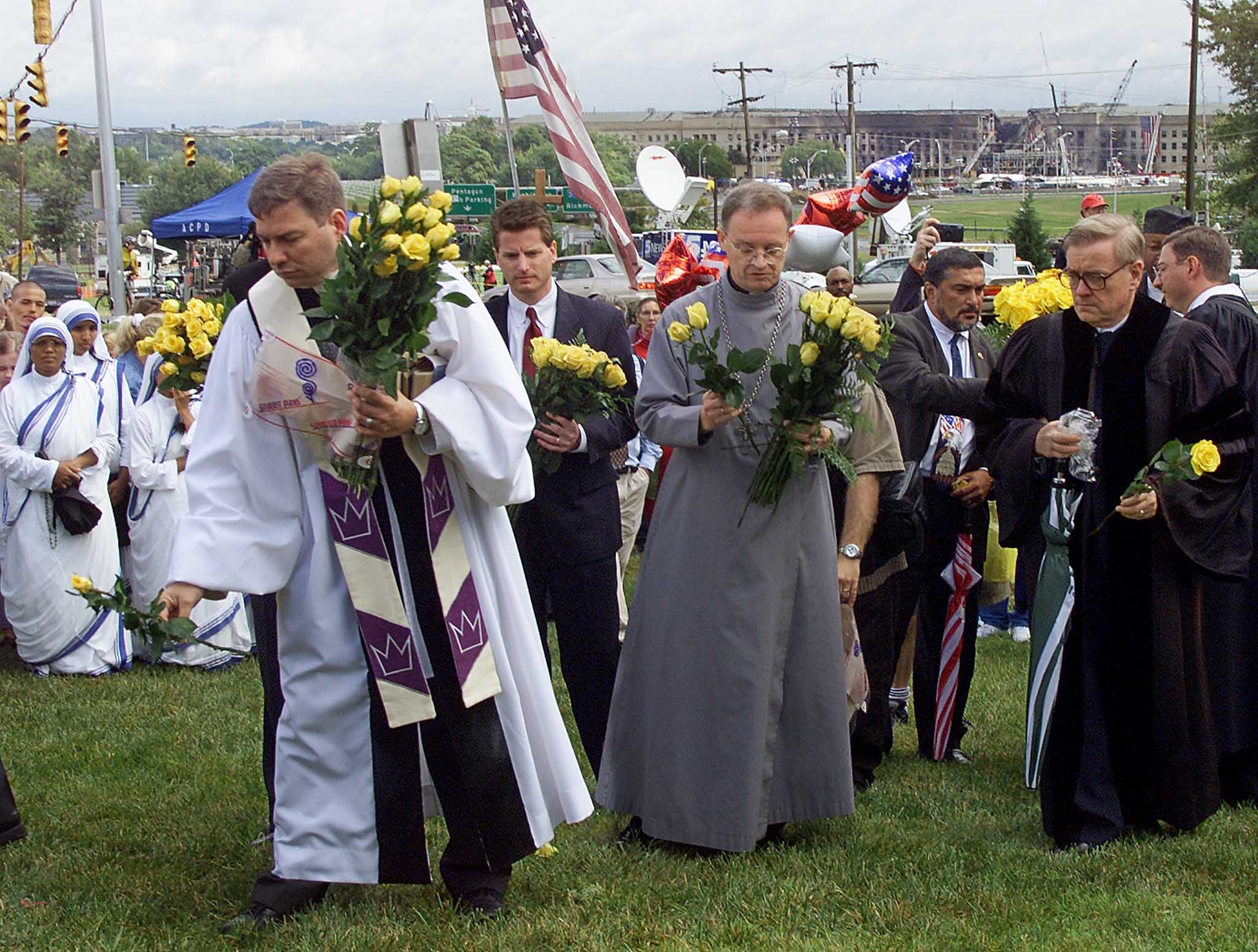
Clergy and lay people participate in a prayer service in front of the damaged side of the Pentagon on September, 14, 2001.(LUKE FRAZZA/AFP via Getty Images)
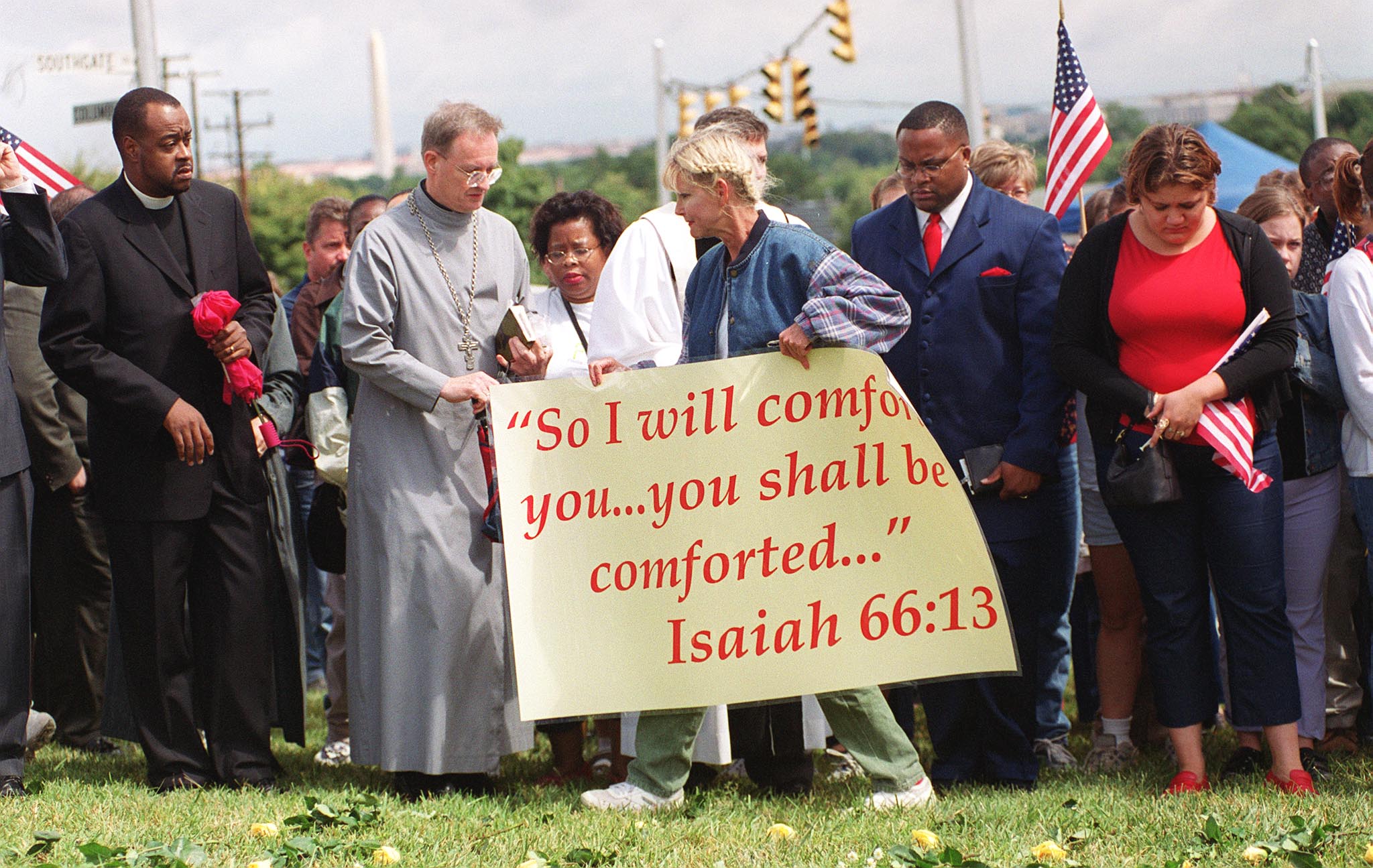
A woman carries a poster with a passage from the Book of Isaiah during the prayer service at the Pentagon on September 14, 2001. (EVA-LOTTA JANSSON/AFP via Getty Images)
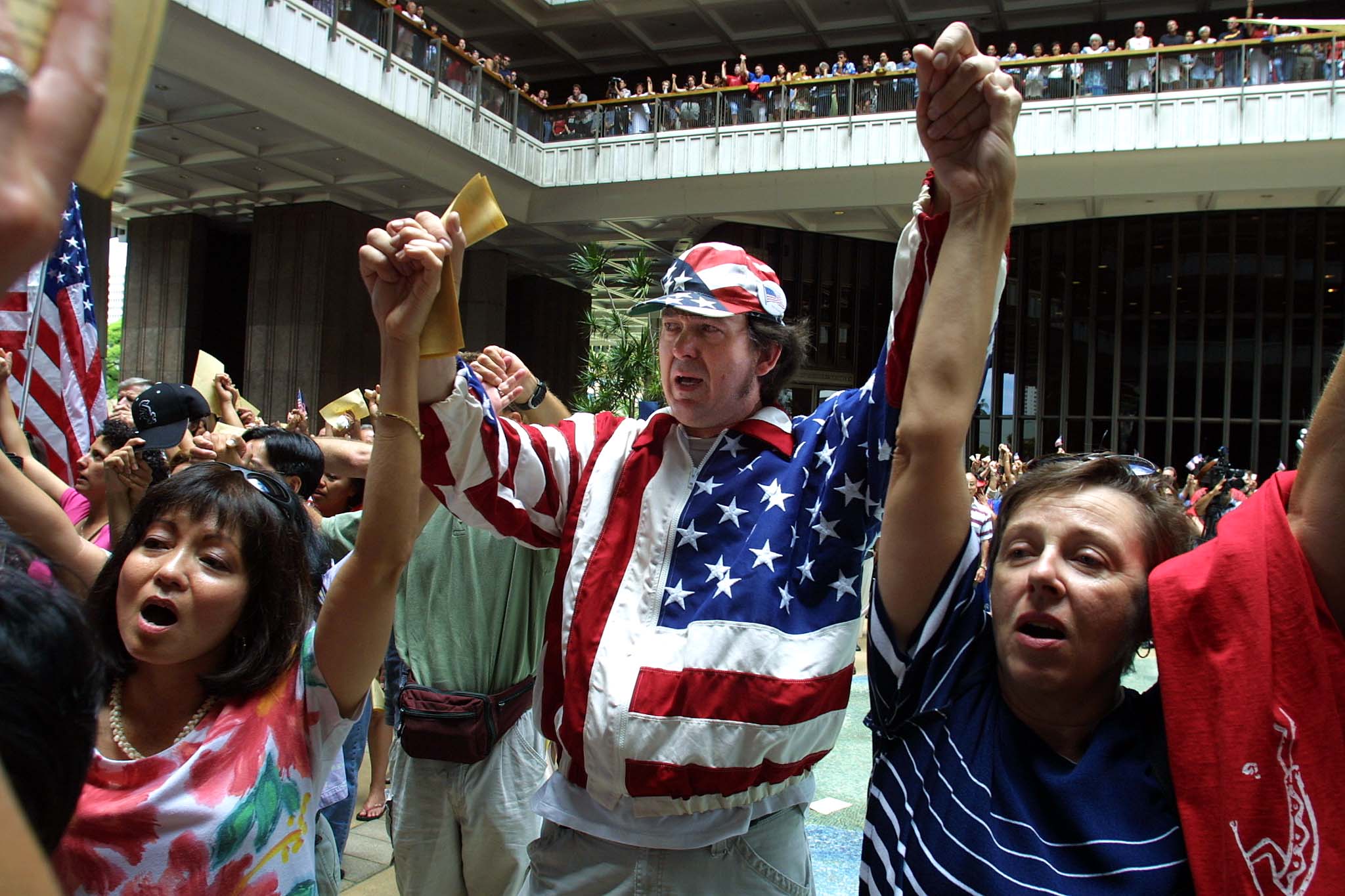
Barry Love (C) from Honolulu cries as he sings “God Bless America” at the end of a service at the Hawaii State Capitol on September 14, 2001, where Muslim, Christian, Jewish, and Hawaiian religious leaders spoke. (MIKE NELSON/AFP via Getty Images)
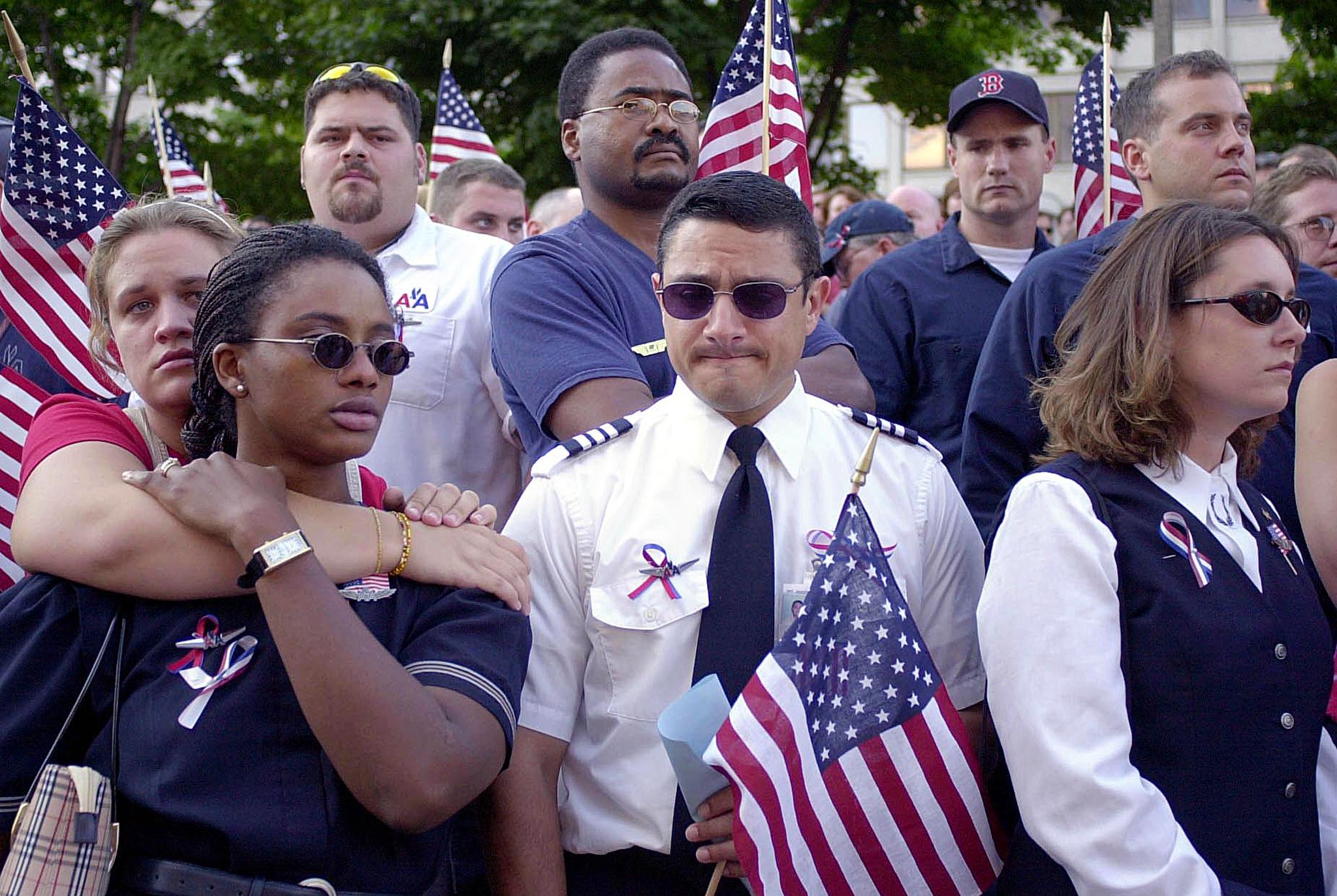
American Airlines pilot Emmanue Remy (center), technicians, and flight attendants attend an interfaith vigil on September 13, 2001, at the Boston City Hall Plaza in Massachusetts. (JOHN MOTTERN/AFP via Getty Images)
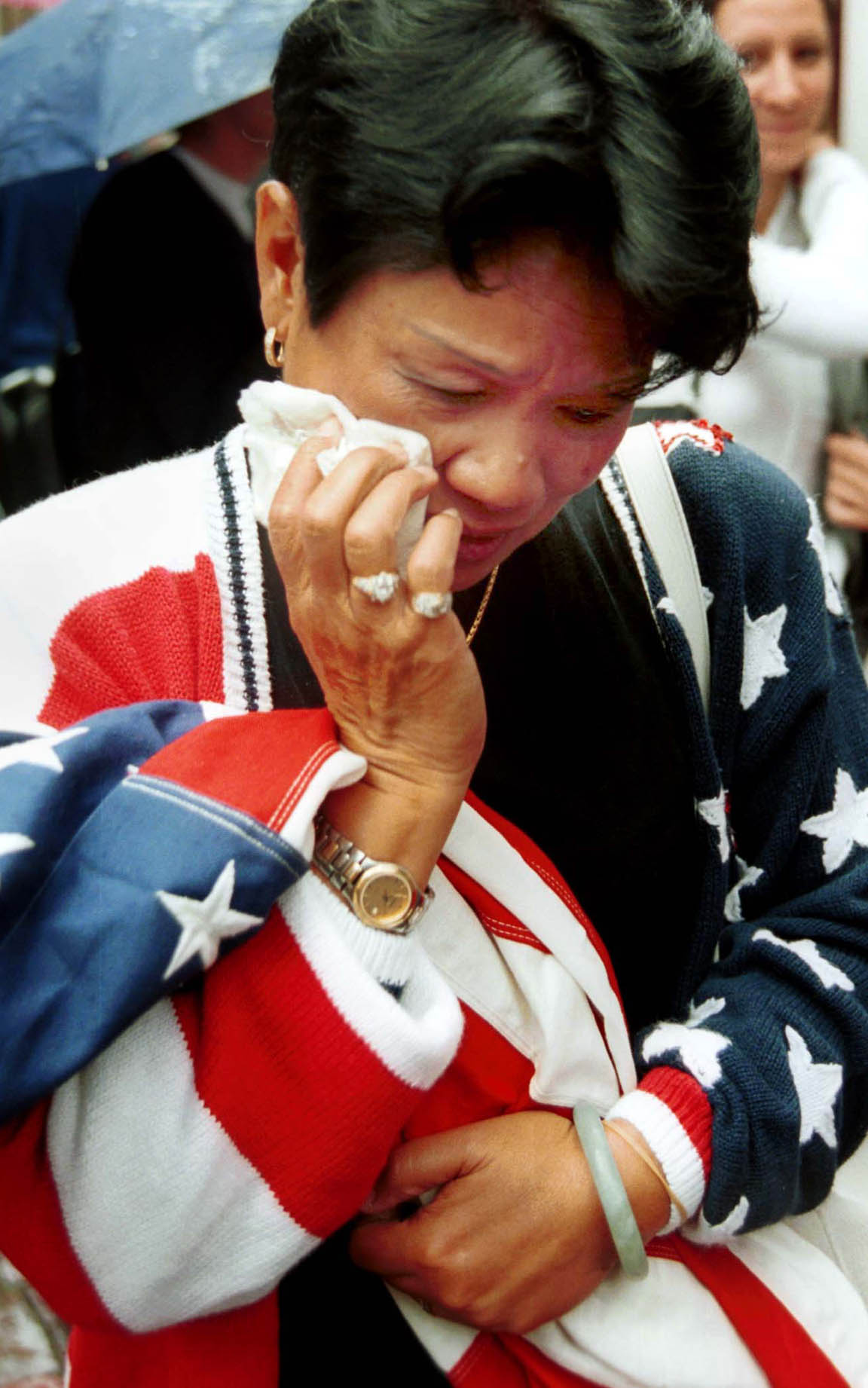
Tip Catalano, 54, of Hingham, Massachusetts, clutches her American flag after attending a prayer service at the Old North Church in Boston, Massachusetts, on September 14, 2001. (JESSICA RINALDI/AFP via Getty Images)
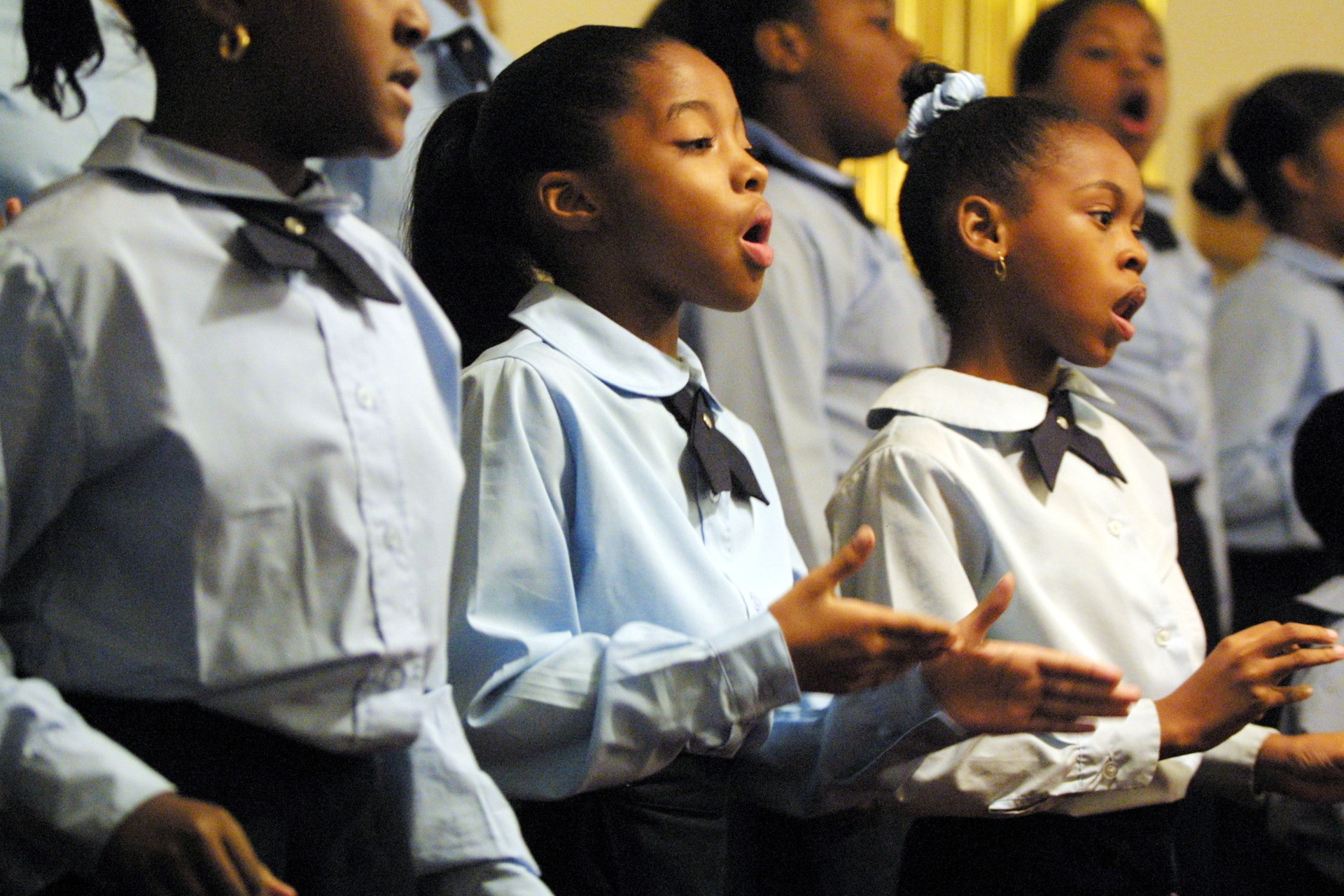
Children sing during a morning mass at St. John the Baptist Church on September 16, 2001. (Joe Raedle/Gettyimages)
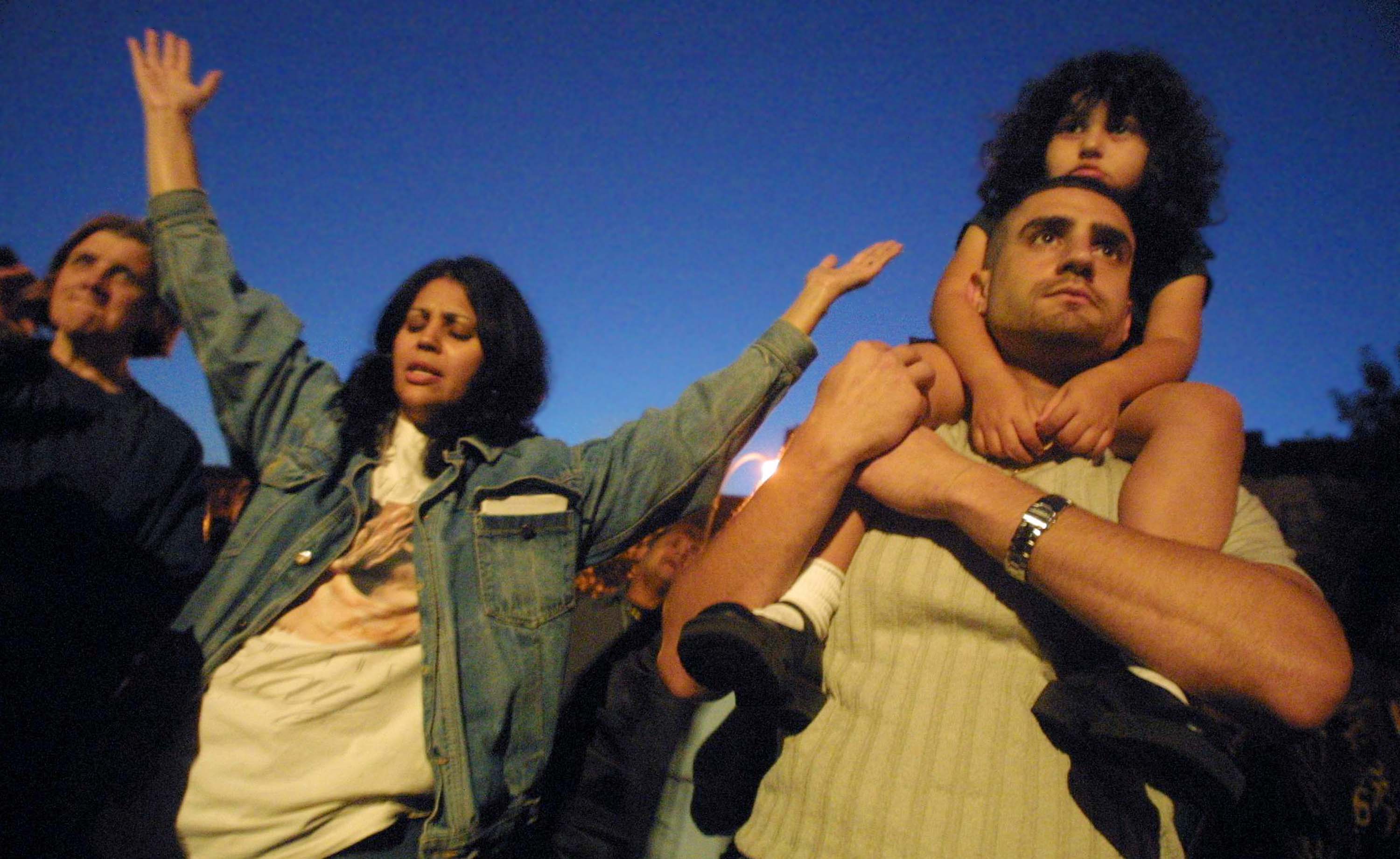
People pray at a remembrance service at Seward Park High School in New York City on September 16, 2001. (Mario Tama/Getty Images)
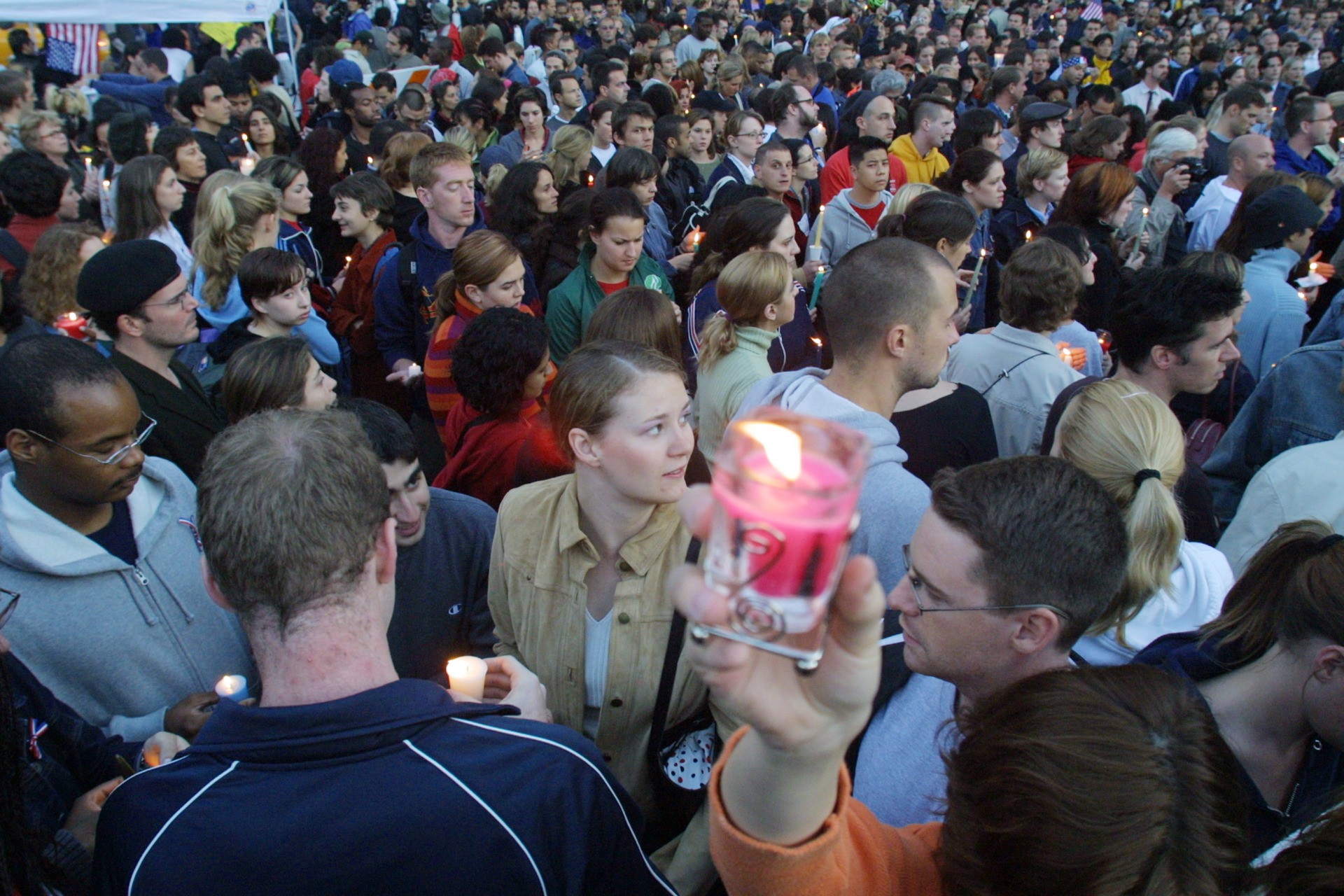
New Yorkers gather for a candlelight vigil in Manhattan’s Union Square Park on September 14, 2001. (Joe Raedle/Getty Images)
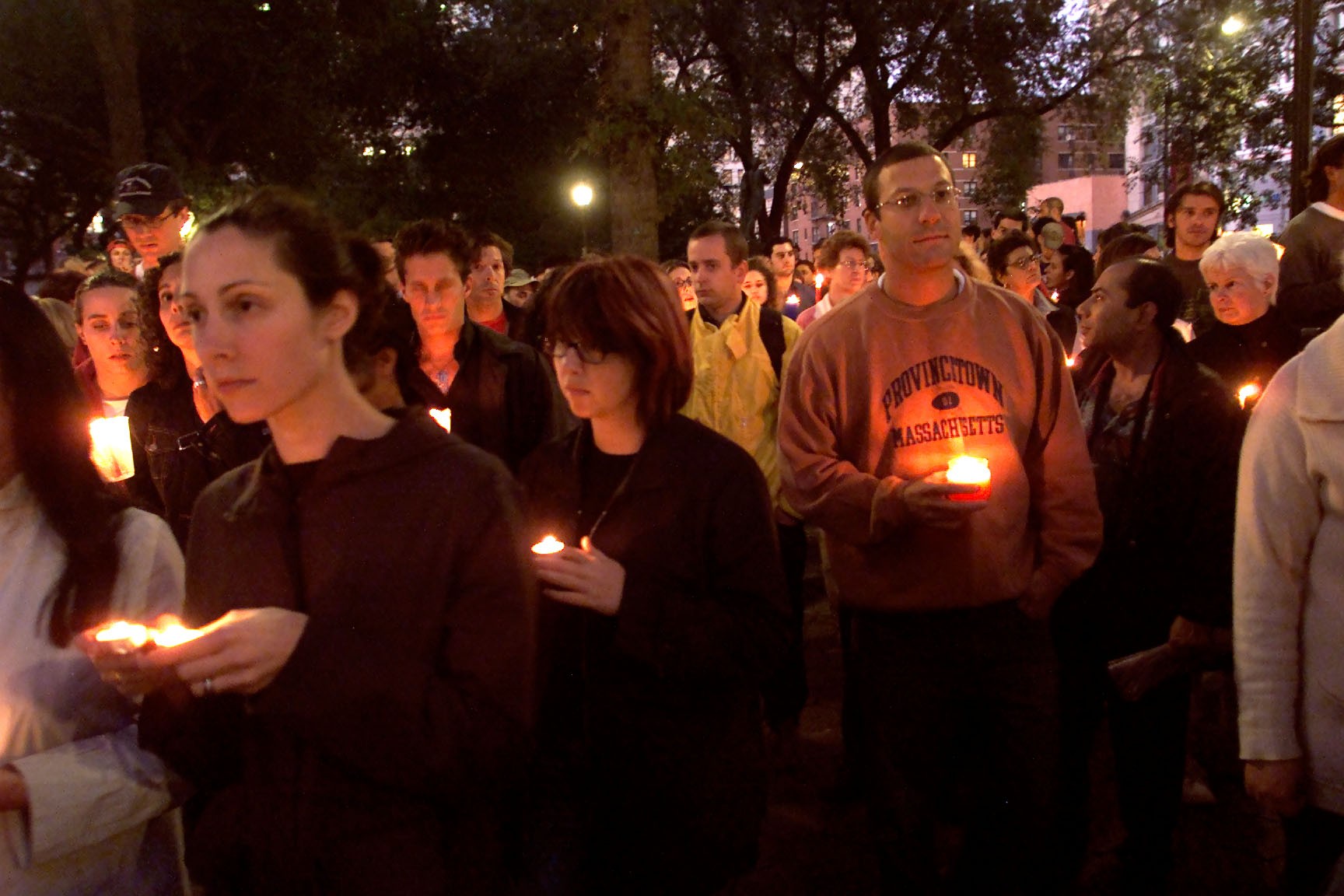
The vigil in Union Square Park on September 14, 2001. (Gabe Palacio/Getty Images)
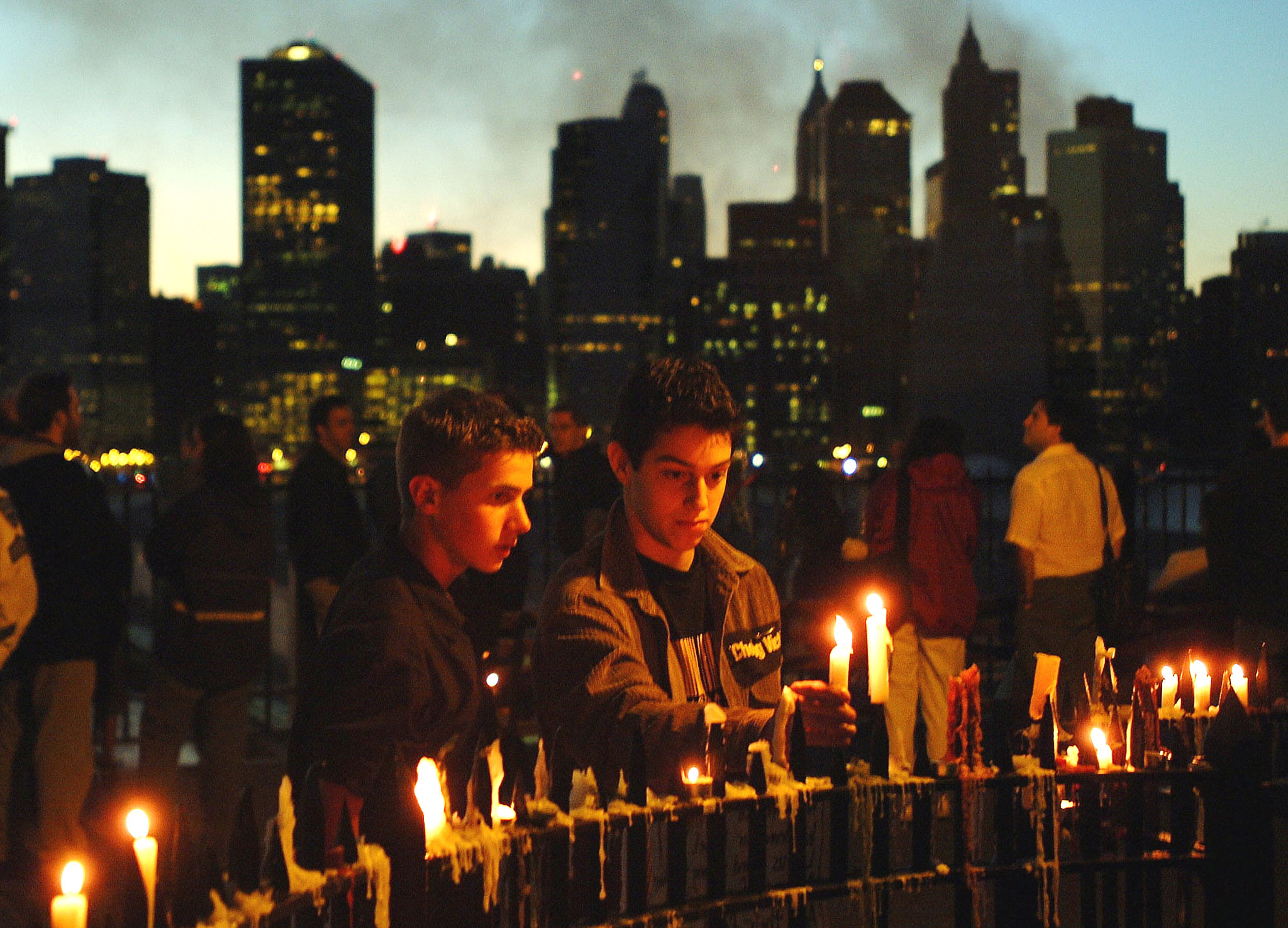
With the skyline of New York City as a backdrop, two young men light candles at a vigil in New York City on September 14, 2001. (HENNY RAY ABRAMS/AFP via Getty Images)
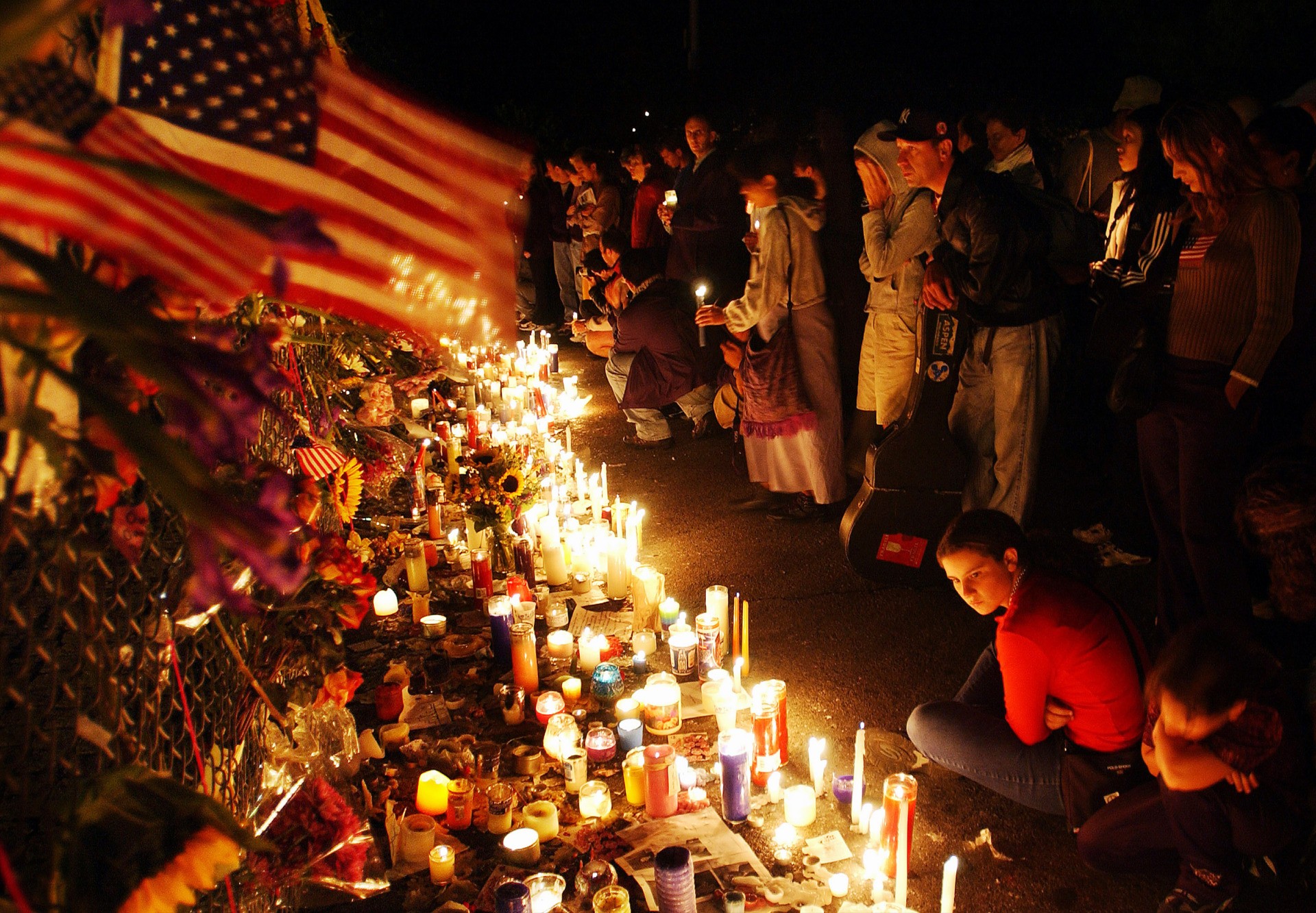
Mourners assemble at a candlelight vigil in New York City’s Washington Square Park on September 14, 2001. (Chris Hondros/Getty Images)
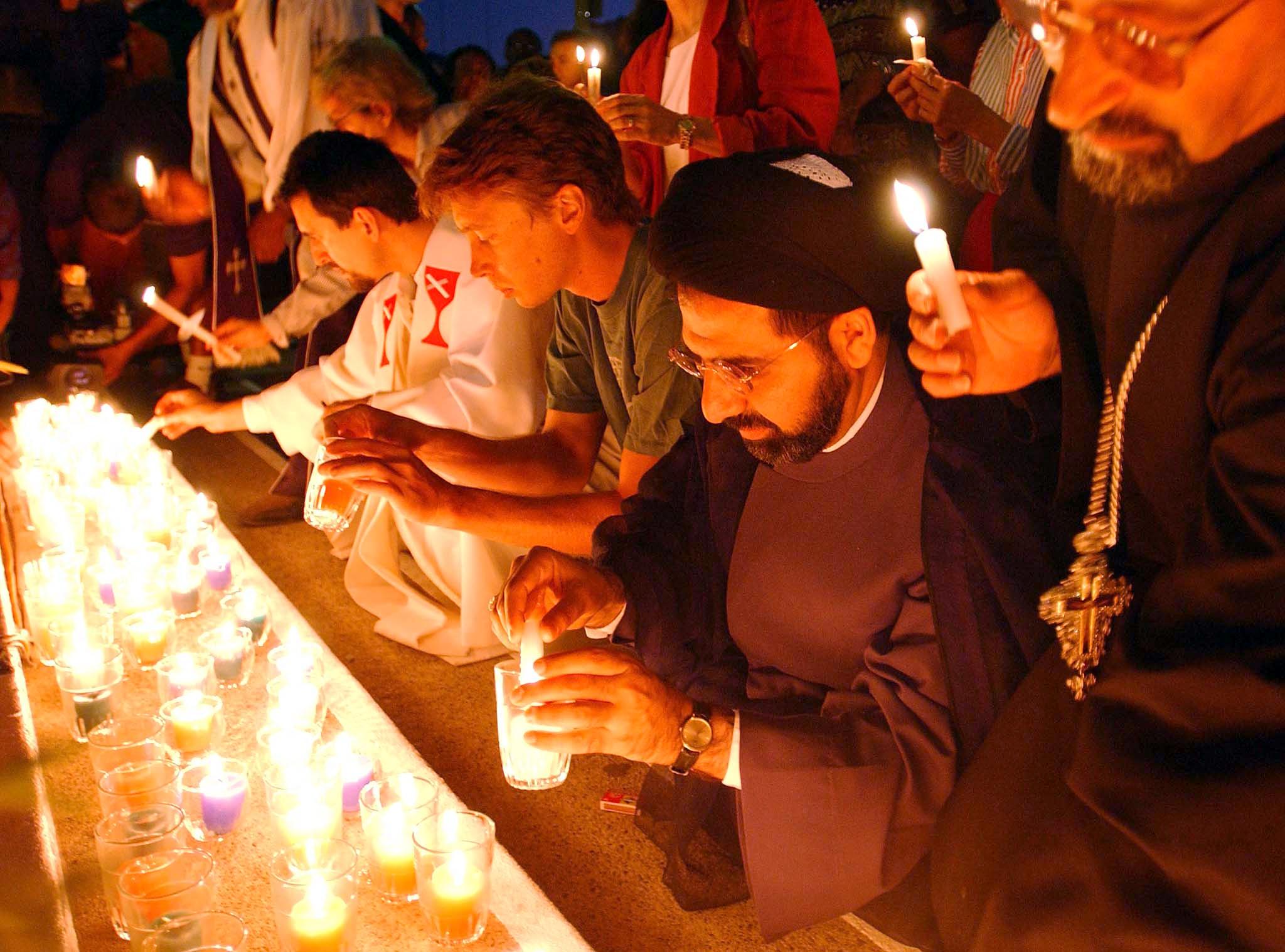
Imam Sayed Moustafa Al-Qazwini (2nd R) lights a candle with leaders of other religions at an interfaith memorial service in Pasadena, CA, on September 13, 2001. (LUCY NICHOLSON/AFP via Getty Images)
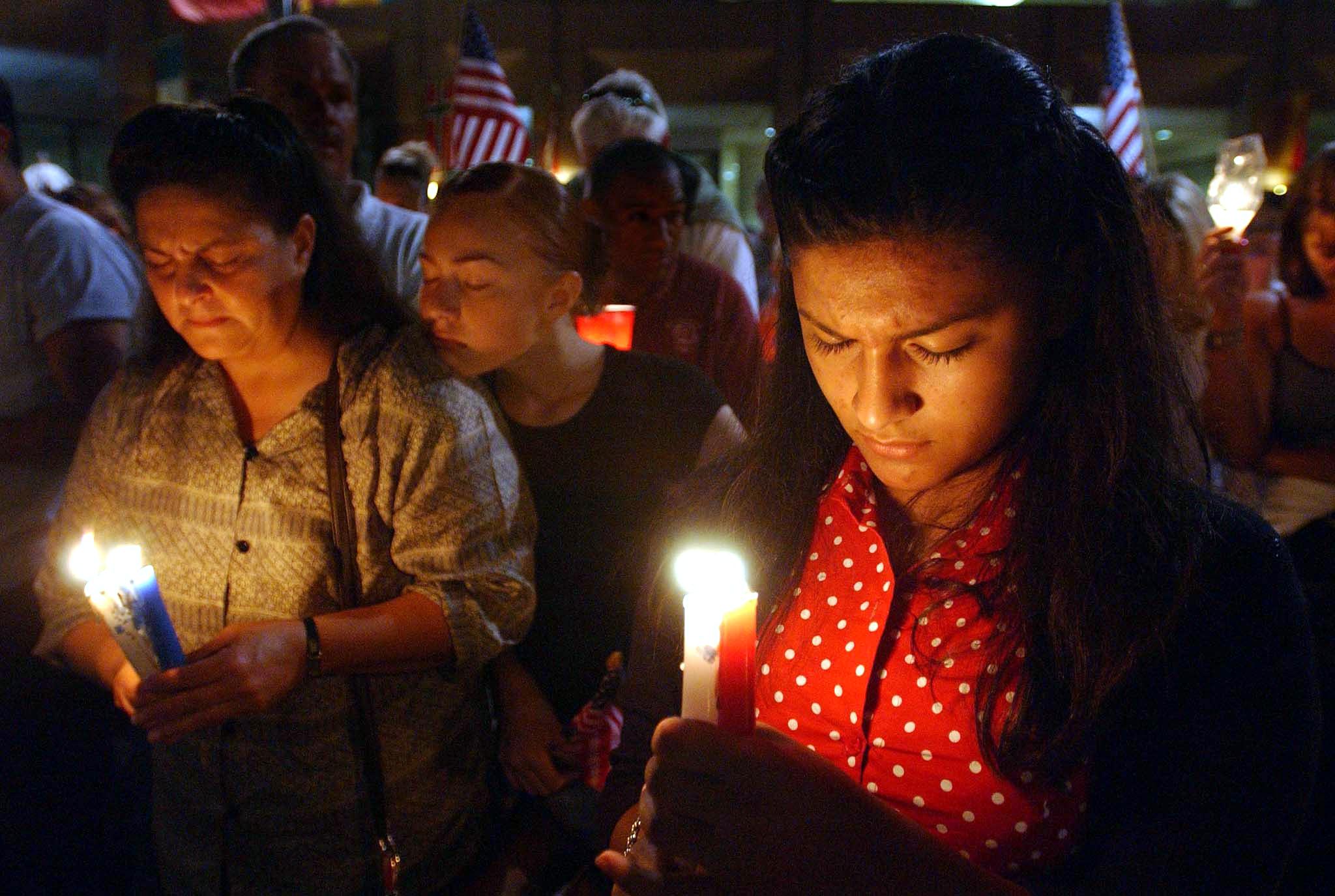
A memorial vigil in Long Beach, CA, on September 14, 2001. (LUCY NICHOLSON/AFP via Getty Images)
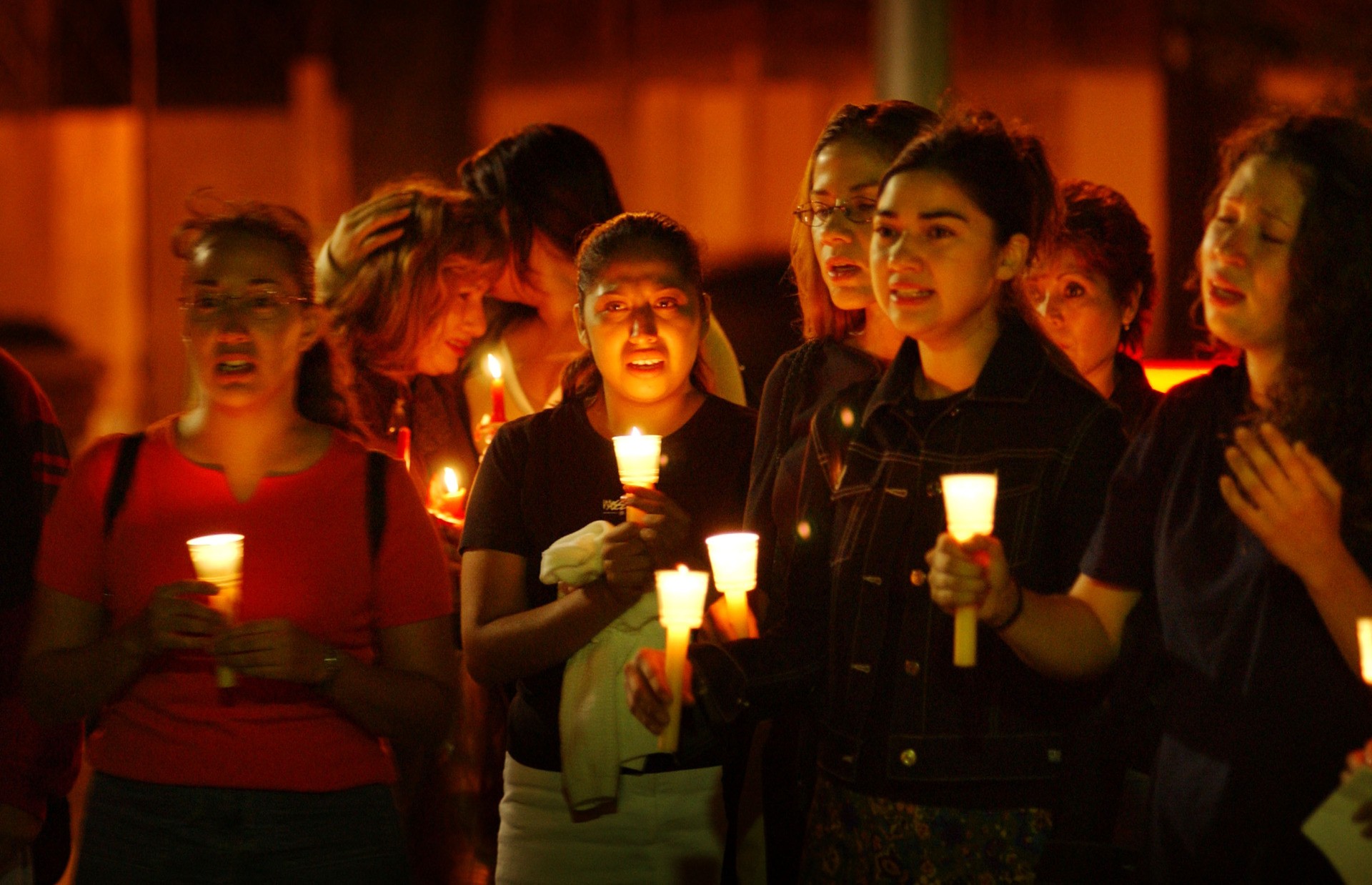
Mourners sing patriotic songs during a candlelight vigil near a memorial for fallen firefighters in Santa Ana, CA, on September 14, 2001. (David McNew/Getty Images)
And the world mourned with us.
In London, Queen Elizabeth II ordered her Coldstream Guards to play the “Star Spangled Banner” during the Changing of the Guard ceremony at Buckingham Palace.
This was the first time in history that a British monarch ordered the Guards to play another nation’s anthem during this traditional ceremony.
[embedded content]
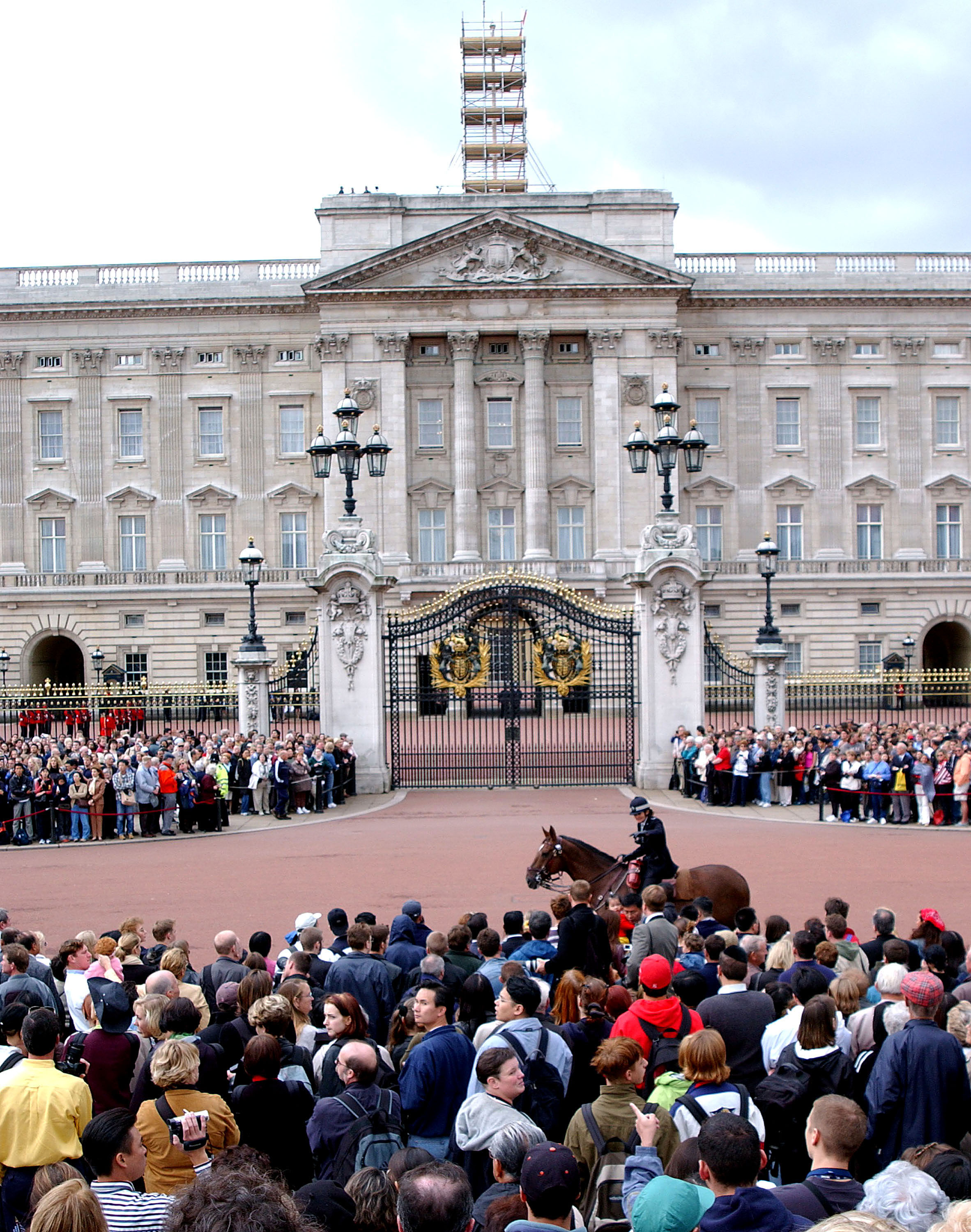
Crowds gather outside Buckingham Palace to listen to the American National Anthem September 13, 2001. (Anthony Harvey/Getty Images)
That Friday, the Queen and the leaders of her government attended a prayer service at St. Paul’s Cathedral in London. They sang the “Star Spangled Banner” and the “Battle Hymn of the Republic.”
[embedded content]
All of Britain stopped for a moment of silence that day to honor the victims of the attack in America.
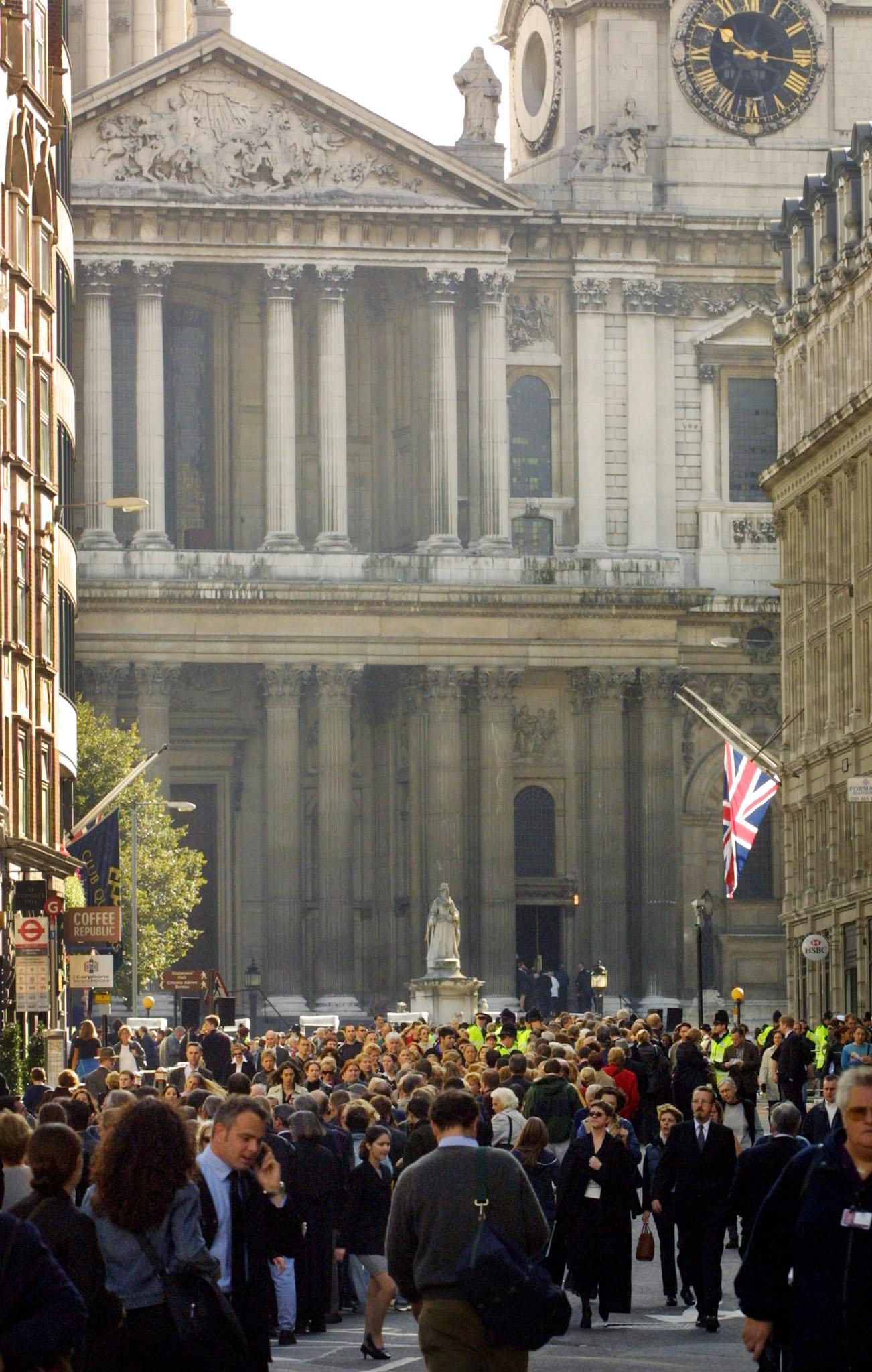
Mourners fill the street before the start of the special remembrance service outside St. Paul’s Cathedral in London on September 14, 2001. (ADRIAN DENNIS/AFP via Getty Images)
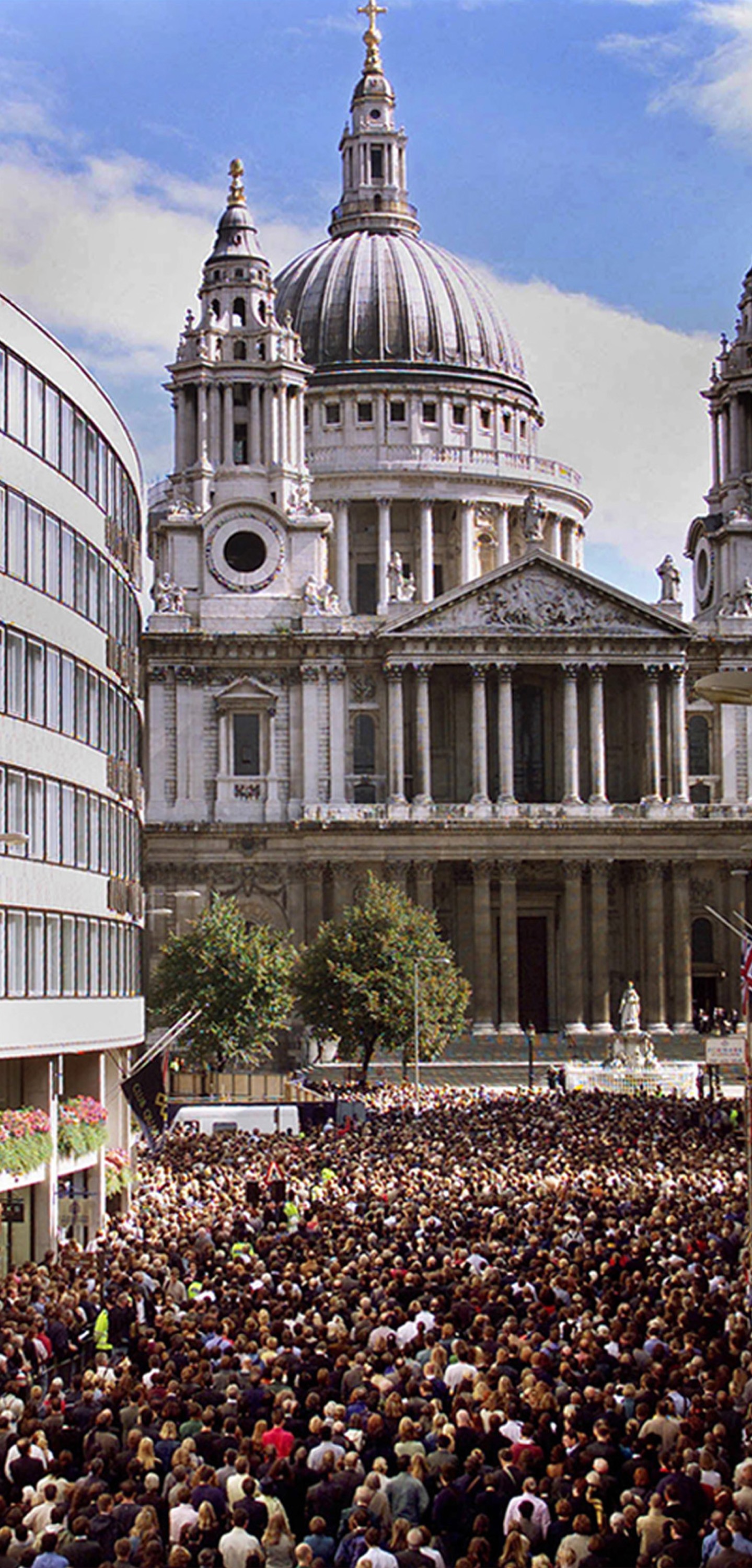
Thousands of mourners attend a memorial service on September 14, 2001, outside St. Paul’s Cathedral in London. (Jonathan Evans/BWP Media/Getty Images)
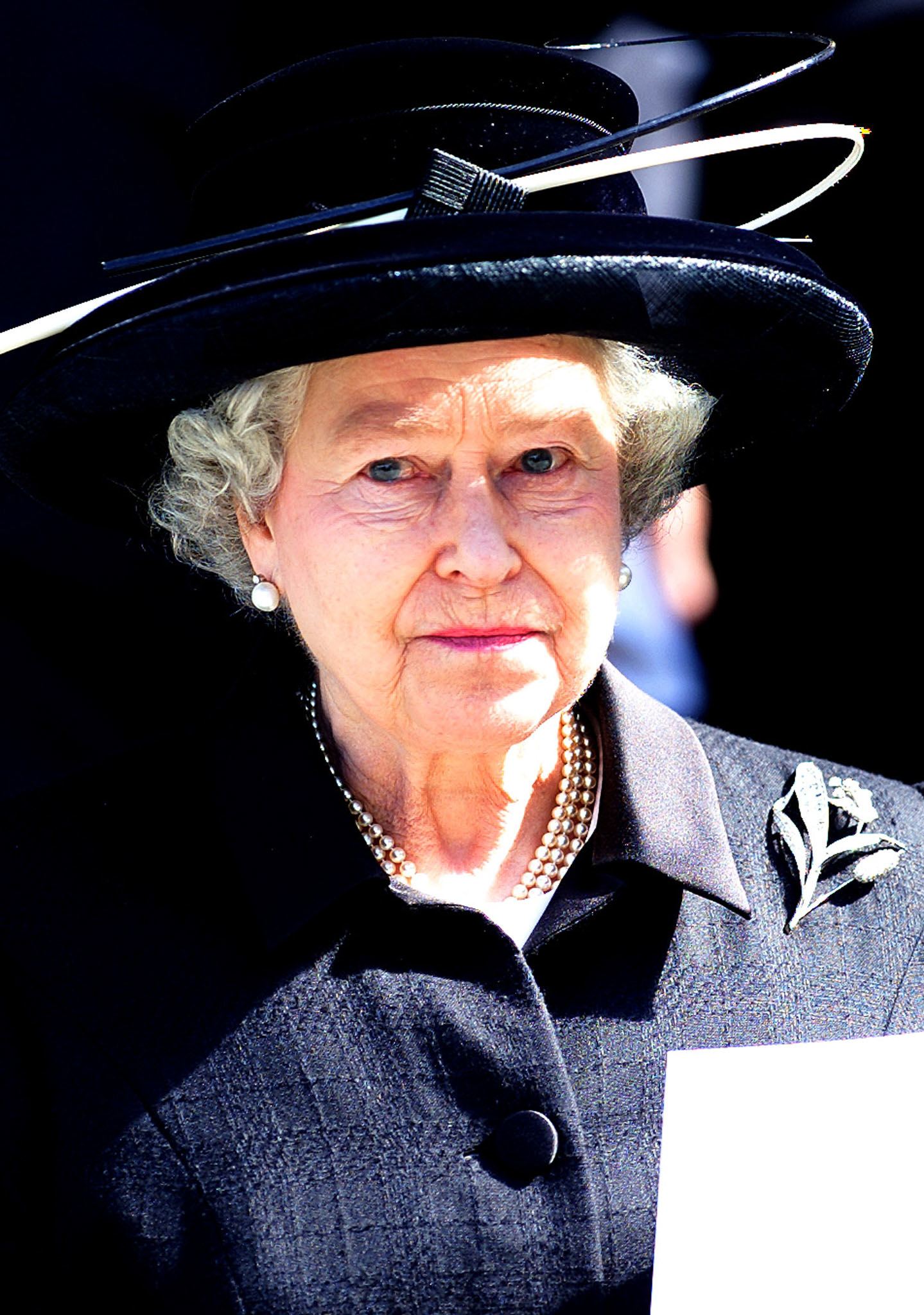
Queen Elizabeth II leaves St Paul’s Cathedral in London after a memorial service on September 14, 2001, for the victims of the 9/11 attack. (KIERAN DOHERTY/AFP via Getty Images)
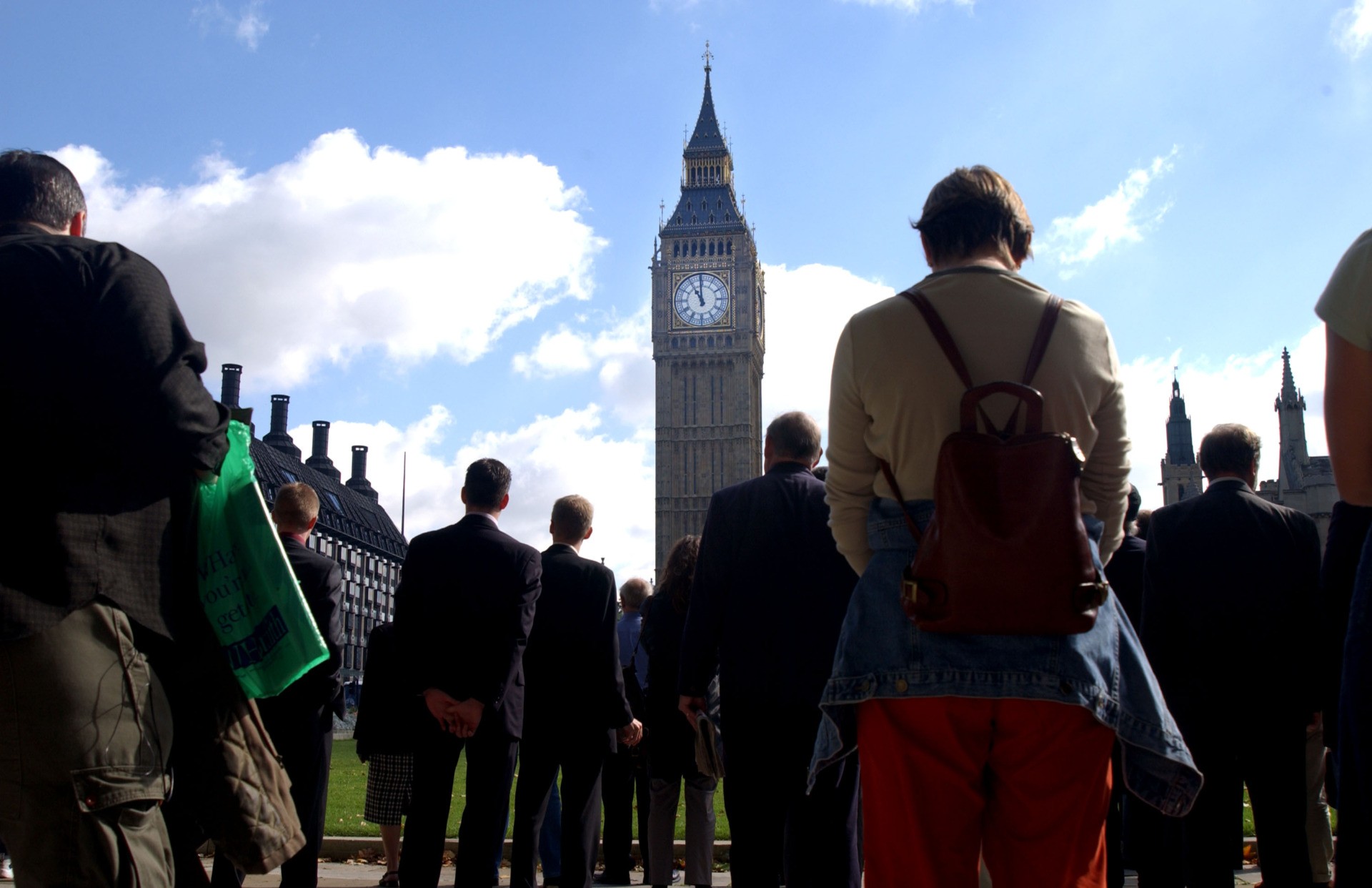
Britons face “Big Ben” and observe an Europe-wide three minutes of silence at 11:00 a.m. on September 14, 2001, in Parliament Square, London in honor of those who lost their lives on 9/11. (Anthony Harvey/Getty Images)
Throughout the world, government officials and ordinary citizens grieved with Americans.
The European Union declared September 14, 2001, a day of mourning for all its member states in solidarity with America.
“In the darkest days of European history, America stood close by us, and today we stand close by America,” European Commission President Romano Prodi said.
[embedded content]
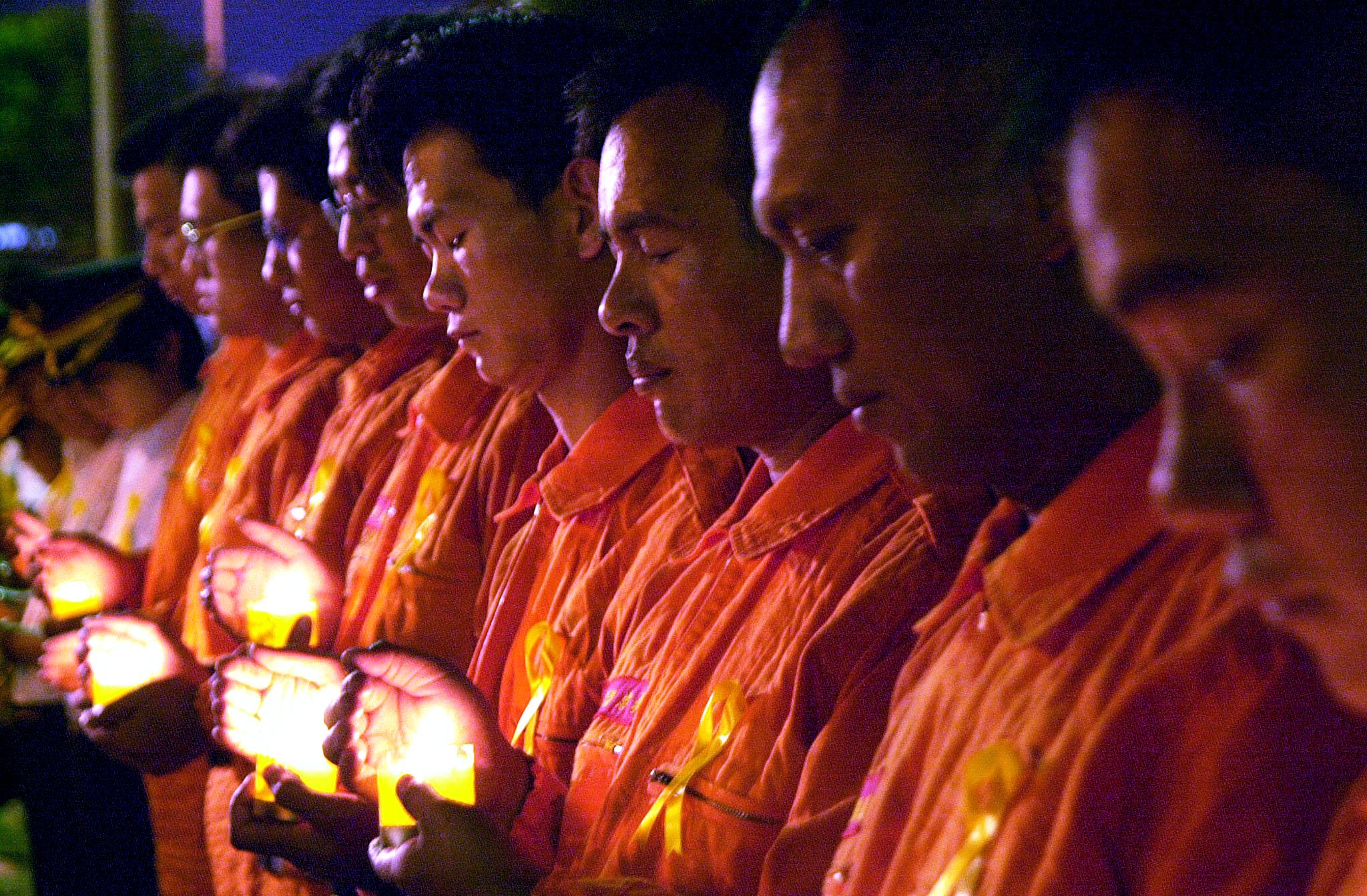
A group of Taiwanese firefighters hold candles during a prayer service in Taiwan on September 14, 2001, for the victims 9/11. (SAM YEH/AFP via Getty Images)
In the weeks that followed, we buried our dead.
Among the heroes we mourned were the 23 New York Police Department officers who died in the line of duty on 9/11 and the 343 New York City firefighters who lost their lives trying to rescue people from the burning towers.
Their numbers included New York Fire Department Chaplain Father Mychal Judge, a Franciscan friar who died while administering the last rites to a fallen firefighter in the North Tower when the South Tower collapsed.
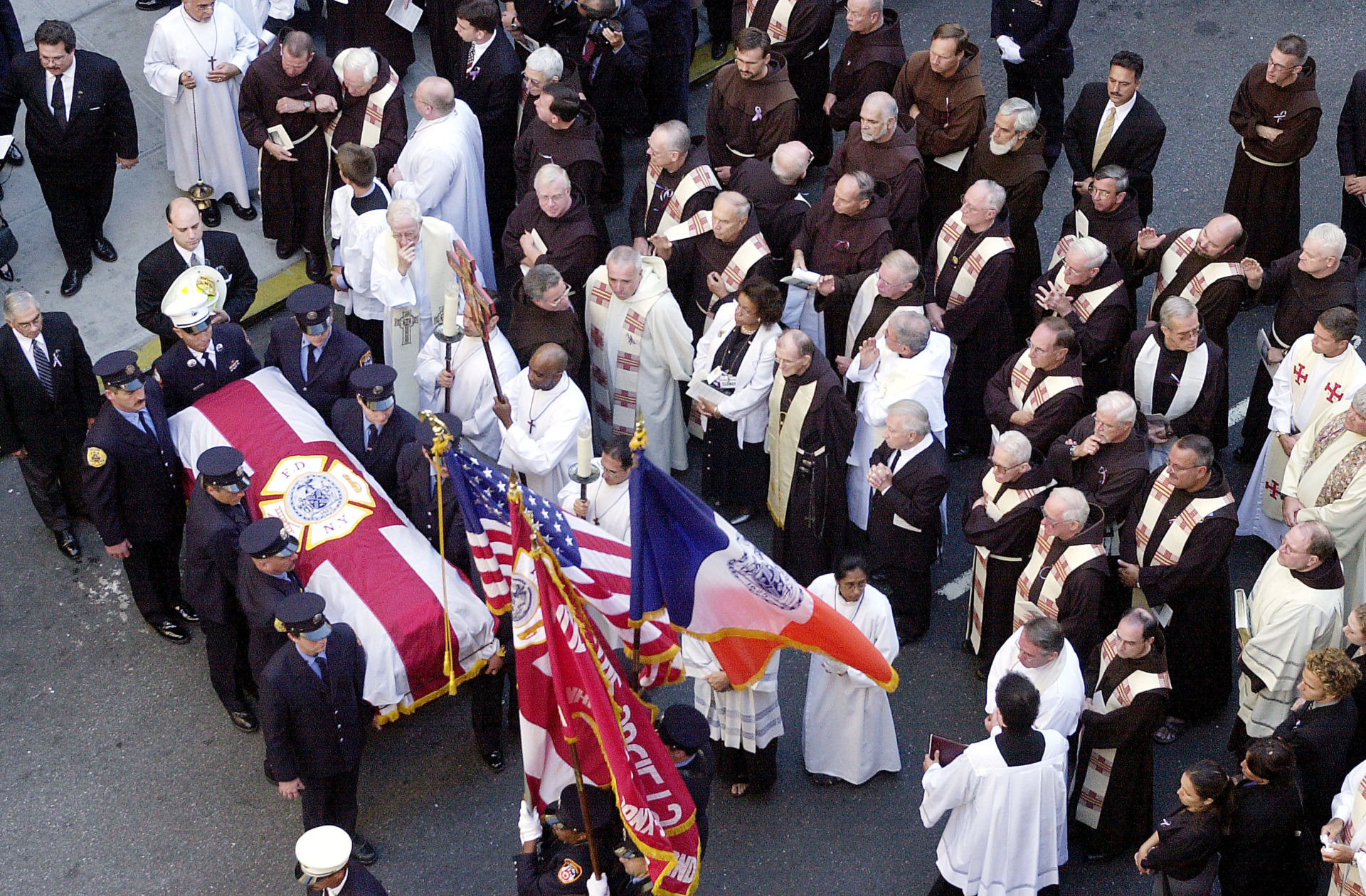
The coffin of New York Fire Department Chaplain Father Mychal Judge is carried from St. Francis of Assisi Church on September 15, 2001, following his funeral mass in New York City. (Darren McCollester/Getty Images)
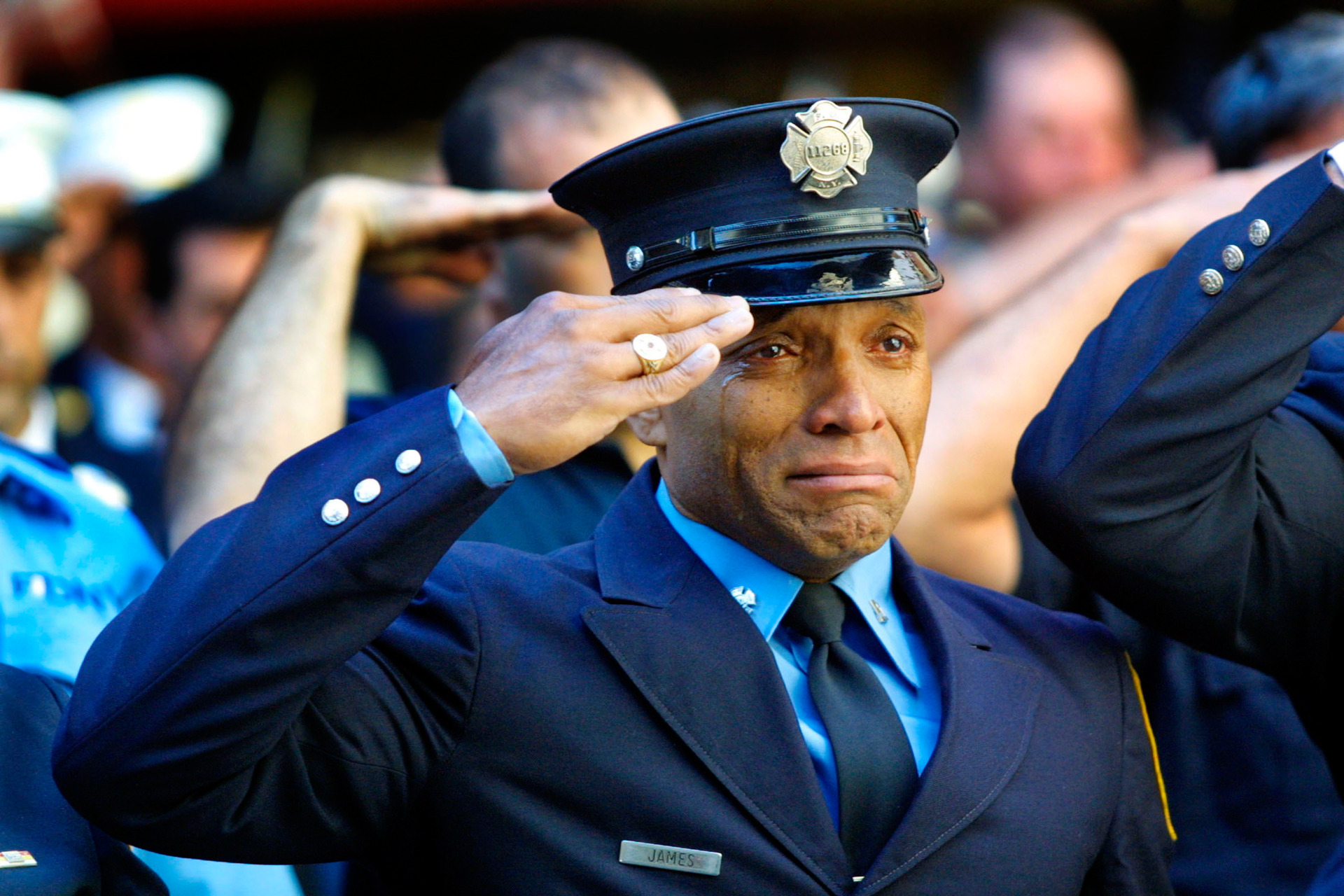
Firefighter Tony James cries while attending the funeral mass for Father Mychal Judge. (Joe Raedle/Getty Images)
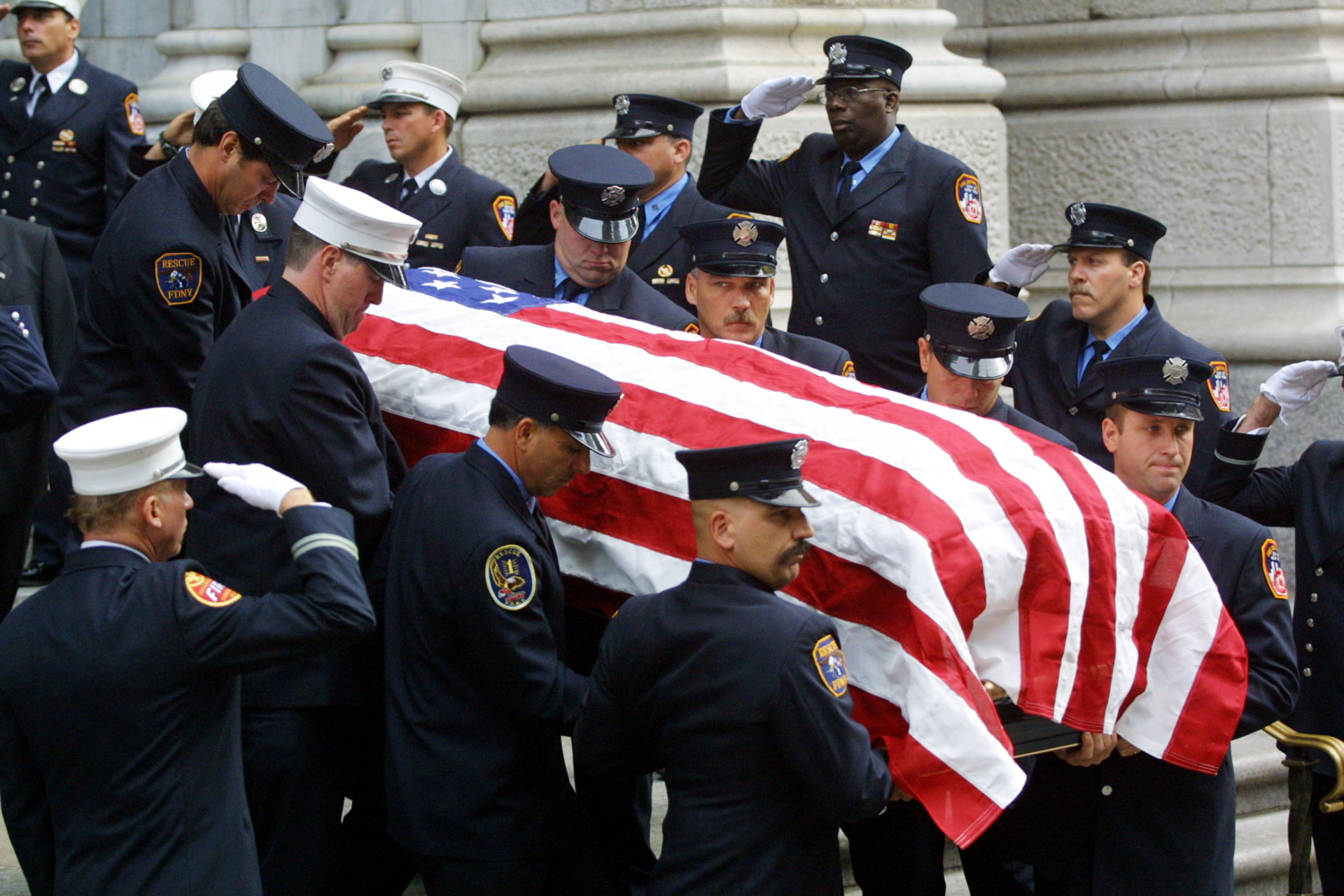
Firefighters carry the flag-covered casket of fellow fireman Lt. Dennis Mojica during a funeral mass at St. Patrick’s Cathedral on September 21, 2001, in New York City. Mojica, who was with Rescue Company 1, was one of the 343 firefighters who lost their lives in the World Trade Center attack. (Joe Raedle/Gettyimages)
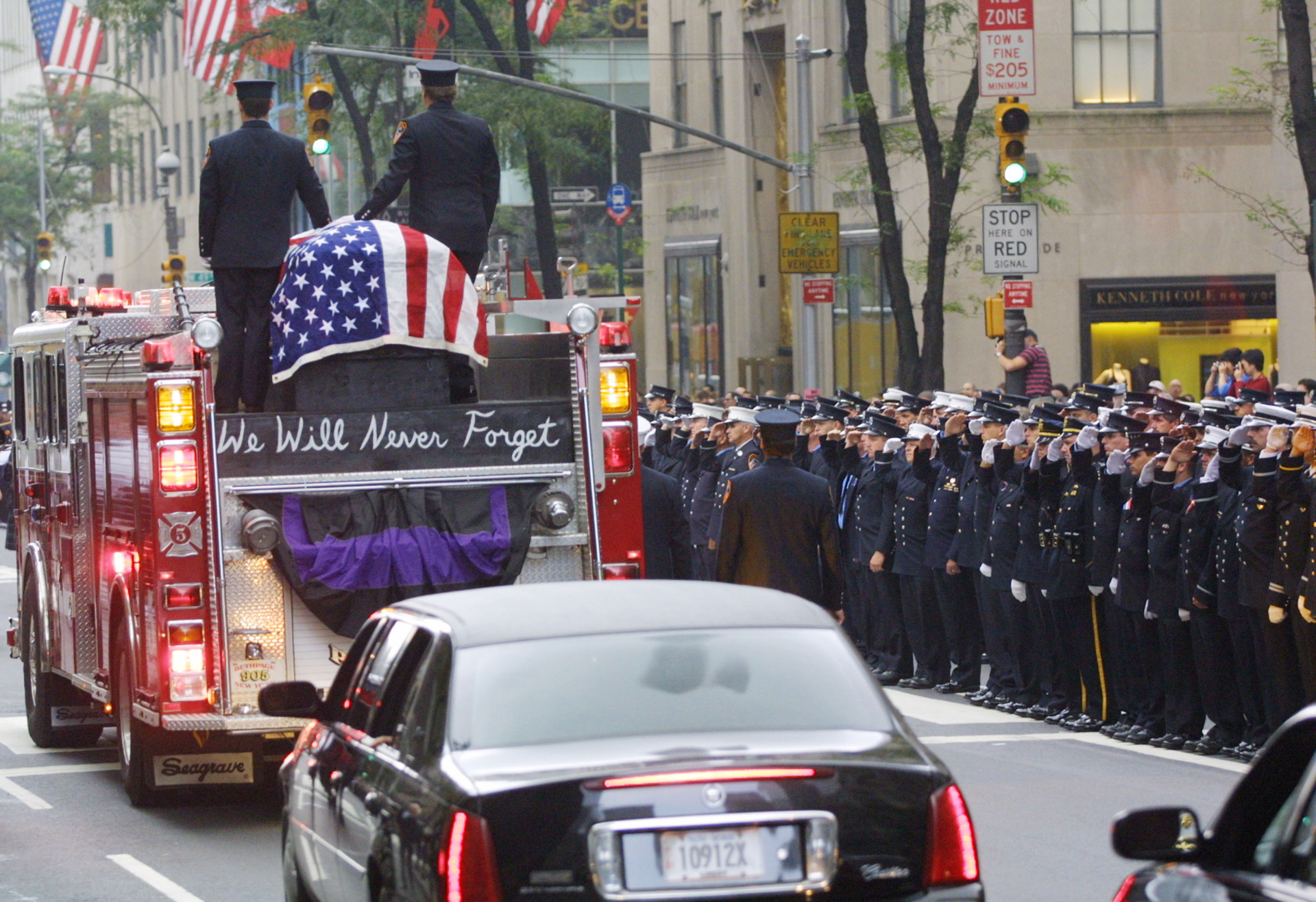
Firefighters stand atop a fire engine with the flag draped casket of fellow fireman Lt. Dennis Mojica following his funeral at St. Patrick’s Cathedral. (Joe Raedle/Gettyimages)
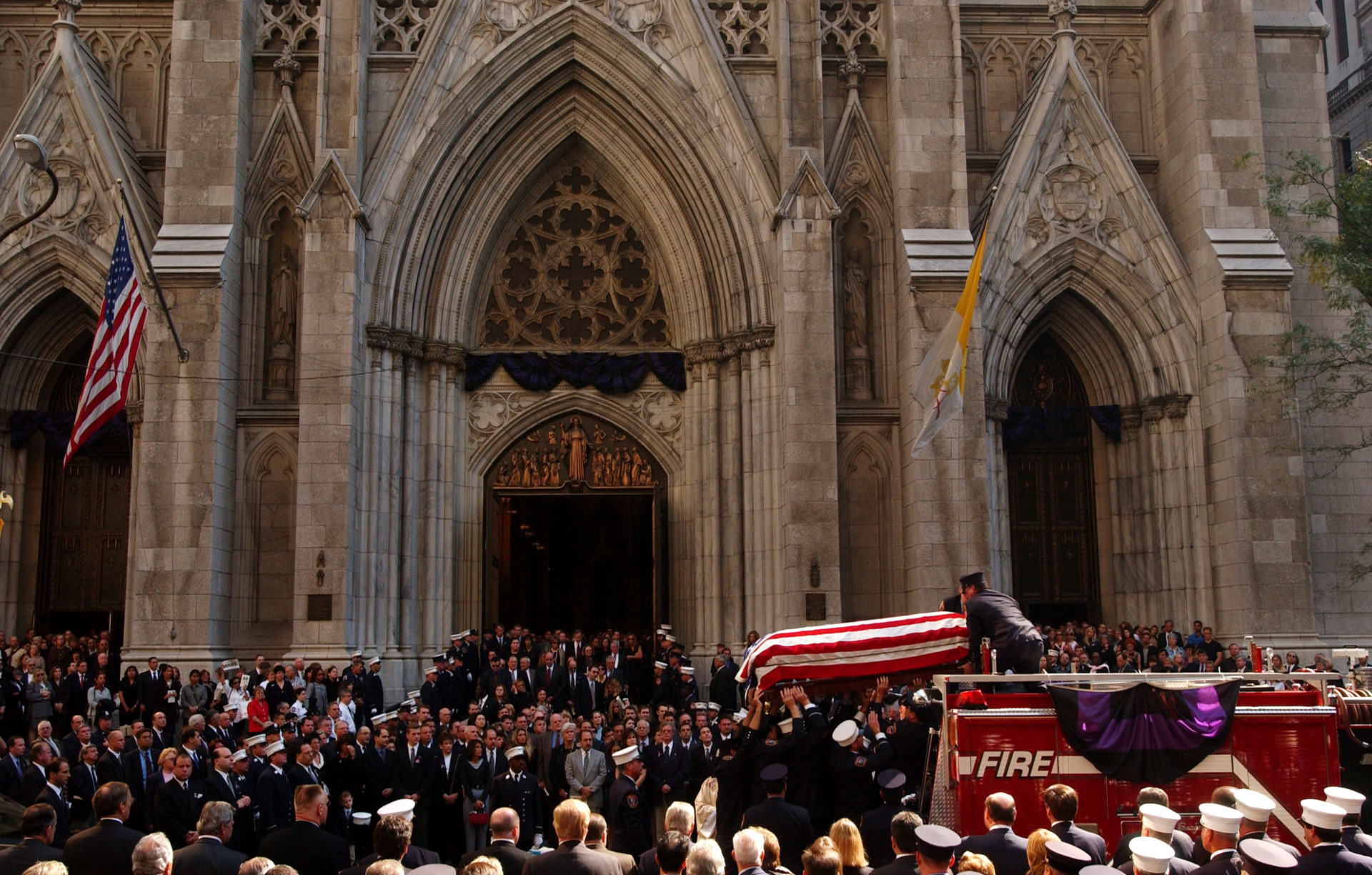
New York City firefighters stand at attention as the casket of FDNY Capt. Terence Hatton is placed on a fire engine outside St. Patrick’s Cathedral on October 4, 2001, in New York City. (Spencer Platt/Getty Images)
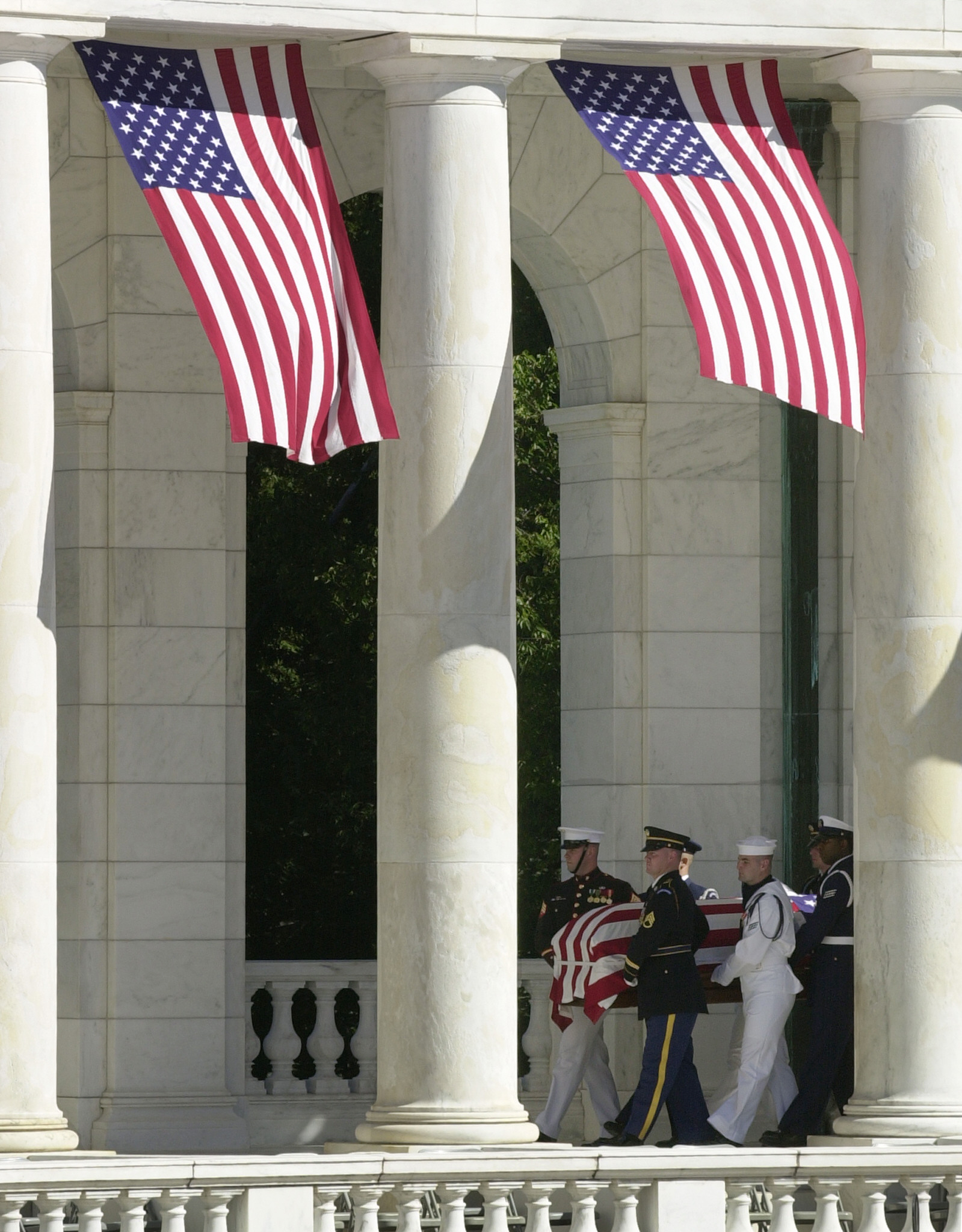
A joint service honor guard marches through the colonnade at Arlington National Cemetery with a casket containing the unidentified remains of victims of the terror attack on the Pentagon, following a funeral ceremony on September 12, 2002. Of the 184 who died in the Pentagon attack, 64 have been buried at Arlington. (MIKE THEILER/AFP via Getty Images)
The massive clean-up efforts at Ground Zero spanned months and even years.
Among the rubble, a cast iron cross was found rising out of the destruction at the World Trade Center.
The cross fell intact from Tower One into nearby Building Six on September 11.
It became a source of consolation to the rescue workers. On October 4, Father Brian Jordan, a Franciscan friar, blessed the cross.
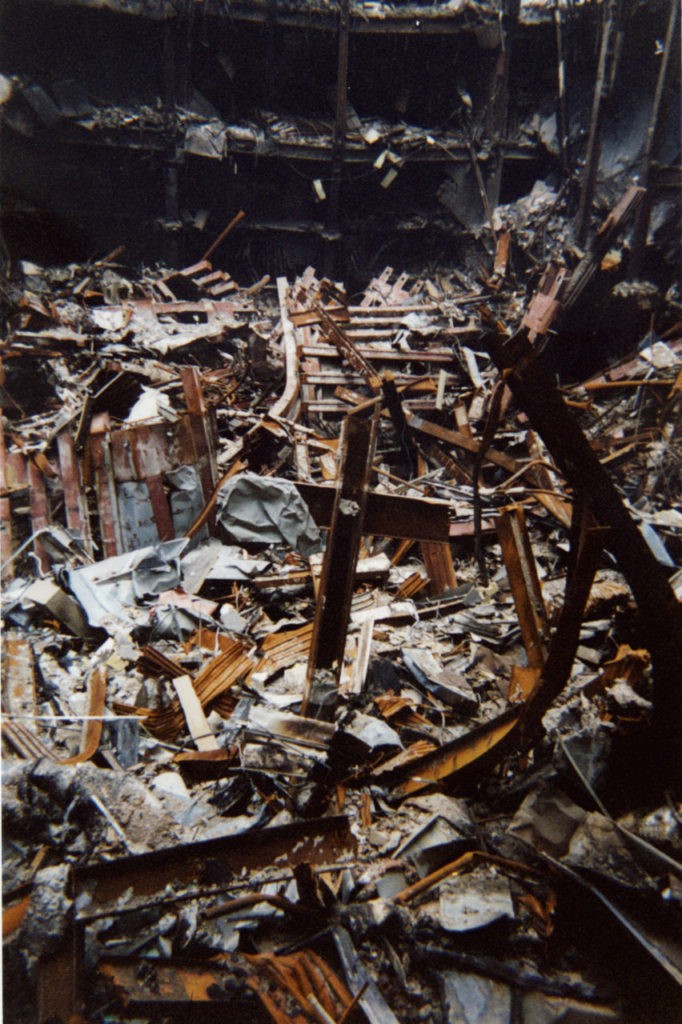
The cast iron cross found in the rubble at the World Trade Center. (AP Photo/Pool)
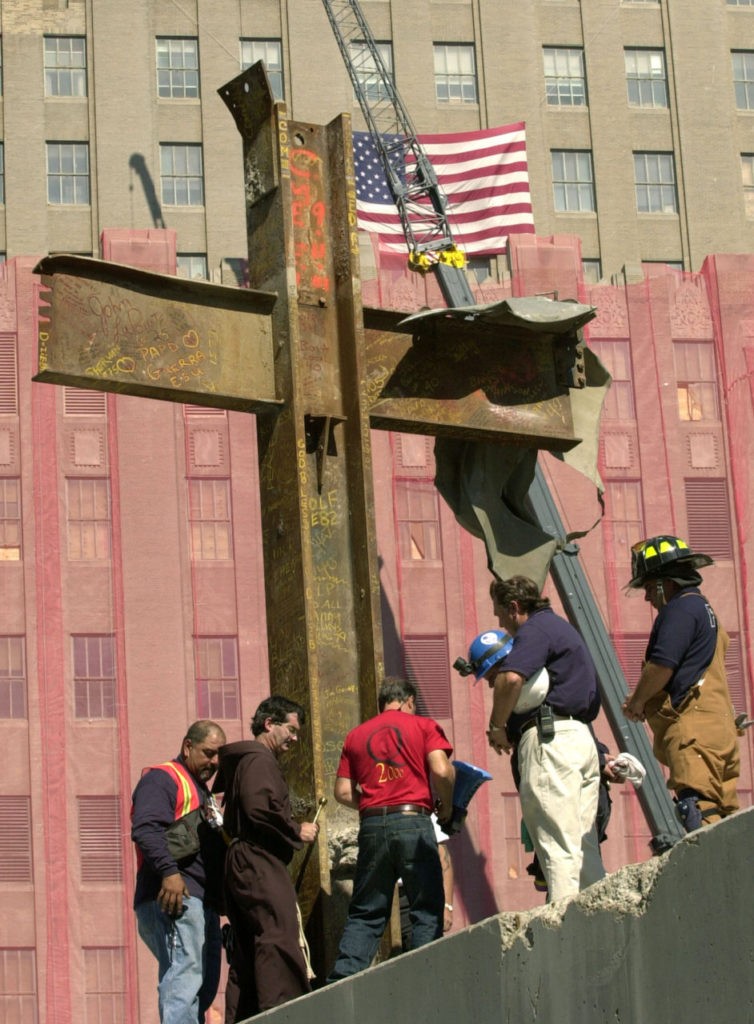
Rescue and construction workers gathered around Father Brian Jordan, second from left, who blessed the cross of steel beams found amidst the rubble of the World Trade Center. (AP Photo/Pool, Kathy Willens)
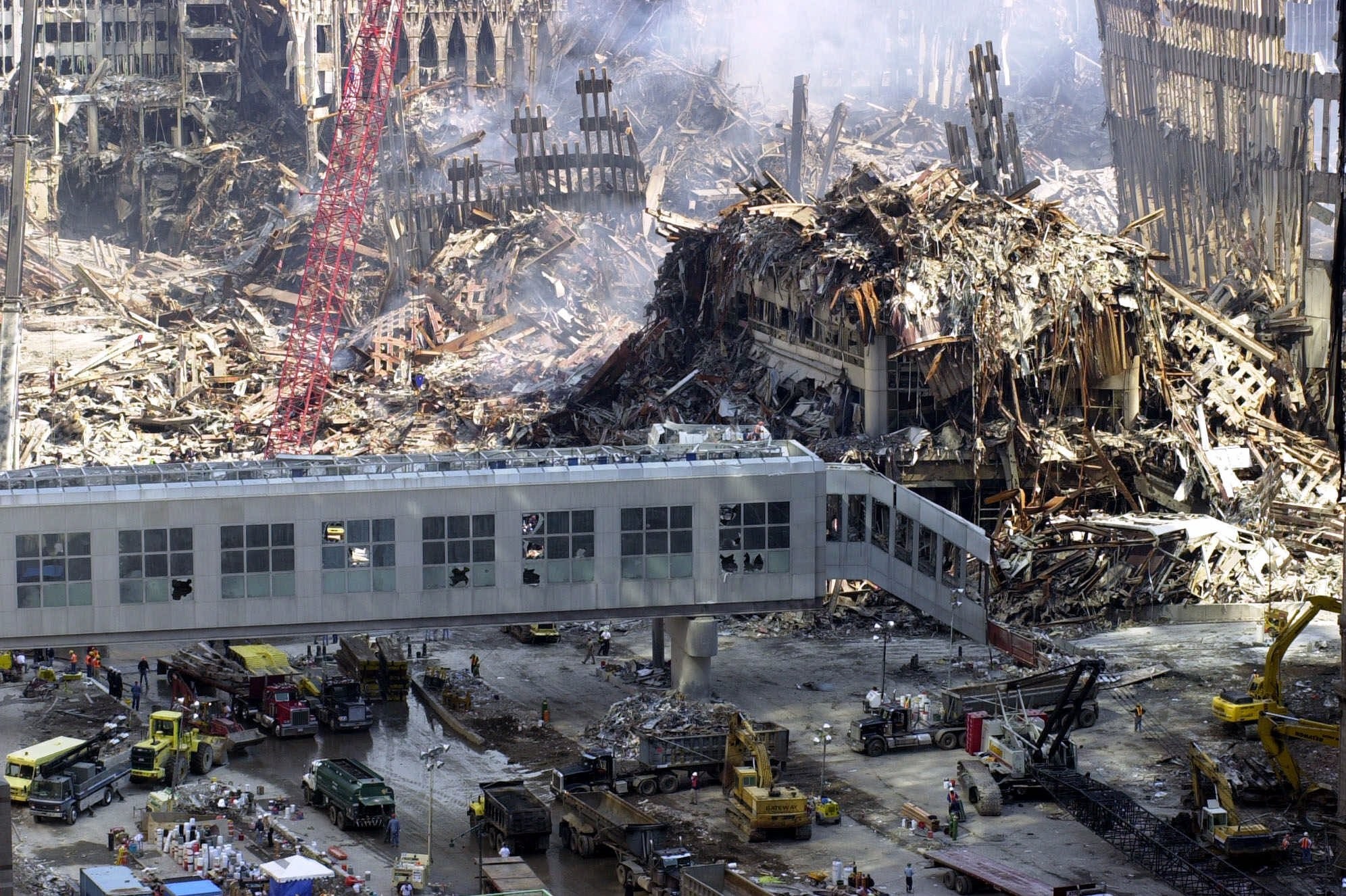
One of the damaged connecting pedestrian walkways of the World Trade Center complex still stands at Ground Zero in New York on September 19, 2001. (AP Photo/Cameron Bloch)
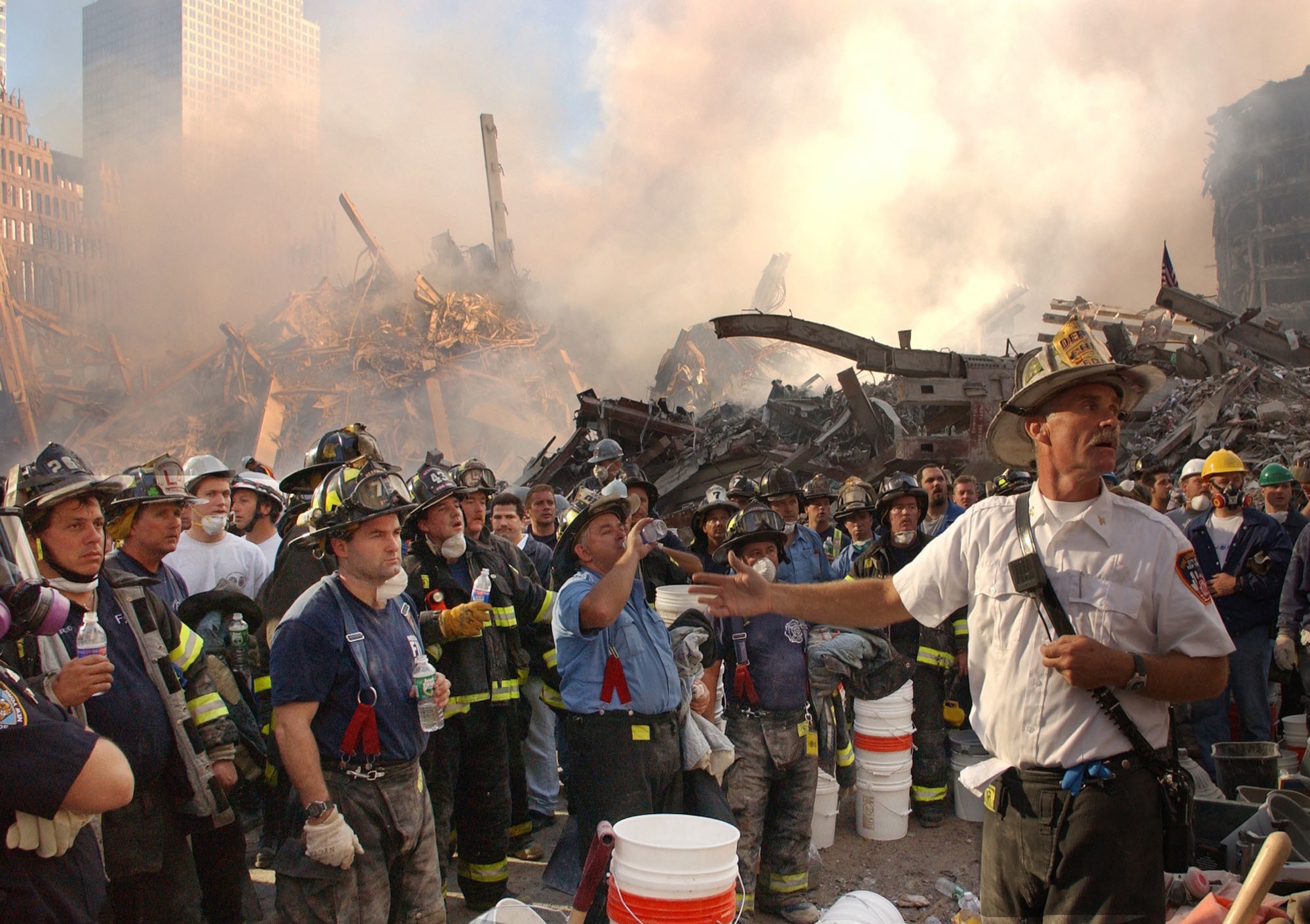
A New York Fire Department Chief, firefighters from various municipalities, and other rescue workers take a break September 13, 2001, from the rescue/recovery effort at the World Trade Center site. (Andrea Booher, FEMA via AP)
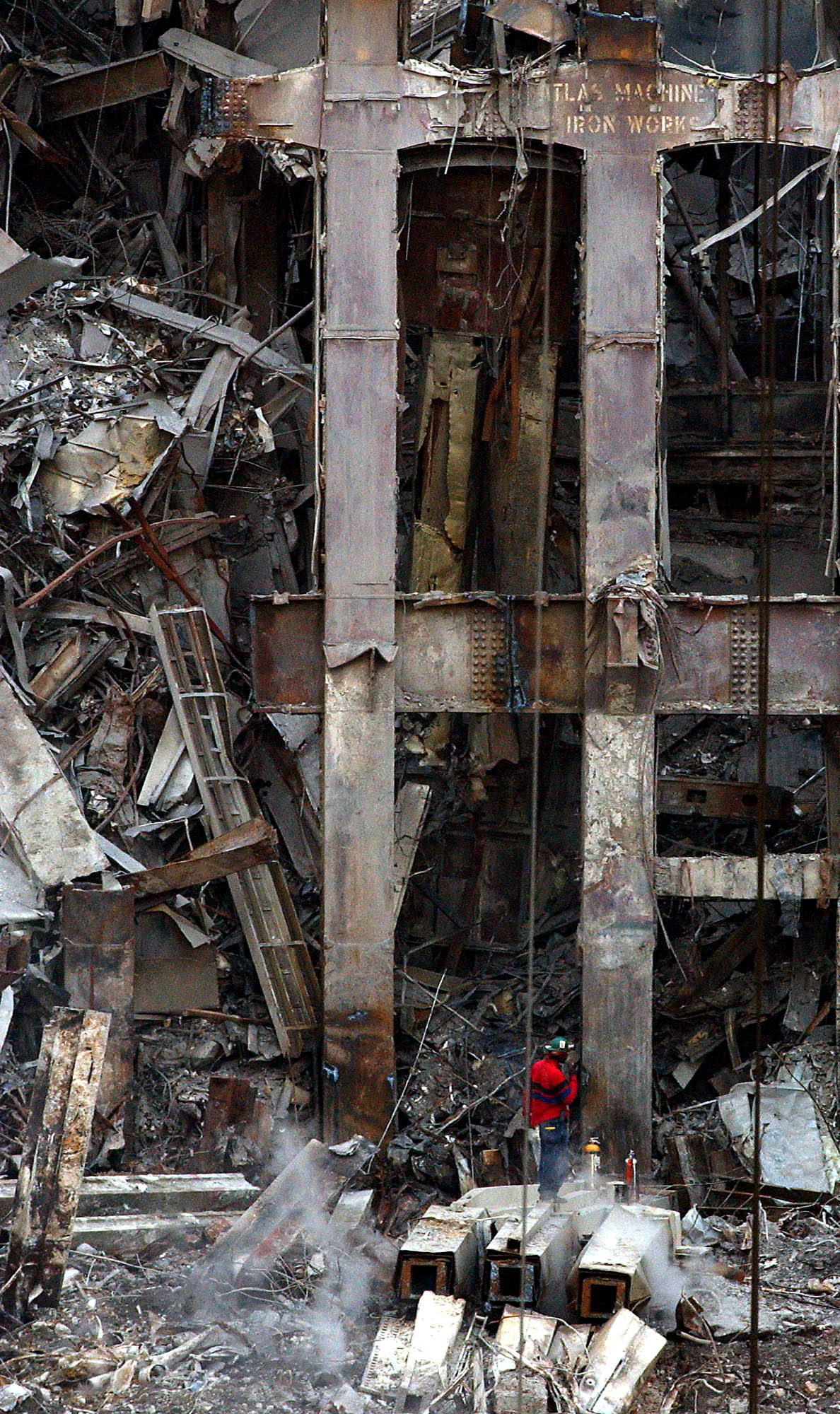
A worker examines a beam of tower one of the World Trade Center, on November 2, 2001, as the cleanup and recovery effort continues. (AP Photo/Stephen Chernin)
After the attacks, the America people wanted swift justice. What followed was 20 years of wars.
In an address before Congress on September 20, 2001, President Bush declared that the United States was engaged in an open-ended “war on terror.”
“Our war on terror begins with al Qaeda, but it does not end there,” he stated. “It will not end until every terrorist group of global reach has been found, stopped, and defeated.”
[embedded content]
On October 7, 2001, the United States and Great Britain began airstrikes in Afghanistan to destroy the al Qaeda camps where the 9/11 hijackers were trained. The immediate aim was to capture al Qaeda leader Osama bin Laden and – in the words of President Bush – to bring him to justice “dead or alive.”
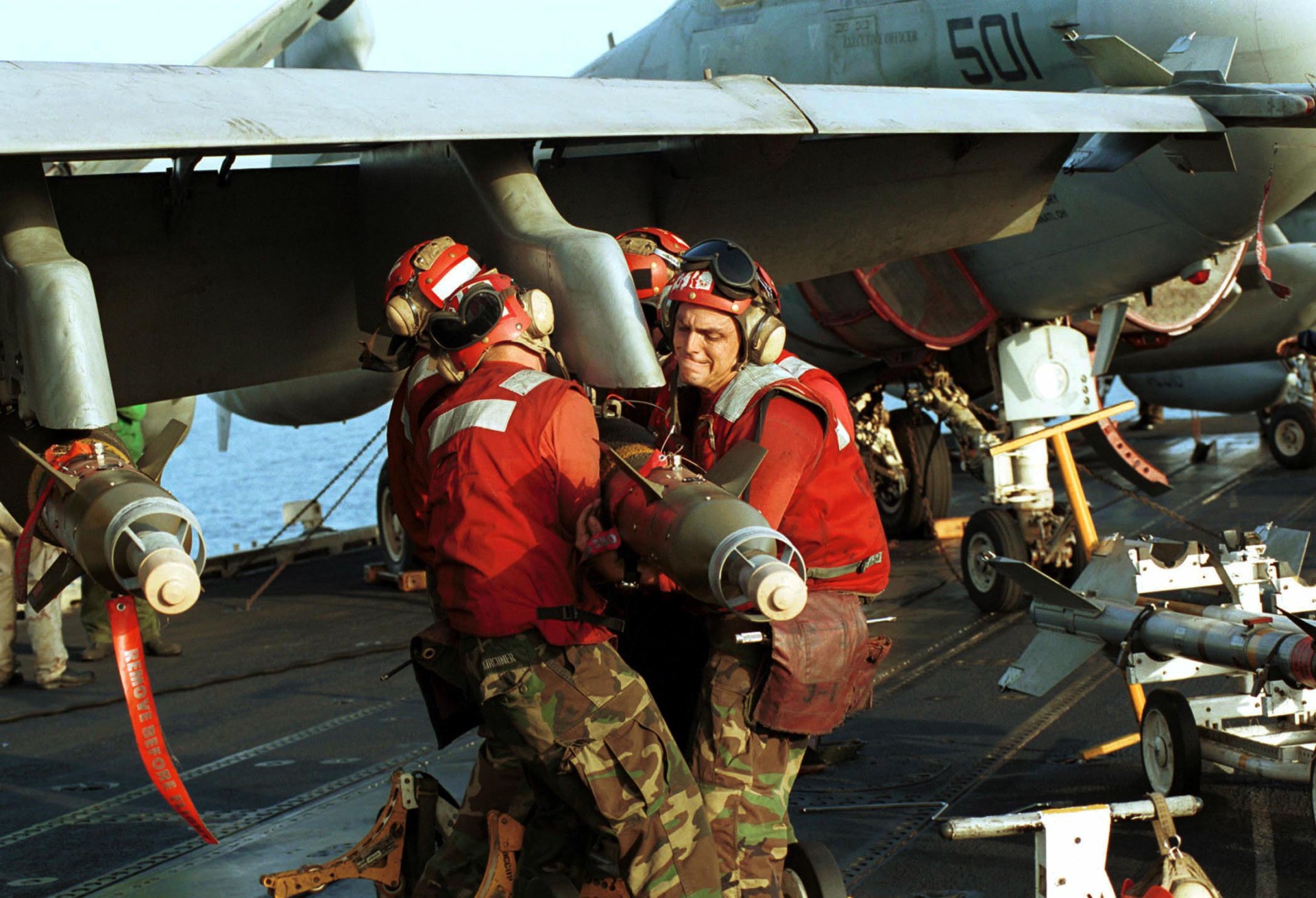
U.S. Air Force personnel aboard the USS Enterprise move ordnance on October 7, 2001, in preparation for the strike against the al Qaeda training camps in Afghanistan. (U.S. Navy/Getty Images)
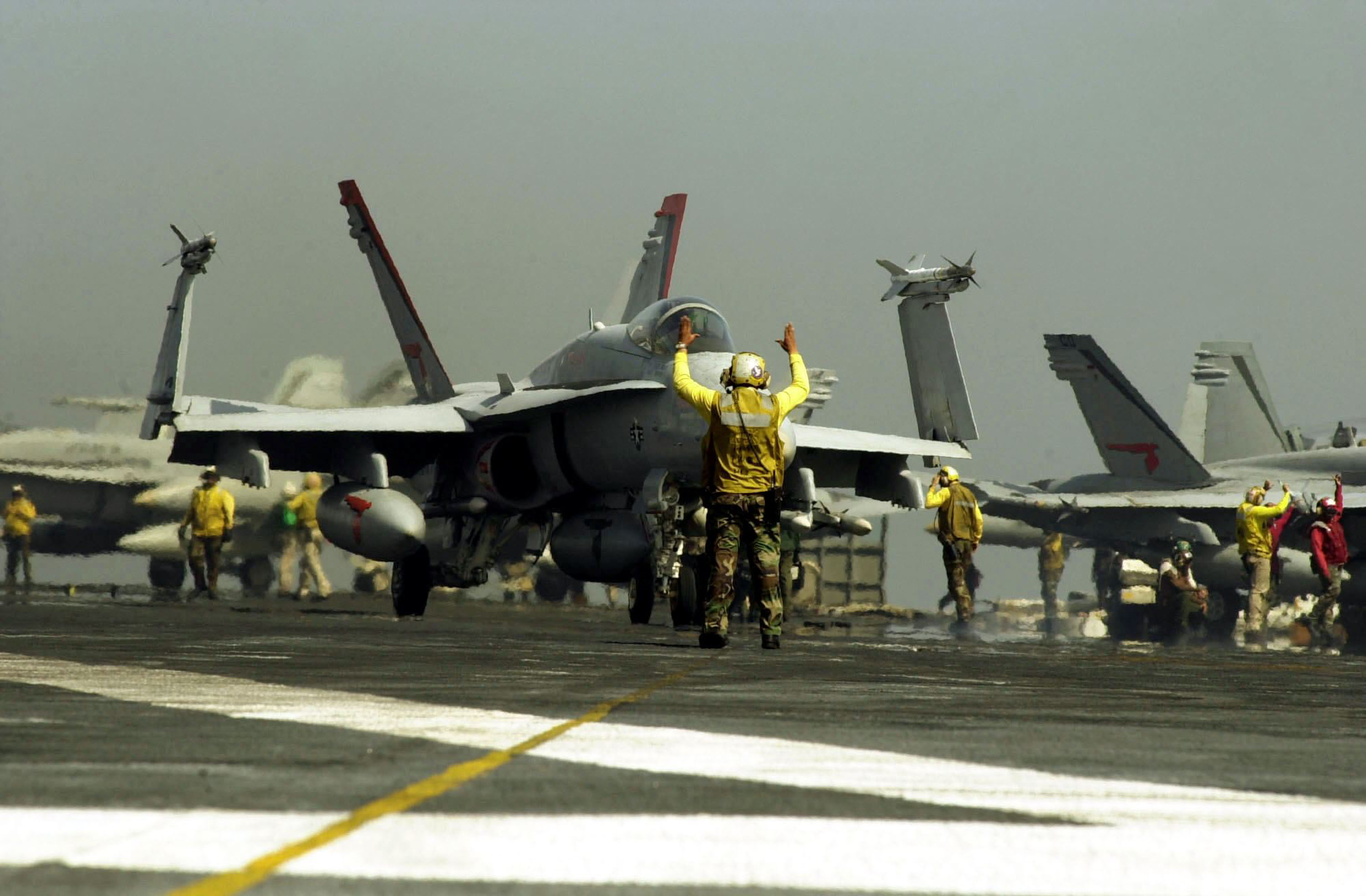
An F/A-18C Hornet is prepared for launch from the aircraft carrier USS Carl Vinson on October 7, 2001, in preparation for strikes against al Qaeda training camps in Afghanistan. (US Navy/Getty Images)
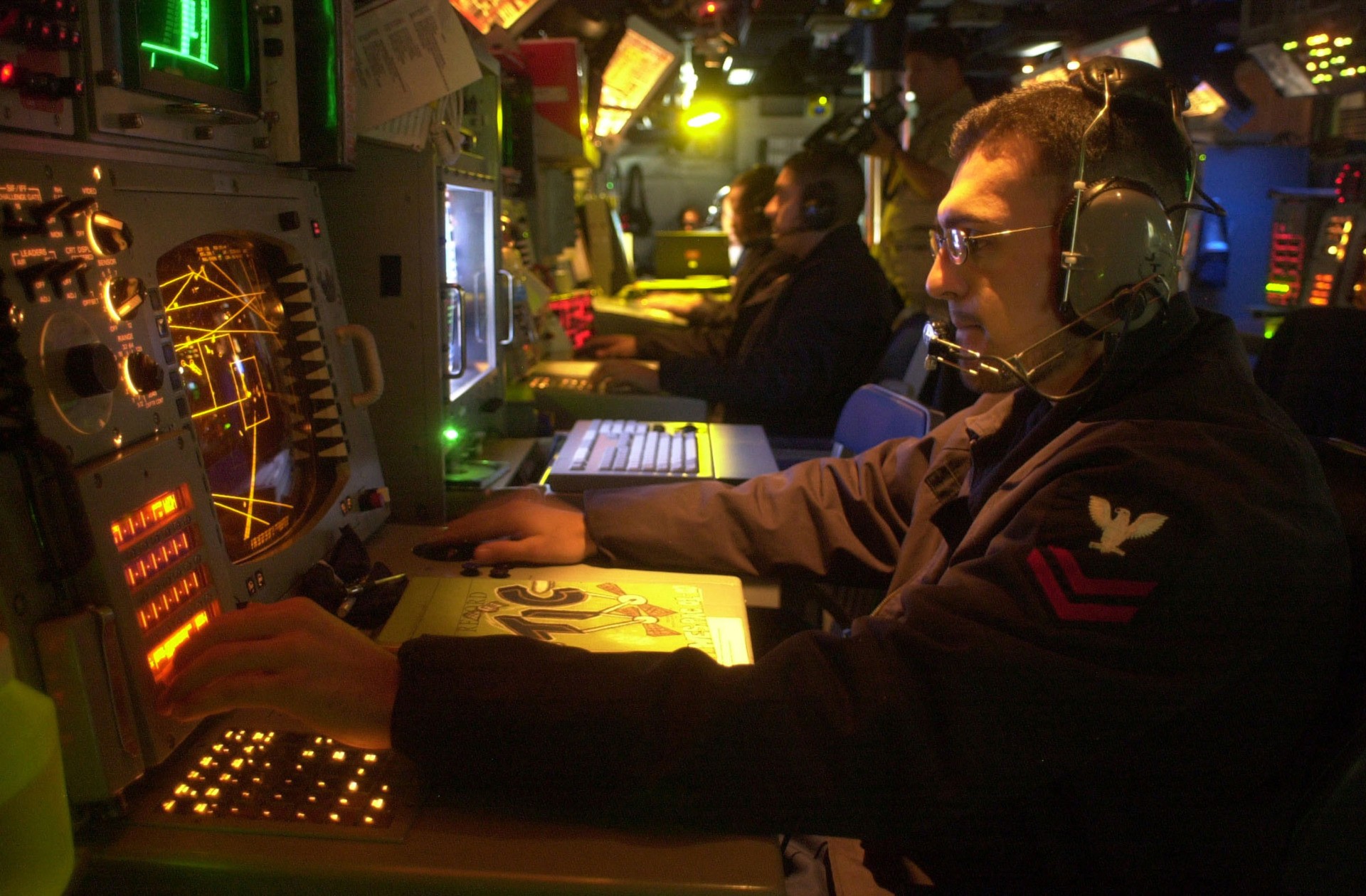
A sailor sits at the Tactical Data Coordinator watch in the Combat Information Center aboard the USS Princeton on October 7, 2001, as part of the U.S. airstrikes in Afghanistan. (David C. Mercil/US Navy/Getty Images)
Over the span of two decades, the war in Afghanistan would expand towards an open-ended exercise in nation-building, after bin Laden’s Taliban sponsors were removed from power.
However, in early December 2001 – just three months after the 9/11 attacks – America was close to achieving a swift and decisive victory in Afghanistan during what became known as the Battle of Tora Bora.
The truth about what happened there was eventually revealed in a 2009 U.S. Senate Foreign Relations Committee report.
From December 6 – 17, 2001, U.S. coalition forces had bin Laden and his associates pinned down in a cave complex at Tora Bora. The U.S. special forces in Afghanistan requested additional ground troops to launch an assault on the complex and block the escape routes along the mountain pass lest bin Laden get away. Their requests were denied even though there were thousands of U.S. troops in Afghanistan available to fight, including soldiers trained to fight in mountainous terrain.
“The vast array of American military power, from sniper teams to the most mobile divisions of the Marine Corps and the Army, was kept on the sidelines,” the 2009 Senate report stated. “Instead, the U.S. command chose to rely on airstrikes and untrained Afghan militias to attack bin Laden and on Pakistan’s loosely organized Frontier Corps to seal his escape routes. On or around December 16, two days after writing his will, bin Laden and an entourage of bodyguards walked unmolested out of Tora Bora and disappeared into Pakistan’s unregulated tribal area.”
The decision not to deploy troops to capture bin Laden or prevent his escape was made by President Bush’s Defense Secretary Donald Rumsfeld and Gen. Tommy Franks because, according to the Senate report, “Rumsfeld said at the time that he was concerned that too many U.S. troops in Afghanistan would create an anti-American backlash and fuel a widespread insurgency.”
Gen. Franks’ deputy told the Senate committee that the Pentagon didn’t want to escalate the fight at Tora Bora before the U.S.-installed Afghan leader Hamid Karzai was inaugurated. “We wanted to create a stable country and that was more important than going after bin Laden at the time,” he said.
At that same time, the Bush White House was already focused on a new war.
In November 2001, just weeks before the Battle of Tora Bora, President Bush ordered Secretary Rumsfeld to assemble plans for an invasion of Iraq, despite the country’s negligible connection to the 9/11 attacks. Gen. Franks was then ordered to draft plans for a new war, while the Pentagon was still planning the Battle of Tora Bora.
The 2009 Senate report concluded that “the shift in focus just as Franks and his senior aides were literally working on plans for the attacks on Tora Bora represents a dramatic turning point that allowed a sustained victory in Afghanistan to slip through our fingers.”
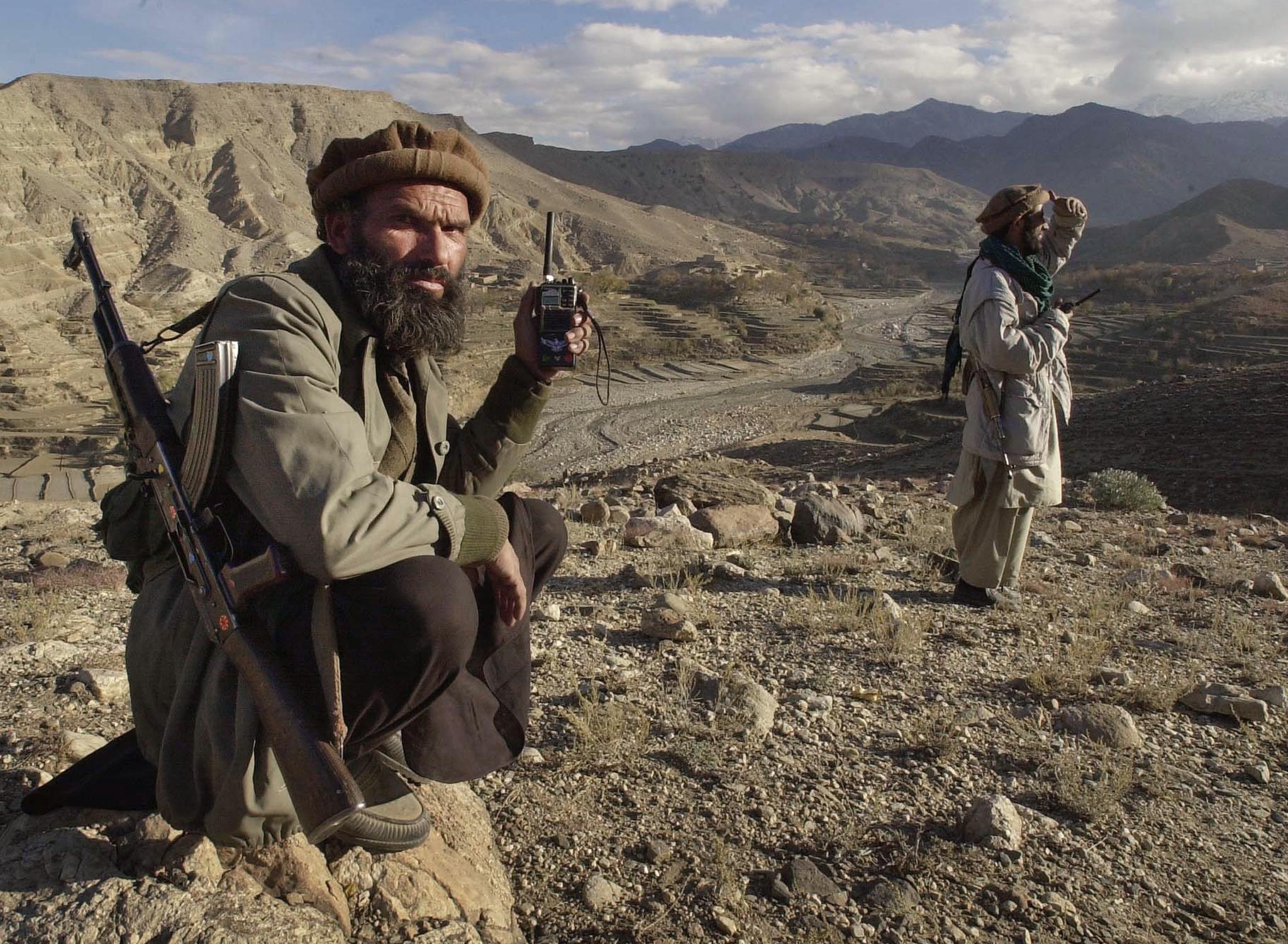
Two anti-Taliban fighters armed with Kalashnikov and radio receivers stand lookout in Tora Bora, Afghanistan, on December 6, 2001, as the U.S. bombardment commences. (ROMEO GACAD/AFP via Getty Images)
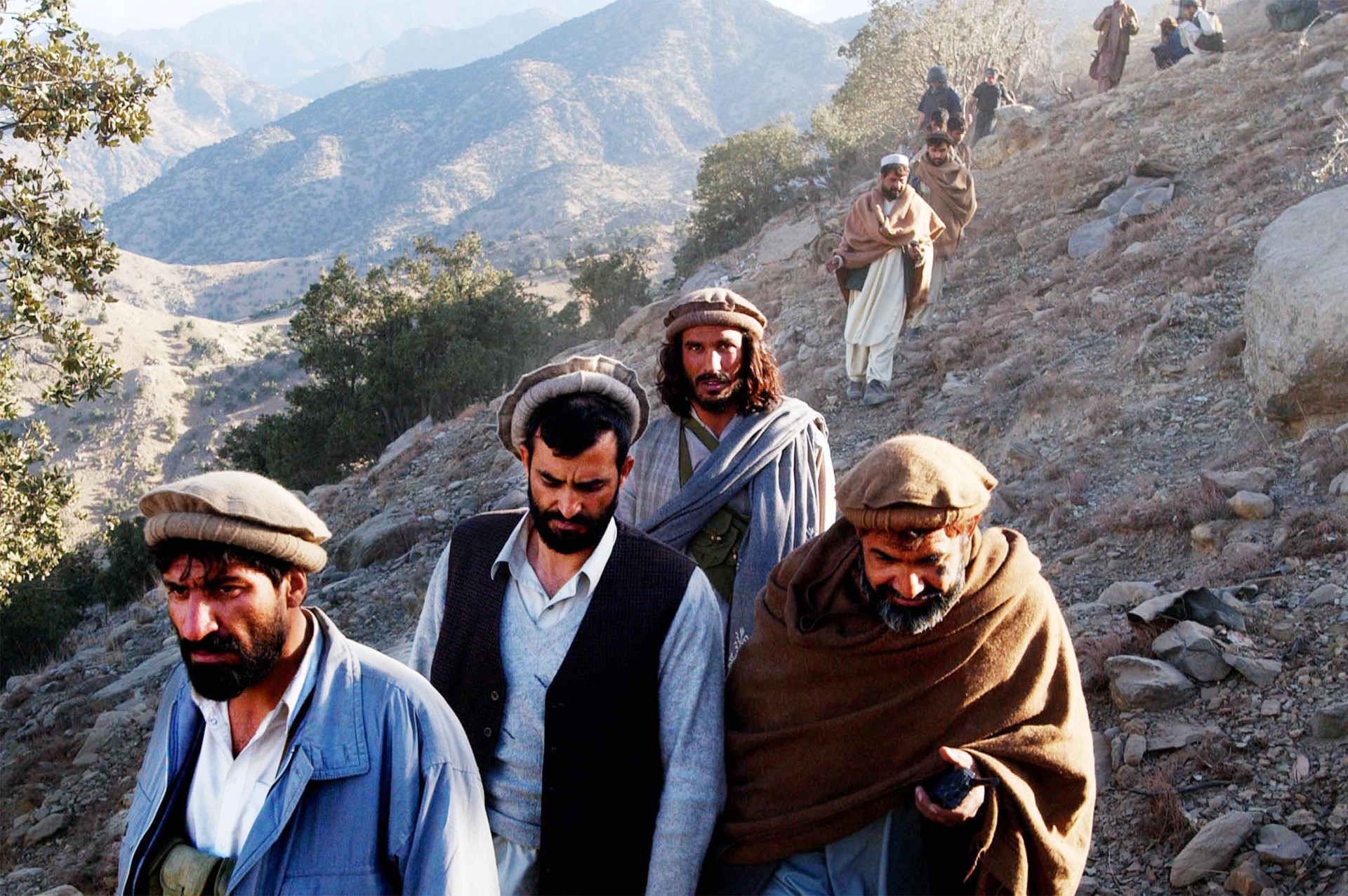
Northern Alliance soldiers walk the mountain passes along Tora Bora, Afghanistan, on December 7, 2001. (Chris Hondros/Getty Images)
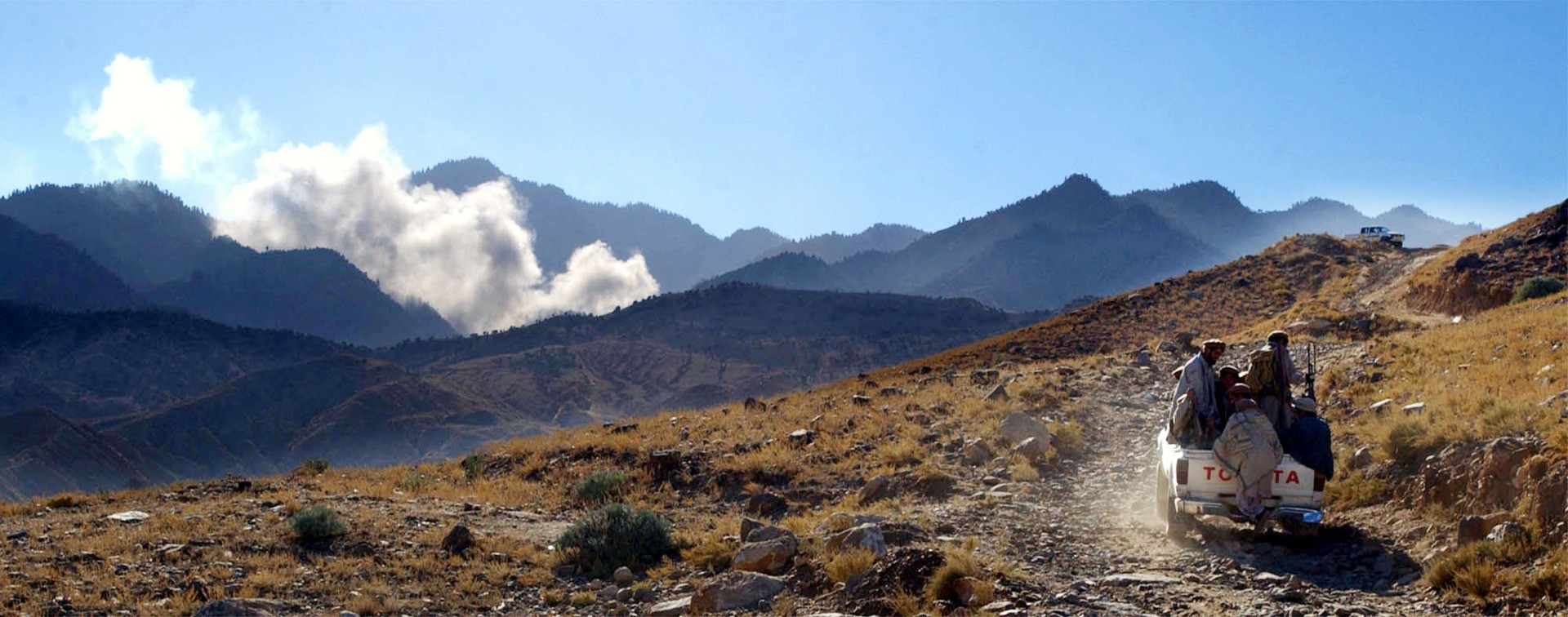
Northern Alliance soldiers drive a truck near where an American missile blast billows in the background at Tora Bora, Afghanistan, on December 8, 2001. (Chris Hondros/Getty Images)
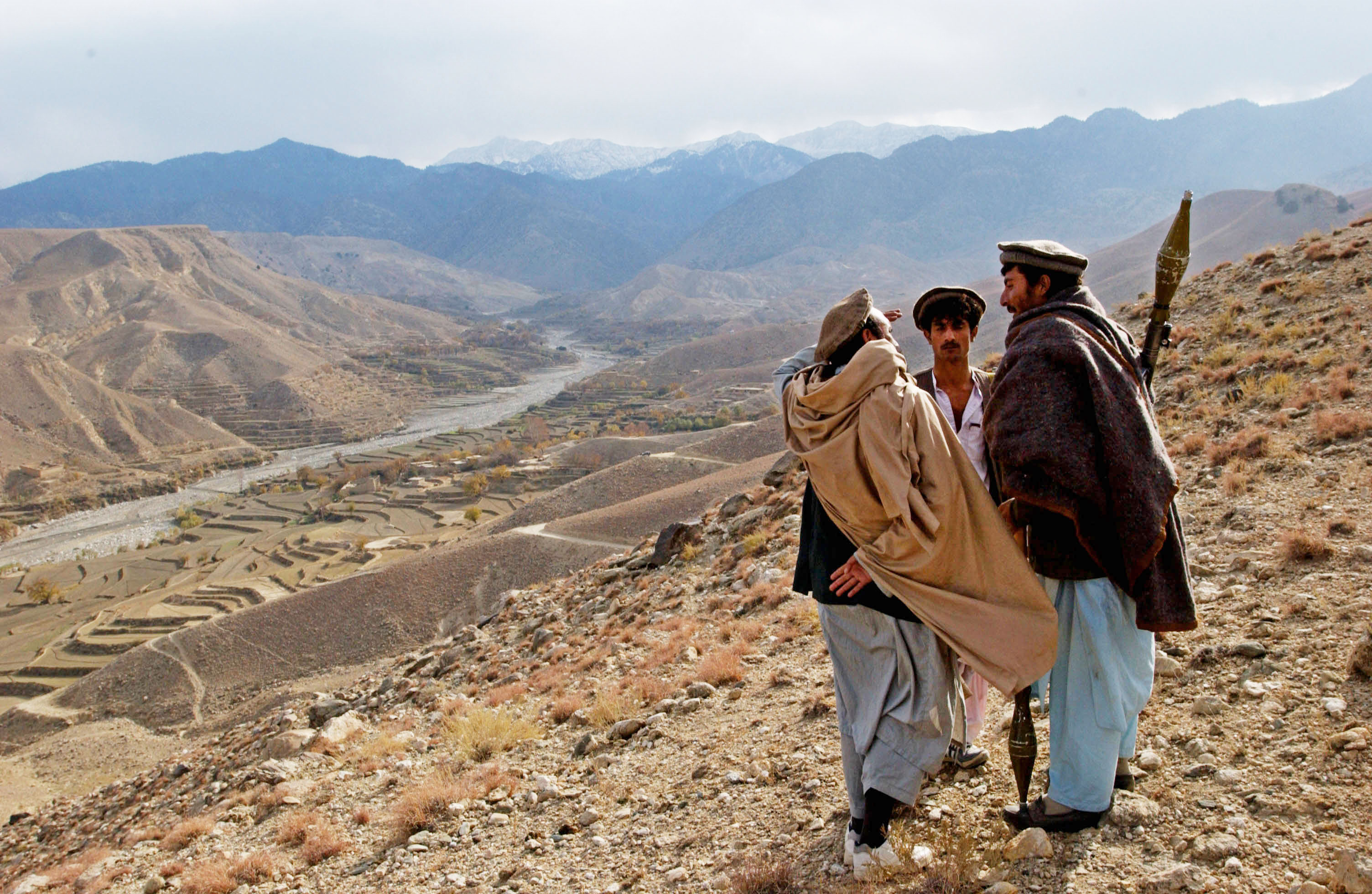
Anti-Taliban soldiers stand overlooking the unguarded mountain pass around Tora Bora during the U.S. bombardment on December 10, 2001. (Chris Hondros/Getty Images)
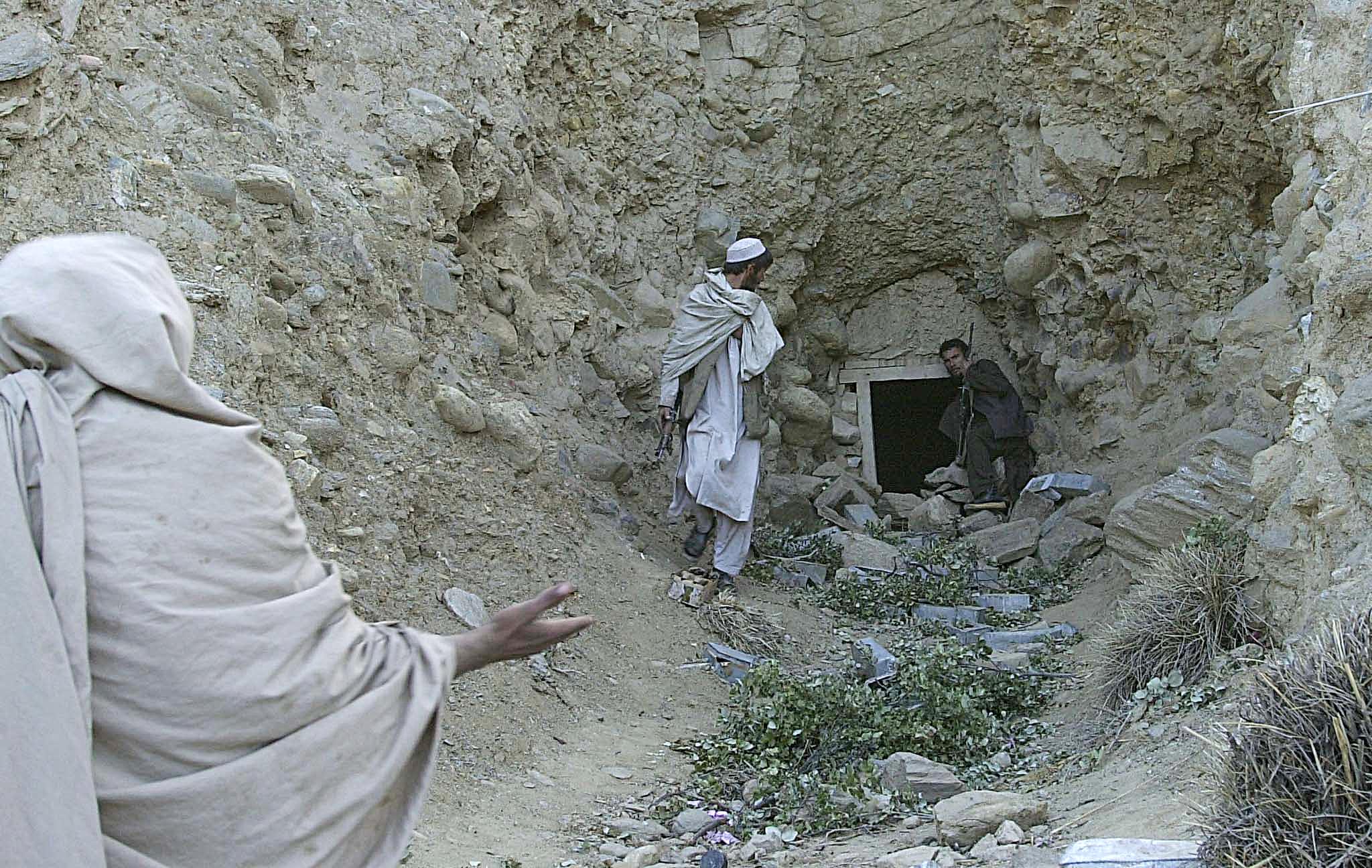
Afghan mujahadeen inspect one of the caves in the captured Al Qaeda base at Tora Bora on December 19, 2001. (ROMEO GACAD/AFP via Getty Images)
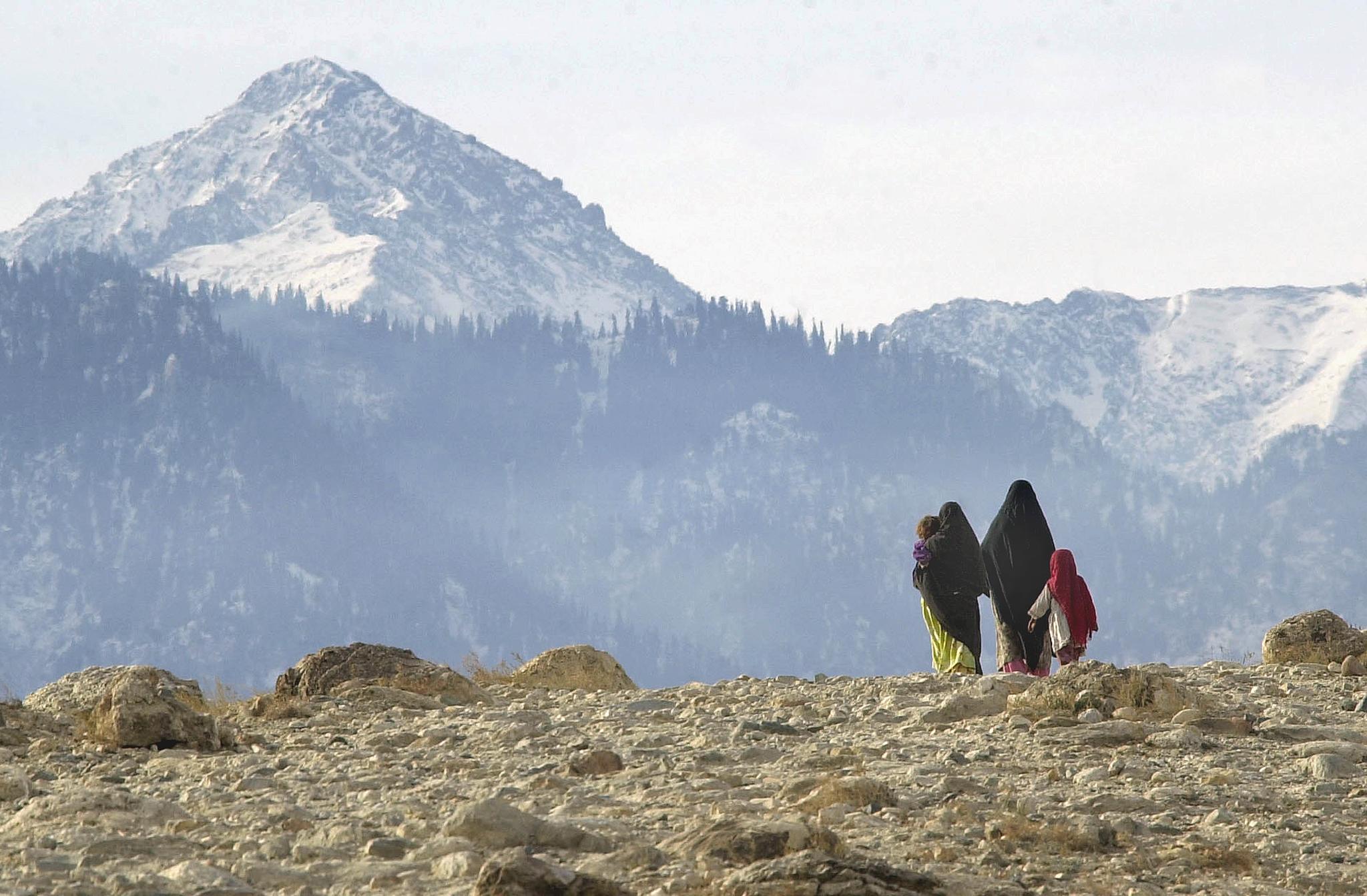
Two Afghan women and their children walk towards the direction of the snow covered battle ground of Tora Bora mountain on December 23, 2001. (ROMEO GACAD/AFP via Getty Images)
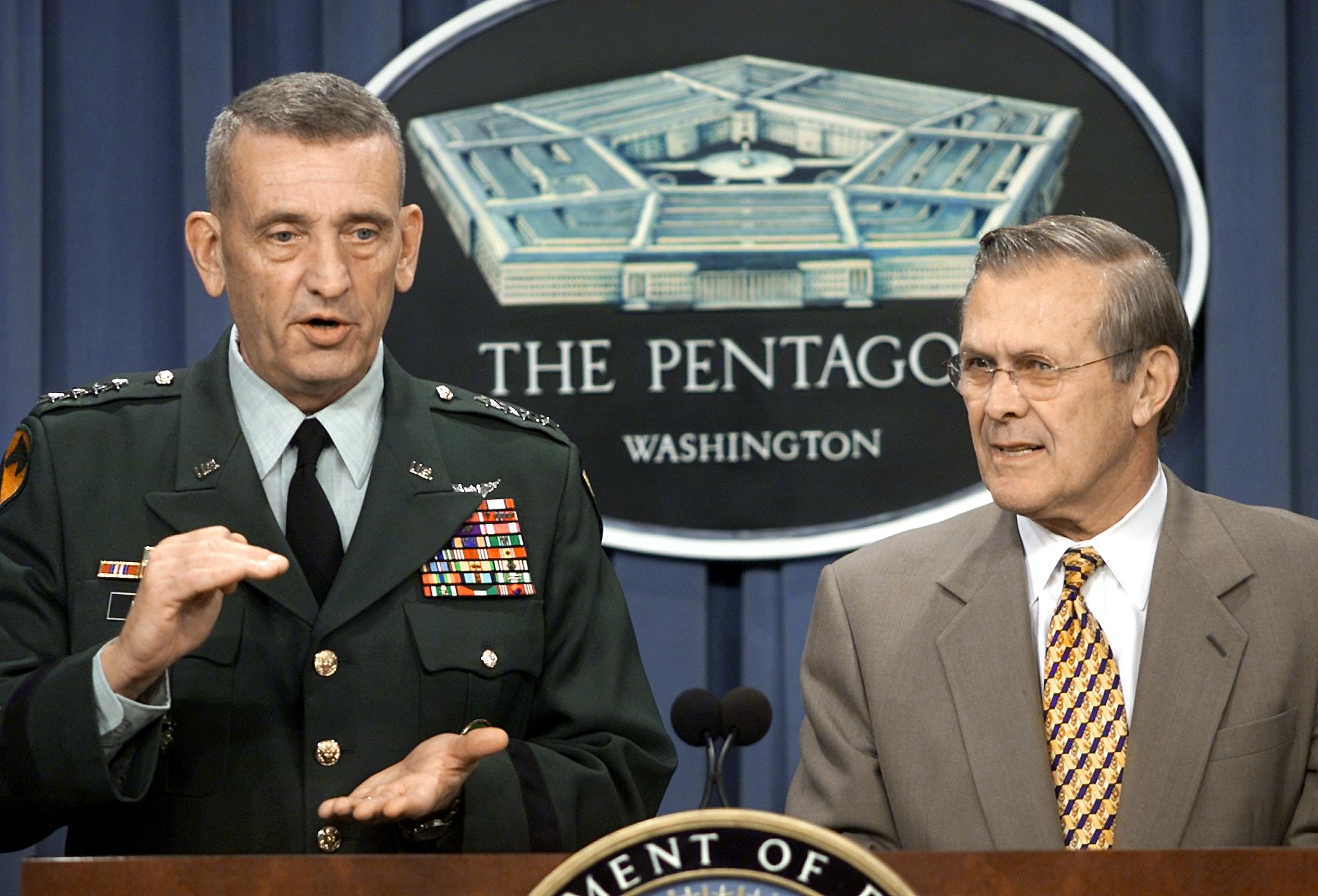
General Tommy Franks (L), commander of the U.S. military campaign in Afghanistan, and U.S. Secretary of Defense Donald Rumsfeld (R) hold a joint briefing on November 8, 2001, at the Pentagon. (PAUL J. RICHARDS/AFP via Getty Images)
On March 19, 2003, U.S. and coalition forces invaded Iraq, defeating the Iraqi army and seizing Baghdad in less than three weeks.
The war would successfully depose Iraqi dictator Saddam Hussein’s regime but fail to find the weapons of mass destruction he was purported to have.
The years that followed brought sectarian fighting, suicide bombings, regional instability, and tragedy for Iraqi civilians and the U.S. coalition.
On August 30, 2010, President Barack Obama declared an end to U.S. combat operations in Iraq, essentially ending the U.S. war there. But, as would soon become apparent, the U.S. withdrawal left an even greater power vacuum that would be exploited by Islamic State jihadists in Iraq and Syria, which in turn would lead to the ethnic cleansing of Christians and other religious minorities in the region, a migrant crisis in Europe, and ISIS-inspired terror attacks throughout the world.
As many as 306,000 civilians and troops died in the Iraq War, including 4,598 American service members.
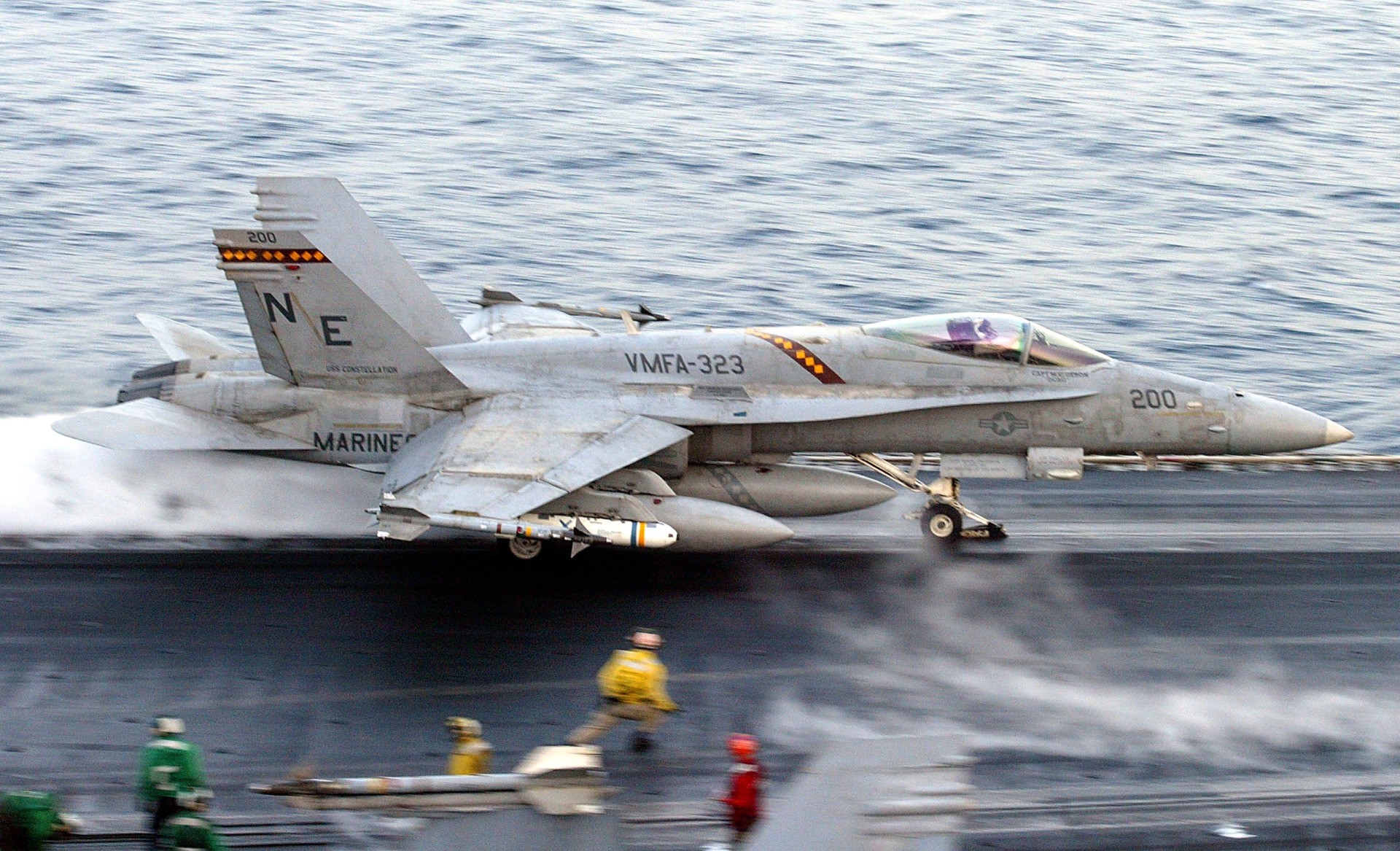
A U.S. Navy F/A-18 Hornet launches from the flight deck of the USS Constellation shortly after President George Bush declared that war against Iraq had begun March 20, 2003. (Justin Sullivan/Getty Images)
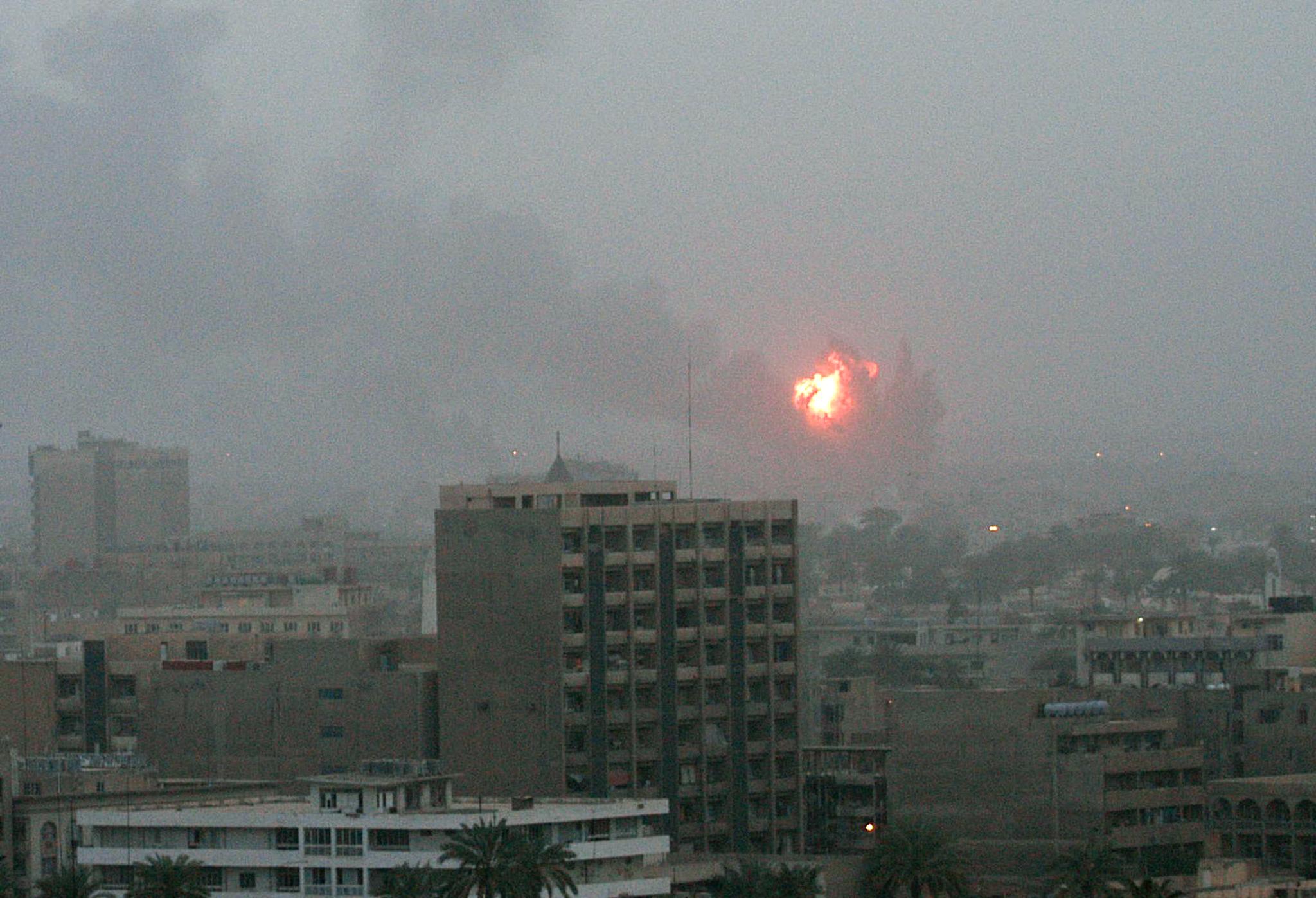
An explosion is seen in Baghdad on March 20, 2003, as the U.S. began its war on Iraq with air strikes on the capital. (PATRICK BAZ/AFP via Getty Images)
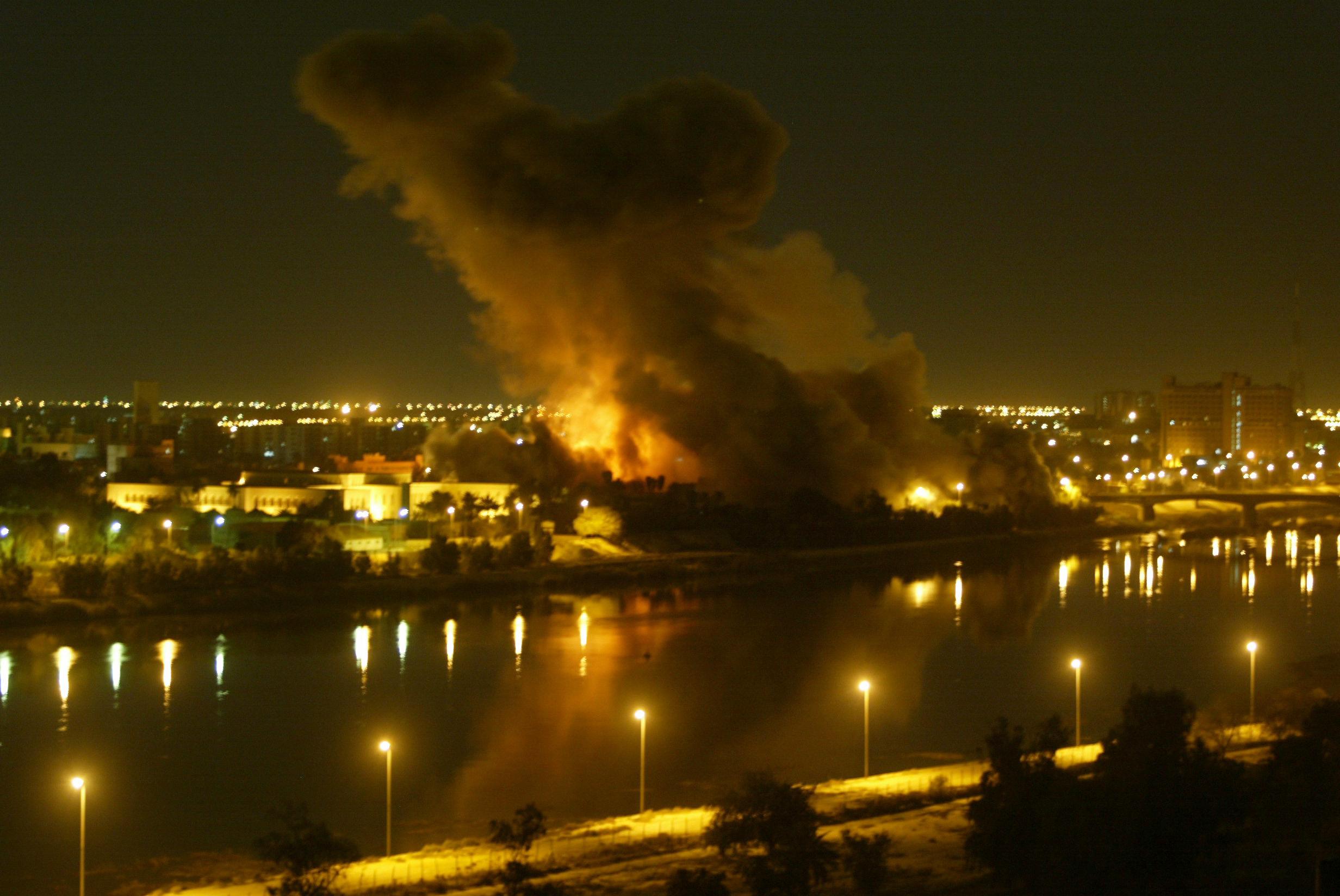
Smoke billows as a U.S. missile hits the planning ministry in Baghdad March 20, 2003. (RAMZI HAIDAR/AFP via Getty Images)
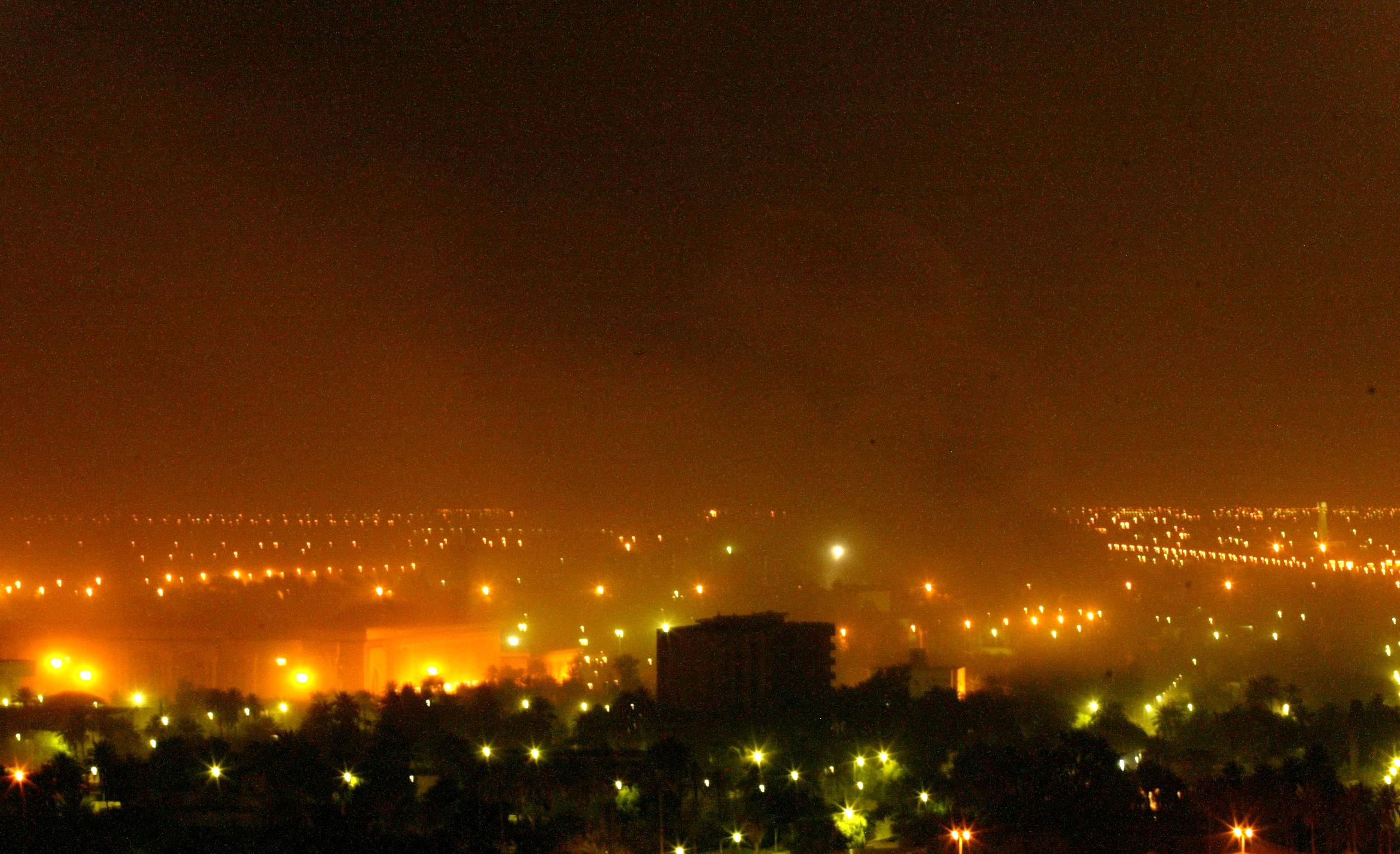
Smoke and fire engulf Baghdad following a massive U.S. missile attack on March 20, 2003. (KARIM SAHIB/AFP via Getty Images)
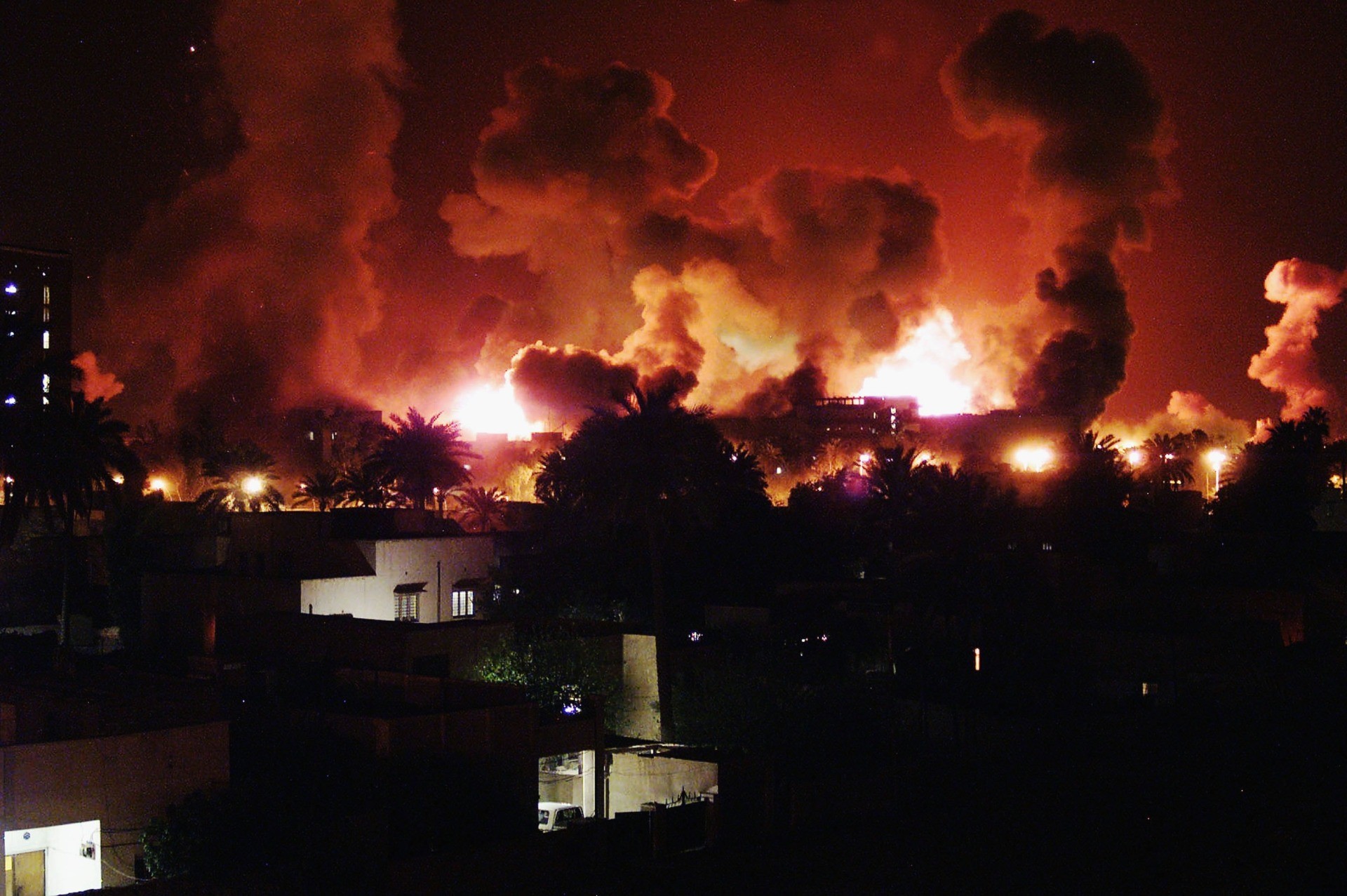
Smoke rises from explosions during the first few minutes of a U.S. air attack on March 21, 2003, in Baghdad. (Wathiq Khuzaie /Getty Images)
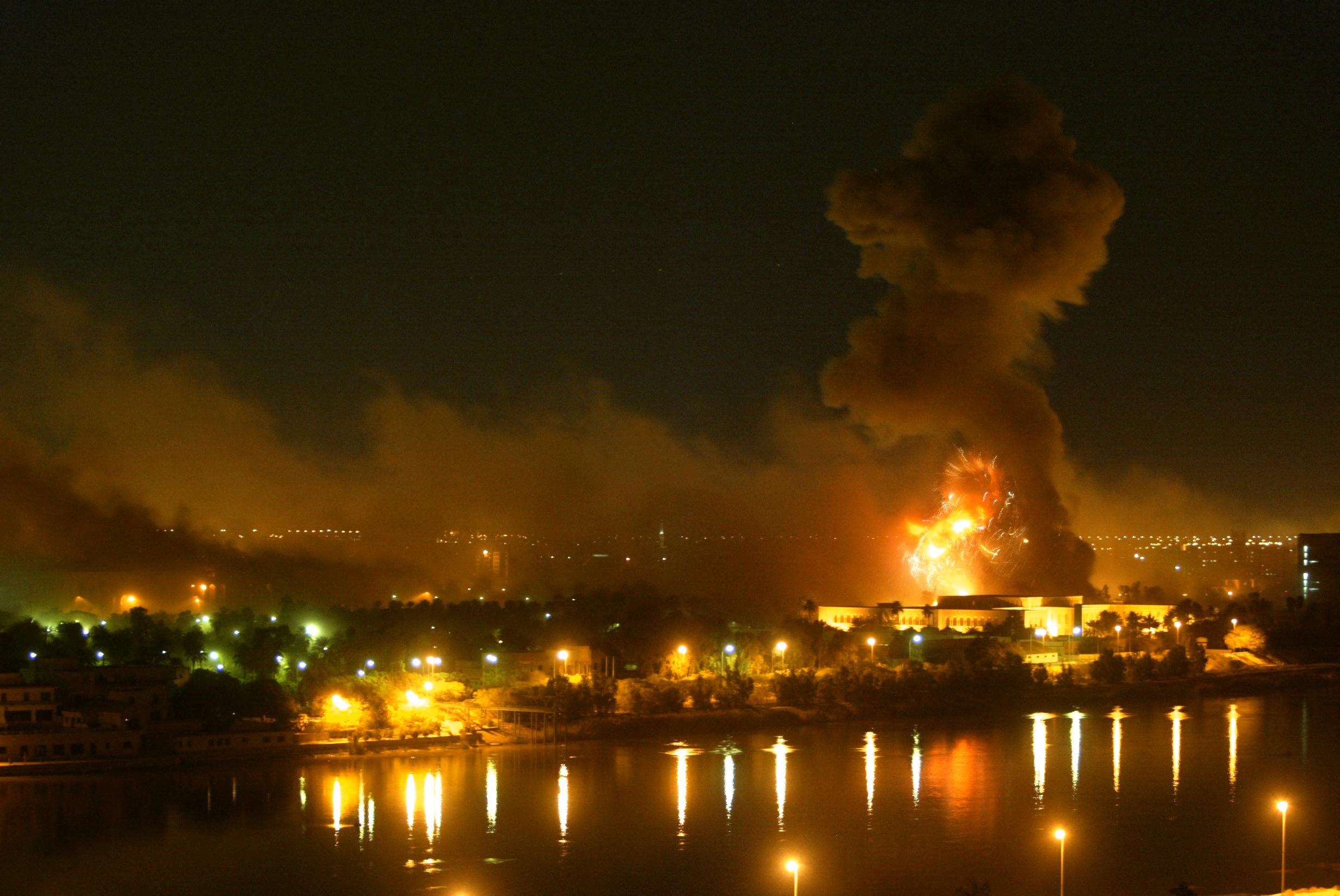
The presidential palace compound burns in Baghdad on March 21, 2003, during the massive U.S. air strike on the Iraqi capital. (RAMZI HAIDAR/AFP via Getty Images)
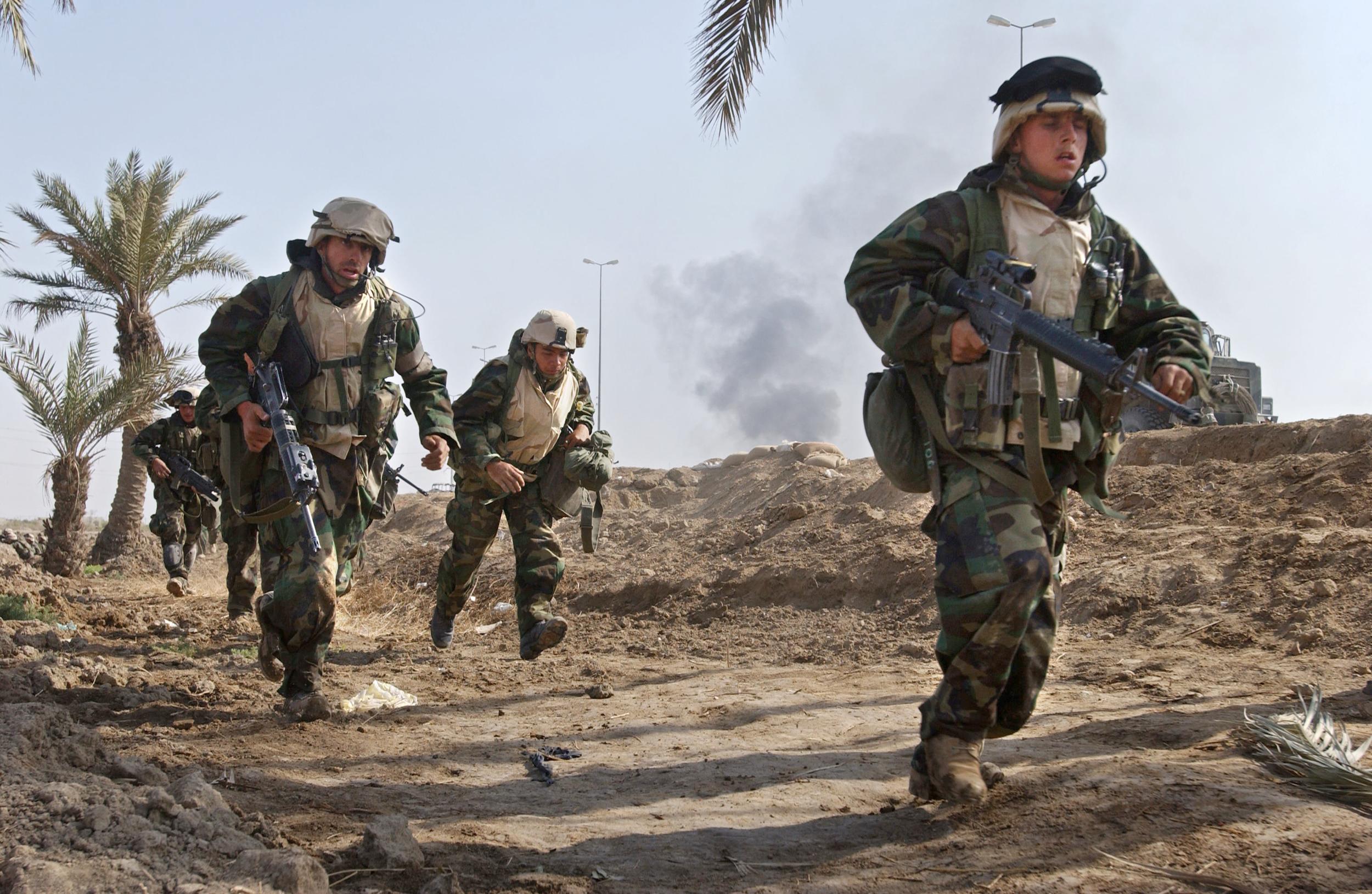
U.S. Marines from the 2nd Battalion 8th Regiment run for cover on March 23, 2003, during combat with Iraqi troops in the southern city of Nasiriyah. (ERIC FEFERBERG/AFP via Getty Images)
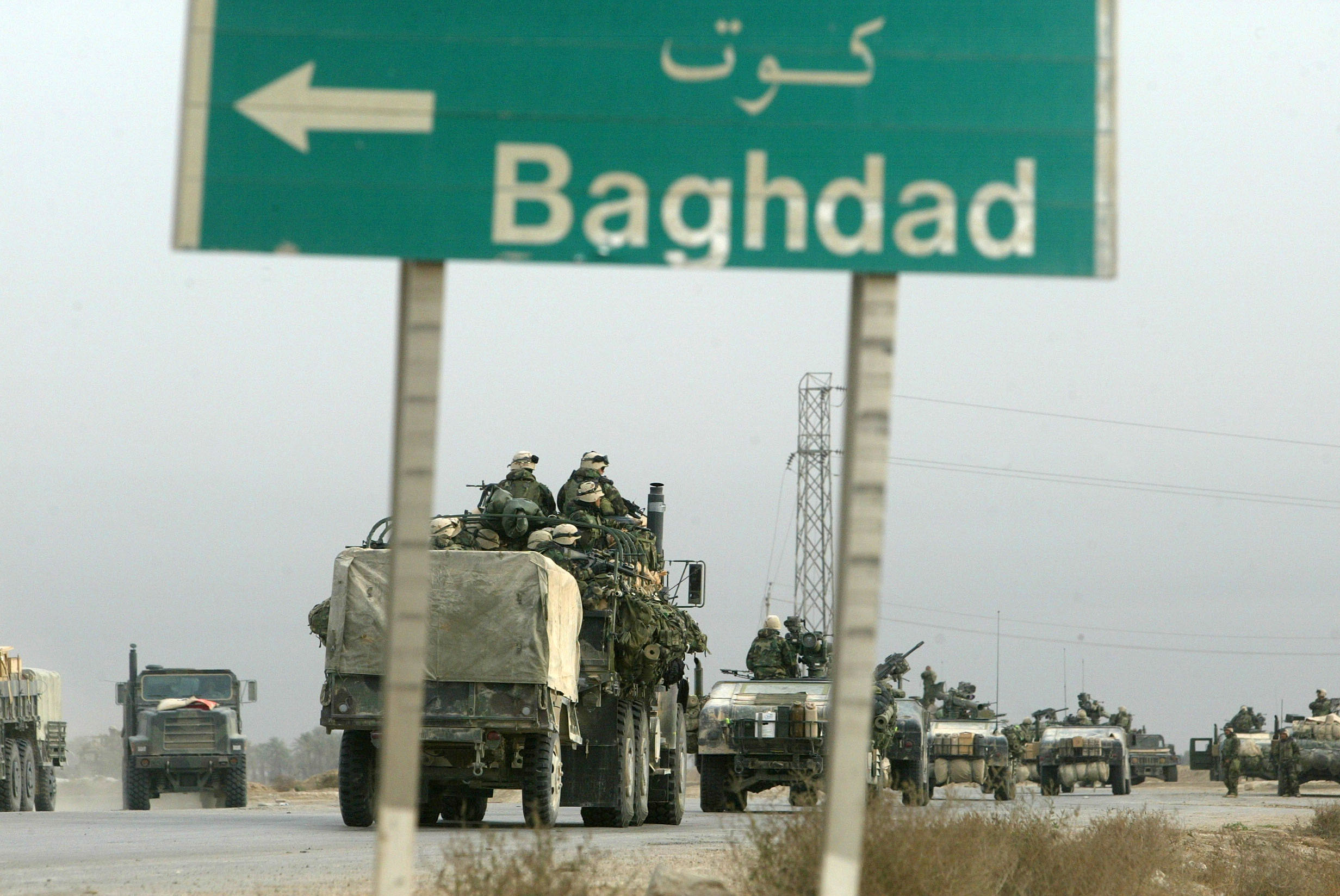
U.S. Marines from the 1st Marine Division pass a sign pointing the way to Baghdad as they continue their march to the Iraqi capital on March 25, 2003, in the southern Iraqi city of Nasiriyah. (Joe Raedle/Getty Images)
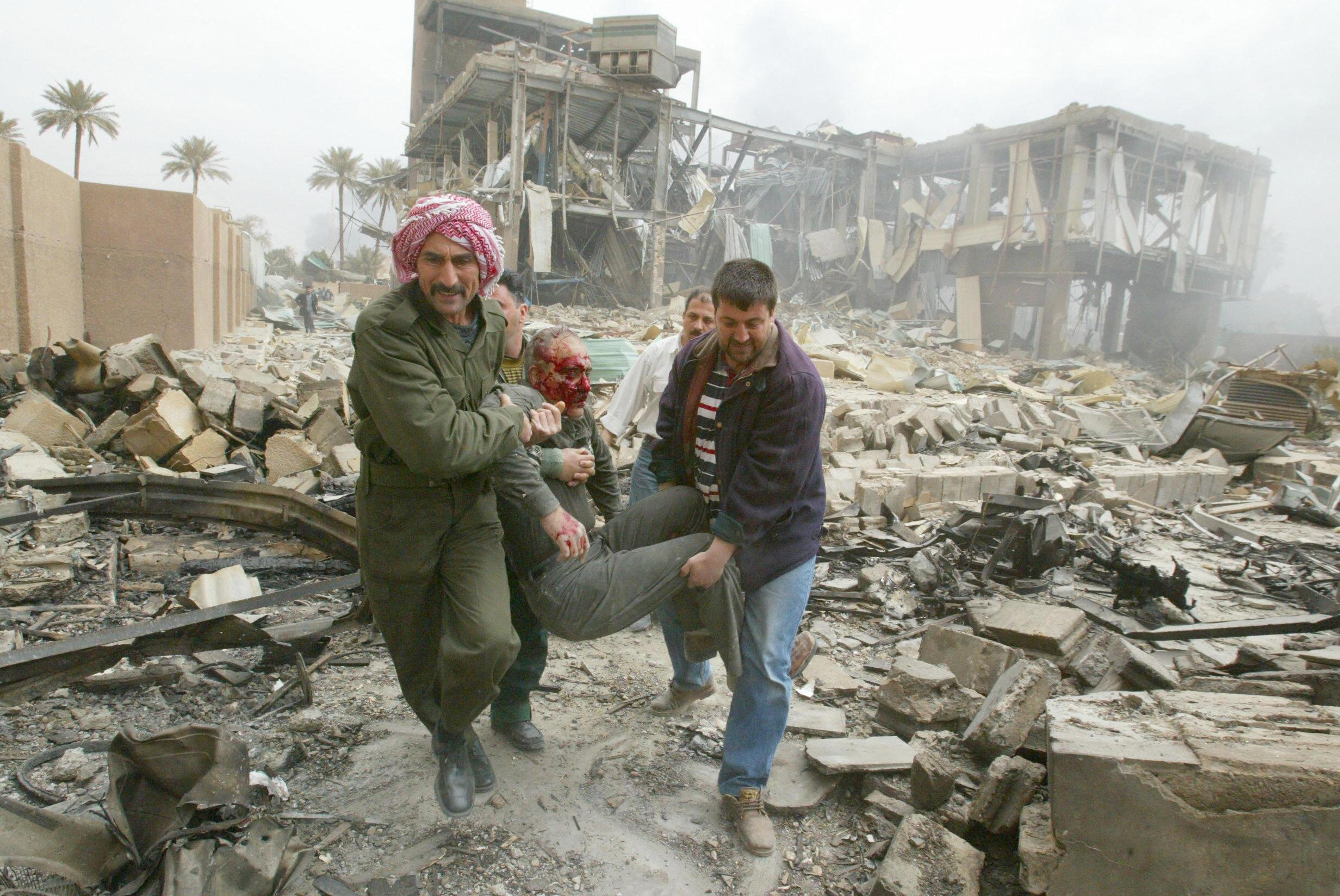
Majed Najaf (R) carries wounded Hafez Abu Haidar, an employee at the al-Salhiya telecomunications center, after it was hit by a U.S. missile during a coalition air raid on Baghdad on March 30, 2003. (PATRICK BAZ/AFP via Getty Images)
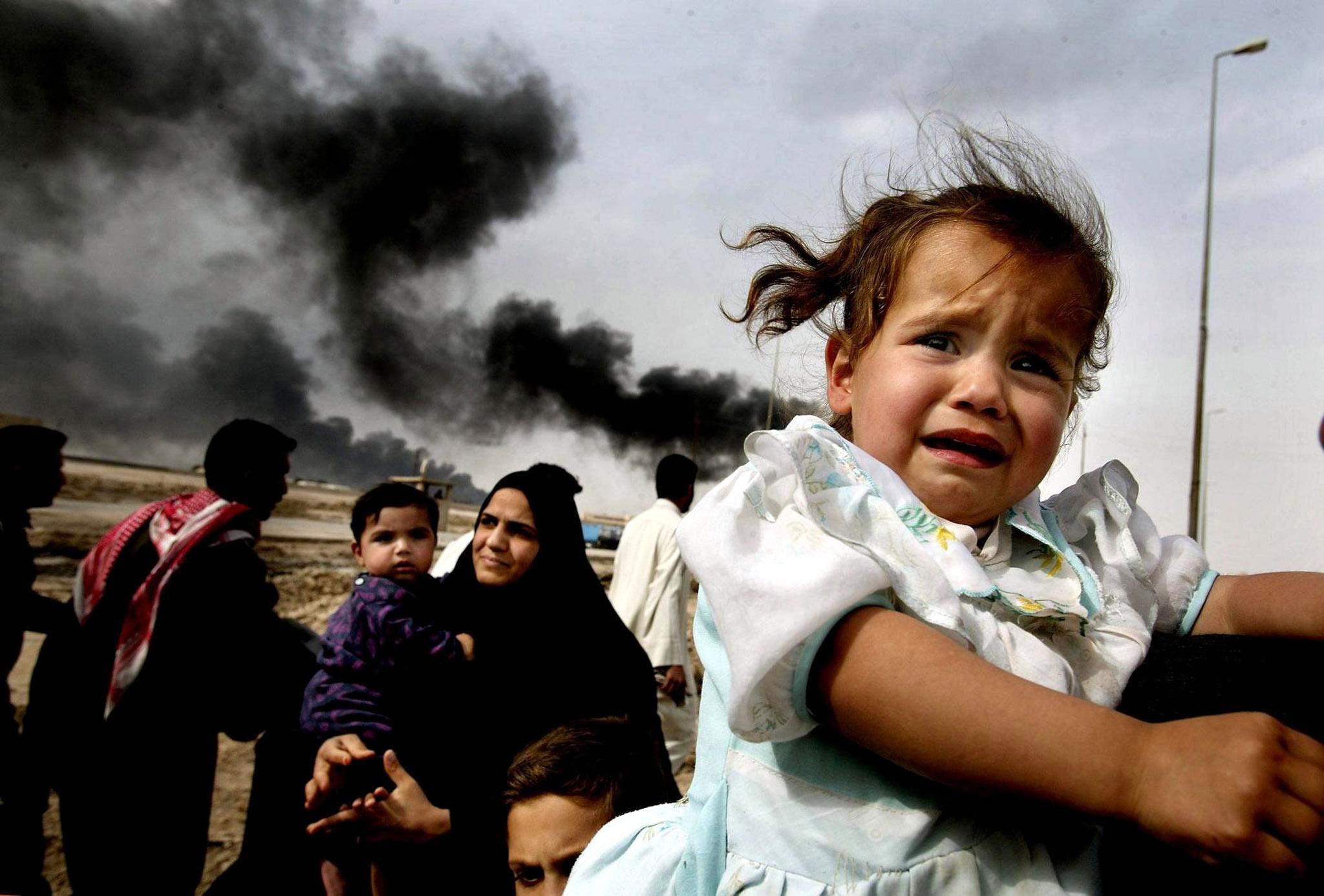
Iraqi families continue to leave Basra in southern Iraq, across one of the town’s bridges manned by British soldiers, on March 30, 2003. (DAN CHUNG/AFP via Getty Images)
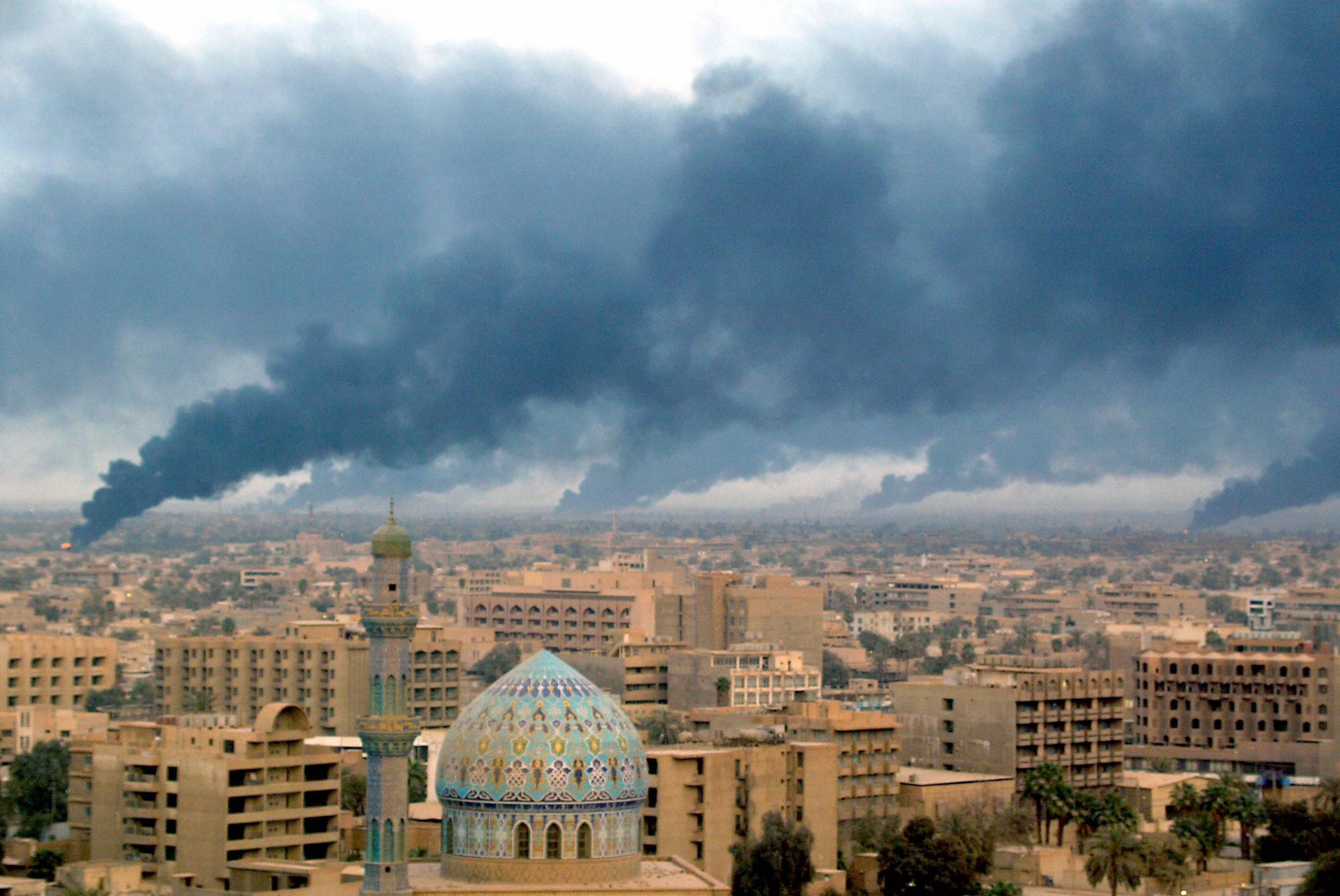
Smoke billowing from burning oil trenches covers Baghdad on April 2, 2003. (PATRICK BAZ/AFP via Getty Images)
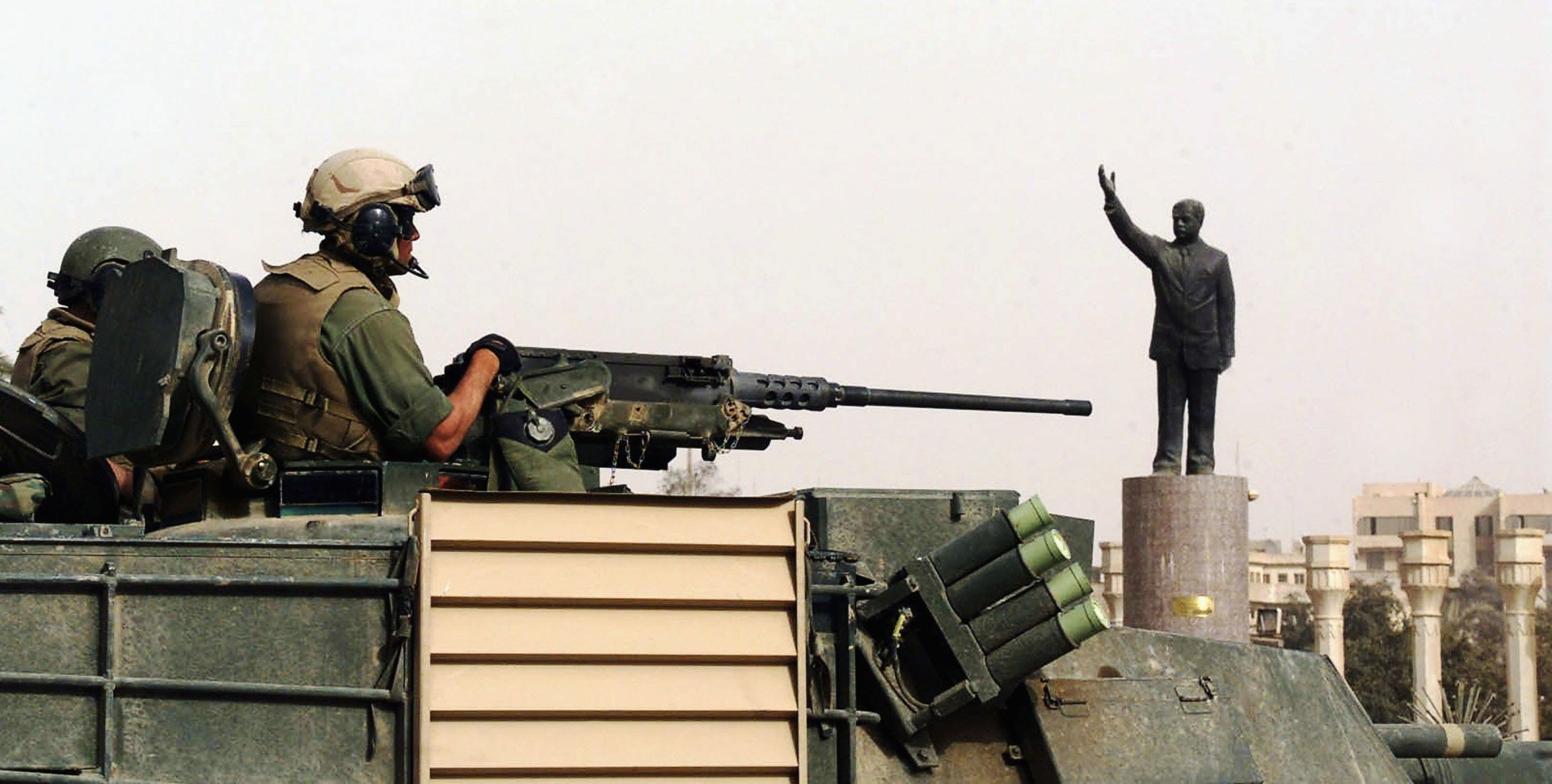
U.S. Marines are seen near the statue of Iraqi dictator Saddam Hussein at al-Fardous square in Baghdad, after the U.S. coalition forces captured the Iraqi capital on April 9, 2003. (Wathiq Khuzaie /Getty Images)
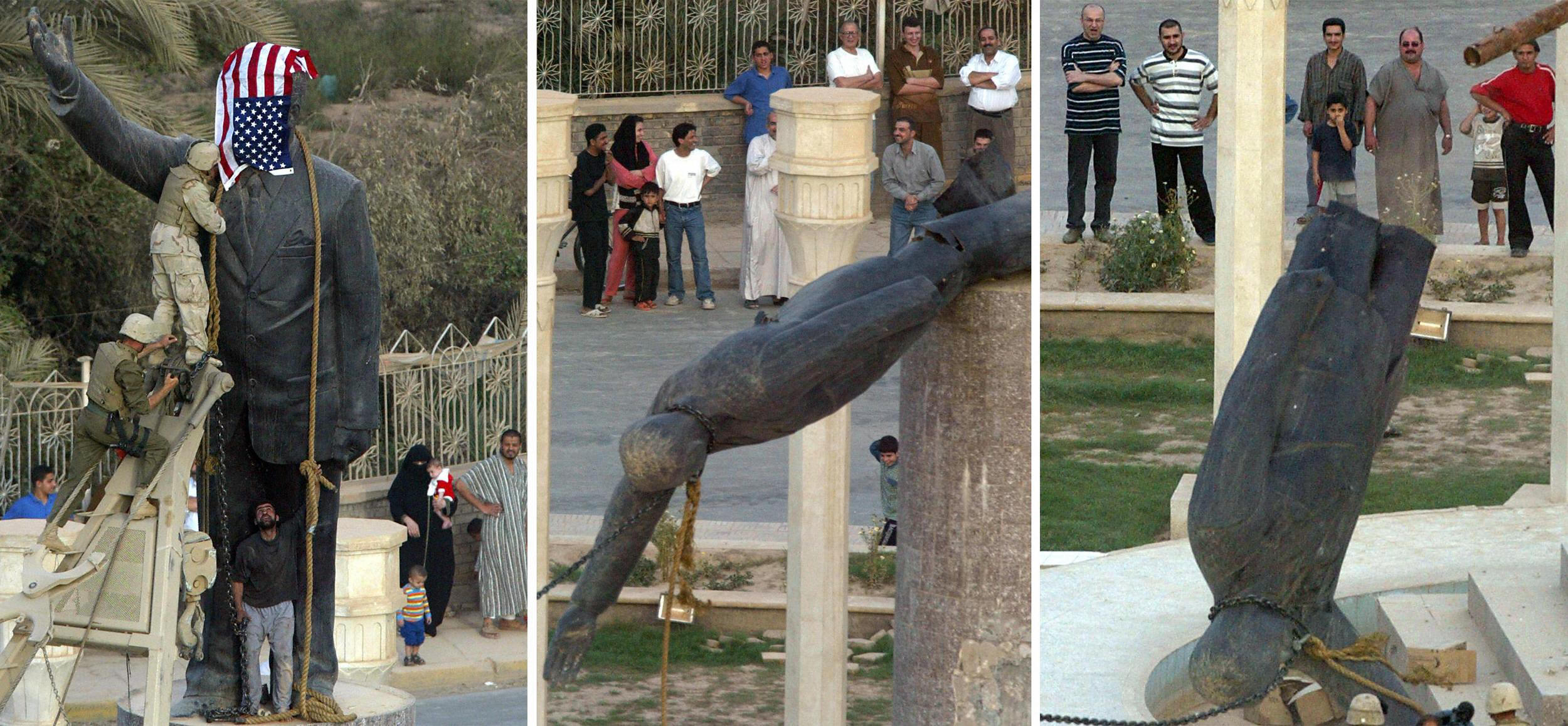
Iraqis watch as U.S. forces topple a statue of Saddam Hussein after seizing Baghdad on April 9, 2003. The statue was briefly covered with a U.S. flag before being brought down. (PATRICK BAZ/AFP via Getty Images)
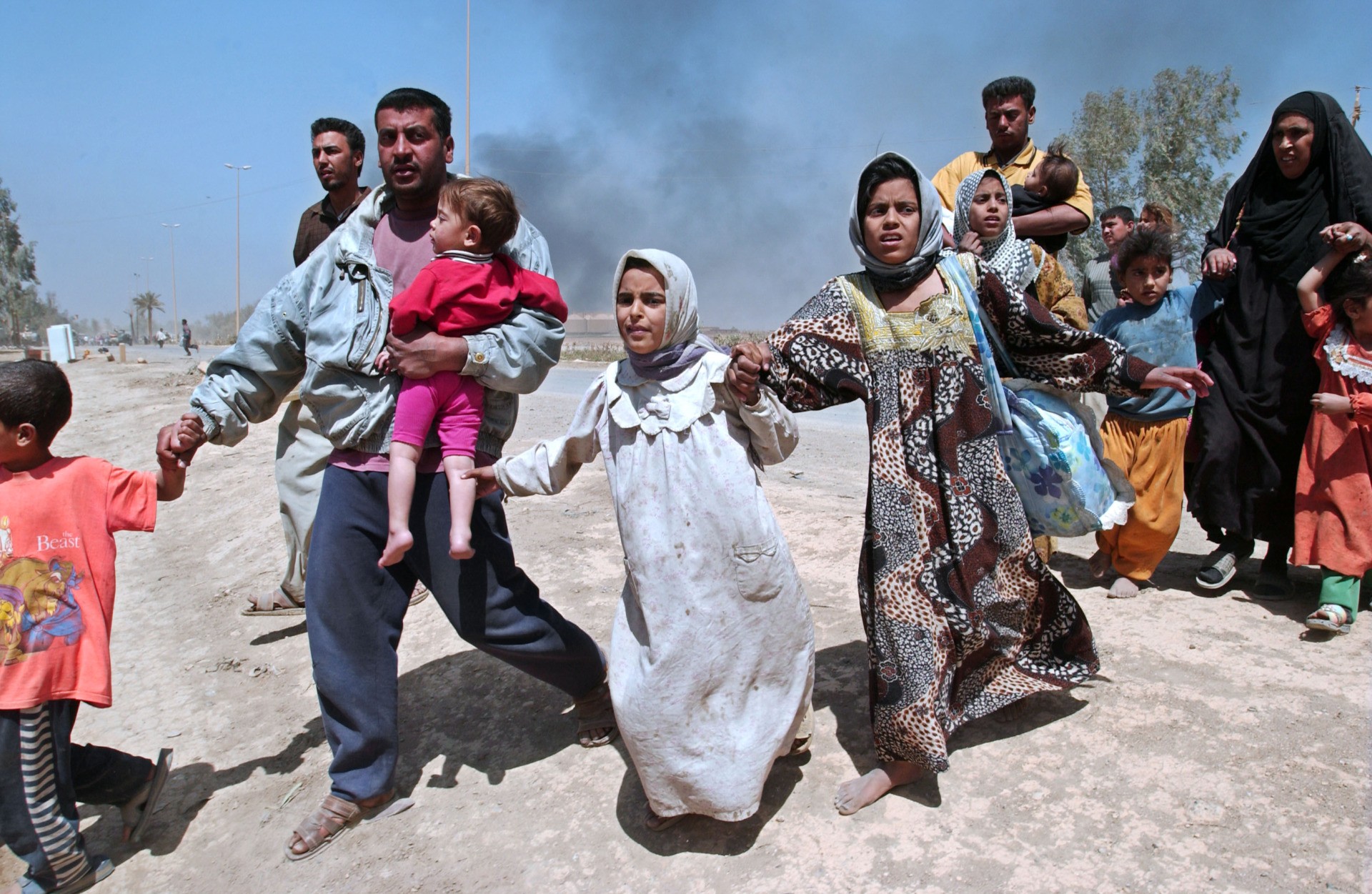
Iraqis flee Baghdad on April 11, 2003, as the Iraqi capital descended into chaos with widespread looting and lawlessness, two days after U.S. troops captured the city and ousted Saddam Hussein’s regime. (ERIC FEFERBERG/AFP via Getty Images)
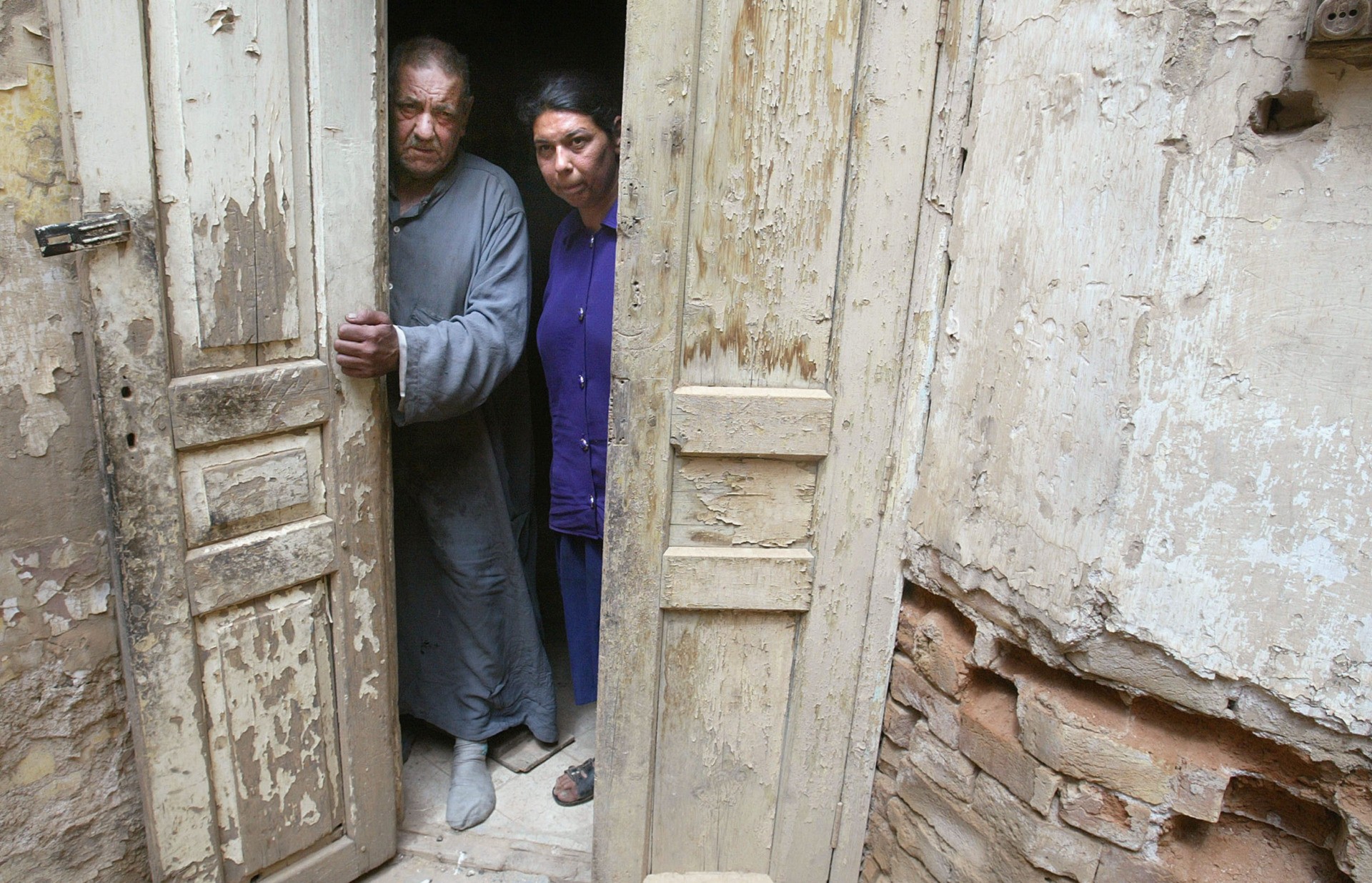
Iraqi Jews Jakob Yusef, 70, and his niece Khalda Salih, 38, stand in their home in the tiny remaining Baghdad Jewish community on Passover April 17, 2003. The community members did not formally celebrating the holiday that year due to a lack of electricity, food, and other problems associated with the war. (Mario Tama/Getty Images)
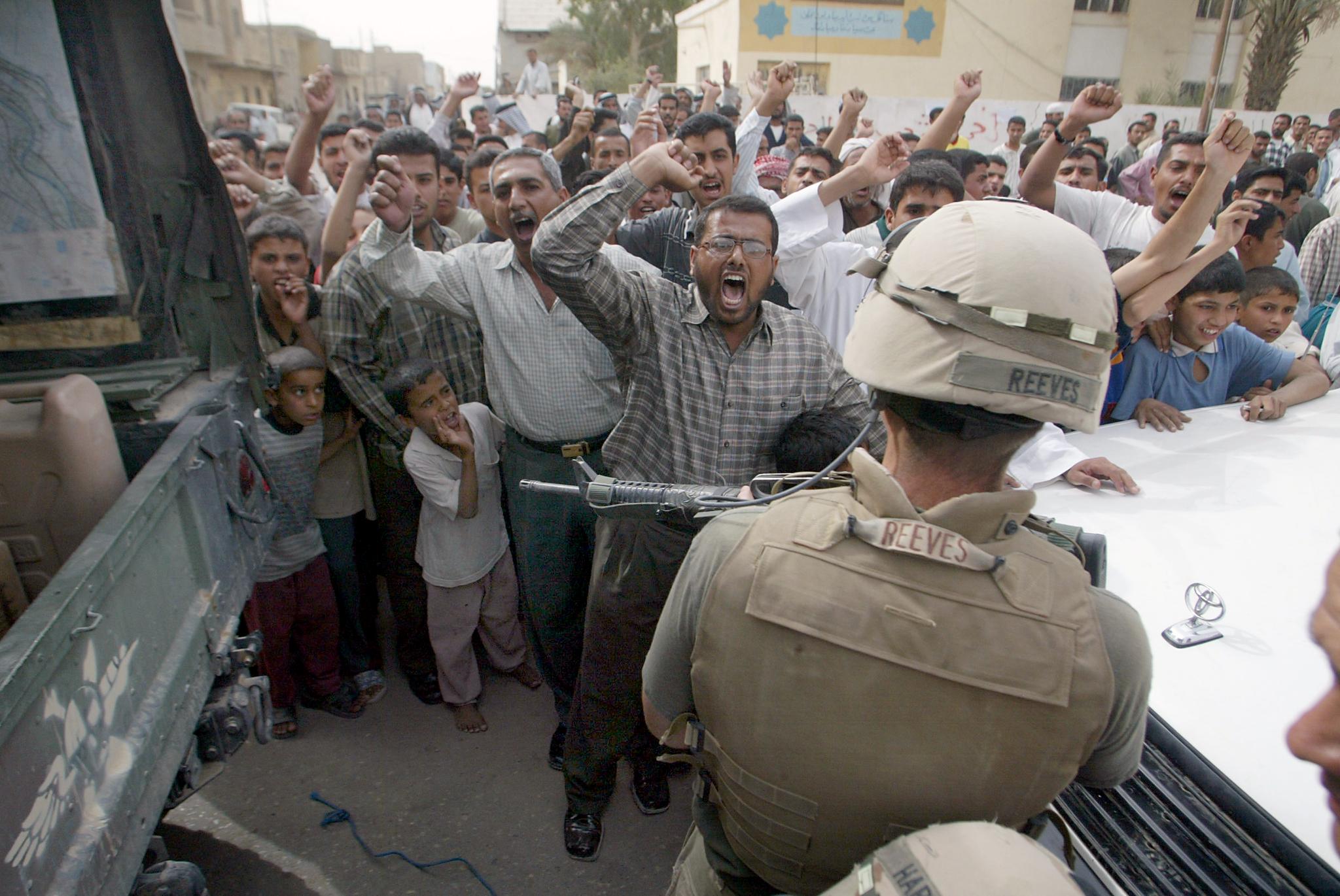
Nasariyah residents protest the presence of U.S. troops in Iraq on April 15, 2003, just days after U.S. coalition forces took control of the country. The rally of around 20,000 mostly Shiite Muslims, unthinkable just a week ago under Saddam’s Sunni Muslim regime, chanted: “Yes to freedom! Yes to Islam! No to America! No to Saddam!” (CRIS BOURONCLE/AFP via Getty Images)
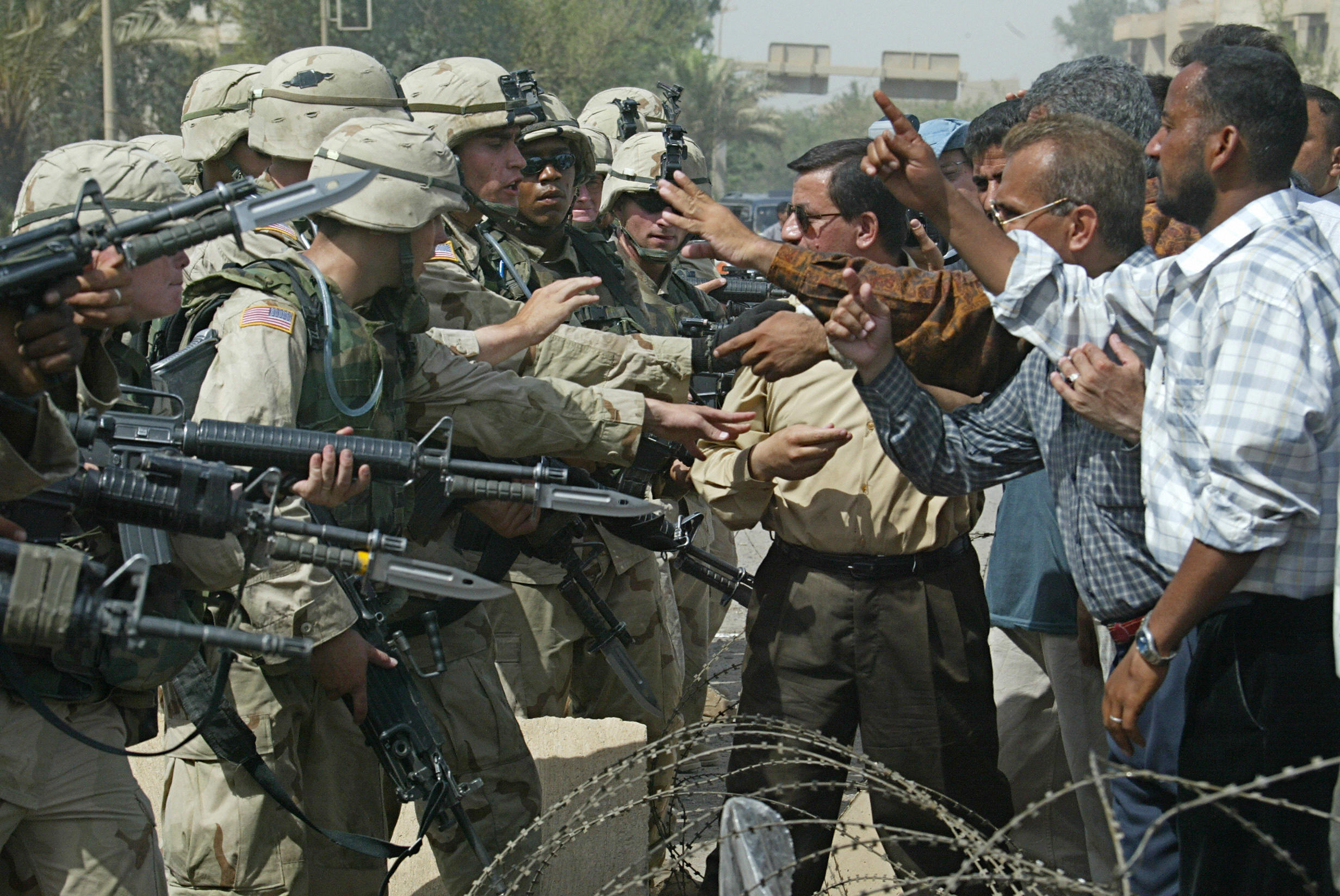
U.S. troops guarding the entrance of the U.S. administration’s offices in Baghdad argue with ex-Iraqi army personnel staging a protest on June 18, 2003, about two months after U.S. coalition forces gained control of the country. (RAMZI HAIDAR/AFP via Getty Images)
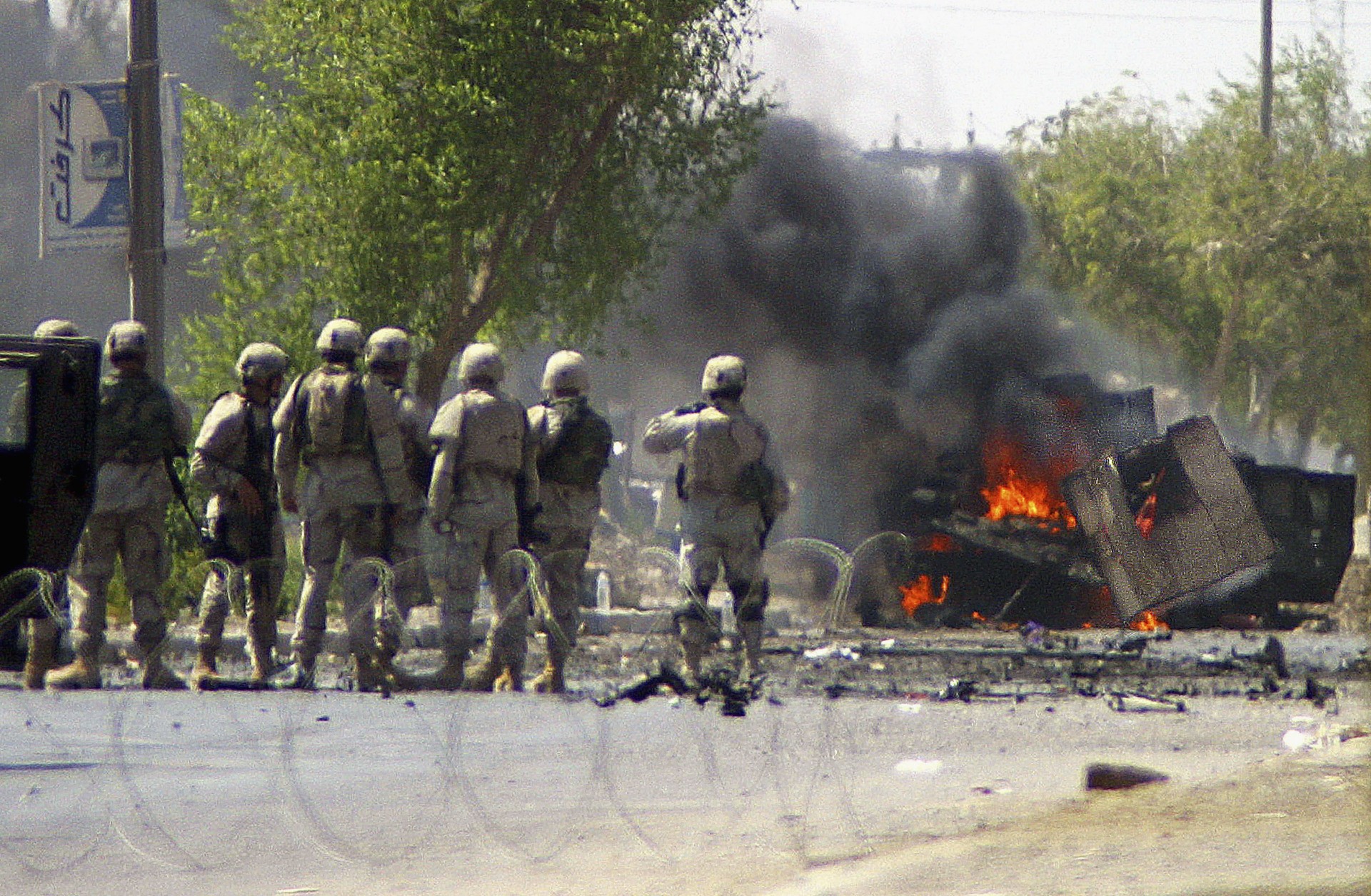
U.S. soldiers stand guard near the burning wreck of a U.S military vehicle caught in the explosion of a car bomb attack in Baghdad on September 5, 2005, over two years into the U.S. occupation of Iraq. (Akram Saleh /Getty Images)
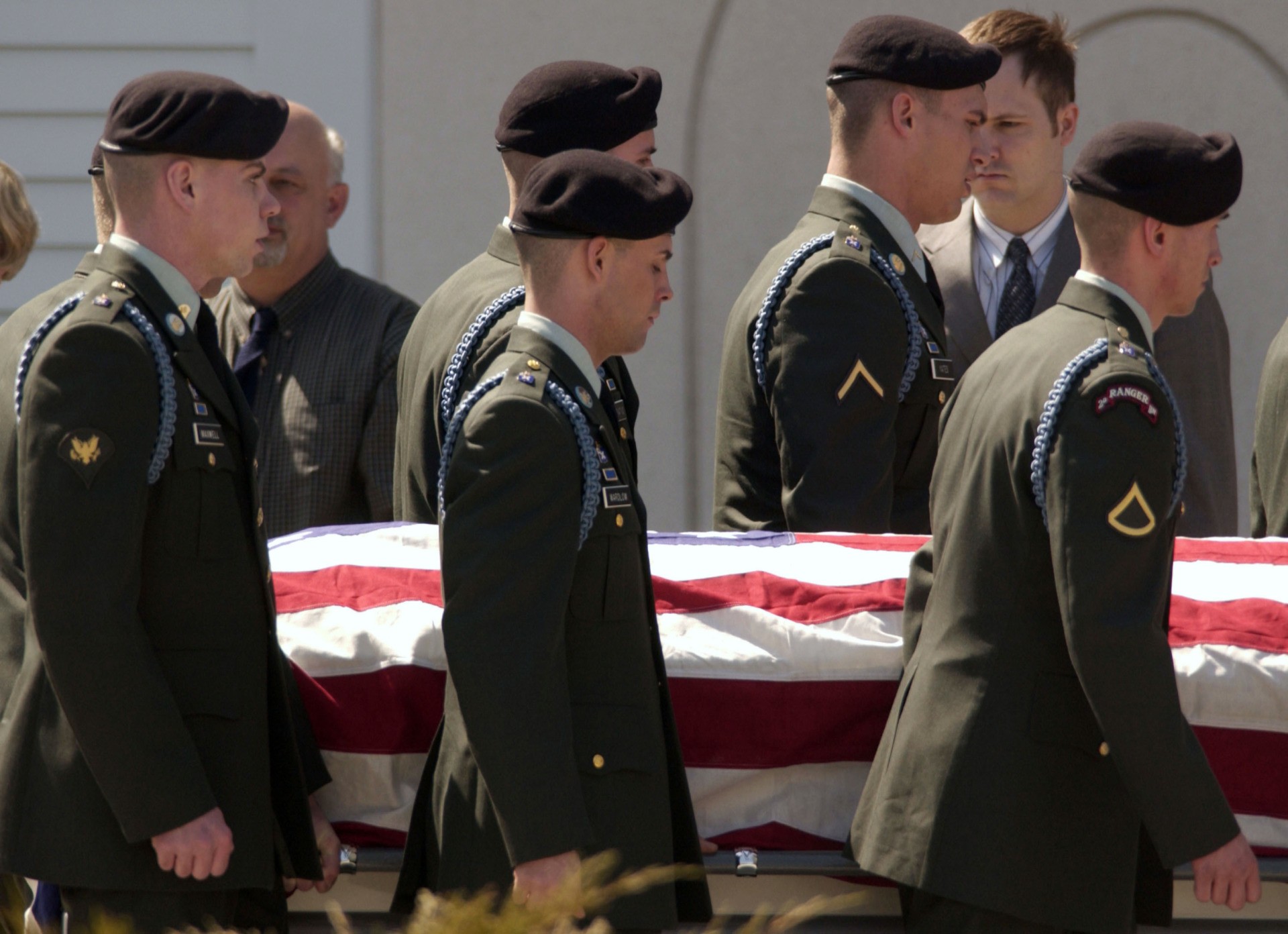
Members of the Fort Drum Honor Guard carry a casket of U.S. Army Spc. Mathew Boule, 22, into the St. Francis Church during his funeral on April 15, 2003, in Dracut, Massachusetts. Boule was killed when his Blackhawk helicopter crashed during a firefight south of Baghdad. (Jacob Silberberg/Getty Images)
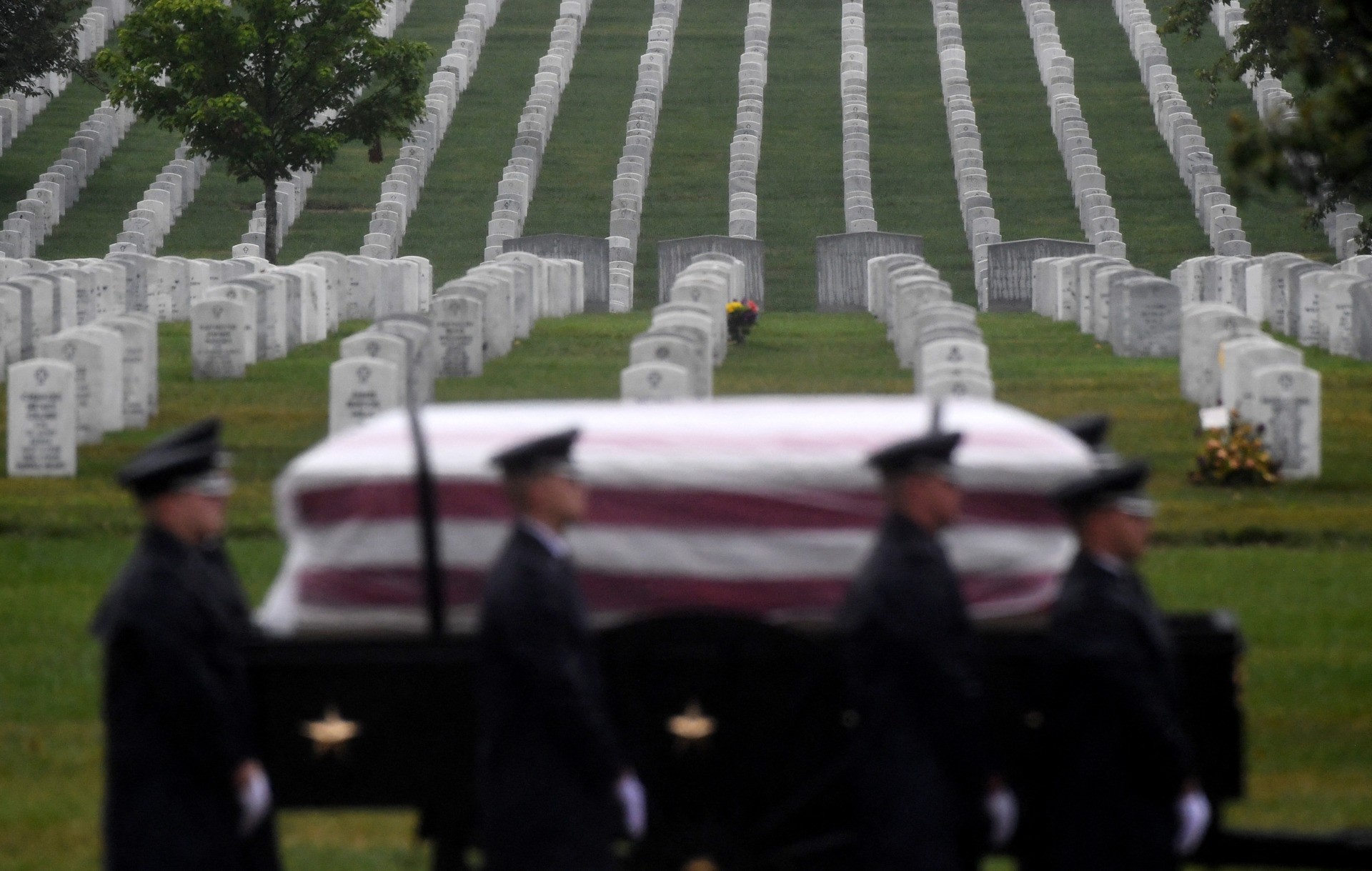
Members of the Old Guard stand next to the casket of a U.S. soldier during a full military honors burial ceremony next to Section 60, the section of Arlington National Cemetery reserved for those killed during the wars in Iraq and Afghanistan. (OLIVIER DOULIERY/AFP via Getty Images)
In February 2009, President Obama announced a surge of the war in Afghanistan, ordering an additional 17,000 U.S. troops to the country.
The U.S. nation-building mission there would expand beyond anything having to do with 9/11.
Official reports and interviews uncovered in the “Afghanistan Papers” revealed that after two decades of mission creep, the U.S. military knew it was fighting an un-ending and un-winnable war.
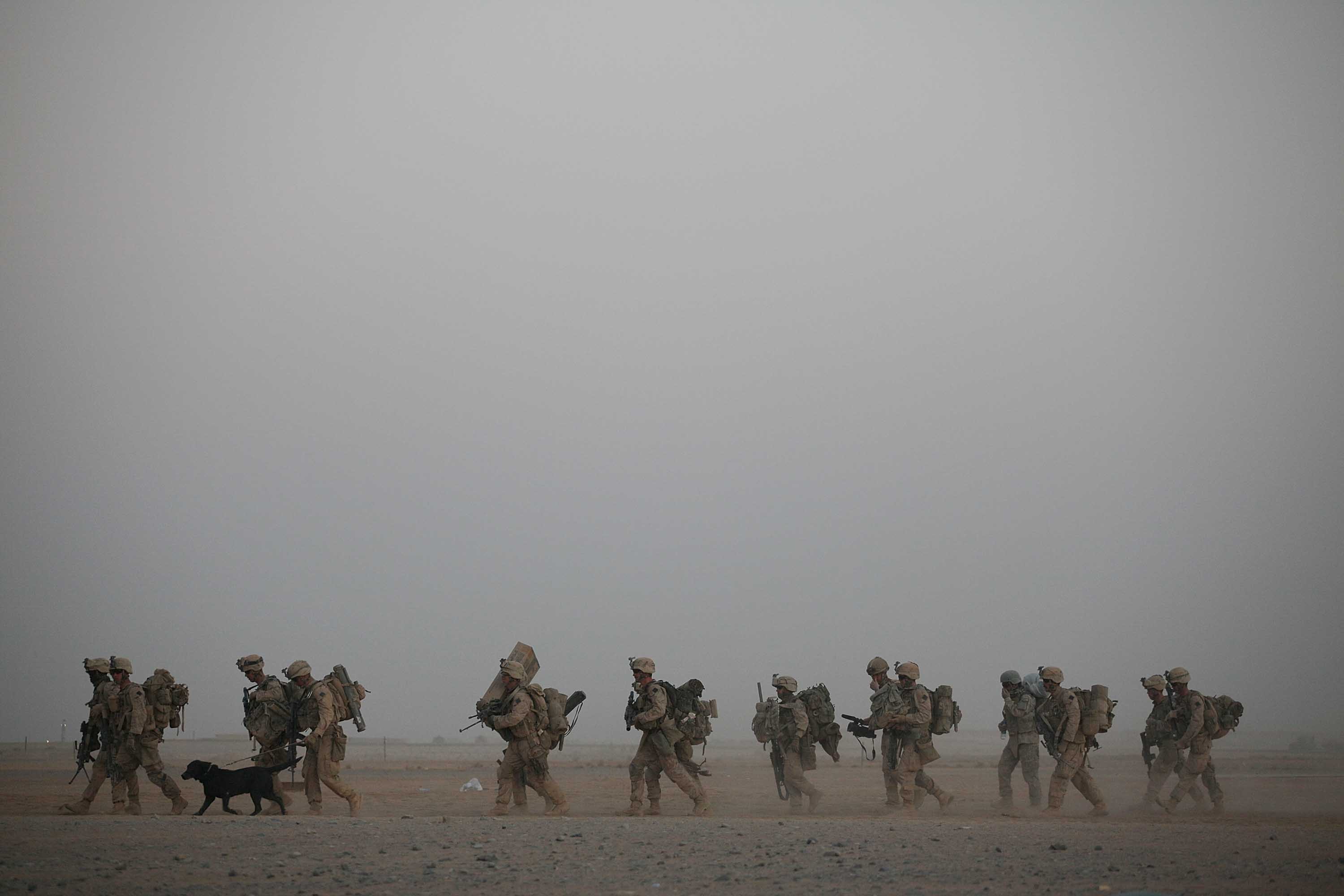
U.S. Marines walk to their helicopter on July 2, 2009, in Helmand Province, Afghanistan. (Joe Raedle/Getty Images)
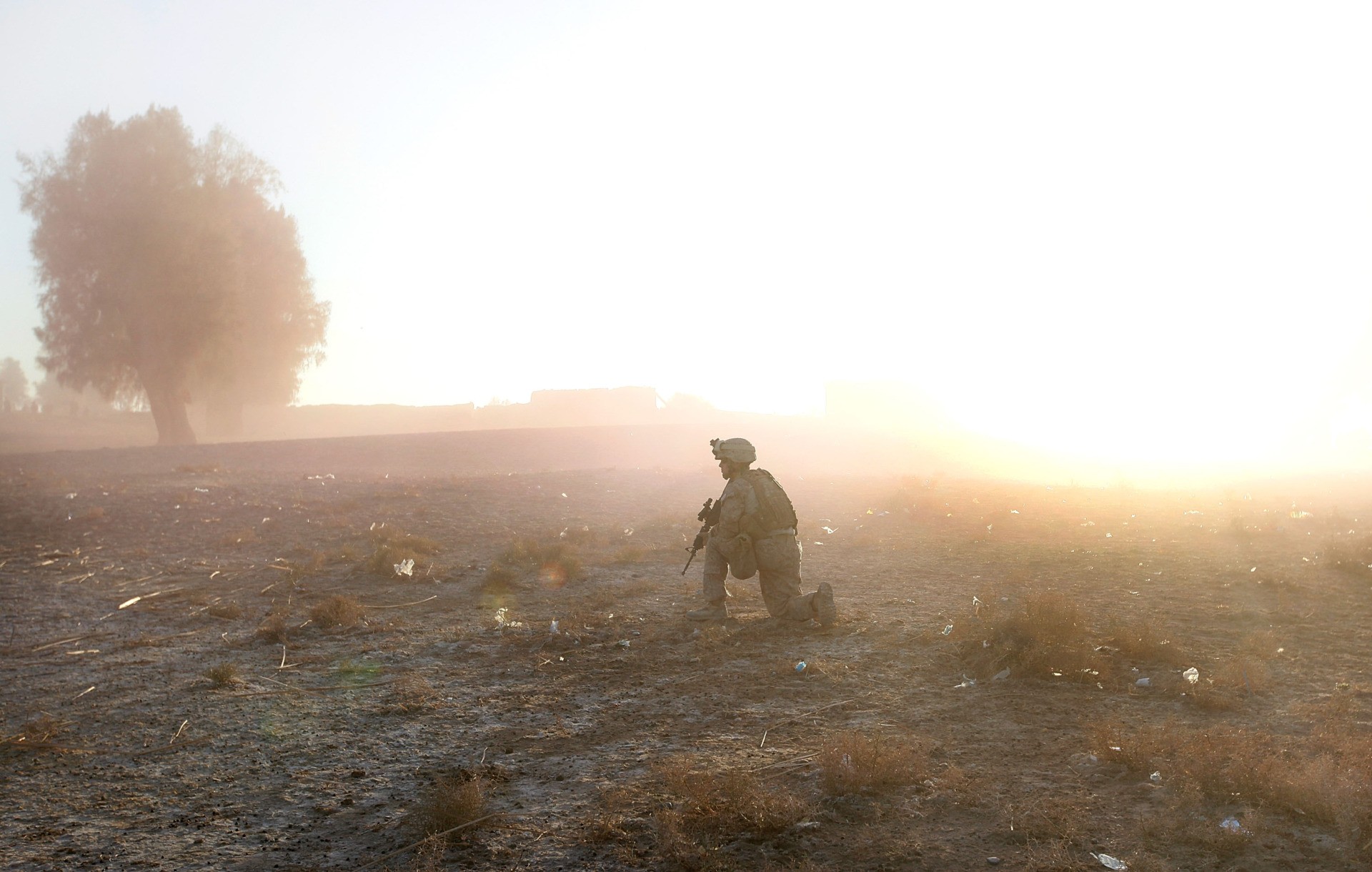
A U.S. Marine with G Company 2nd battalion 2nd Marine Division stands guard on December 17, 2009, near Delhi, Afghanistan. (Scott Olson/Getty Images)
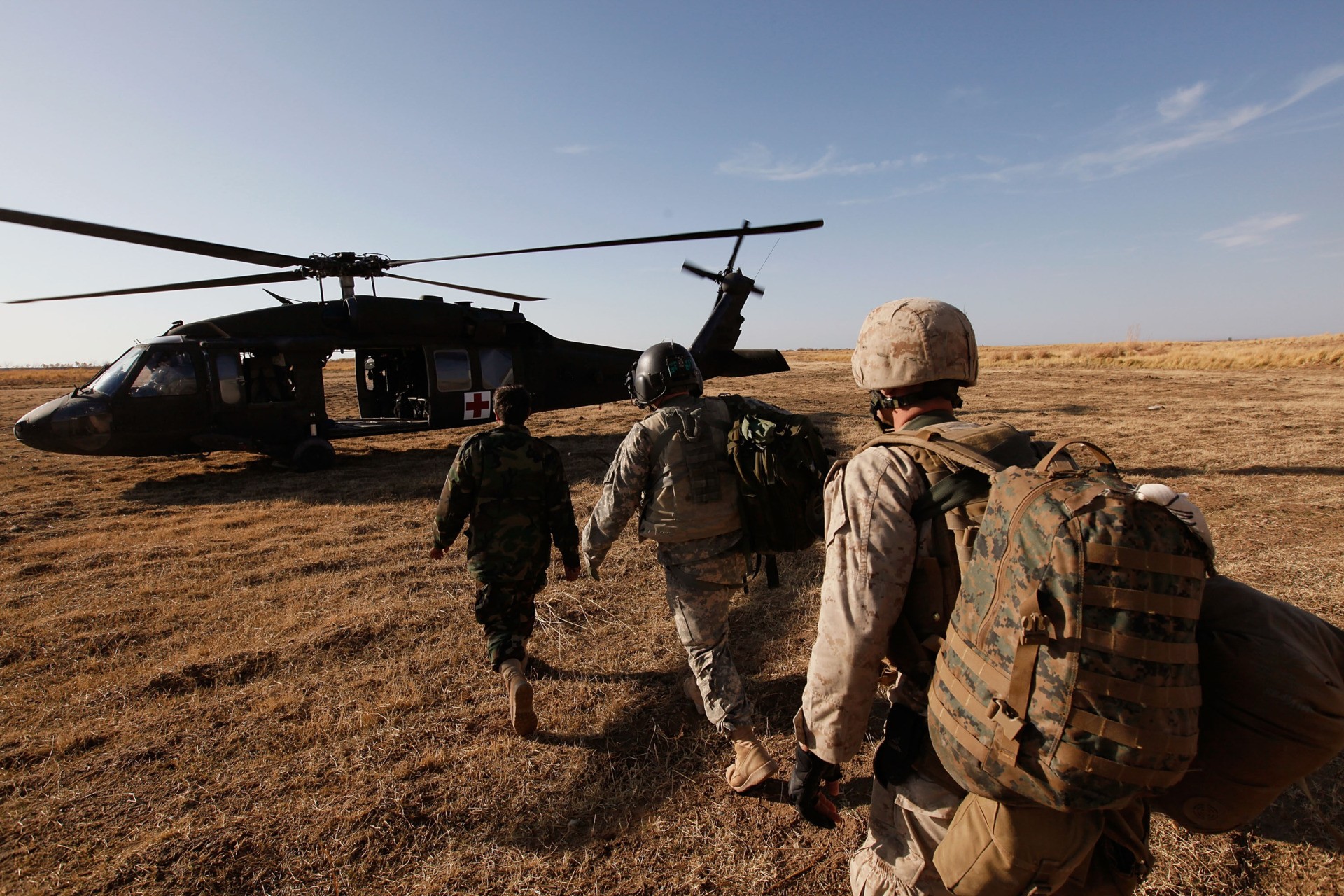
Flight medic Sgt. Aaron Burrows (C) of Amarillo, TX, with C Company Dustoff 3rd Battalion of the 82nd Combat Aviation Brigade 82nd Airborne Division leads a U.S. Marine (R) and a soldier with the Afghan National Army to a MEDEVAC helicopter on December 20, 2009, near Delhi, Afghanistan. (Scott Olson/Getty Images)
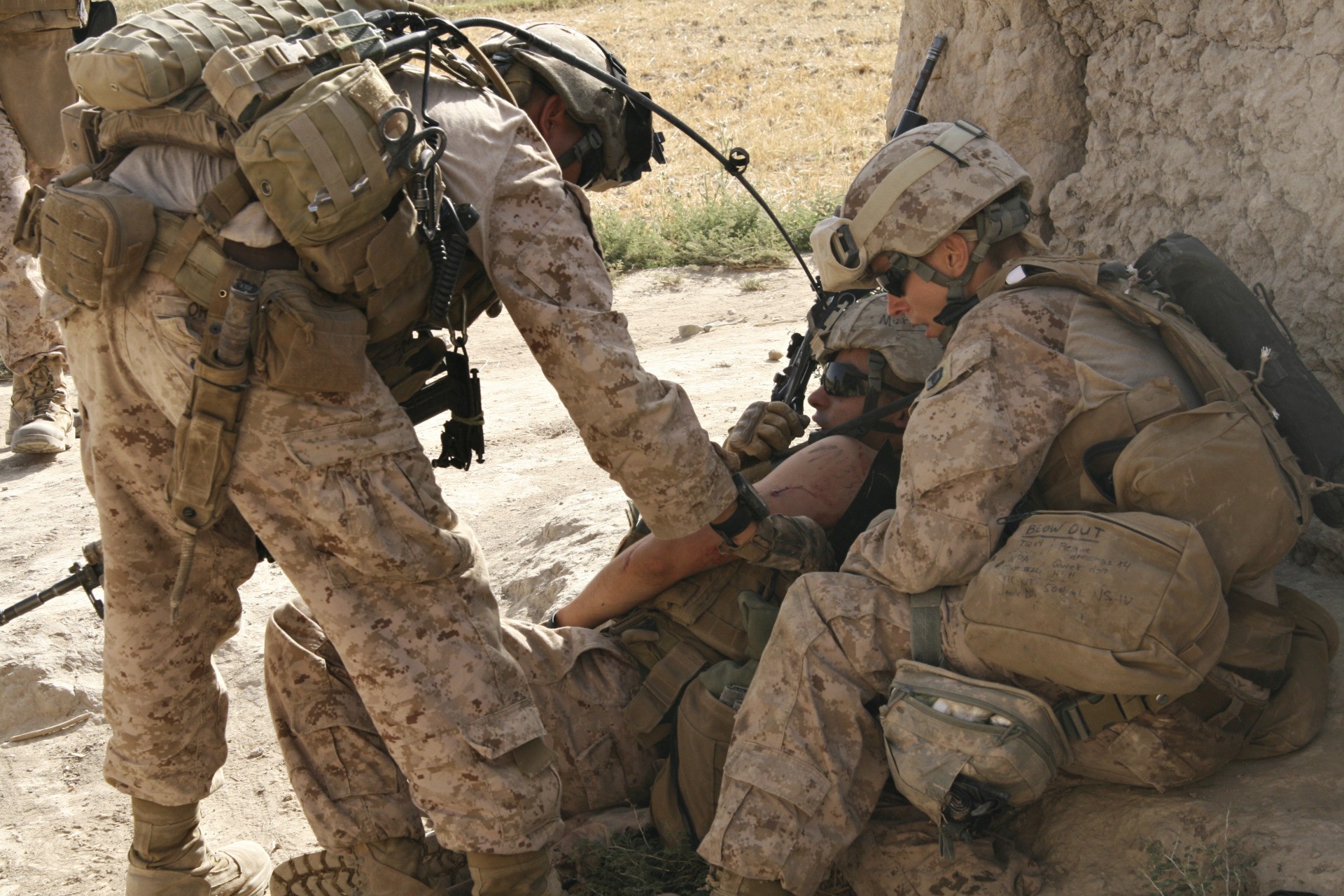
U.S. Marine Corporal Joel Perlez (C), 22, receives aid from his comrades from 1st Battalion 5th Marines after receiving a gunshot wound to the arm during a firefight with insurgents in central Sangin district, Helmand province, on June 6, 2011. (CLAIRE TRUSCOTT/AFP via Getty Images)
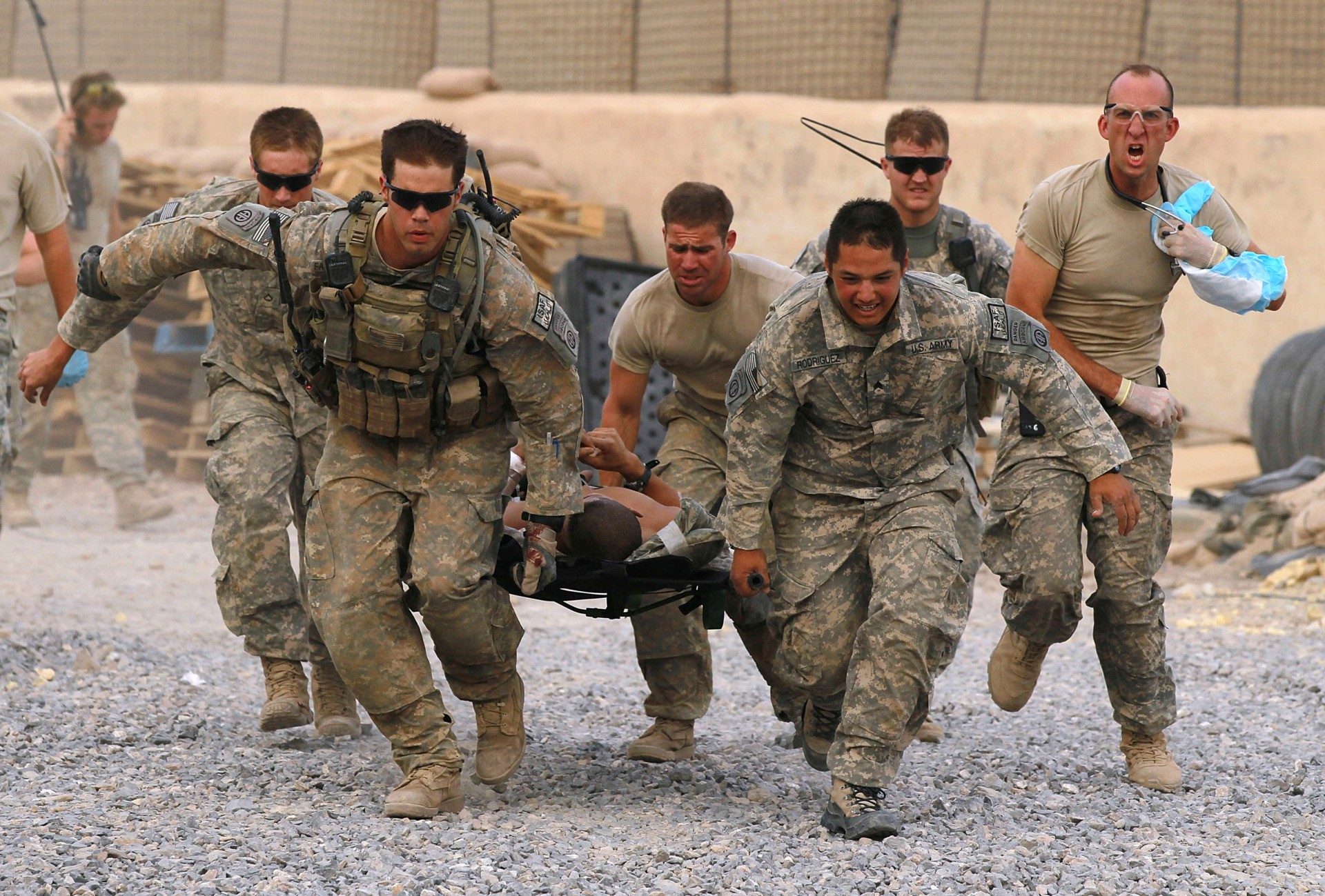
U.S. Army soldiers carry a critically wounded American soldier on a stretcher to an awaiting MEDEVAC helicopter on June 24, 2010, near Kandahar, Afghanistan. (Justin Sullivan/Getty Images)
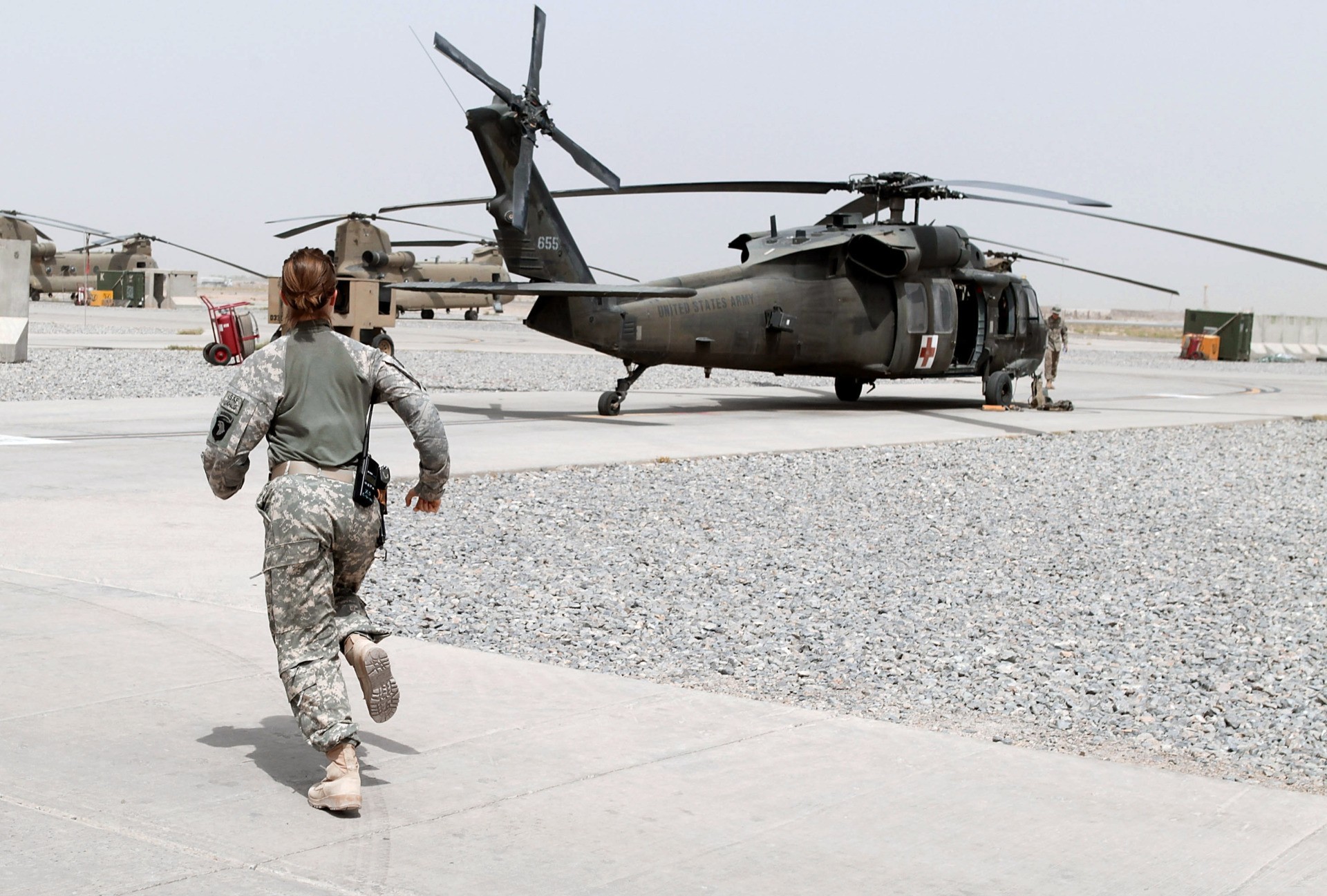
U.S. Army Captain Robin Fine from Charlie Co. Sixth Battalion, 101st Airborne Combat Aviation Brigade, Task Force Shadow, runs towards her MEDEVAC helicopter for an emergency call on June 26, 2010, in Kandahar, Afghanistan. (Justin Sullivan/Getty Images)
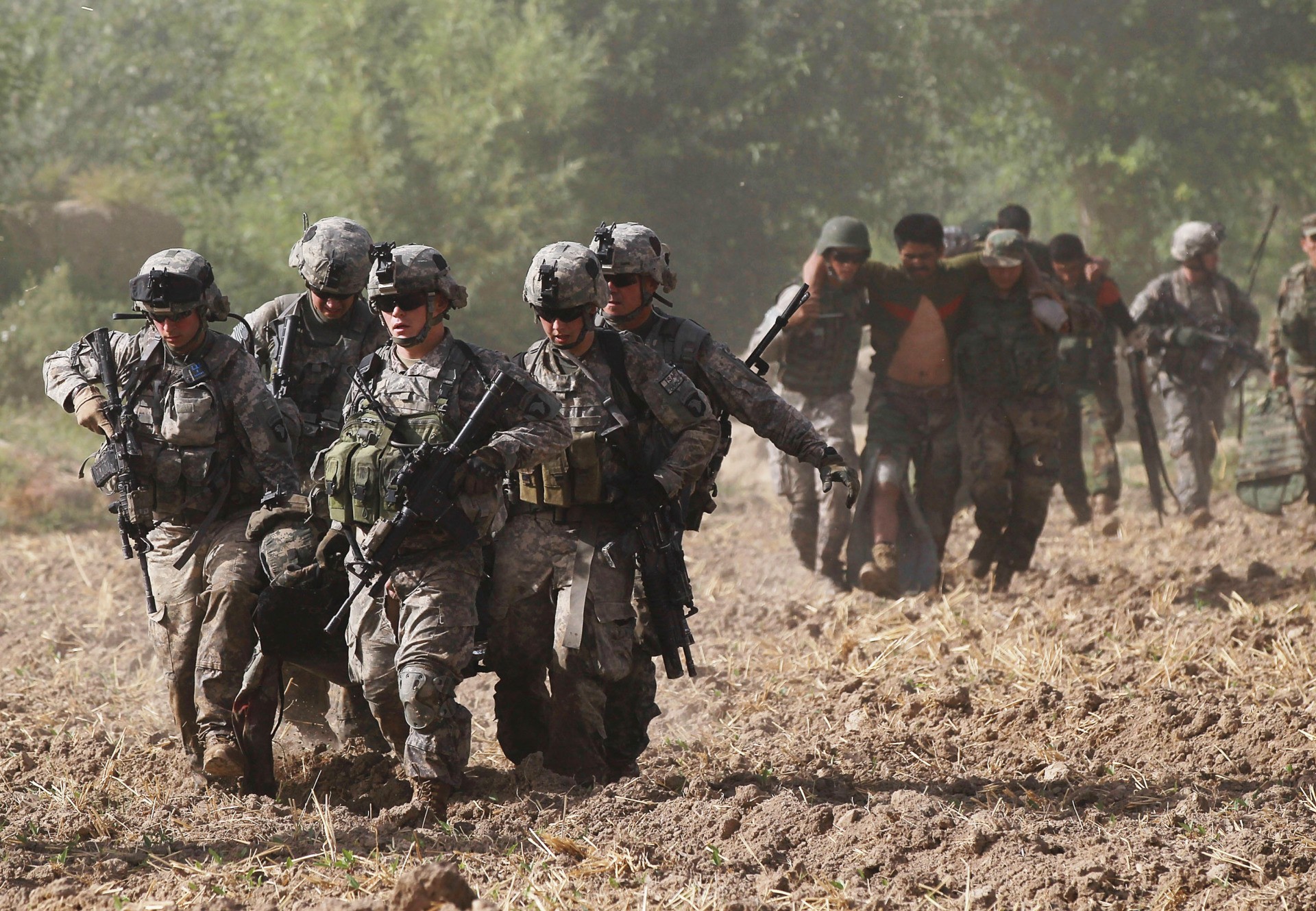
U.S. Army soldiers carry a wounded American soldier to a U.S. Army MEDEVAC helicopter on June 28, 2010 near Kandahar, Afghanistan. (Justin Sullivan/Getty Images)
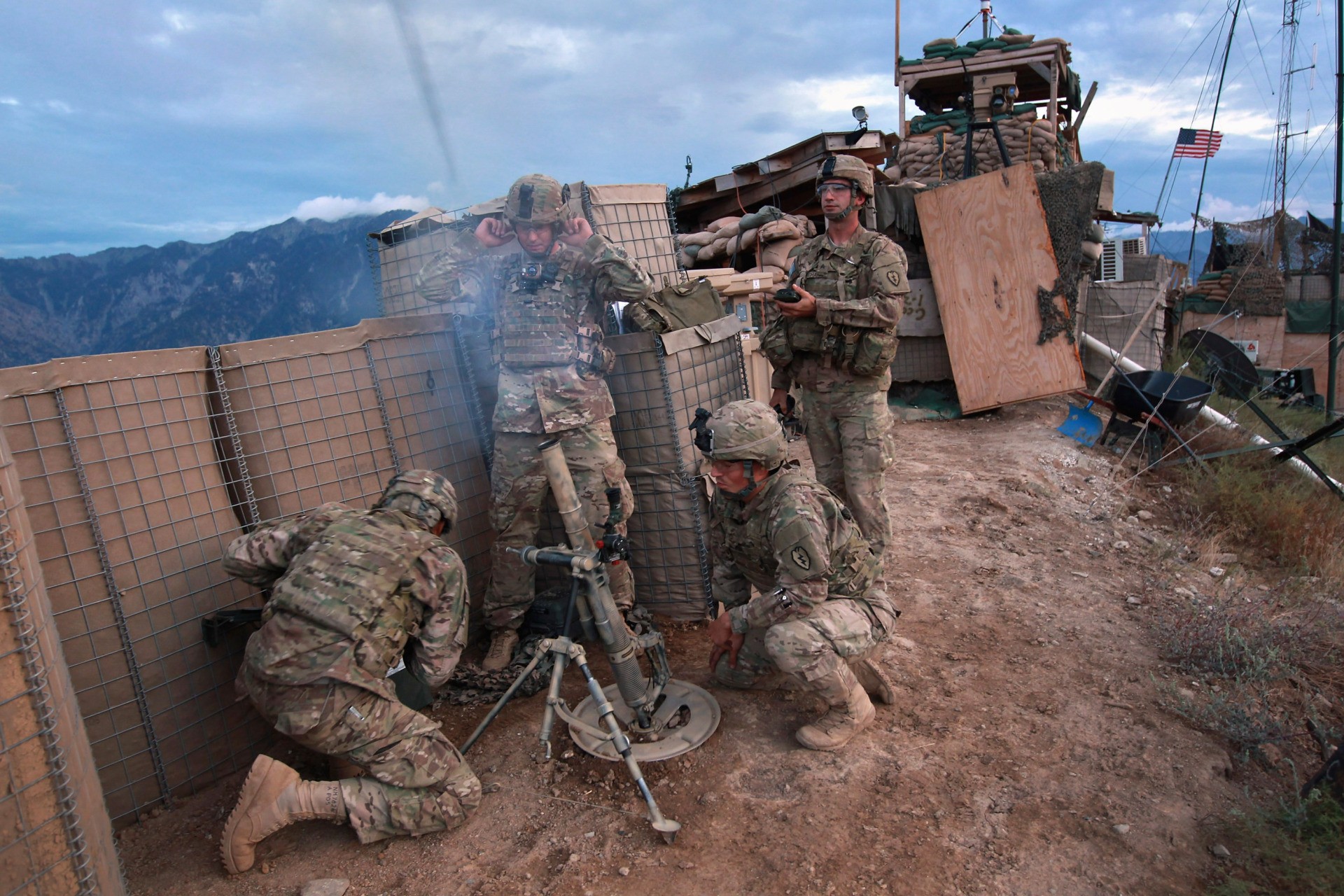
U.S. Army mortar men from the 2-27th Infantry Regiment fire mortars at a Taliban position on September 2, 2011, at Observation Post Mustang in Kunar Province, Afghanistan. (John Moore/Getty Images)
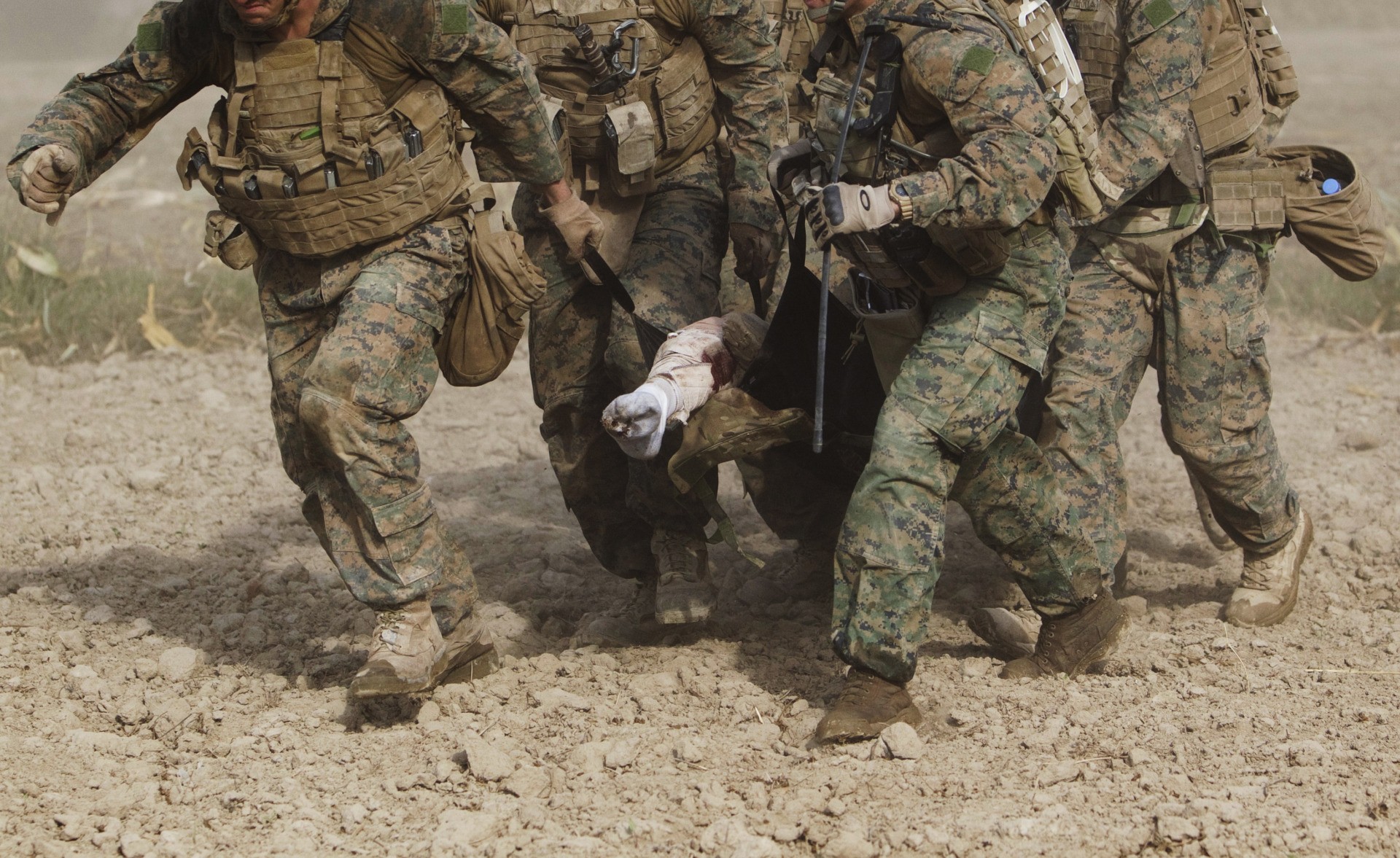
Seen through a haze of fine dust kicked up by a helicopter’s rotor blades, U.S. Marines carry a wounded comrade who was hit by an Improvised Explosive Device (IED) to a MEDEVAC helicopter in Helmand province, on November 2, 2011. The Marine lost his right leg from the knee in the blast. (BEHROUZ MEHRI/AFP via Getty Images)
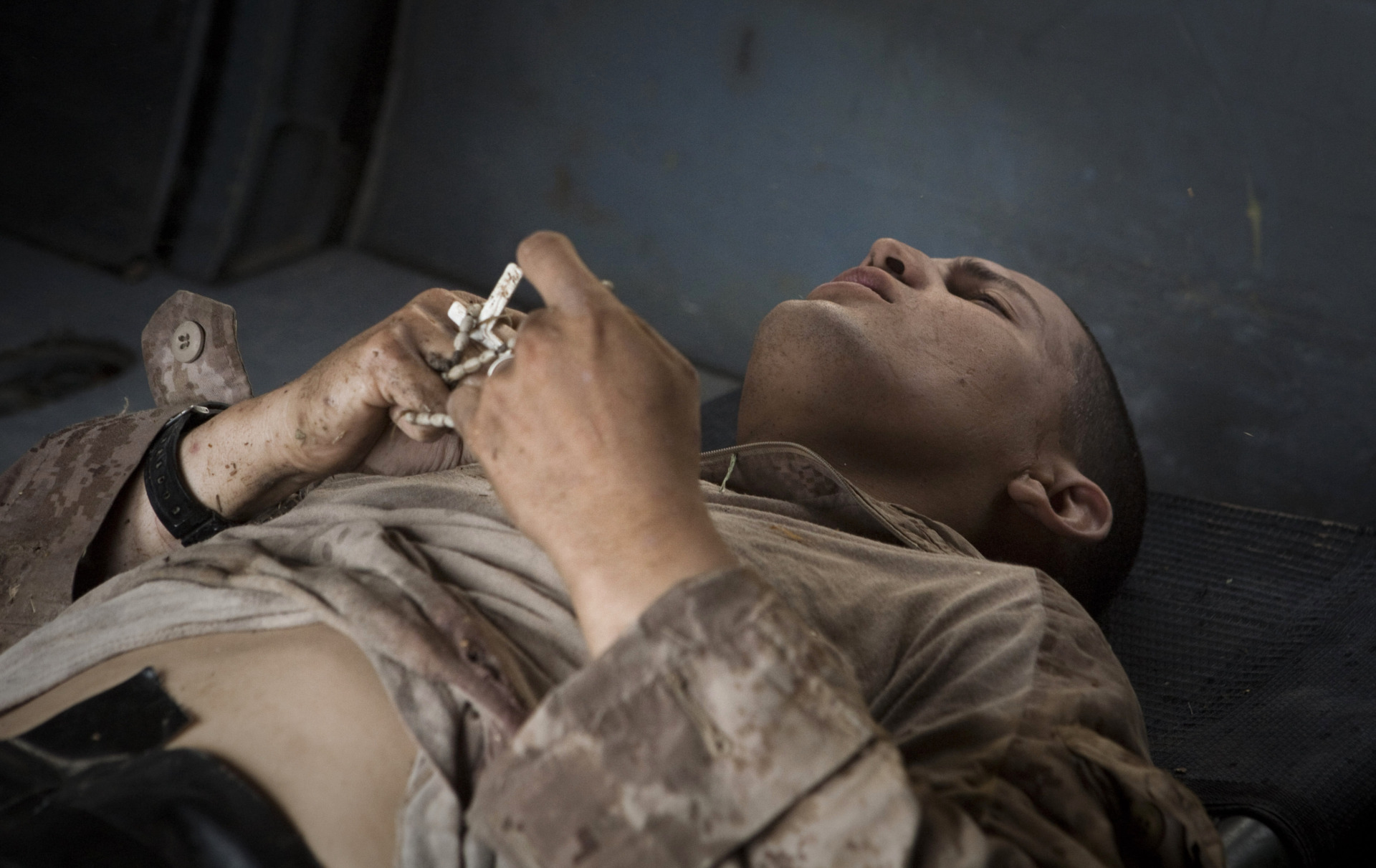
Lance Cpl. Blas Trevino of the 1st Battalion, 5th Marines, clutches his Rosary beads as he is rescued on a MEDEVAC helicopter after being shot in the stomach outside Sangin, in the Helmand Province of southern Afghanistan, on June 11, 2011. The Army’s “Dust Off” crew needed two attempts to get him out, as they were fired upon and took five rounds of bullets into the tail of their aircraft. (AP Photo/Anja Niedringhaus)
On February 29, 2020, President Donald Trump and Secretary of State Mike Pompeo negotiated an agreement with the Taliban to withdraw U.S. troops from Afghanistan by May 1, 2021, thus ending the war there.
In April 2021, President Joe Biden announced that he would ignore the agreed-upon May 1 deadline and instead withdrawal all U.S. troops from Afghanistan by August 31, 2021, in time for the 20th anniversary of the 9/11 attacks.
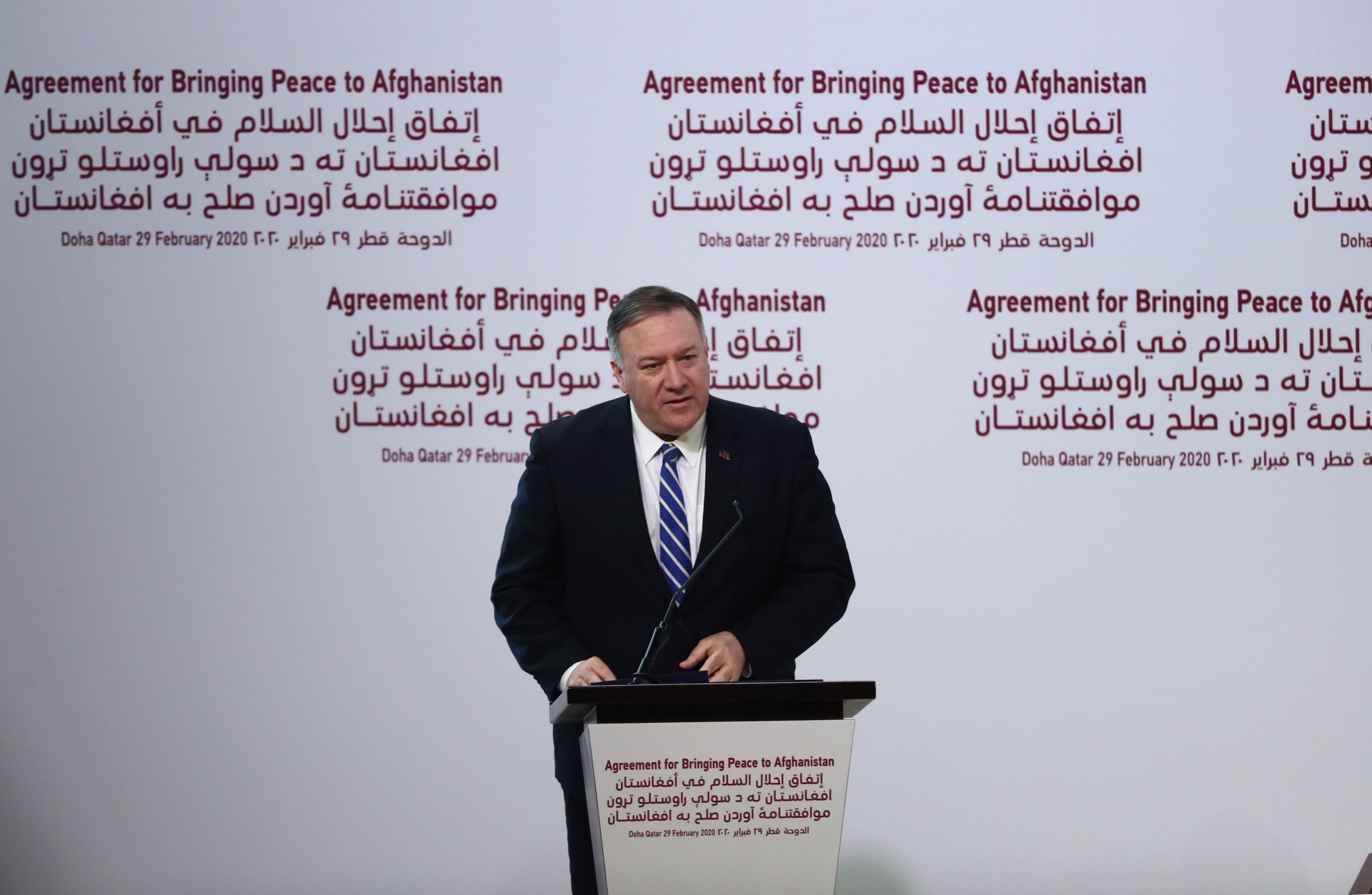
U.S. Secretary of State Mike Pompeo speaks at a signing ceremony of the U.S.-Taliban agreement in the Qatari capital Doha on February 29, 2020. The landmark deal with the Taliban established a timetable for a full troop withdrawal to end the war in Afghanistan. (KARIM JAAFAR/AFP via Getty Images)
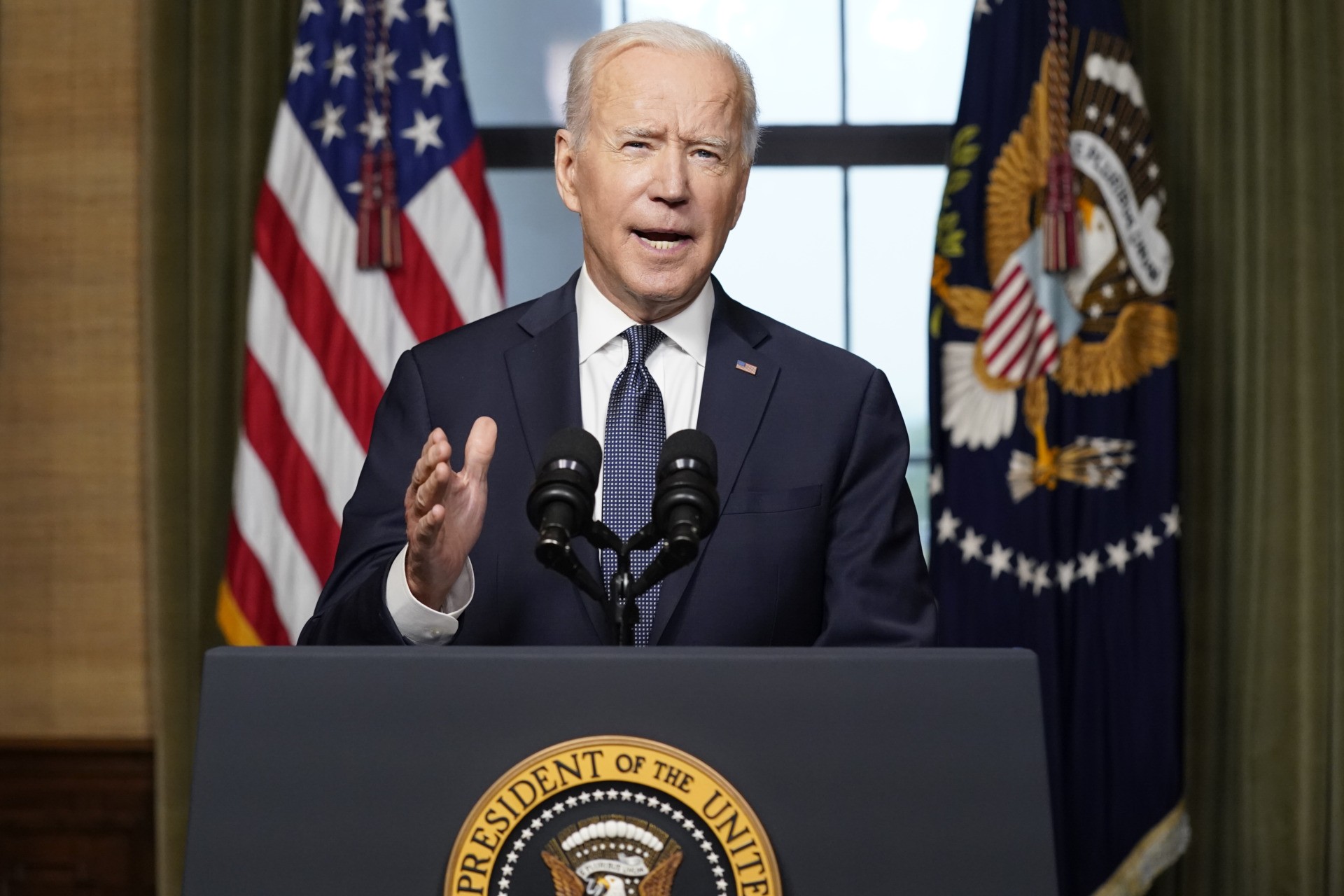
U.S. President Joe Biden speaks from the Treaty Room in the White House on April 14, 2021, announcing his intention to extend the Afghanistan withdrawal deadline established by President Trump and Secretary Pompeo. (Andrew Harnik-Pool/Getty Images)
On July 5, 2021, U.S. forces vacated Bagram Airfield in the middle of the night. The heavily equipped air base — located about an hour from the capital of Kabul — had been the epicenter of America’s 20-year war in Afghanistan. Within weeks, the Afghan army surrendered the base and all of its U.S. military equipment to the advancing Taliban forces.
On August 15, 2021, Taliban forces seized the capital of Kabul and solidified their control over the country. The Afghan government collapsed, and President Ashraf Ghani fled the country with a reported $165 million in cash of unclear origin.
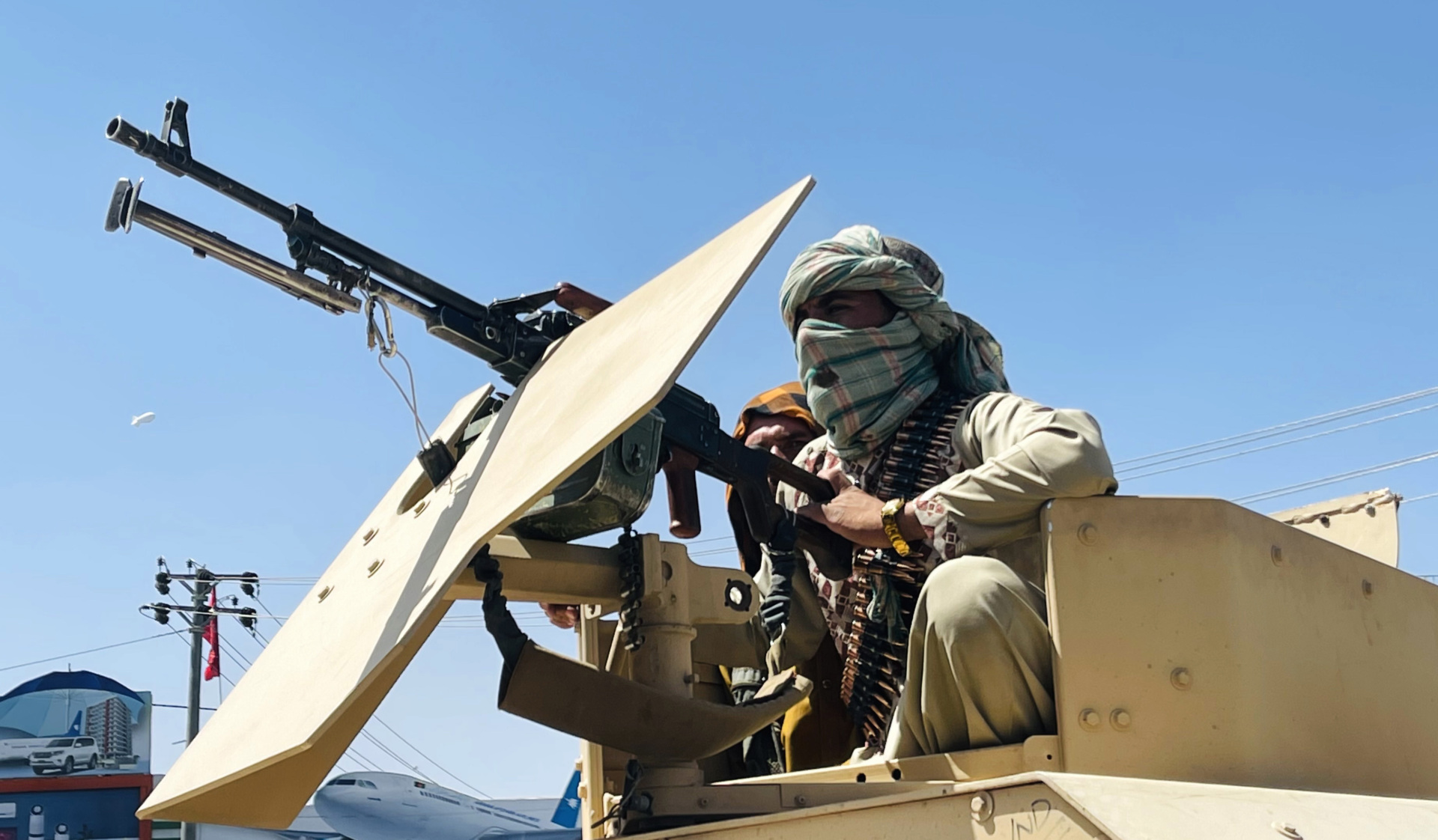
Taliban fighters are seen near Hamid Karzai International Airport in Kabul as thousands of Afghans rush to flee the city on August 16, 2021, after the Taliban seized control of the Afghan capital. (Haroon Sabawoon/Anadolu Agency via Getty Images)
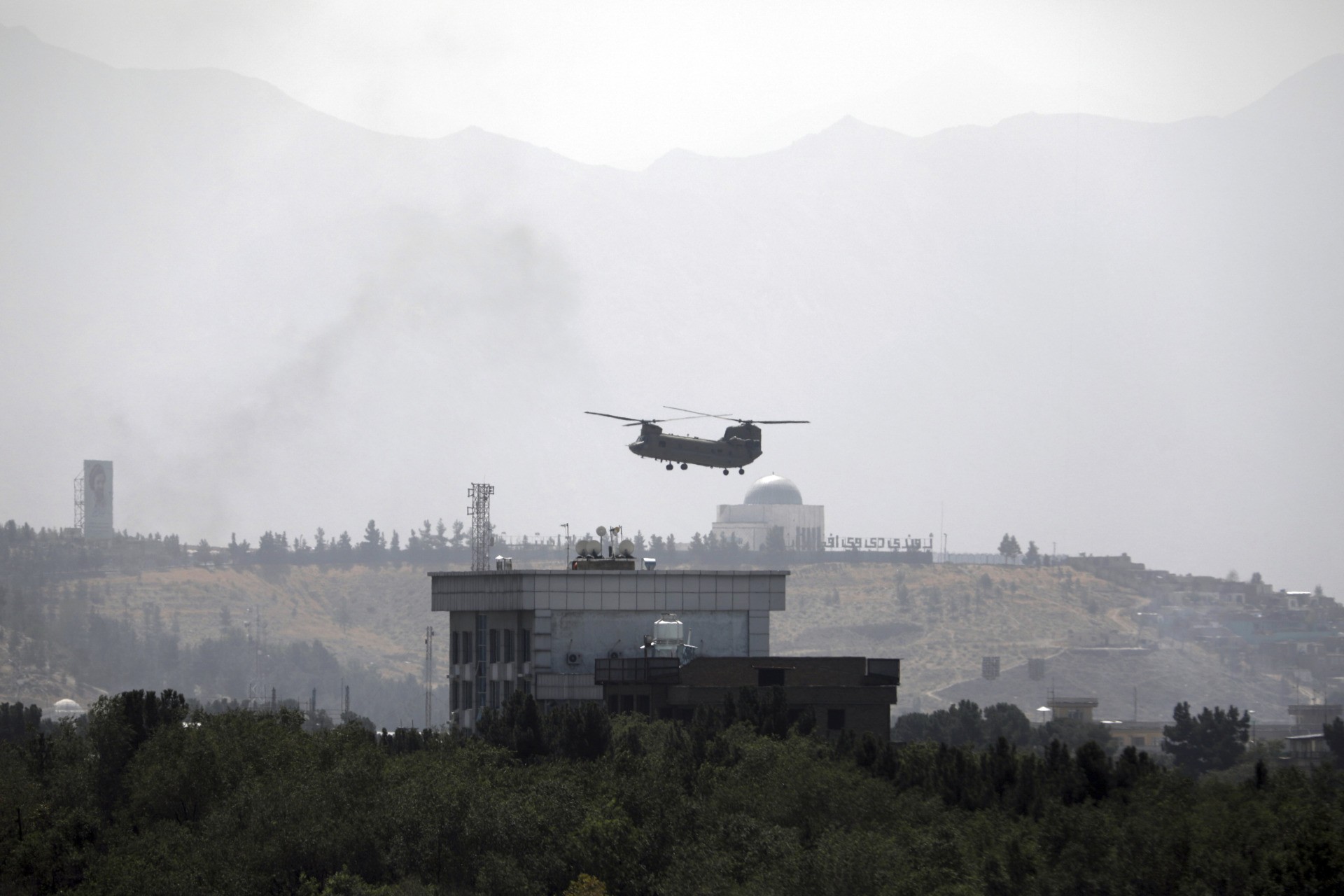
A U.S. Chinook helicopter flies over the U.S. Embassy in Kabul, Afghanistan, on Aug. 15, 2021. Helicopters are landing at the U.S. Embassy in Kabul as diplomatic vehicles leave the compound amid the Taliban advanced on the Afghan capital. (AP Photo/Rahmat Gul)
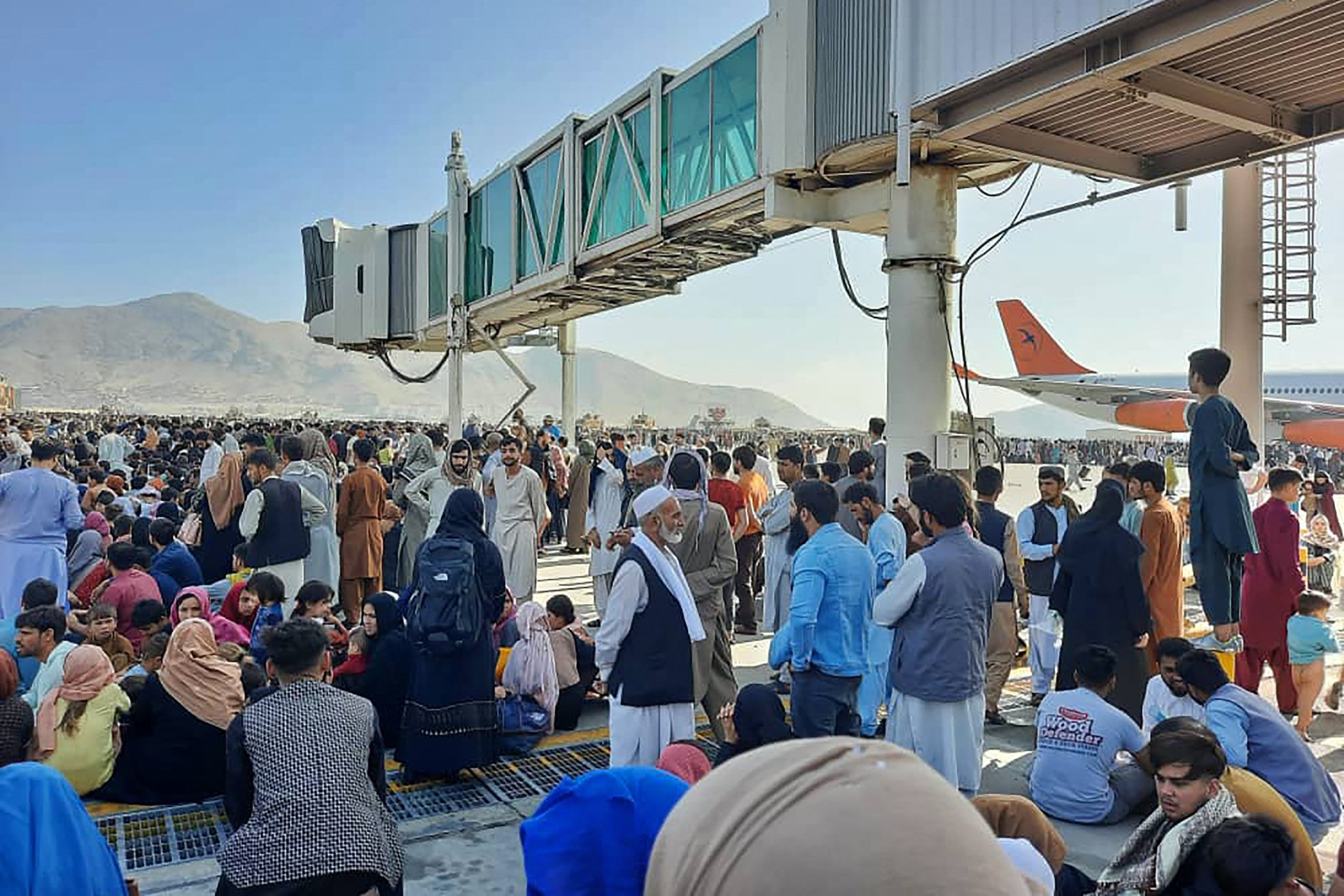
Afghans crowd at the tarmac of the Kabul airport on August 16, 2021, to flee the country after the Taliban seize control of the country. (AFP via Getty Images)
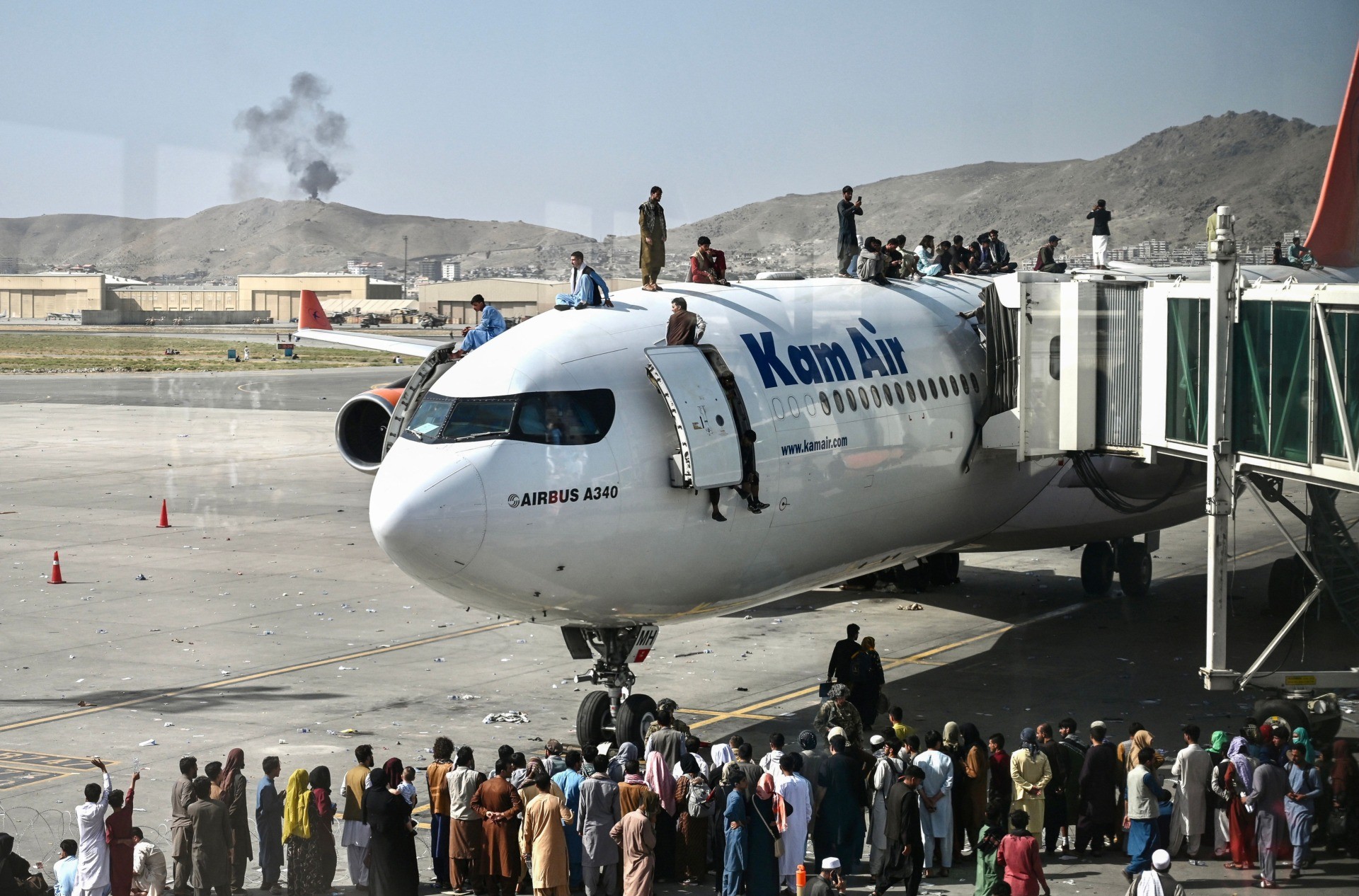
Afghan people climb atop a plane as they wait at the Kabul airport on August 16, 2021, after thousands of people mobbed the city’s airport trying to flee the country. (Wakil Kohsar/AFP via Getty Images)
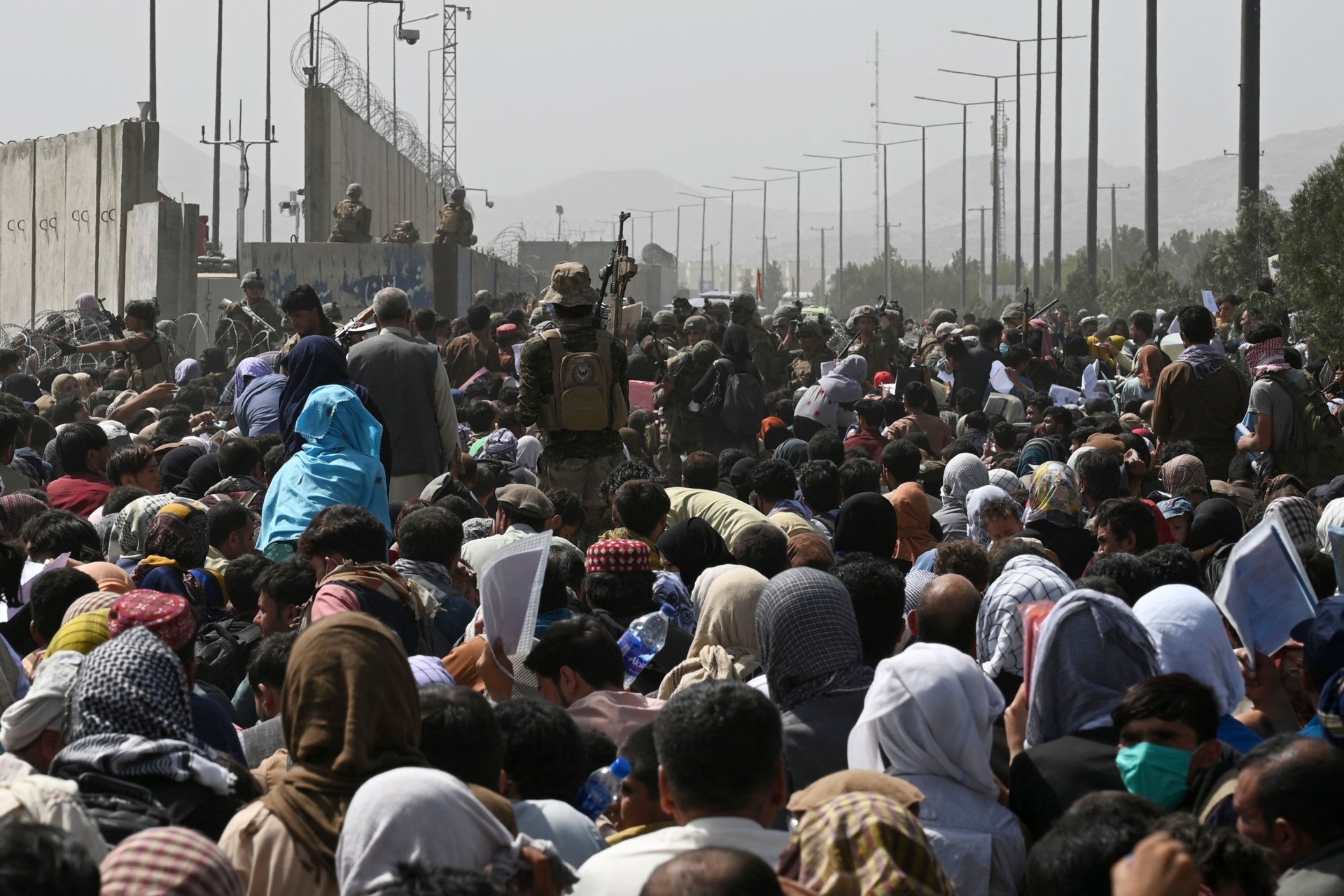
Afghans gather on a roadside near the military part of the airport in Kabul on August 20, 2021, hoping to flee from the country after the Taliban’s takeover of Afghanistan. (WAKIL KOHSAR/AFP via Getty Images).
In the chaos and panic that followed the fall of Kabul, U.S. forces scrambled to evacuate Americans and Afghan allies by President Biden’s August 31 deadline.
During the evacuation at Kabul airport on August 26, two suicide bombers killed at least 60 Afghan civilians and 13 U.S. troops.
The majority of the 13 American service members killed that day were babies when 9/11 happened.
They were the last of the 2,324 U.S. troops killed during America’s 20-year war in Afghanistan.
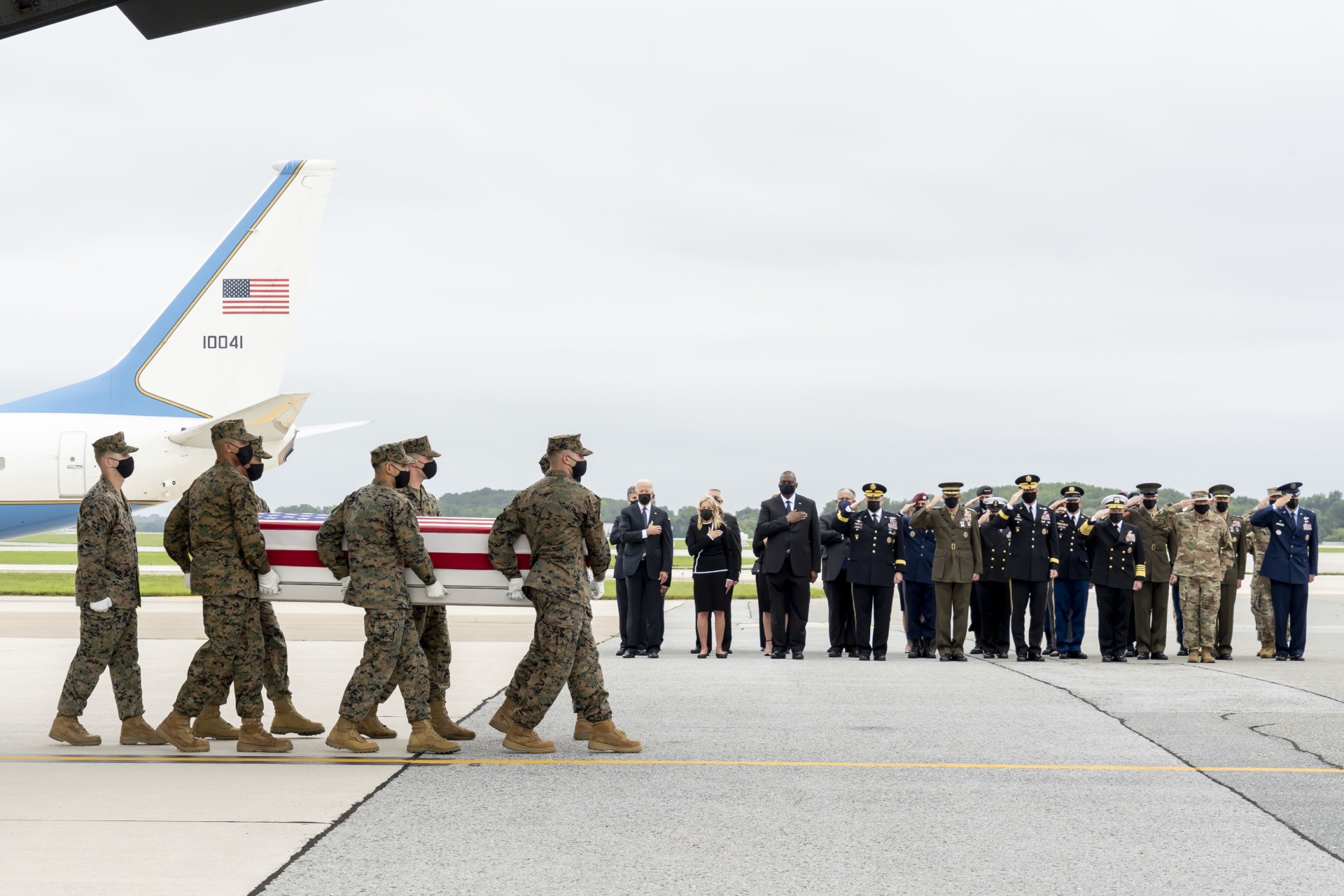
U.S. Marine Corps carry team transfers the remains of Marine Corps Sgt. Nicole L. Gee of Sacramento, California, on August 29, 2021, at Dover Air Force Base, Delaware. Gee was among the last 13 U.S. service members killed in Afghanistan. (Jason Minto/U.S. Air Force via Getty Images)
Before midnight on August 30, 2021, the U.S. military departed Afghanistan. Maj. Gen. Chris Donahue, commander of the 82nd Airborne Division, was the last American soldier to leave the country.
At least 200 Americans and an unknown number of America’s Afghan allies were left behind.
In total, the U.S. wars since 9/11 cost an estimated $6.4 trillion and as many as 929,000 lives.
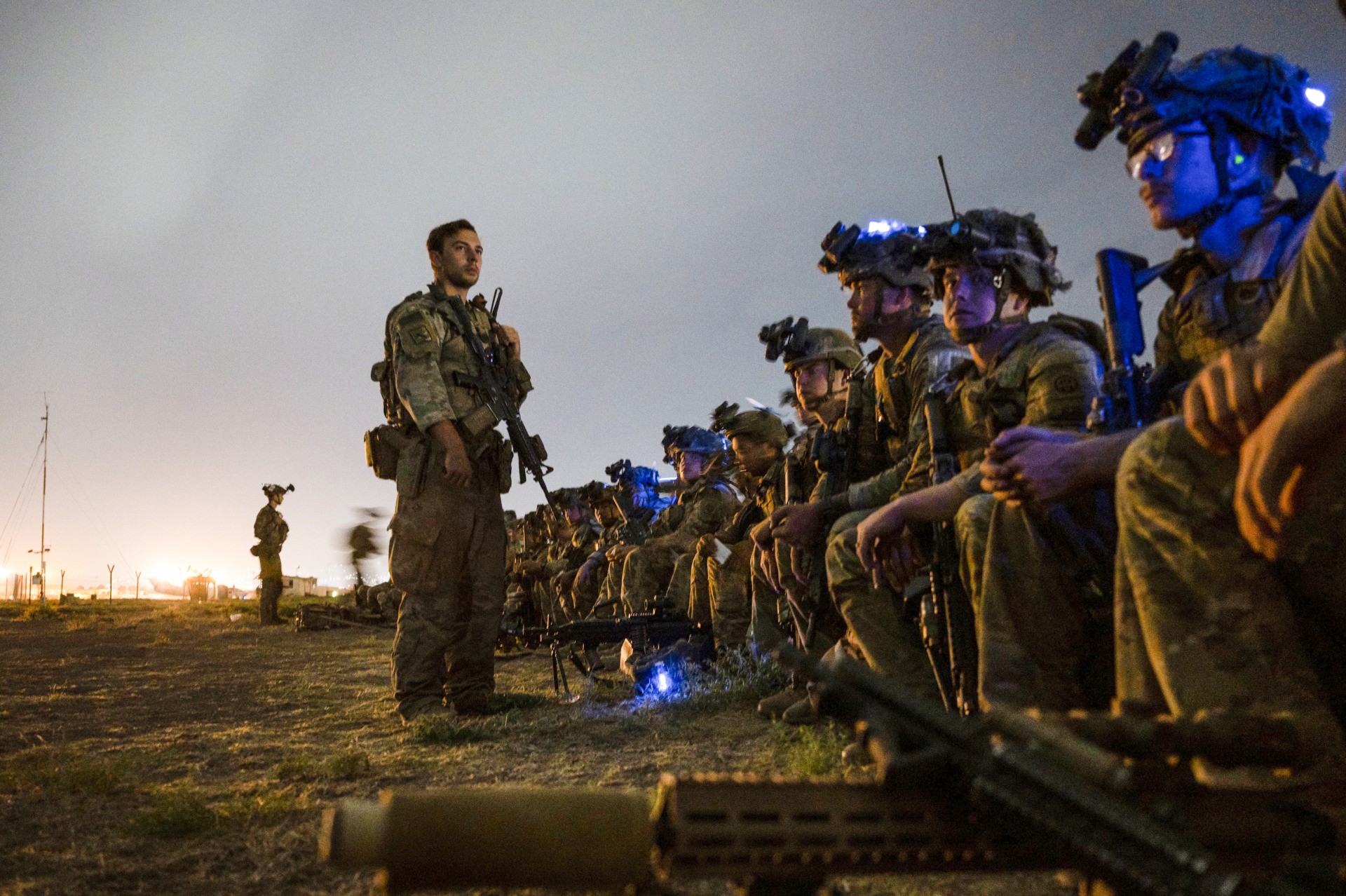
U.S. service members with 82nd Airborne Division prepare to board a C-17 aircraft out of Kabul, Afghanistan, on August 30, 2021, ending the 20-year war. (Senior Airman Taylor Crul/U.S. Air Force via AP)
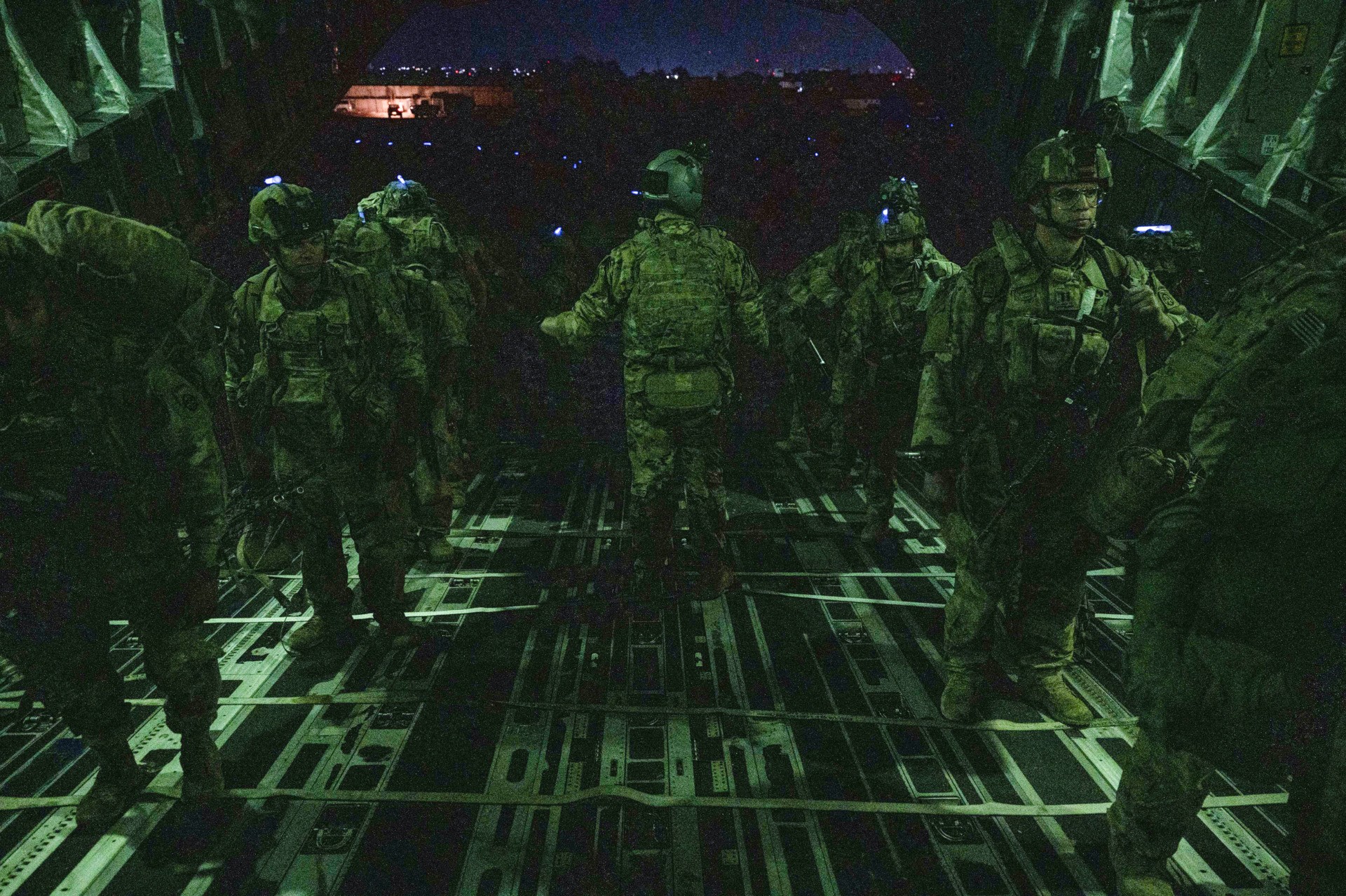
U.S. service members with the 82nd Airborne Division board a C-17 cargo plane to depart from Kabul, Afghanistan, on August 30, 2021. (Senior Airman Taylor Crul/U.S. Air Force via AP)
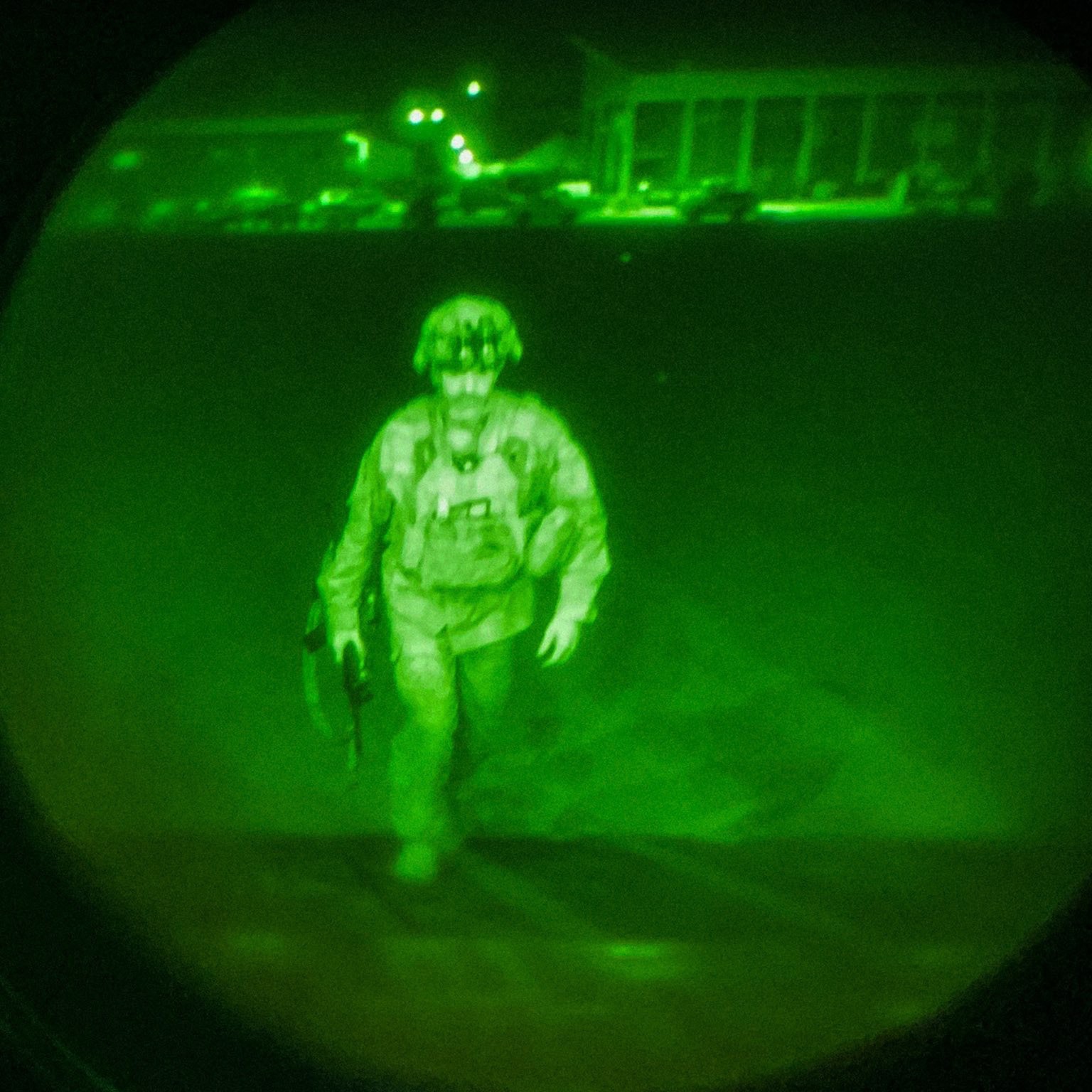
U.S. Army Maj. Gen. Chris Donahue, commander of the 82nd Airborne Division, XVIII Airborne Corps, boards a C-17 cargo plane on August 30, 2021, in Kabul, Afghanistan, as the last American service member to depart the country. (U.S. Central Command via Getty Images)
In time, the United Stated did capture the men who were directly responsible for the 9/11 attacks.
Nearly two years after the attacks, the 9/11 mastermind Khalid Sheik Mohammed — who planned and organized the attacks — was captured in Pakistan on March 1, 2003.
He is imprisoned at the Guantanamo Bay detention camp and is still awaiting trial at Camp Justice, Guantanamo Bay.
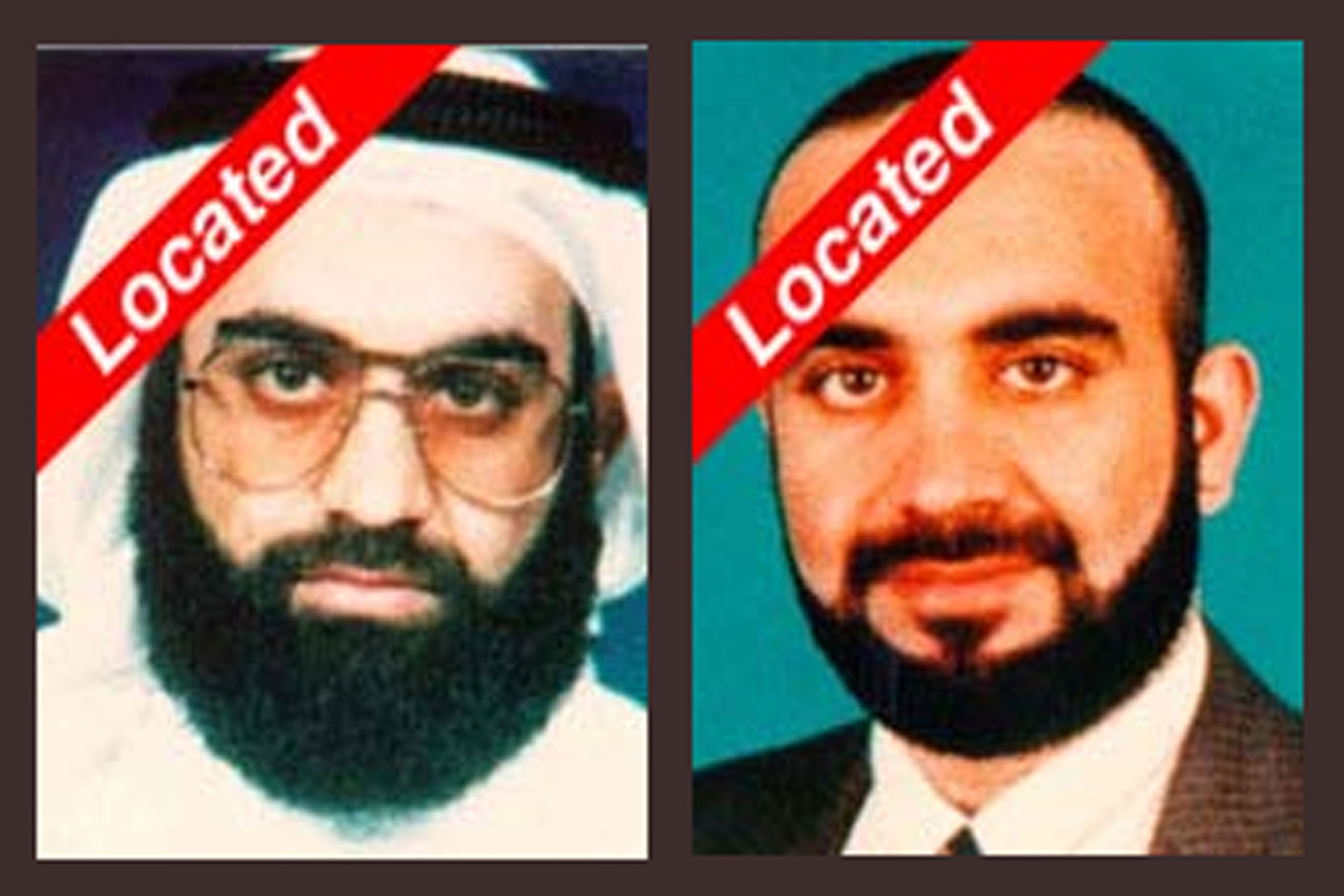
The Federal Bureau of Investigation (FBI) handout photos of suspected al Qaeda commander Khalid Sheikh Mohammed were marked with the word “Located” after his arrest on March 1, 2003, in Pakistan. (FBI/Getty Images)
Ten years after the attacks, al Qaeda leader Osama bin Laden was brought to justice.
On May 2, 2011, President Obama announced to the nation that bin Laden was killed by a team of U.S. Navy SEALs during a raid on his compound in Abbottabad, Pakistan, where he had been hiding since his escape from Tora Bora.
[embedded content]
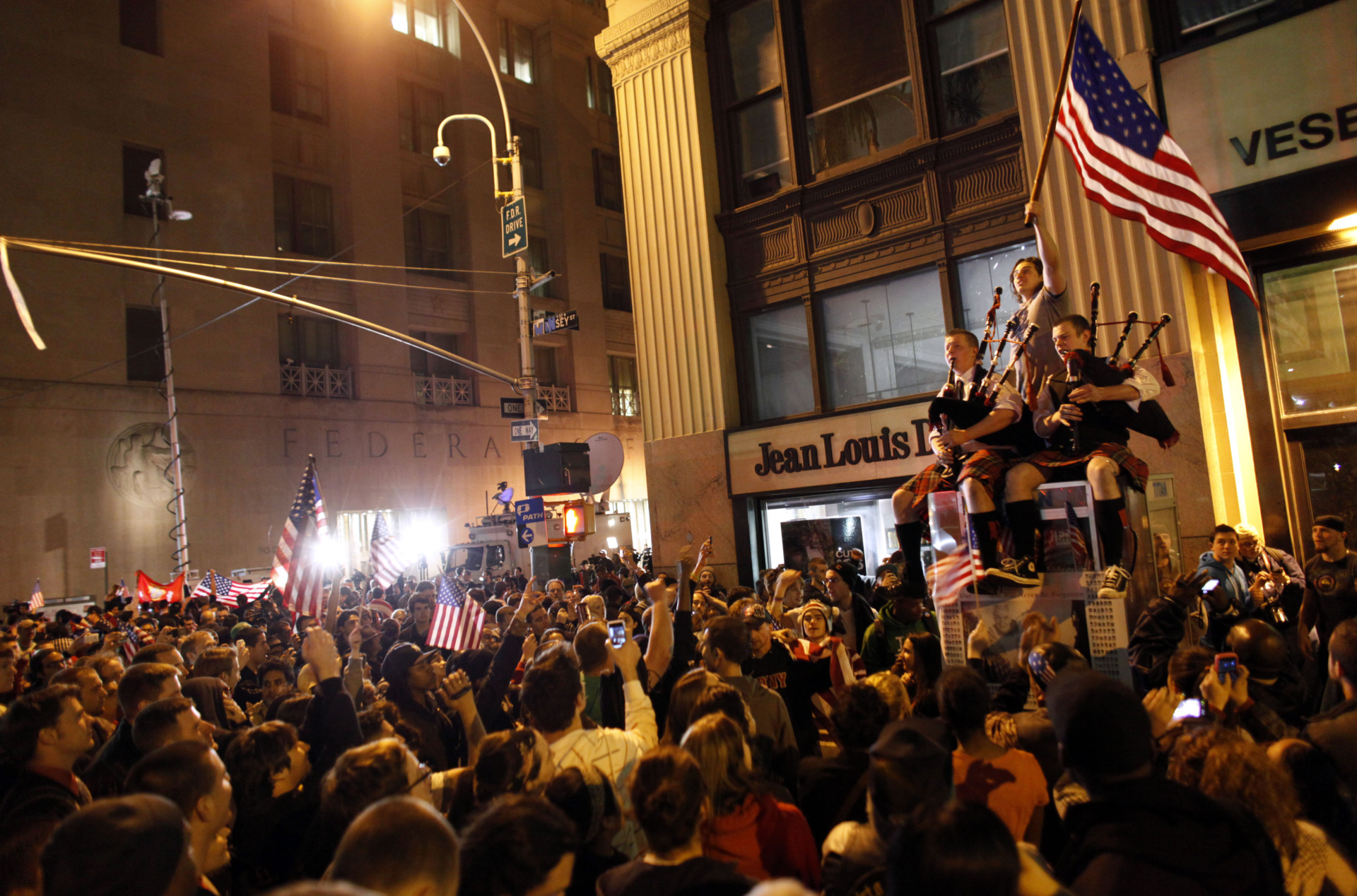
A large, jubilant crowd at the corner of Church and Vesey Streets, adjacent to Ground Zero, reacts to the news of Osama bin Laden’s death on May 2, 2011, in New York. (AP Photo/Jason DeCrow)
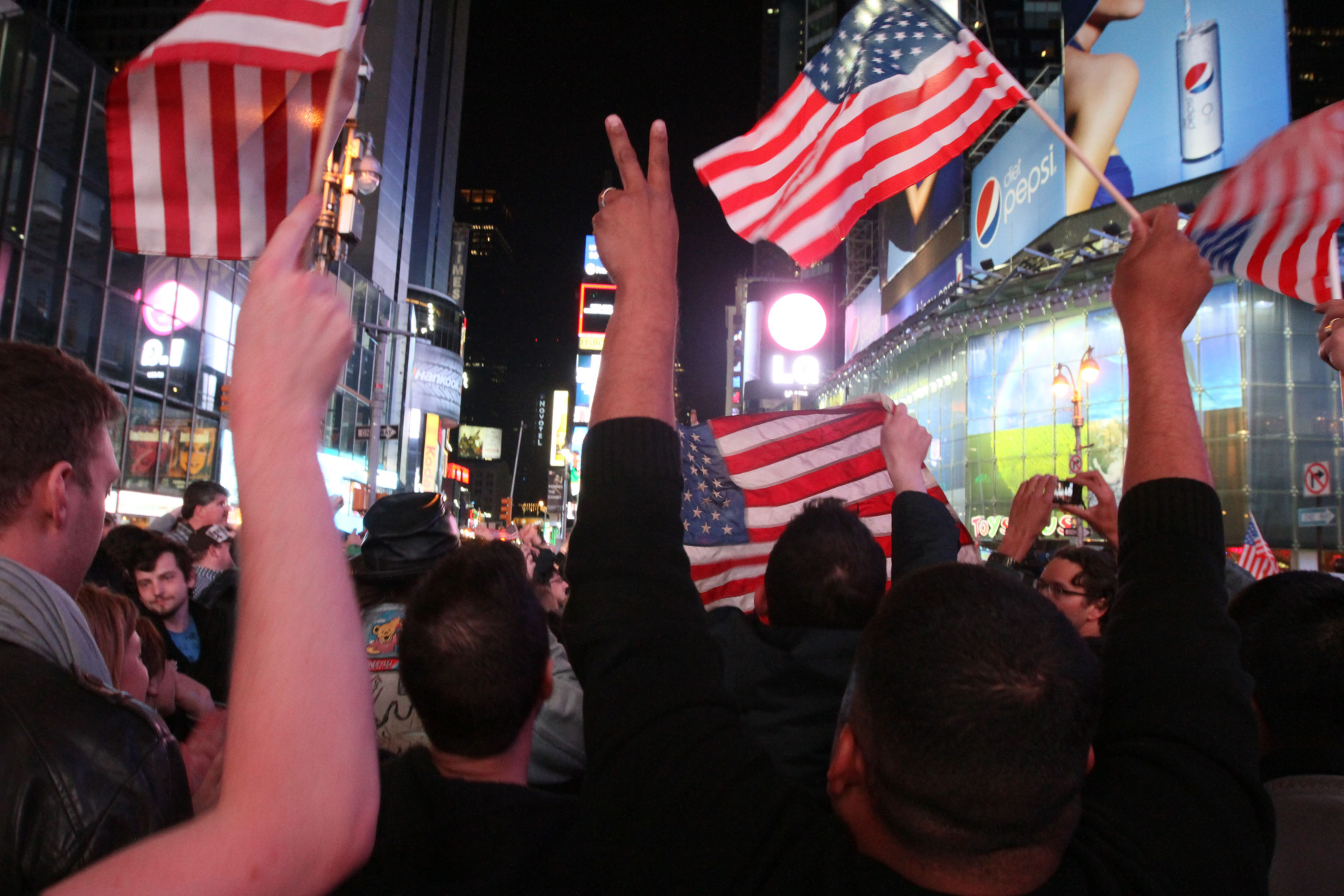
A crowd in New York’s Times Square reacts to the news of Osama bin Laden’s death. (AP Photo/Tina Fineberg)
Over the years, the country rebuilt, the memorials arose, and each year we remembered.
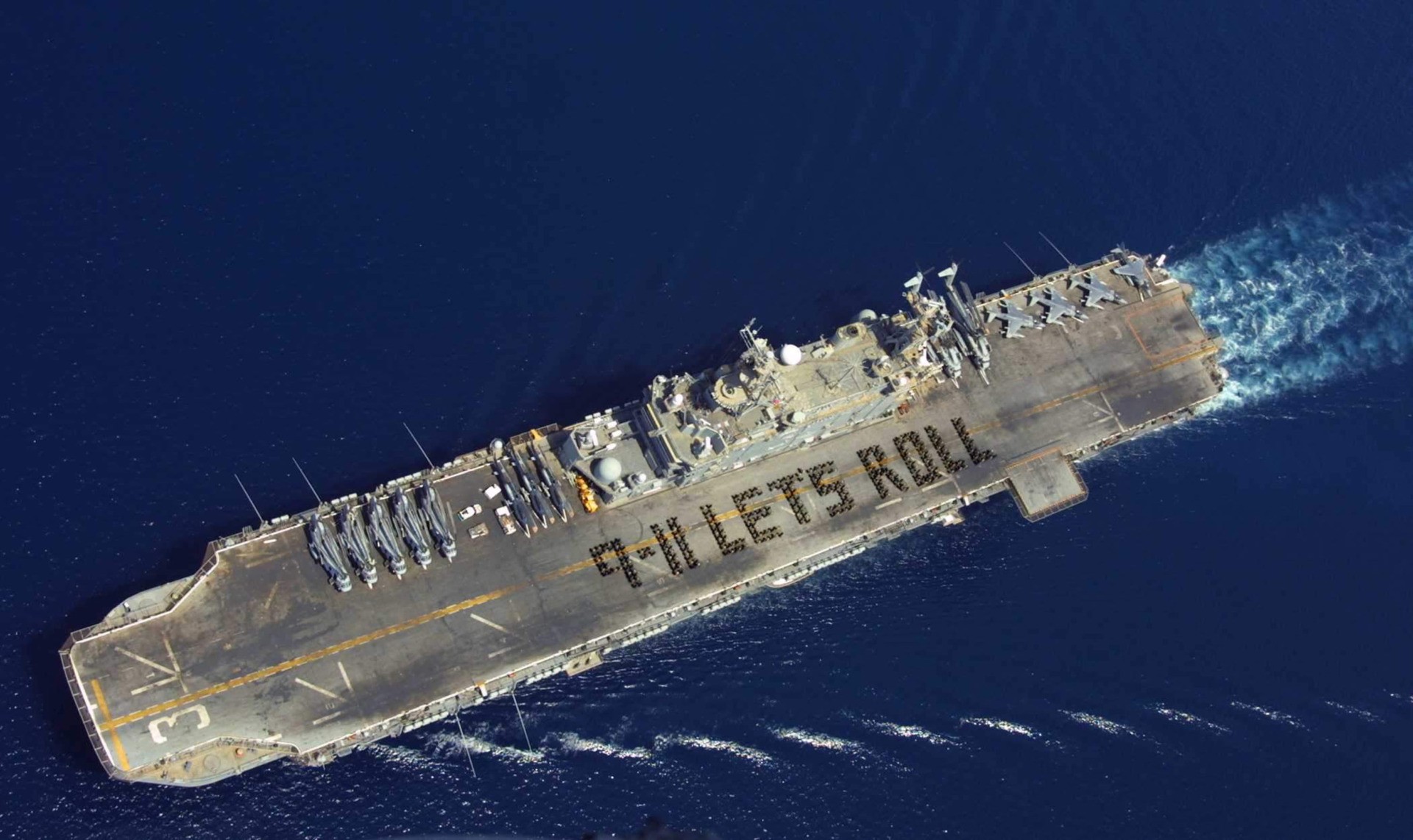
More than 500 Marines and Sailors with the 11th Marine Expeditionary Unit and USS Belleau Wood commemorate the one-year anniversary of the September 11 attacks on September 6, 2002, by spelling out the now famous quote from Todd Beamer on the flight deck of the ship. Beamer was one of the passengers on United Flight 93, which crashed in a western Pennsylvania field after he and several other passengers attempted to regain control of the plane from terrorist hijackers. (Mate Steven L. Cooke/U.S. Navy/Getty Images)
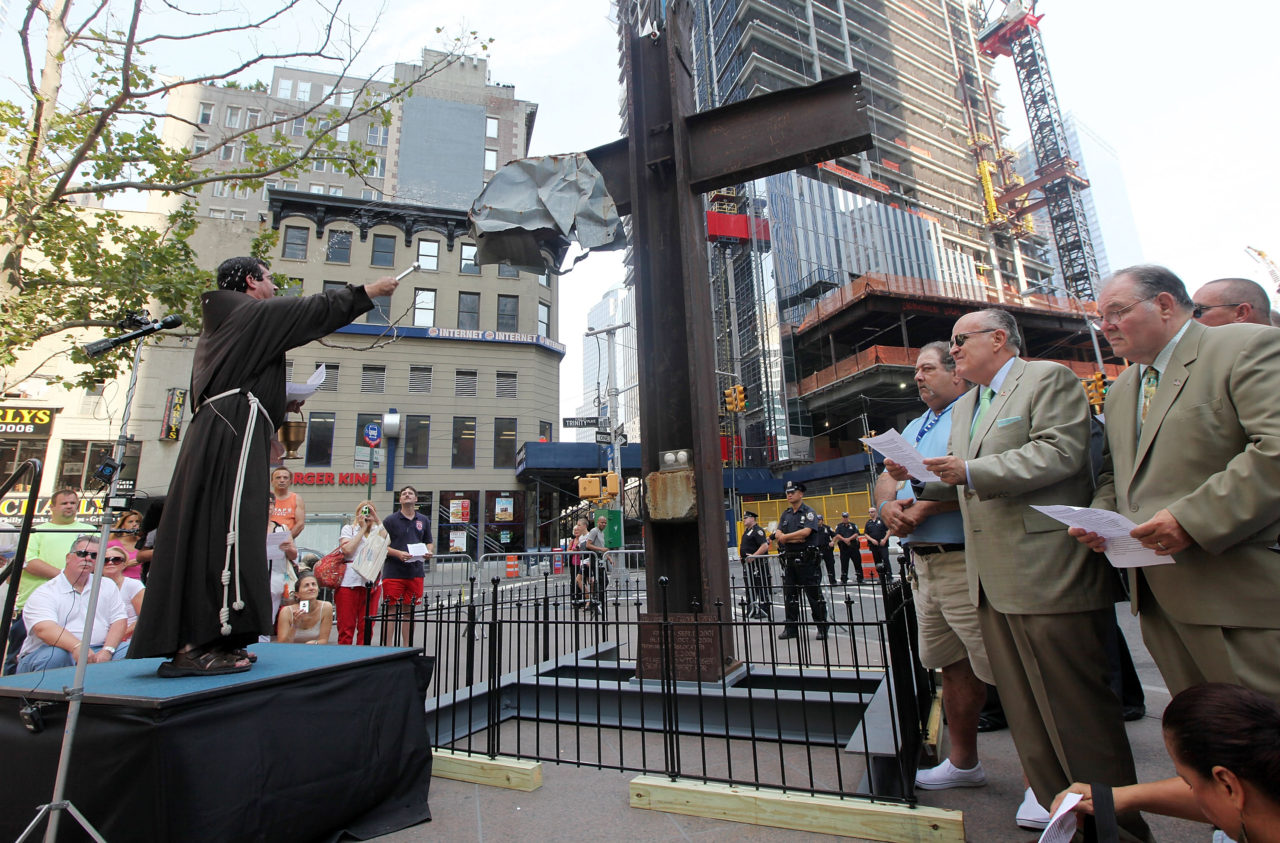
Father Brian Jordan blesses the Ground Zero Cross at ceremony with former New York City Mayor Rudolph Giuliani in attendance, on July 23, 2011, before the Cross was moved to its permanent home at the 9/11 Memorial Museum in New York City. (Mario Tama/Getty Images)
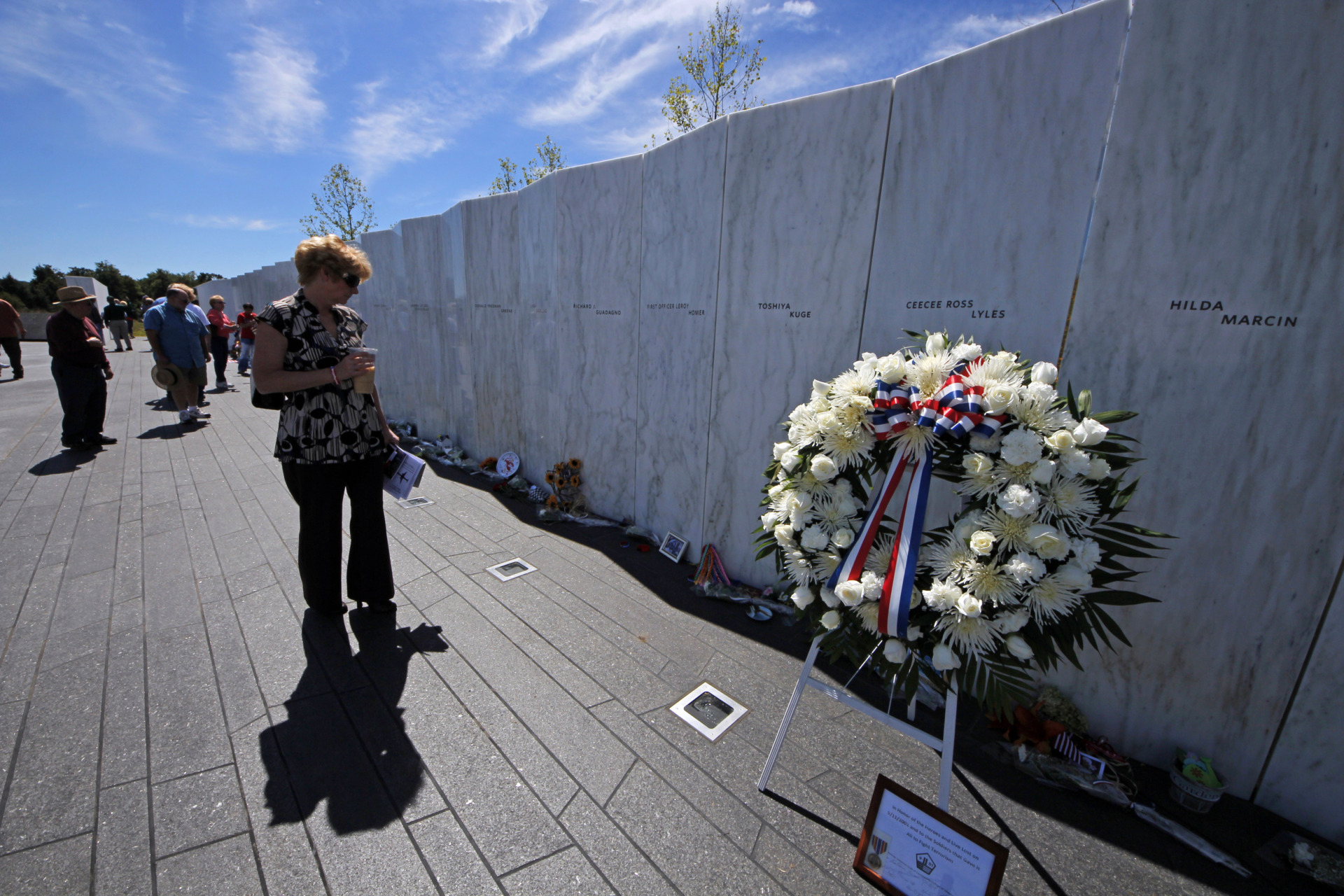
Visitors to the Flight 93 National Memorial pause at The Wall of Names, containing the names of the 40 passengers and crew who died in the crash of United Flight 93 following a memorial service in Shanksville, PA, on September 11, 2012. (AP Photo/Gene J. Puskar)
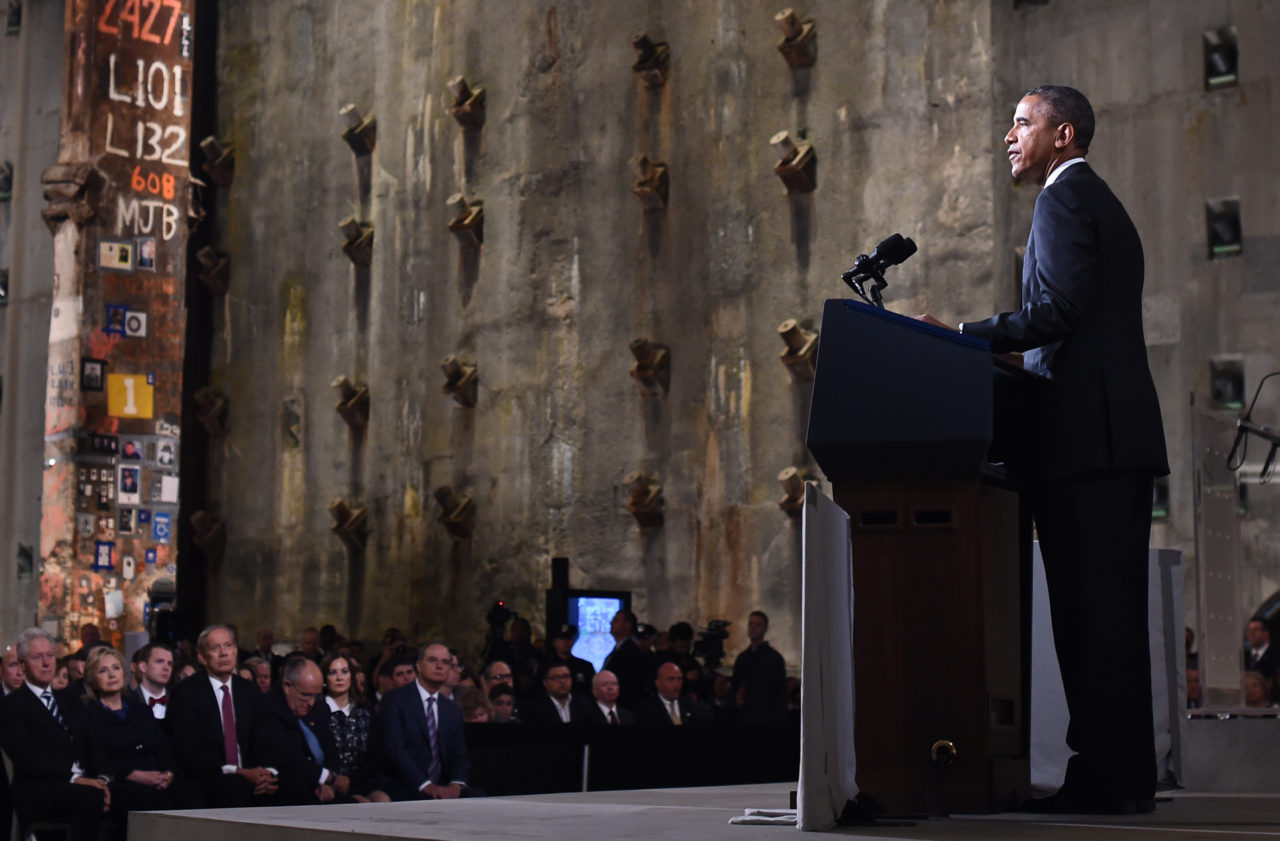
President Barack Obama delivered an address at the dedication ceremony at the National September 11 Memorial Museum in New York on May 15, 2014. (JEWEL SAMAD/AFP/Getty Images)
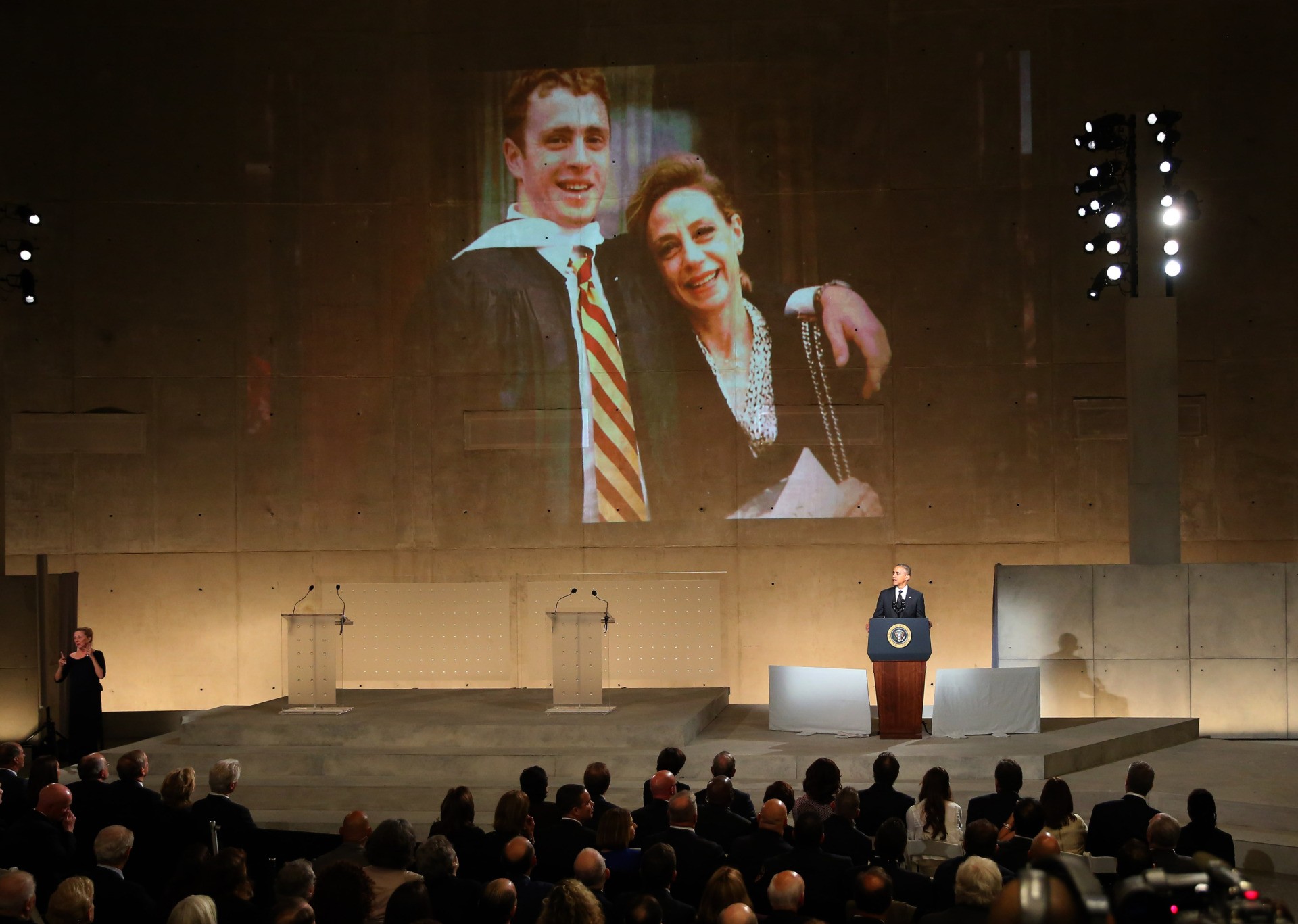
At the dedication ceremony at the National September 11 Memorial Museum in New York, President Barack Obama told the story of Welles Crowther, pictured on the screen with his mother Alison. Welles died in the World Trade Center while courageously helping others get to safety. He is credited with saving 12 lives on 9/11. The strangers he rescued that day knew him simply as “the man in the red bandana” because Welles covered his face with a red bandana to protect himself from the smoke. (Chang W. Lee-Pool/Getty Images)
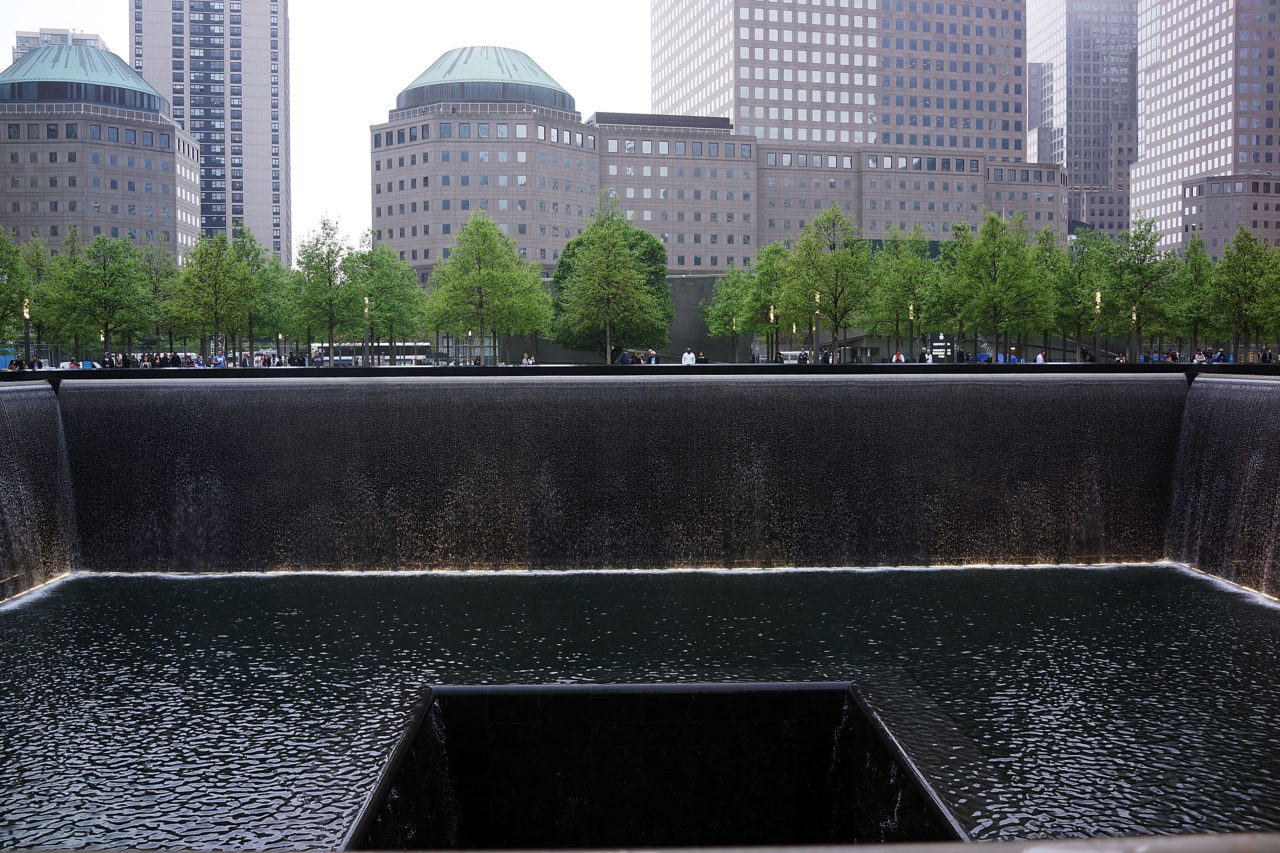
The South reflecting pool is viewed at the Ground Zero memorial site during the dedication ceremony of the National September 11 Memorial Museum on May 15, 2014. The museum spans seven stories, mostly underground, and contains artifacts from the attack on the World Trade Center Towers on September 11, 2001, that include the 80 ft. high tridents, the Ground Zero Cross, the destroyed remains of Company 21’s New York Fire Department Engine, as well as smaller items like a letter that fell from a hijacked plane and posters of missing loved ones projected onto the wall of the museum. (Spencer Platt/Getty Images)
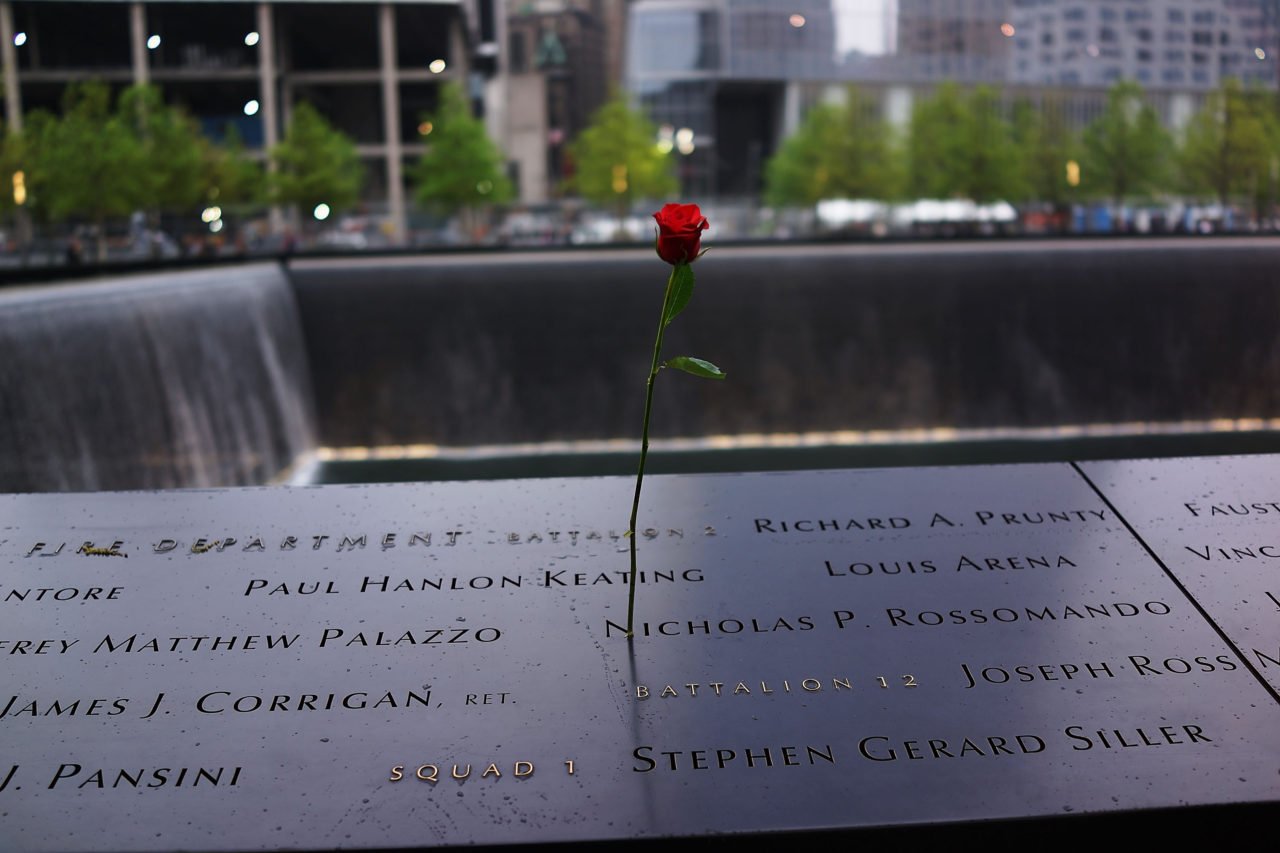
On May 15, 2014, a rose is placed on a name engraved along the South reflecting pool at the Ground Zero memorial site during the dedication ceremony. (Spencer Platt/Getty Images)
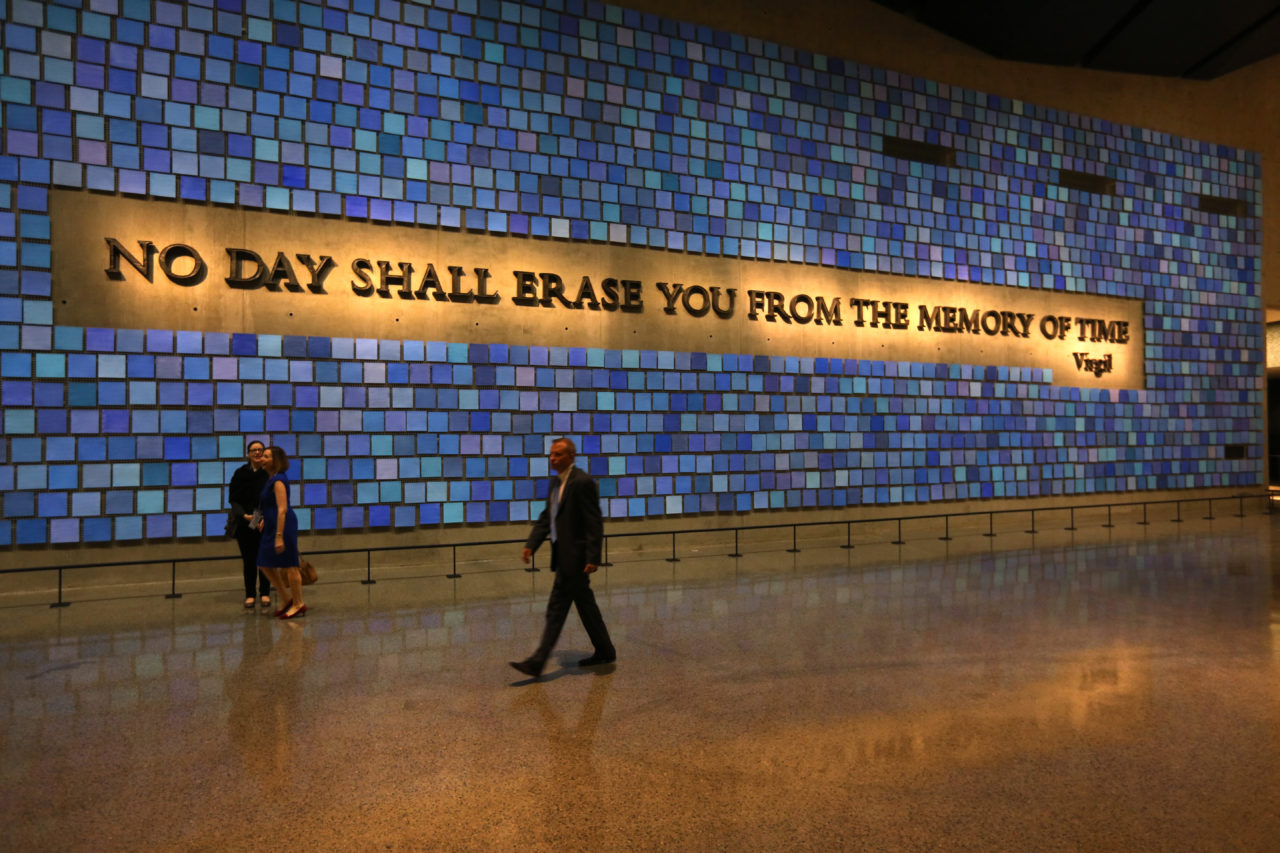
A quote from Virgil fills a wall of the museum prior to the dedication ceremony at the National September 11 Memorial Museum on May 15, 2014. (John Munson-Pool/Getty Images)
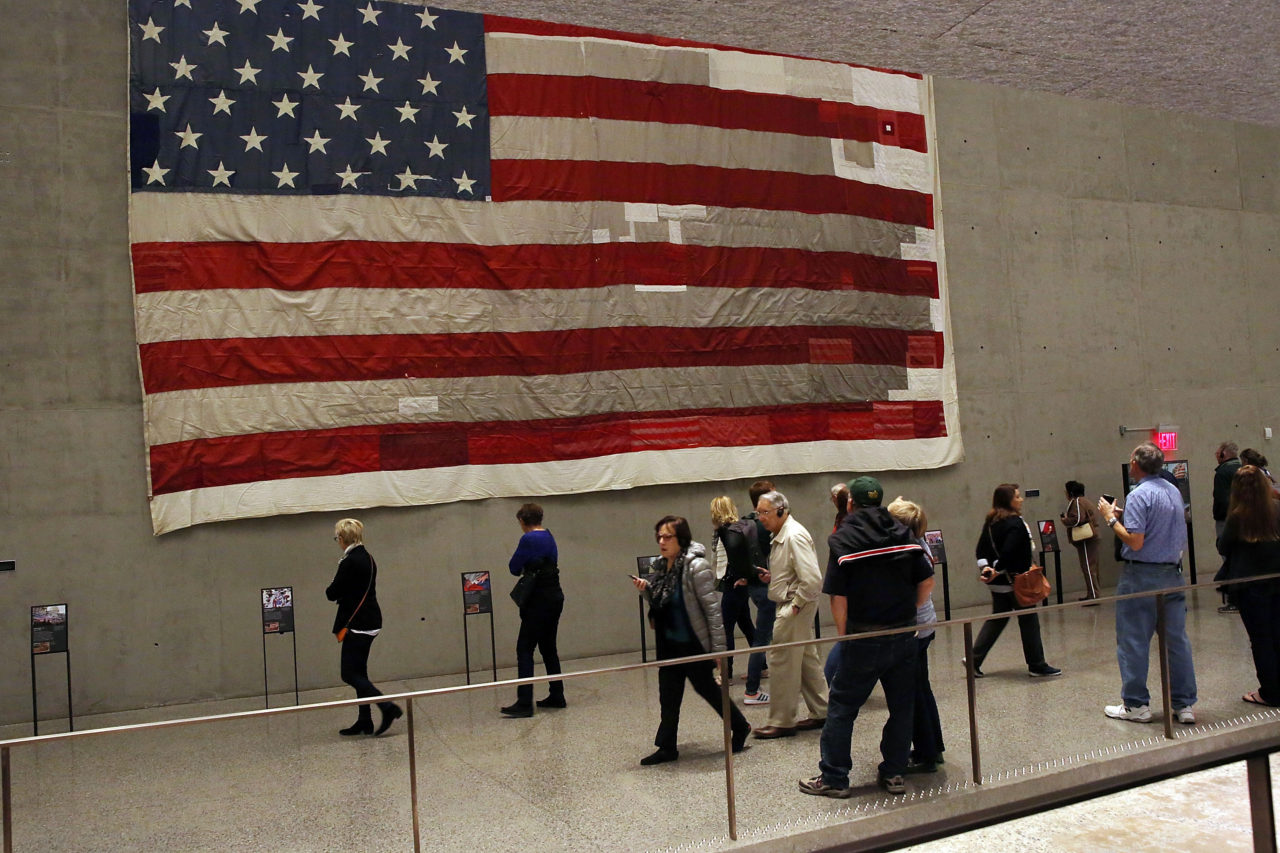
On May 21, 2015, the National 9/11 Flag is displayed for the first time at the National September 11 Memorial Museum. The flag was recovered nearly destroyed from Ground Zero and was restored in “stitching ceremonies” held across the country. (Spencer Platt/Getty Images)
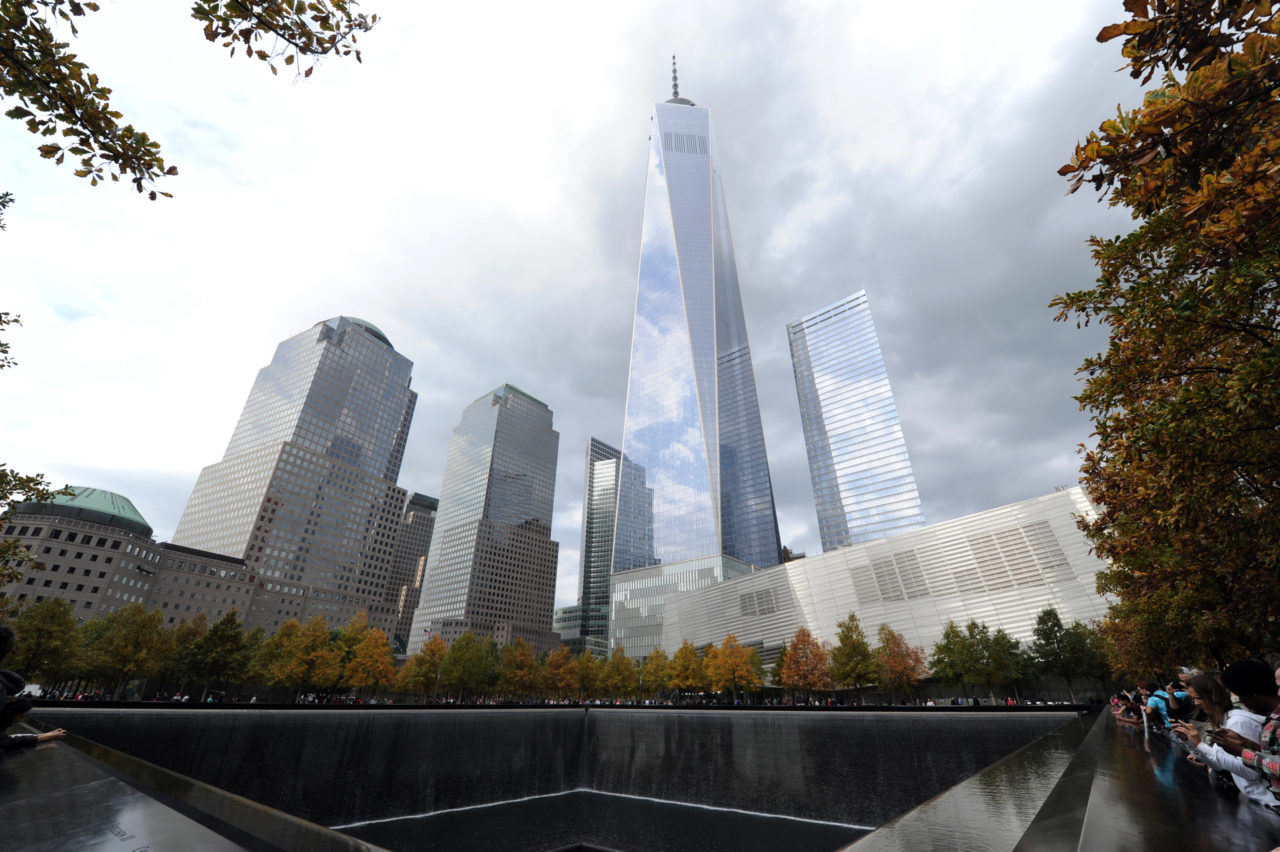
The view of One Word Trade Center as seen from the 9/11 Memorial grounds where the fallen towers once stood, on October 29, 2014. (Diane Bondareff/Invision/AP Images)
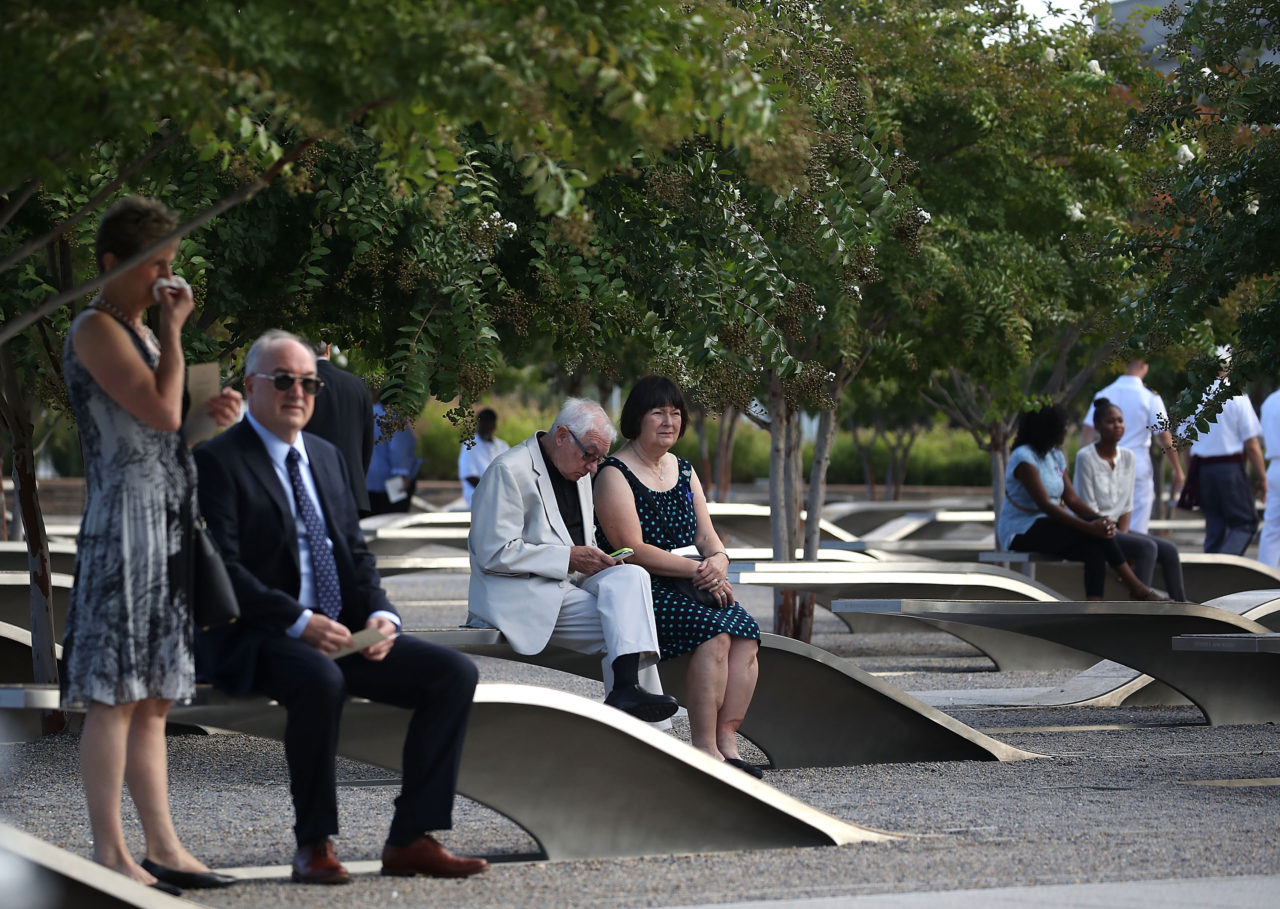
Pentagon’s 9/11 Memorial Park in Arlington, Virginia, on September 11, 2016. (Mark Wilson/Getty Images)
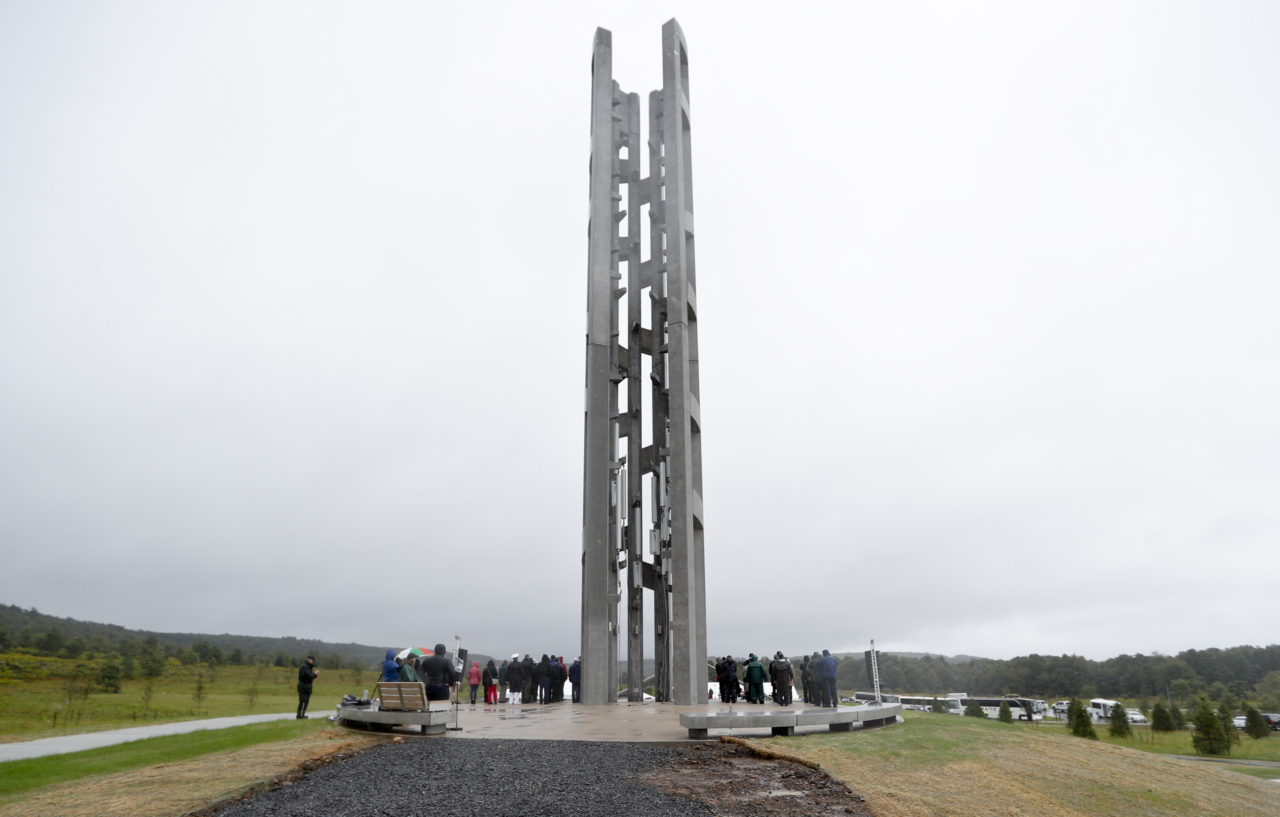
People gather for the dedication of the 93-foot tall Tower of Voices at the Flight 93 National Memorial in Shanksville, Pennsylvania, on September 9, 2018. The tower contains 40 wind chimes representing the 40 people that perished in the crash of Flight 93. (AP Photo/Keith Srakocic)
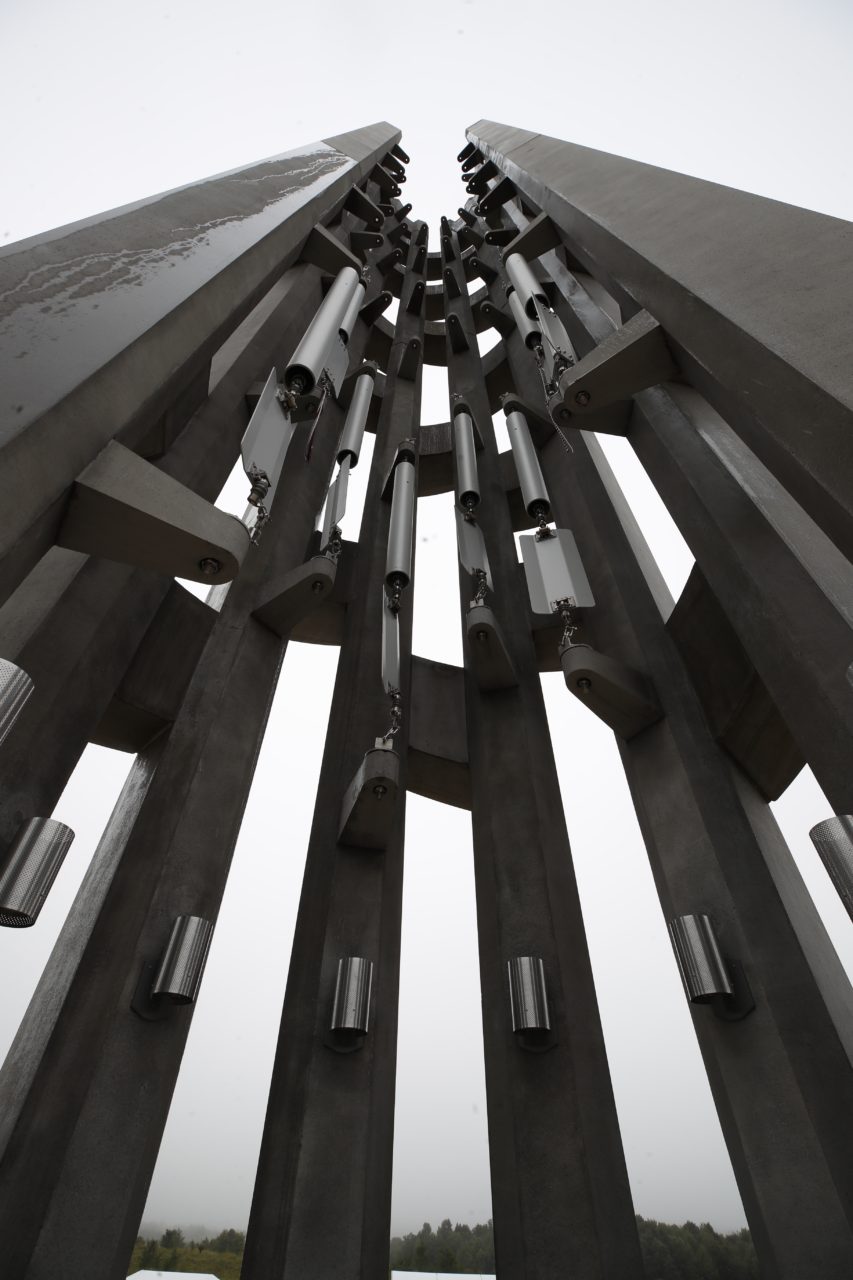
The Tower of Voices display at the Flight 93 National Memorial in Shanksville, Pennsylvania, on September 10, 2018, the day before thousands of victims’ relatives, survivors, rescuers, and others joined President Donald Trump and First Lady Melania Trump for a commemoration ceremony on the 17th anniversary of 9/11. (AP Photo/Gene J. Puskar)
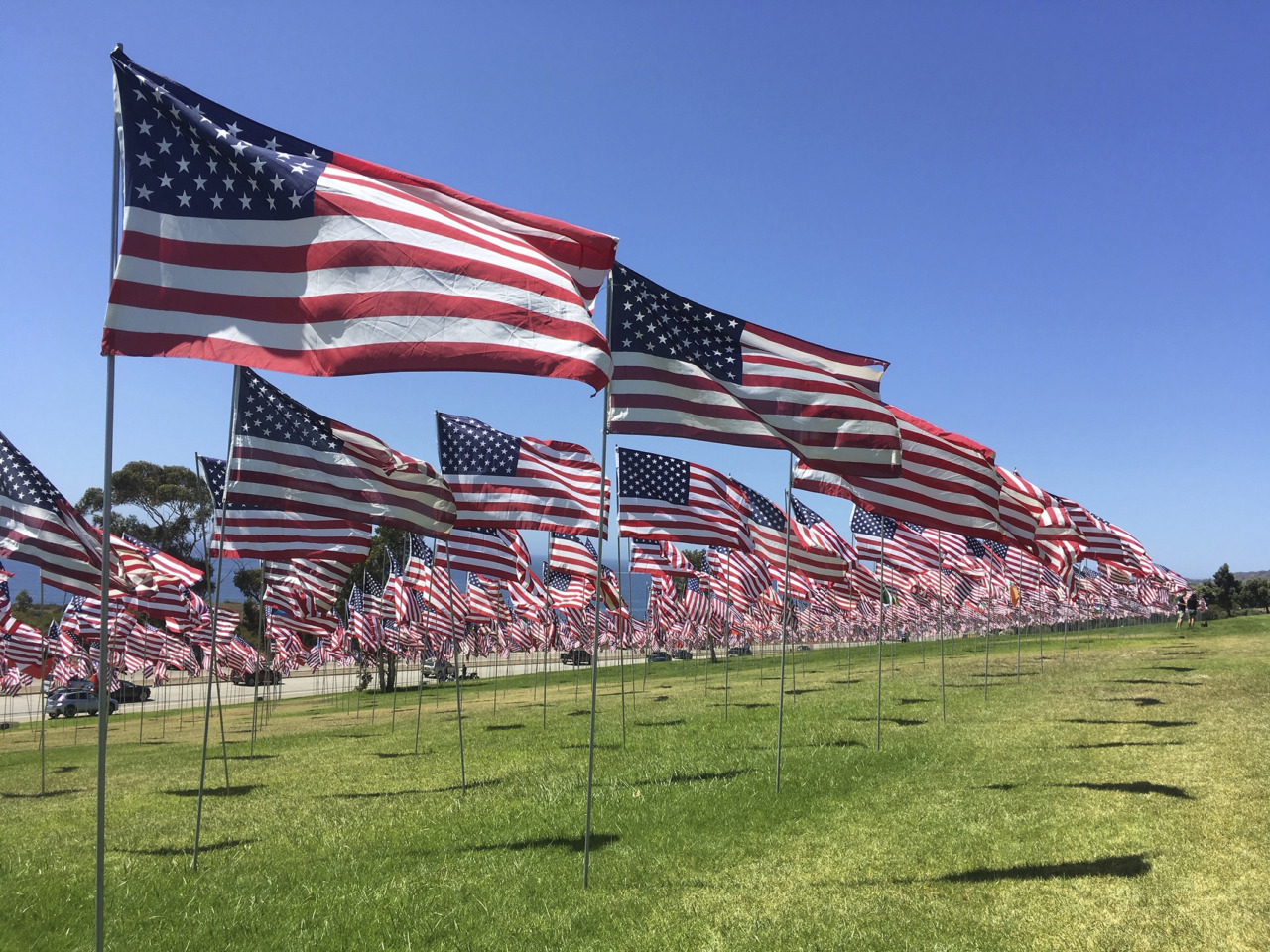
Thousands of flags representing each of the 9/11 victims wave on a lawn overlooking the Pacific at Pepperdine University in Malibu, California, on September 8, 2019, in a display that is now an annual tradition commemorating the fallen. (AP Photo/John Antczak)
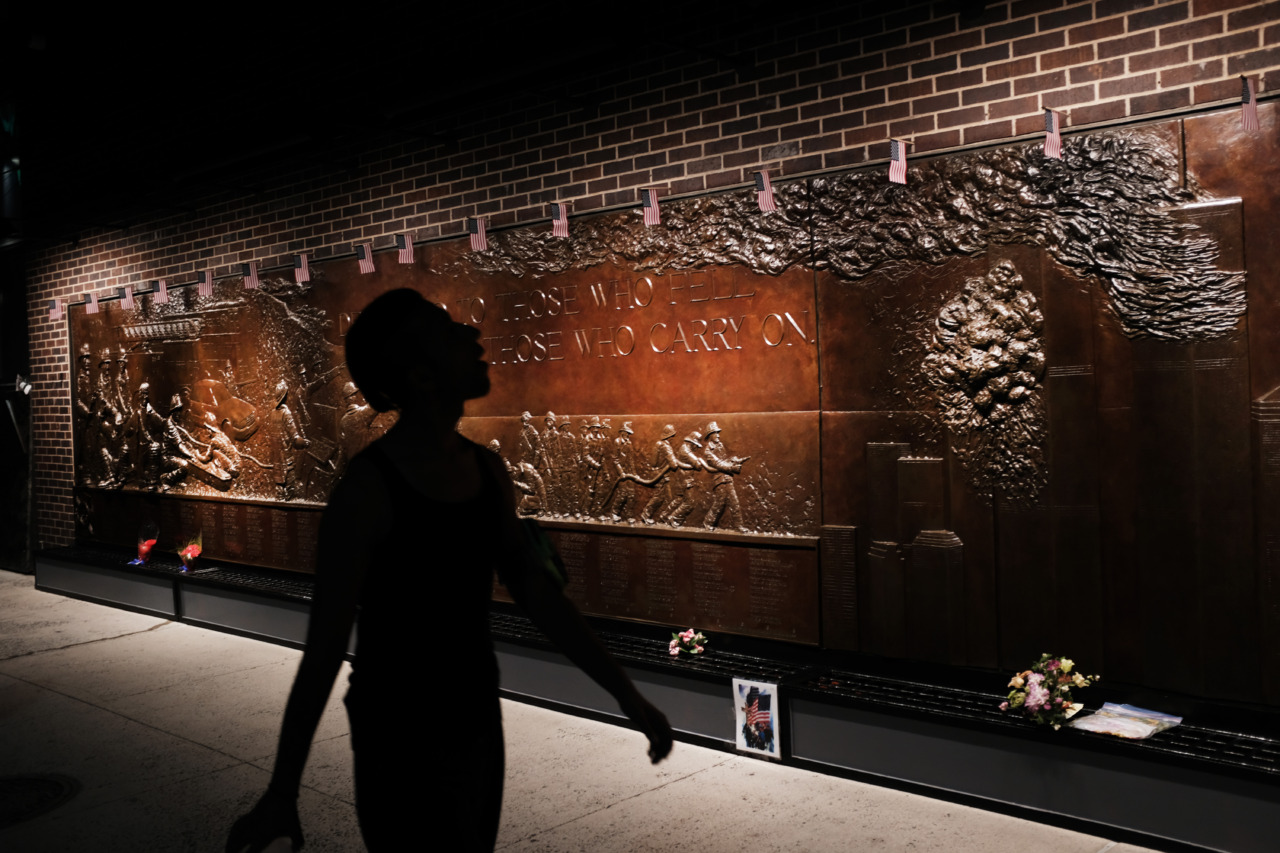
A memorial to fallen firefighters near the World Trade Center Memorial in lower Manhattan on September 9, 2019. (Spencer Platt/Getty Images)
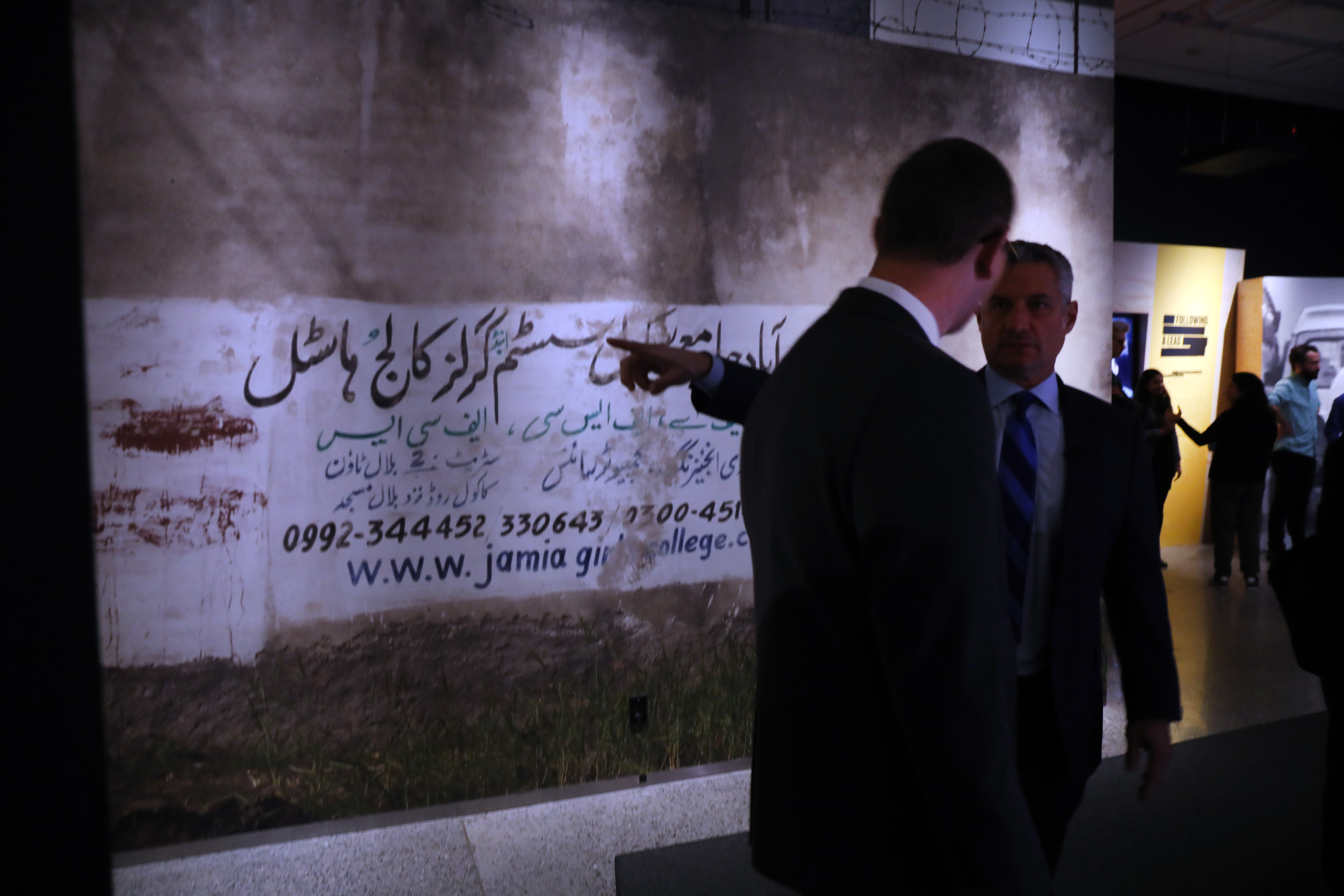
An exact replica of the wall of the compound that Osama bin Laden was hiding in is displayed at the exhibition “Revealed: The Hunt for Bin Laden” at the 9/11 Memorial Museum on November 7, 2019. (Spencer Platt/Getty Images)
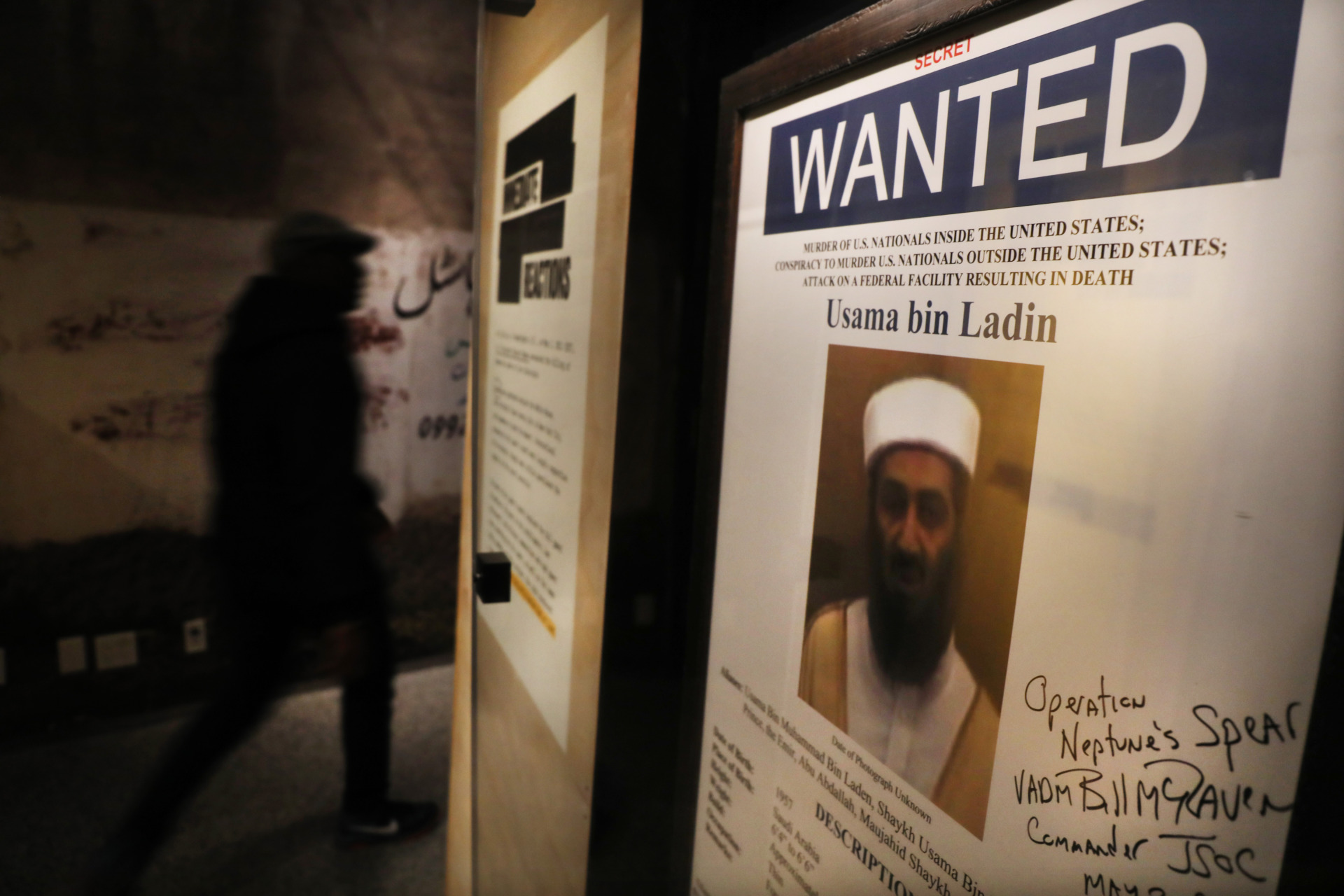
A poster and picture used to identify Osama Bin Laden is displayed at the 9/11 Memorial Museum on November 7, 2019 in New York City. (Spencer Platt/Getty Images)
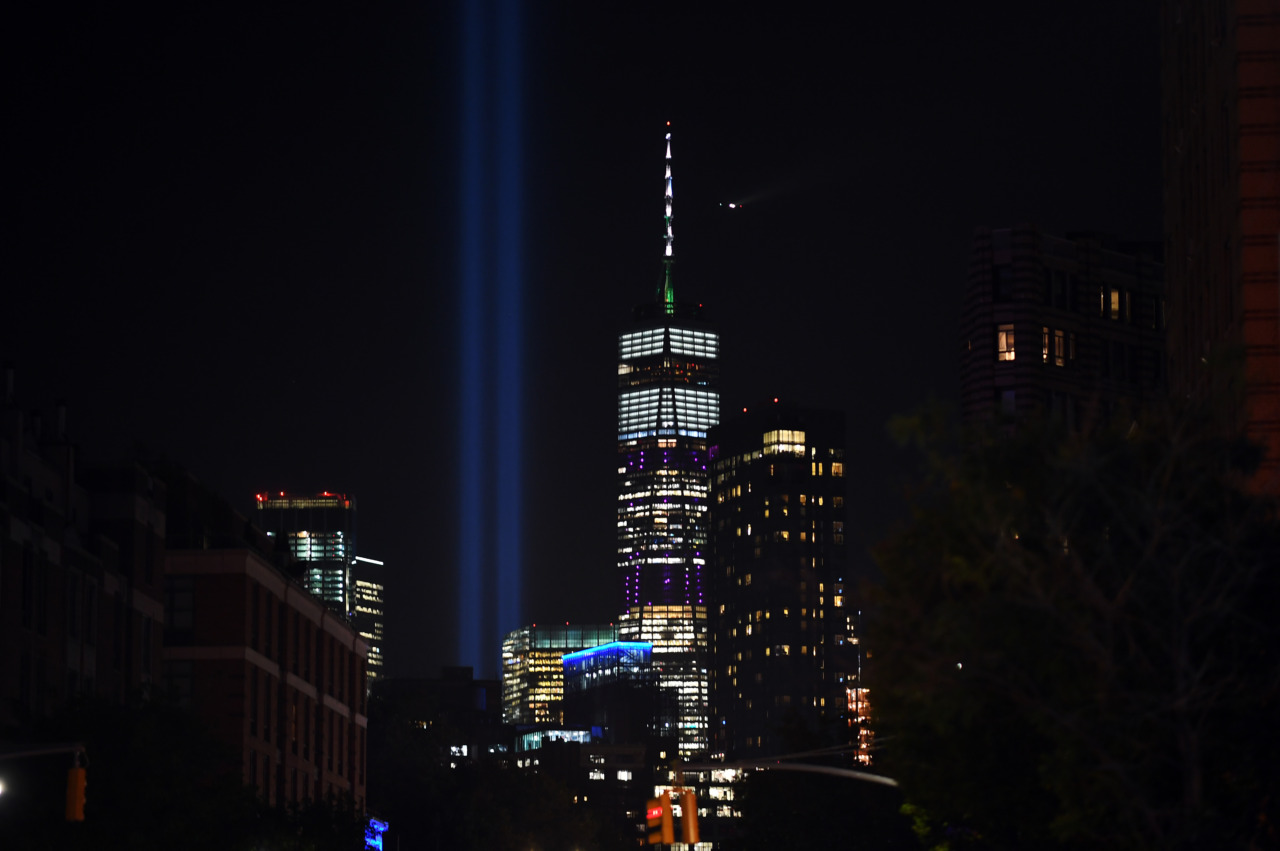
The Tribute in Light to commemorate the 18th anniversary of 9/11 is seen next to the One World Trade Center on September 10, 2019. (Johannes EISELE / AFP/Getty Images)
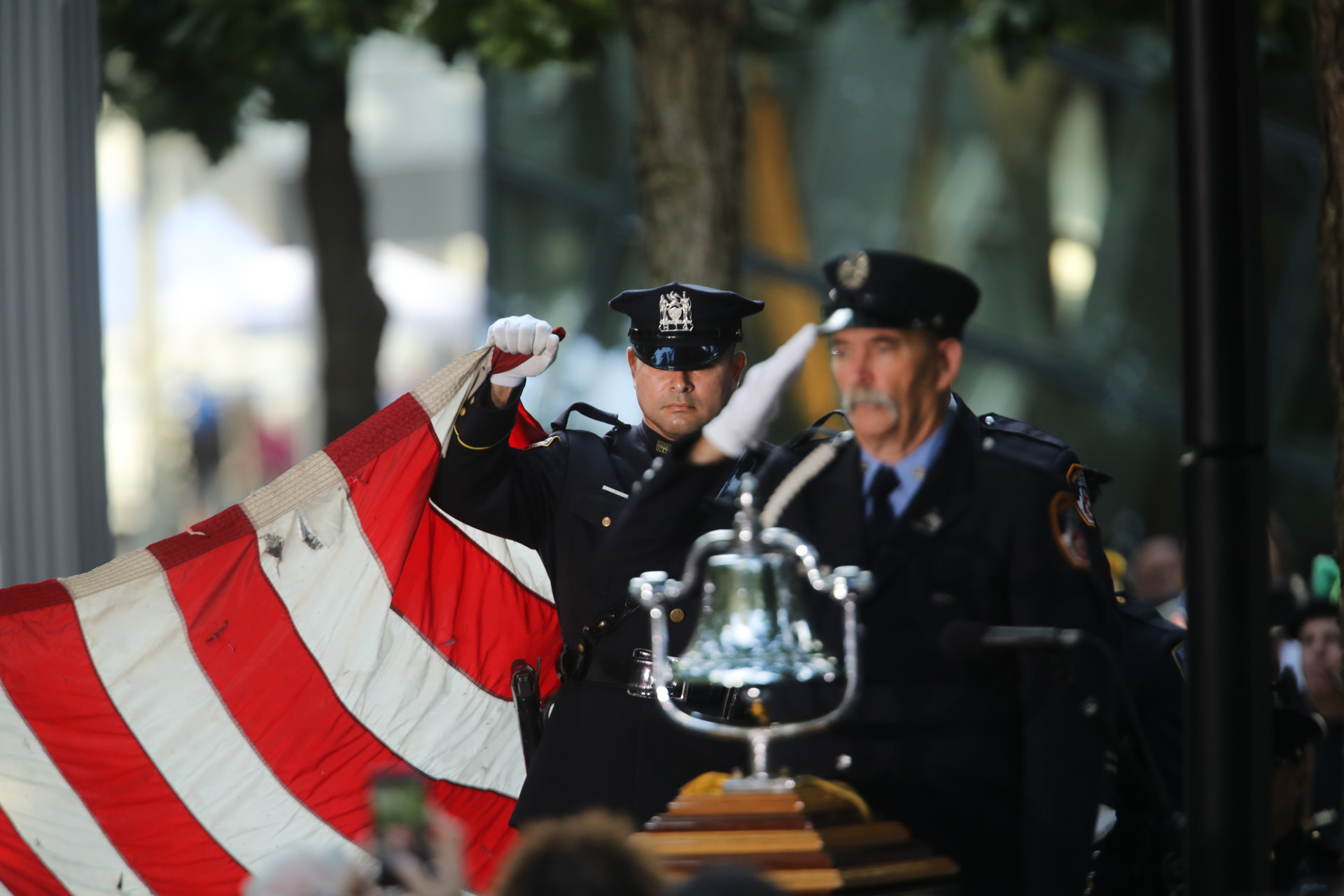
Firefighters and police participate in the start of ceremonies at the National September 11 Memorial on September 11, 2019, in New York City. (Photo by Spencer Platt/Getty Images)
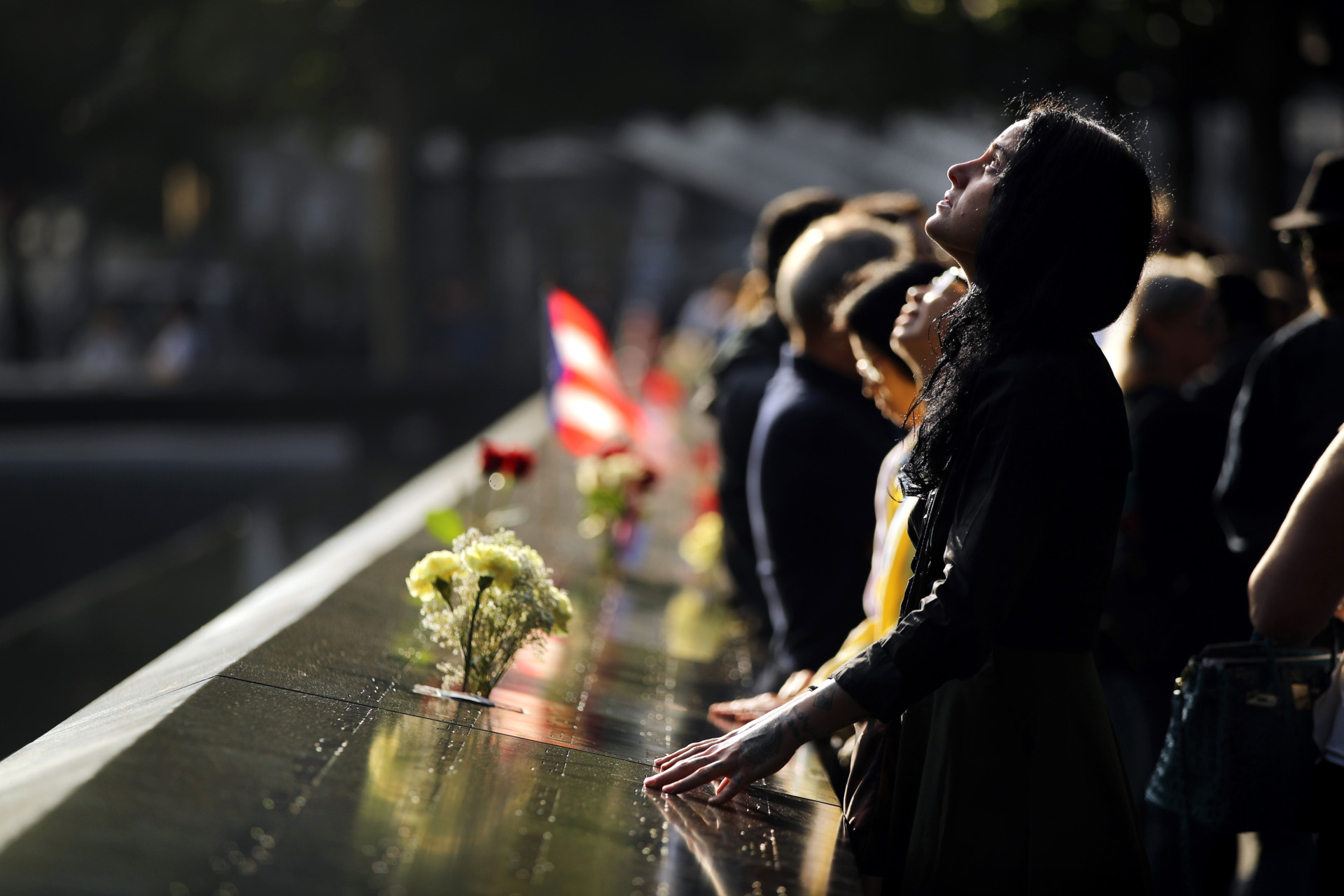
Alexandra Hamatie, whose cousin Robert Horohoe was killed in the 9/11 attacks, pauses at the National September 11 Memorial during a morning commemoration ceremony on September 11, 2019, in New York City. (Spencer Platt/Getty Images)
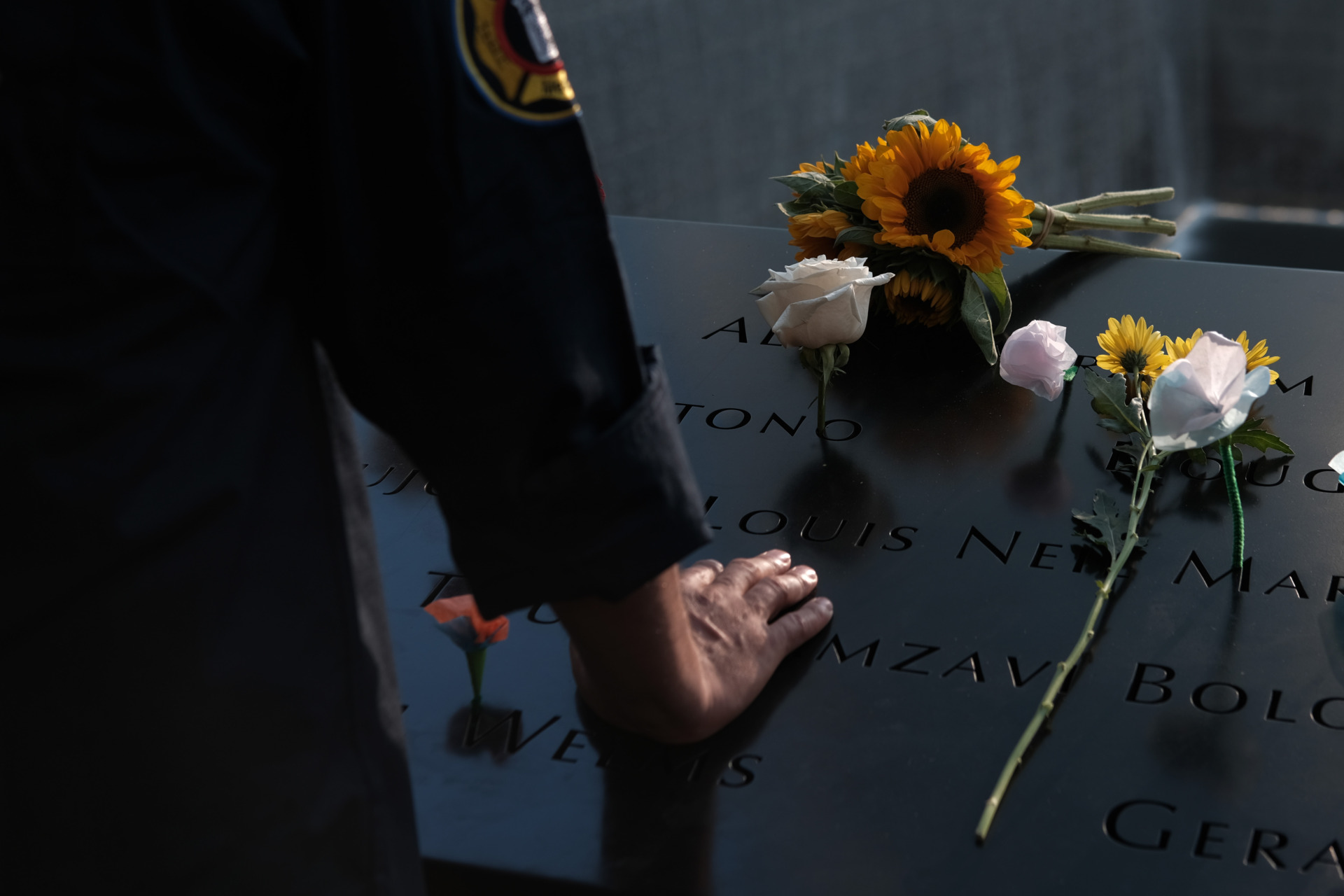
People gather at one of the pools at the National September 11 Memorial following a morning commemoration ceremony on September 11, 2019, in New York City. (Spencer Platt/Getty Images)
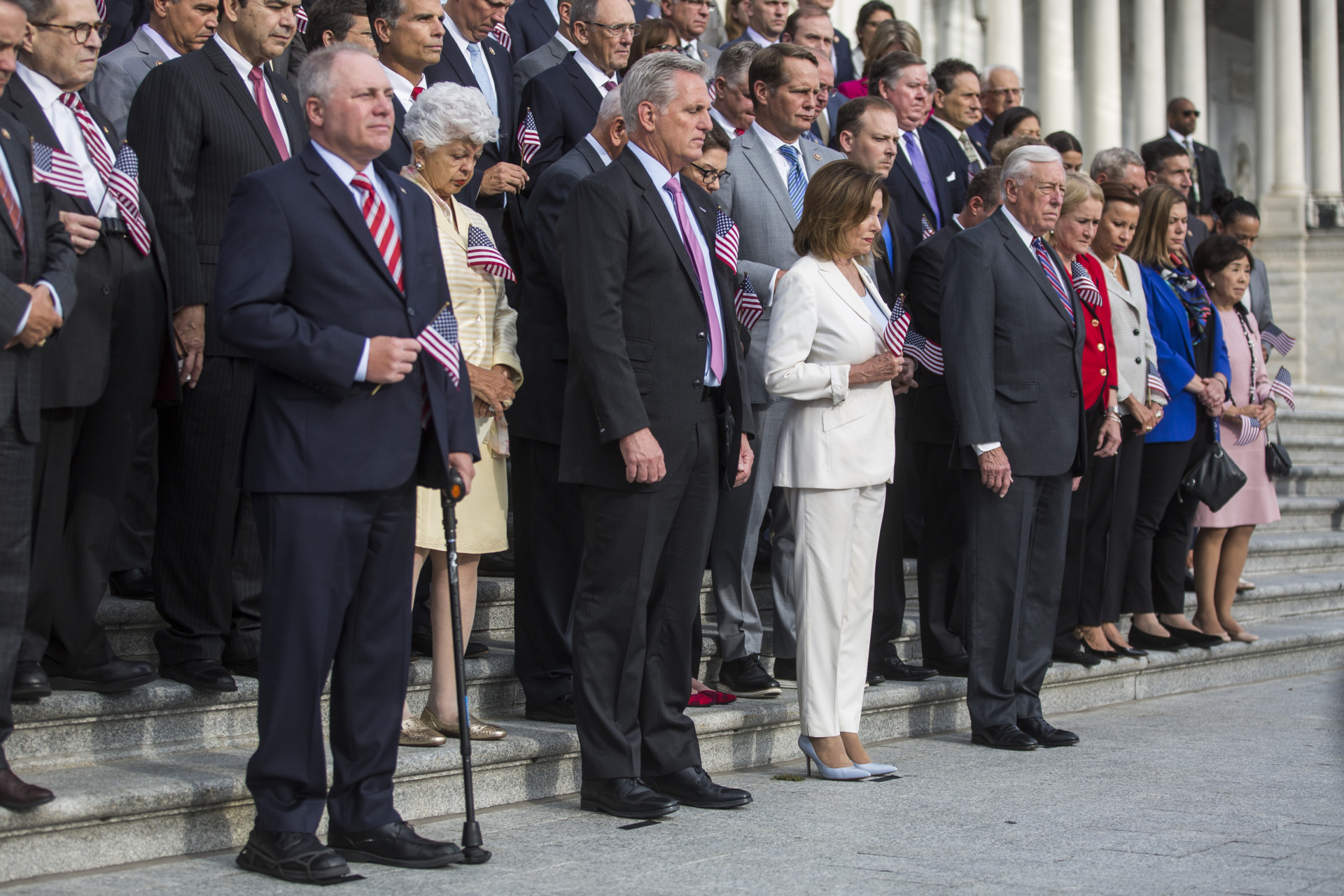
House Minority Whip Steve Scalise (R-LA), House Minority Leader Kevin McCarthy (R-CA), House Speaker Nancy Pelosi (D-CA), and House Majority Leader Steny Hoyer (D-MD) take part in a moment of silence on September 11, 2019, on the Capitol Steps with members of the House of Representatives. (Zach Gibson/Getty Images)
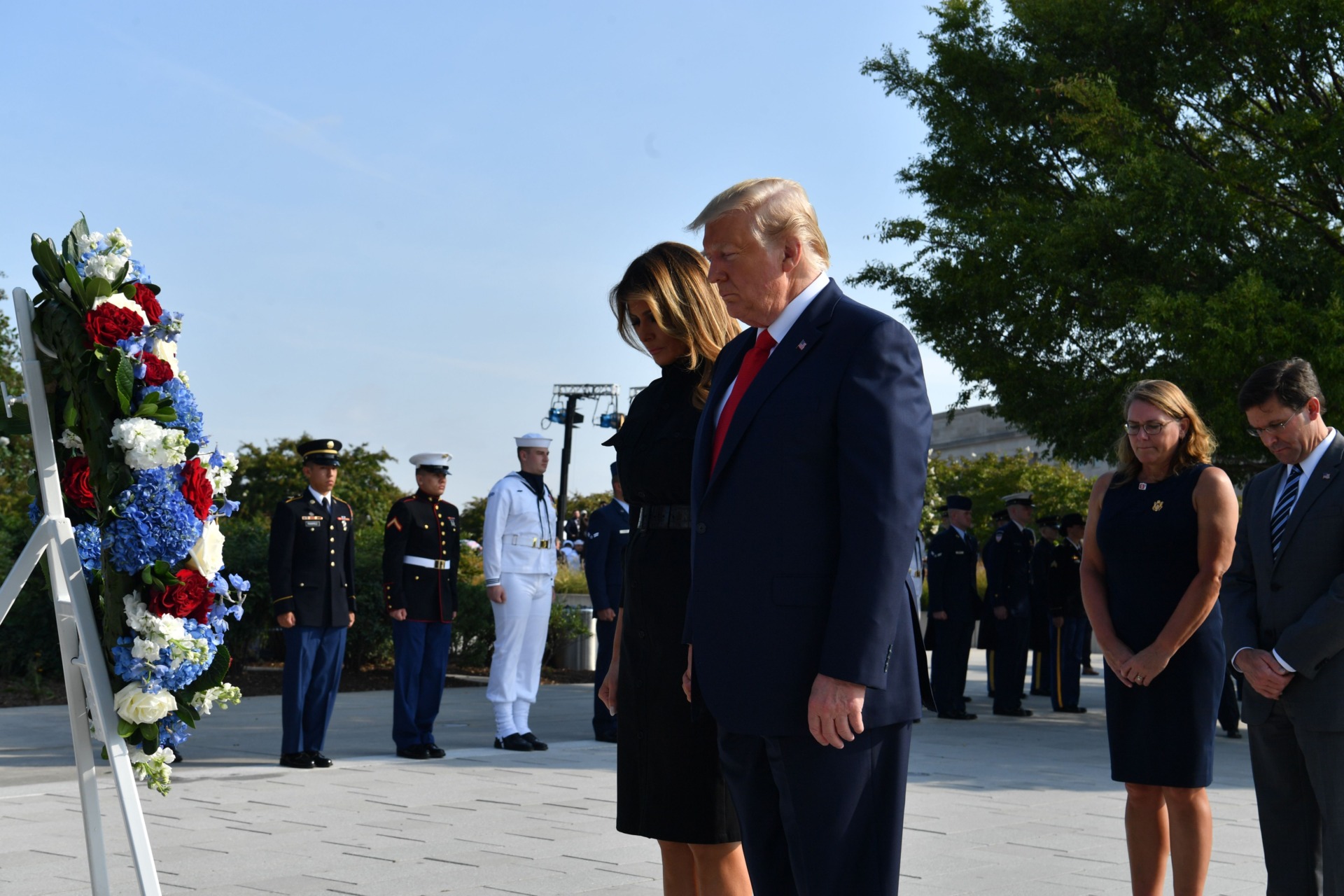
President Donald Trump and First Lady Melania Trump, with U.S. Secretary of Defense Mark Esper and his wife Leah Esper, lay a wreath during a ceremony marking the 18th anniversary of the 9/11 attacks, on September 11, 2019, at the Pentagon. (NICHOLAS KAMM/AFP via Getty Images)
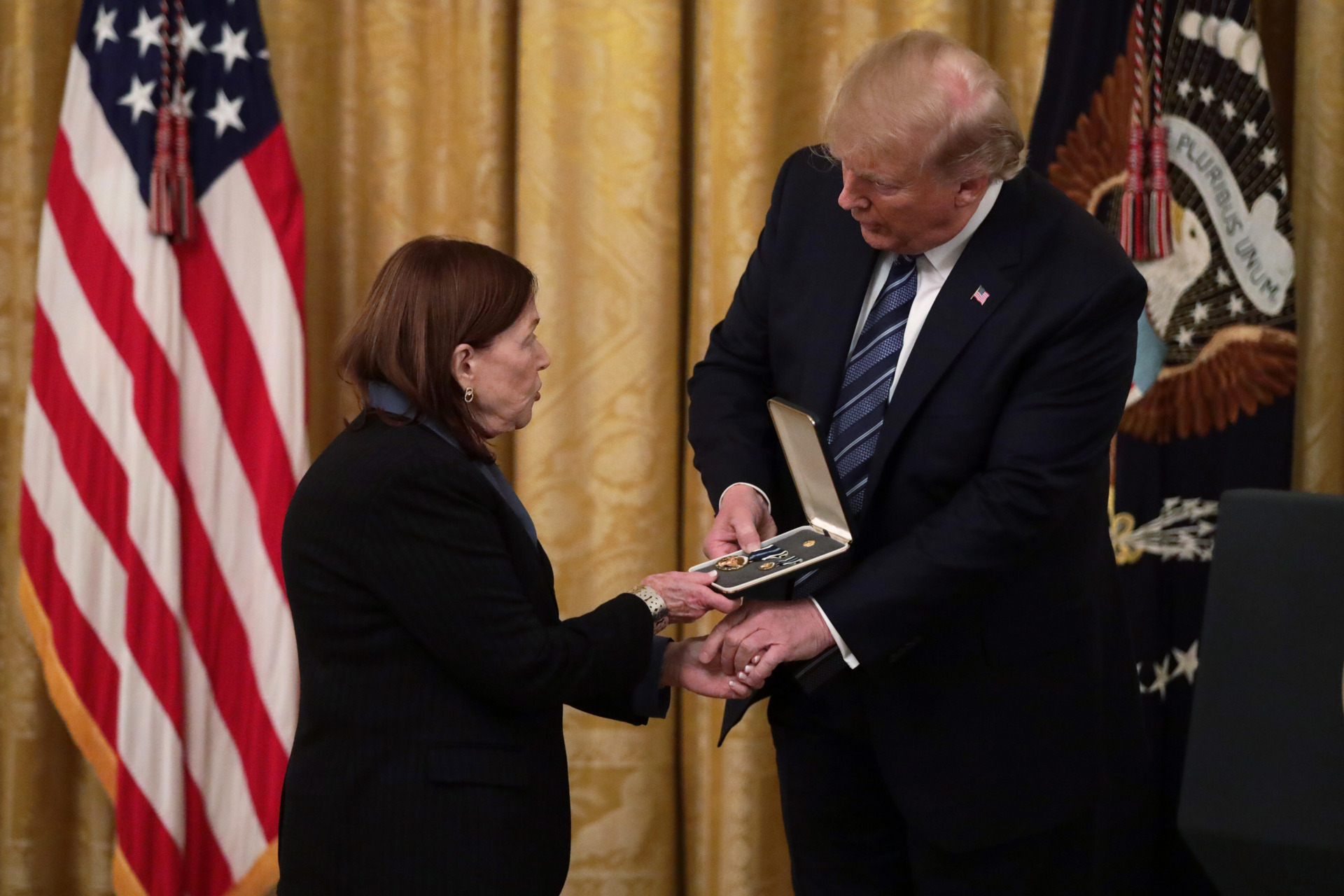
President Donald Trump presents the Presidential Citizens Medal to Susan Rescorla, the wife of Richard Cyril Rescorla, during an East Room event at the White House on November 7, 2019. Richard Cyril Rescorla, the former director of security for Morgan Stanley, was awarded the Presidential Citizens Medal posthumously for his implementation of evacuation plans that help to save thousands of lives during the 9/11 terror attack on the World Trade Center. (Alex Wong/Getty Images)
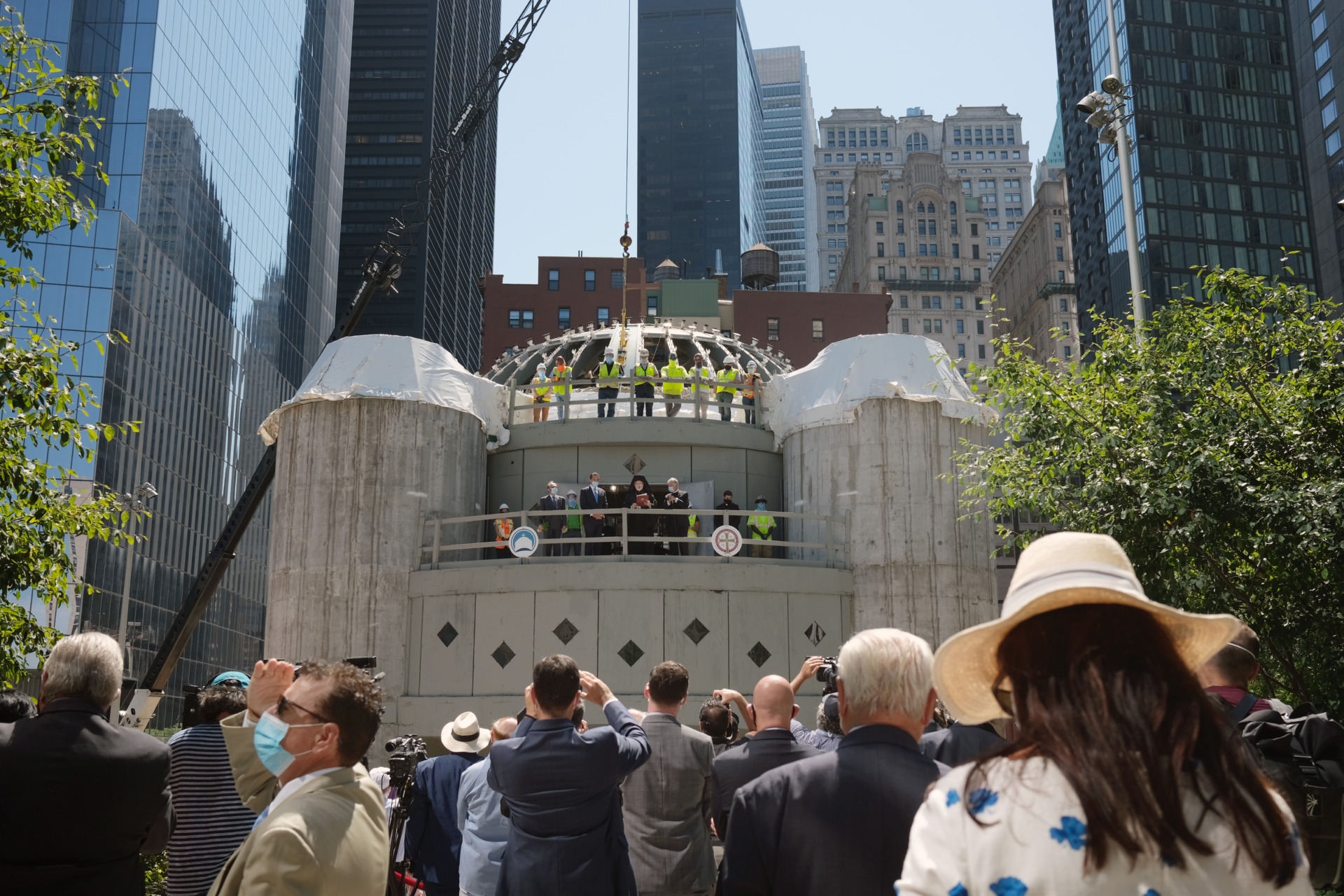
New York Governor Andrew Cuomo (left) joins his Eminence Archbishop Elpidophoros of America (center) in a ceremony for the resumption of construction on the new Saint Nicholas Greek Orthodox Church and National Shrine at the World Trade Center on August 3, 2020, in New York City. On 9/11, St. Nicholas was the only other building besides the Twin Towers to be completely destroyed during the terrorist attack. Saint Nicholas Church, which began services in 1922, was named after Agios Nikolaos, the Patron Saint of Sailors. (Spencer Platt/Getty Images).
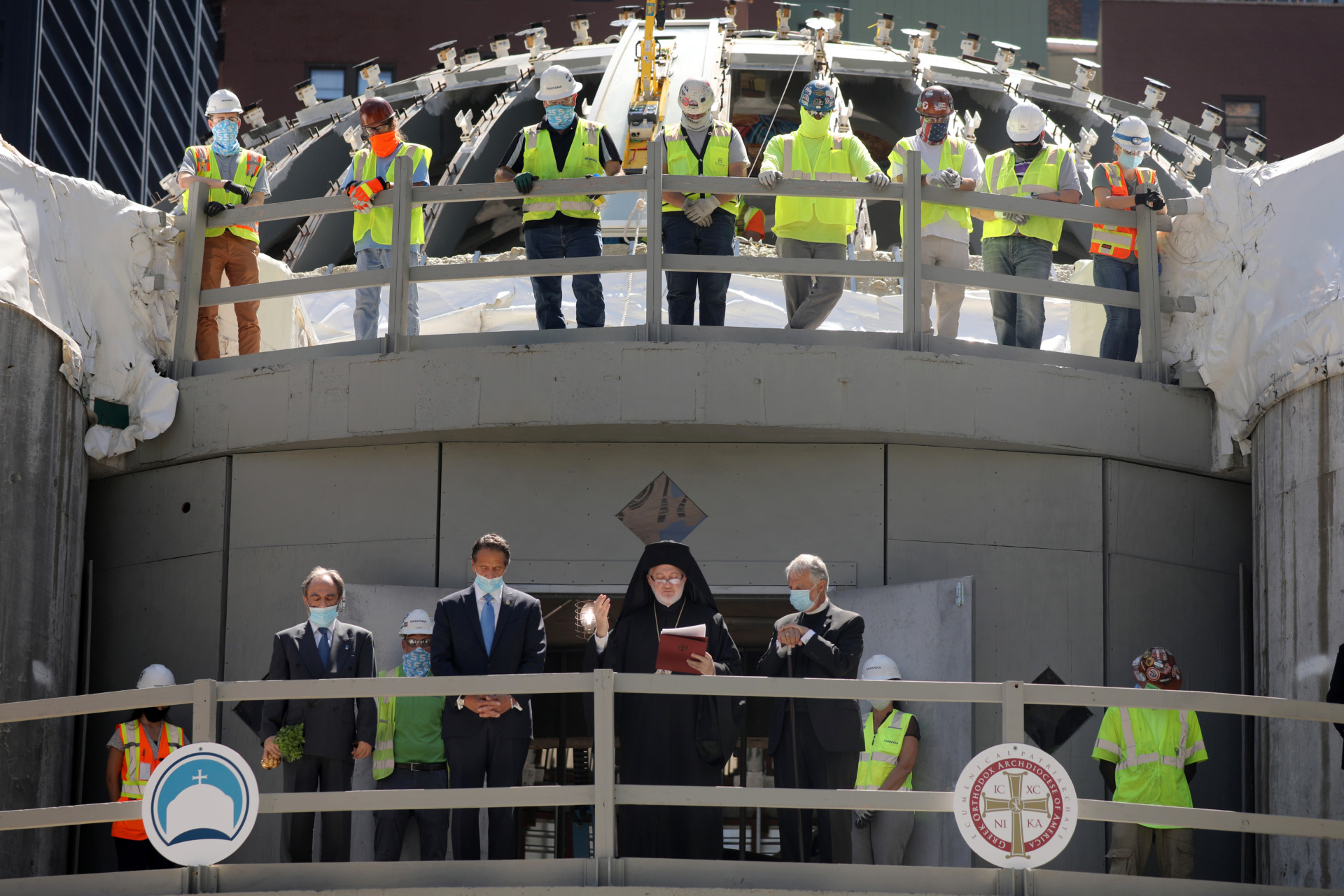
(Spencer Platt/Getty Images)
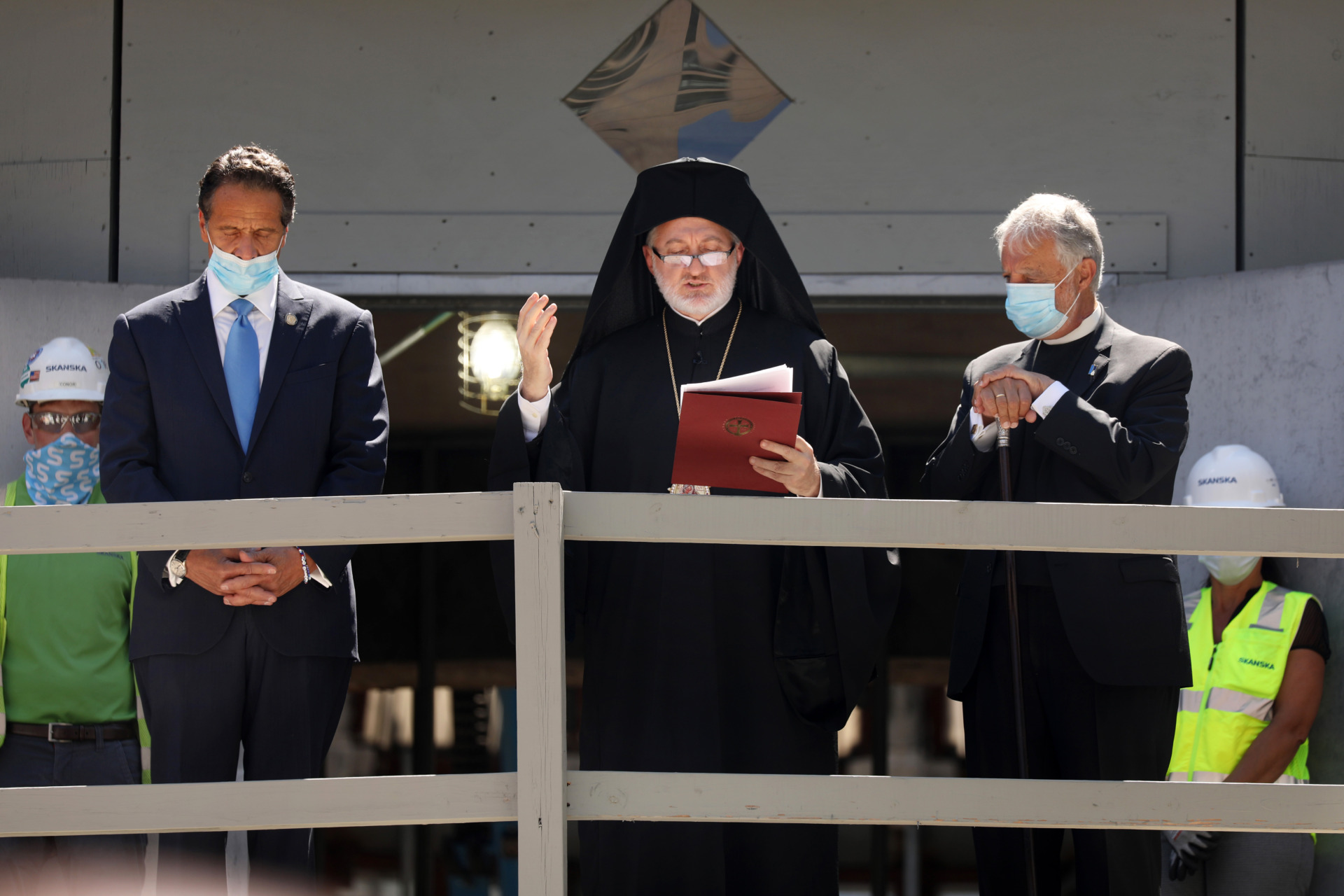
(Spencer Platt/Getty Images)
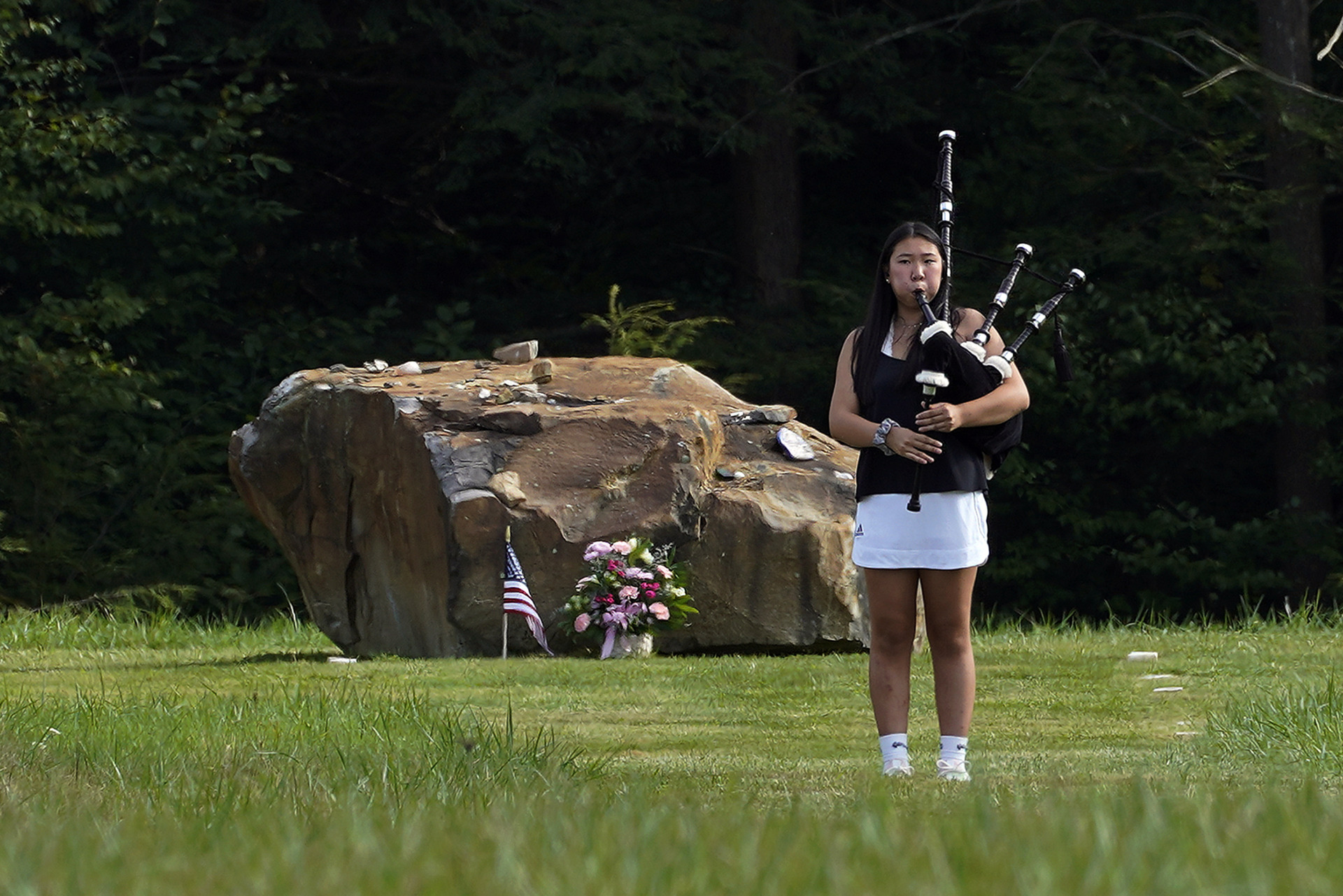
A piper plays in front of the boulder that marks the impact site of Flight 93 at the Flight 93 National Memorial in Shanksville, PA, on September 10, 2020. (AP Photo/Gene J. Puskar)
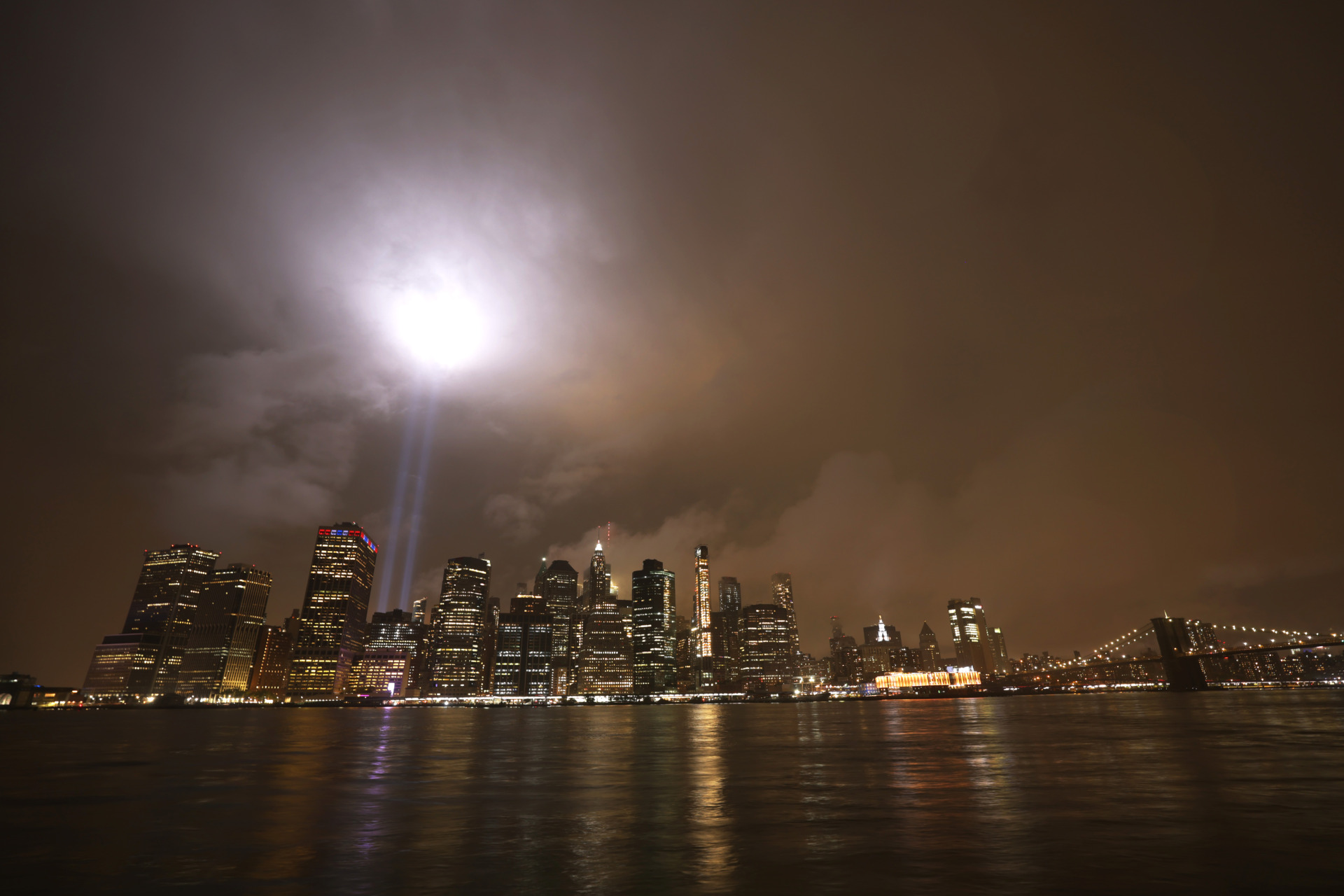
The 9/11 Tribute in Light shines above the lower Manhattan skyline on September 10, 2020. (Michael M. Santiago/Getty Images)
For the 20th anniversary of the 9/11 attacks, EarthCam released a time-lapse video of the two decade transformation of Ground Zero from destruction to rebirth.
[embedded content]
